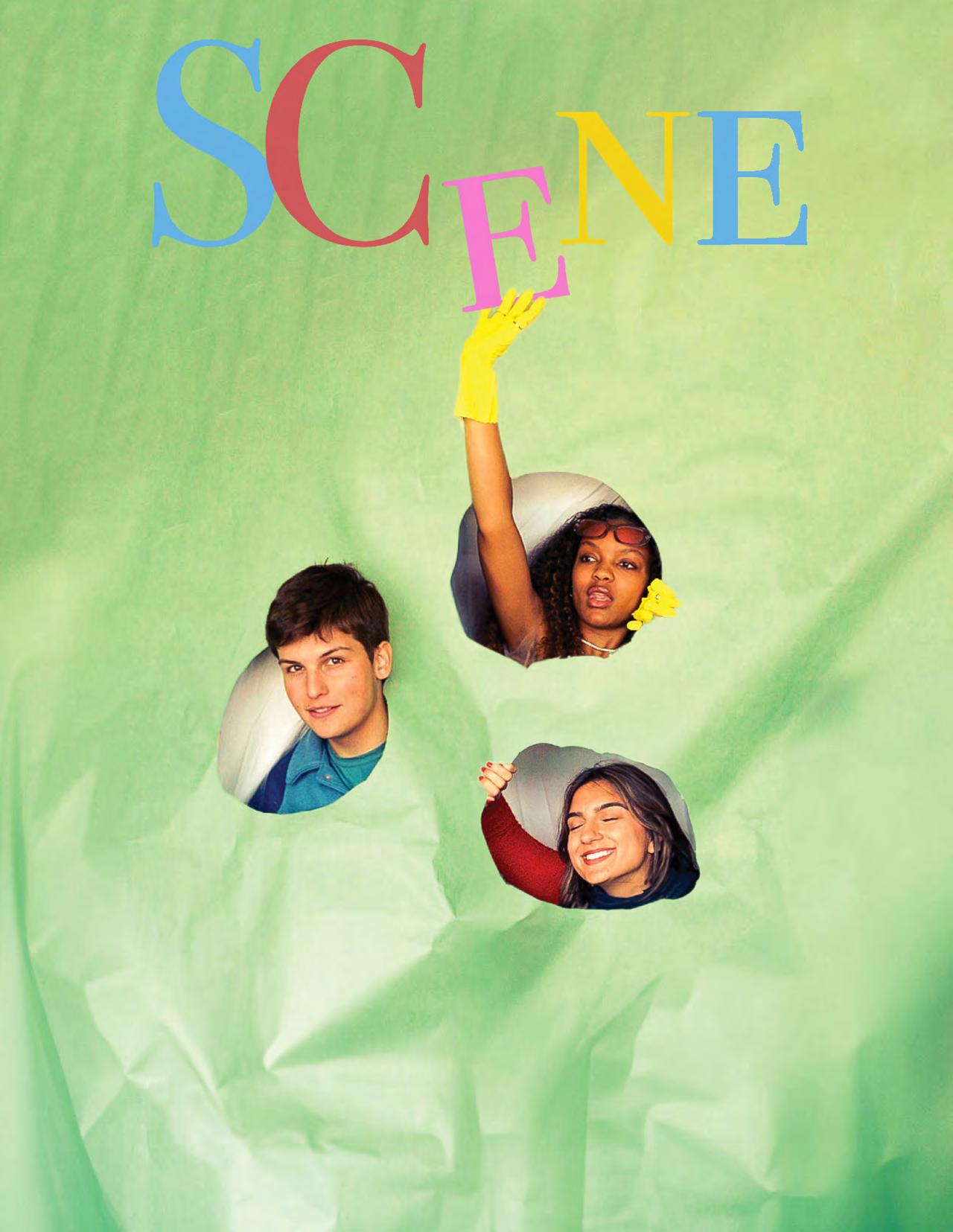
Issue No. 5 Spring 2024 Stumbling through the Best Years of Our Lives
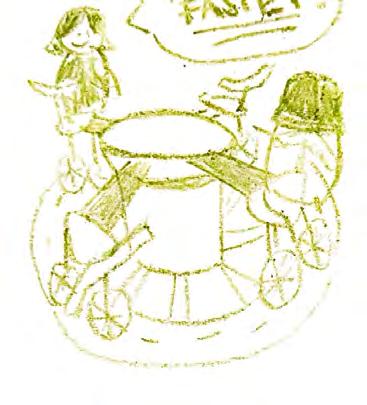

Issue No. 5 | Spring 2024
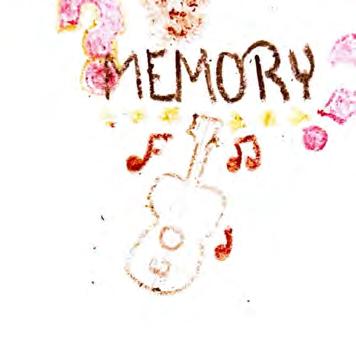
EDITOR-IN-CHIEF | Julia Zara
CO-CREATIVE DIRECTOR | Kassydi Rone
CO-CREATIVE DIRECTOR + VIDEO PRODUCTION MANAGER | Asha Oommen
DIRECTOR OF FUNDRAISING, EVENTS AND PUBLIC RELATIONS | Kayla Rocha
DIRECTOR OF SOCIAL MEDIA AND PUBLIC RELATIONS | Jazmyne Aquino
DIRECTOR OF WRITING | Andrea Arcia
DIRECTOR OF COPY | Sullivan Barthel
DIRECTOR OF PHOTOGRAPHY | Pili Marco
DIRECTOR OF DESIGN | Kathryn Aurelio
DIRECTOR OF MULTIMEDIA | Kayla Li
WRITING
Mariam Bagdady
Kendall Bradwell
Laurie Carrillo
Alexis Lara
Maya Packer
Curran Rastogi
Izzy Ster
Benjamin Turnquest
Kylee Warden
PHOTOGRAPHY
Ethan Buriel
Megan Chan
Kayden-Harmony Greenstein
Rhian Jones
Lili Pape
Thomas Pham
Isabella Segalla
DESIGN
Solana Espino
Olivia Hau
Sam Natalya
Carlee Nixon
Lakshmi Sajith
GUEST CONTRIBUTORS
Anya Barrus
Maisy
MULTIMEDIA
Valerie Fang
Laura Furniss-Roe
Evan Rodrigues
Daishalyn Satcher
Smriti Marar
Hannah Wiser
FUNDRAISING + PR
Arianna Chan
TALENT + CREW
Antonio Acosta
Dami Adeyina
Luke Albert
Josh Ali
Gabriella Anifantis
Jonathan Antoon
Simi Awujo
Iris Bahn-Logan
Joanna Barry
Gaby Batista
Xuan-Anh Ly Biggs
Arianna Bollens
Matthew Calma
Ariel Cheng
Cole Chiles
Collin Colson
Kayla Cunningham
Auburn D’Artell
Evelyn Drews
Chris Ellis
Jess Ellis
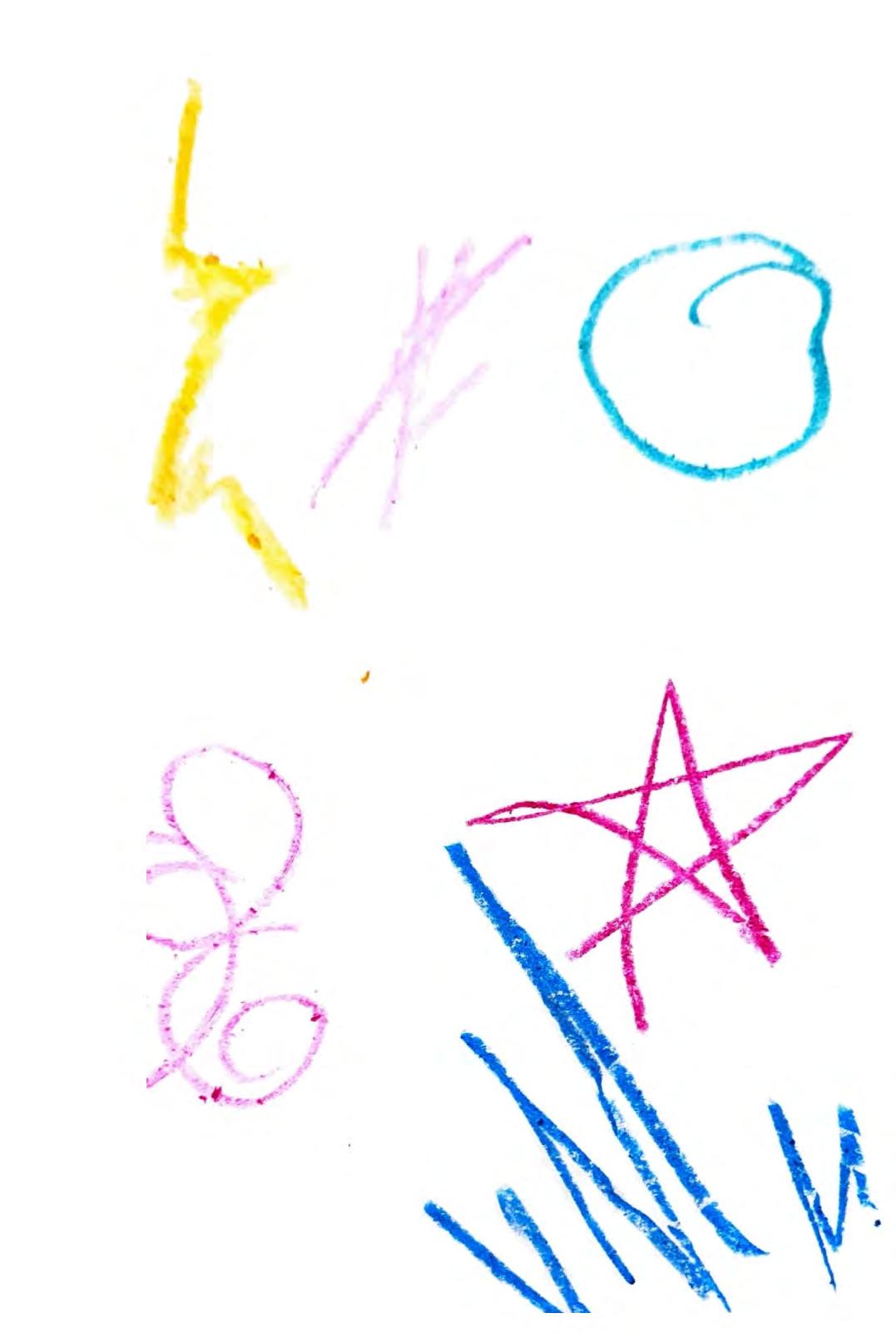
Luc Eldridge
Sheila Falls
Kiara Geolina
Jean-Luc Hayes
Melissa Hayes
Shelby Heiman
Darin Jawahar
Kofo Jolaoso
Earicka Jones
Thomazin Jury
Ella Katz
Hannah Kuechler
Ajay Lalani
Marcelino Martinez Escoriza
Jazmin Mikhael
Alex Nimrod
Rena Pau
Tiana Perez
Sage Petrocelli
Sam Pozen
Leeann Ross
Bryton Snyder
Darrien Snyder
Justin Solomon
Kayla Suarez
Sophia Sullivan
Nicole Tisnes
Danica Terk
Phillip Tran
Zafina Virani
Courtney White
Justin White
2

Table of Contents
4-5 | Letter from the Editor + Creative Directors
8 | Half Past Four
Kendall Bradwell
What happens to a dream deferred?
18 | Mature for Her Age
Izzy Ster Older, cooler.
28 | This Boss Baby Spills the Beans
Julia Zara Wake up and caffeinate?
42 | Inside the Gates of Troy
Maya Packer
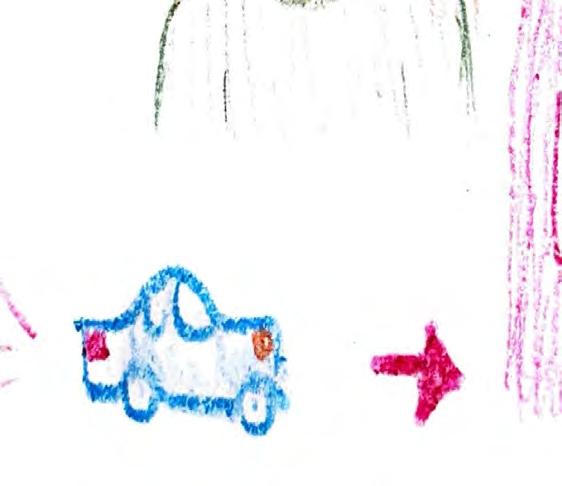
What it takes college athletes to reach the highest pinnacle of the game.
54 | Five Times I Changed the Plot
Alexis Lara
Let’s do it.
66 | Father, Husband, Veteran, Sophomore
Sullivan Barthel
Nontraditional, but student all the same.
76 | 18 Going on 22
Daishalyn Satcher
Follow four people from dining halls to kitchens.
92 | 20 Under, 20 Underneath
Benjamin Turnquest
Big birthday. Big Ben. Big problems.
104 | Pass Me By
Andrea Arcia
We’re all waiting for our lives to start.
112 | We Just Want to have Fun! Or Do We?
Mariam Bagdady
Is now a bad time to mention that situationship?
126 | Gettin’ Thrifty
Laurie Carrillo
When items hold memories, we keep them close.
136 | The Girls in the Green House
Kylee Warden
Growing together, even when we thought we were already grown.
144 | Becoming “The Graduate”
Curran Rastogi Dread it. Run from it. Post-grad anxiety arrives all the same.
158 | Behind the SCenes
The SCene team members are kids at heart. Get an exclusive look into our creative process.
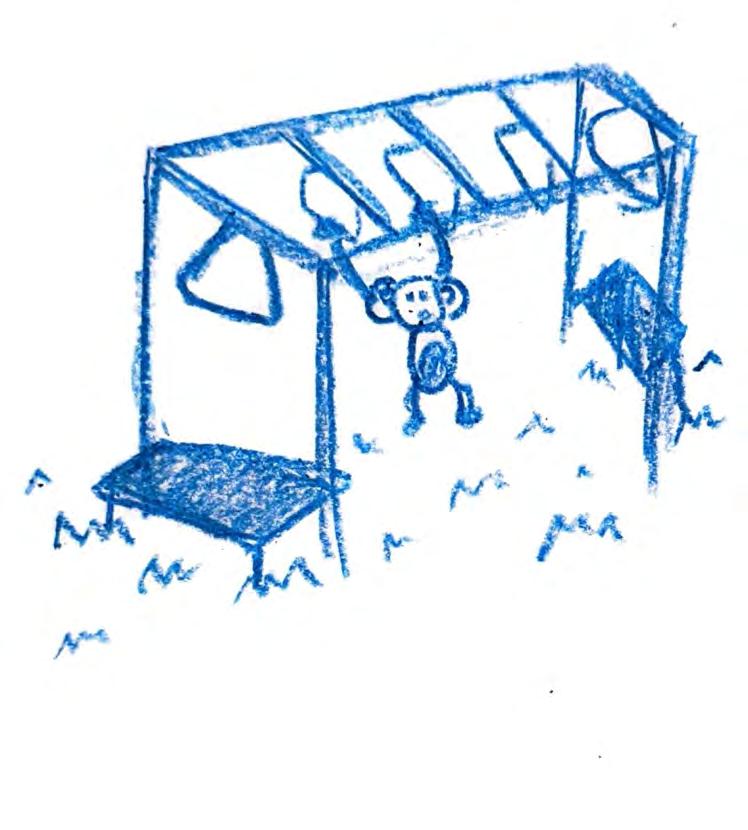
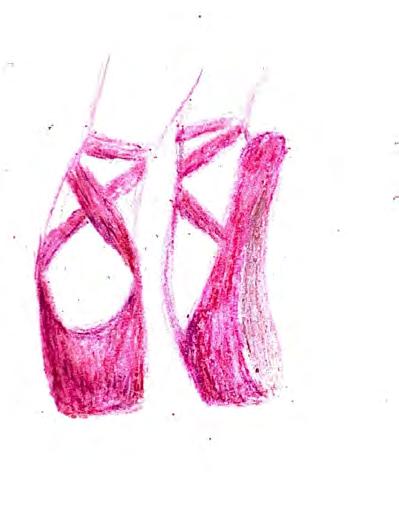
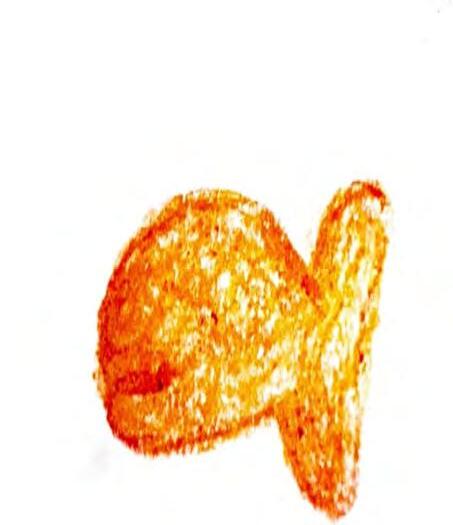

3
A Letter from the Editor
Imagine you’re doing laundry, casually using your roommates’ Tide Pods (sorry guys). First, you pull out a bright red sweater, shining and clean. Then, you fish out your beloved white t-shirt, and, gasp! You’ve done the unforgivable. Your favorite white shirt, the one with the perfect model-off-duty fit, is now dyed a hue of light pink. You drop to your knees, devastated that you forgot the number one rule of laundry: Separate your colors.
I tell this anecdote not only because it’s a true story, but also because it offers a metaphor for one’s identity during college. If childhood is the red sweater and adulthood is the white tee, then college is the frumpy pink mass, the one produced from silly mistakes, the one that doesn’t quite match anything else in your closet.
Like a laundry day mishap, college is where childhood and adulthood bleed into one another. As students, we’re expected to be responsible, have fun, secure a job (“Do you have anything lined up for the summer?”), get drunk, find a partner, do our homework, and much, much more.
These expectations make it easy to get burnt out, especially during a
global crisis. After the pandemic, and now this, this generation of students had to grow up very fast.
Specifically, the class of 2024 has yet to receive closure: The graduation that marked the end of high school and the beginning of college was canceled due to the pandemic. Now, the ceremony that officially closed college and opened adulthood is canceled, too. For these students, the events that bookend important periods of their lives have now become like dyed clothes: A mix of colors without a clear end or beginning. Tie-dye.
This, to me, is the heart of SCene’s fifth issue. “Adult-ish” captures what it means to teeter between colors. It’s energetically playful and fiercely young. It’s melancholically weary and timidly scared. It’s Gen Z, in the here and now, because as these past few weeks have shown students, we don’t know what’s going to happen next.
To our SCene members, I commend you for embracing every hue that pigments the student experience. It’s bittersweet knowing that SCene is all grown up. This semester, SCene took some of its first steps, throwing our first party and screening our
theme reveal at a film festival (Thank you 4085!). SCene has morphed into quite the young organization, and for the second year in a row, our magazine was recognized by the Society of Professional Journalists as a finalist for best ongoing student magazine.
Of course, we couldn’t have done it without our talent and contributors. To those who offered their time to us this semester, thank you for having some good fun with SCene. You turned our absurd ideas into playful realities. Thanks for encouraging us to pursue our wildest imaginations, whether that was donning clocks on your arms, stepping through ripped paper, sitting in Legos or talking to a pet fish.
Last but not least, thank you to our readers. I hope this issue reminds you of the precious creativity of young voices and experiences. There’s an entire world waiting for you on the other side of college. Like a piece of clothing in a machine, life will try to toss, tumble, wash and dry you out.
You might not know where your story fits. But for right now, it’s okay to sit in your colors.

4 EDITOR-IN-CHIEF
A Letter from the Creative Directors
In full transparency, there are 23 sentence fragments about “Adult-ish” sitting in the Notes app next to this computer right now. Seriously. Not a single one of them is a complete thought. And under any other circumstance, that would be supremely frustrating. But, you know what? It actually encapsulates the essence of Issue No. 5 quite well.
Before college, in pure adolescence, the world is pretty black and white. Yes and no. Right and wrong. But it’s like the second you arrive onto campus, so sure of who you’ve been the past 18 years, so grown up — in come the greys. The maybes. The moral dilemmas. Oh, ish.
Because as it turns out, college isn’t the answer to all of our problems. In fact, for most of us, it’s the beginning to all of our biggest questions. And whether it’s “How do I know that chicken is fully cooked?” or “What am I going to do with the rest of my life?” you have to wear all of the
hats. You have to exist at the delicate intersection of childlike wonder and adult responsibility.
As many of our readers have come to find out, the two of us live with Julia, our editor-in-chief. But let us paint you a picture of what that looks like, a layer of our dynamic you may not have considered. Every Monday night after our weekly SCene team meeting, the kitchen island we dished our weekend debrief around quickly shape shifts into a conference style roundtable. We, the three twenty-somethings downing an amount of snacks so absurd they counted as dinner the night before, now mean strictly business.
That ritual was the origin of this theme. Turning our shared stories of everything from hospital visits to heartbreaks into a title and a tagline. Fit for an audience of peers and professionals alike. For a magazine created on a Pardee Tower dorm
room floor freshman year.
All that to say: This is the silliest, yet the most serious period of exploration we’ve endured thus far. When you’re at the cusp of everything you have been, everything you are and everything you could be — what will you do with that time? What versions of yourself will you shed? Cling to? As we stumble through young adulthood, what will catch us when we fall and ground us when we fly?
Gaining clarity on the answers to those questions often feels like hitting milestones on a timeline with no definitive end in sight. As our team so skillfully represents in the coming pages, no matter how many businesses you own, international trips you book, or children you bring into this world, little you is still questioning: “So, what are we?”
And that’s okay.


5 CO-CREATIVE DIRECTORS +
General Disclaimer
SCene Magazine believes in the principles of journalistic transparency, integrity and awareness.
Hence, in an attempt to minimize harm and increase transparency, SCene Magazine recognizes that all images in this magazine, unless otherwise stated, are staged photoshoots. Our team works tirelessly throughout the semester to pitch, storyboard, cast, shoot and edit these photoshoots. In-depth conversations have been shared about the content, stories and meanings captured in the following spreads.
All images, except for one scrapbook spread, were taken in the context of models posing in editorial photoshoots, complete with professional lighting, costume design, creative direction and modeling. Meanwhile, all people involved in the making of this magazine, from being photographed to being interviewed, were made aware of their participation. Unless otherwise stated, those pictured are not the same as those interviewed.
Please note all photo captions found in the corners of this issue, which help to further describe our images. Arming consumers with these tools, SCene Magazine believes in the responsibility of the press to increase media literacy in our readers.
SCene Magazine is a publication dedicated to telling stories about the student experience. With that, we invite you to join the fun of Issue No. 5.
U set the SCene. We tell your stories.
6
SCene Magazine Spring 2024
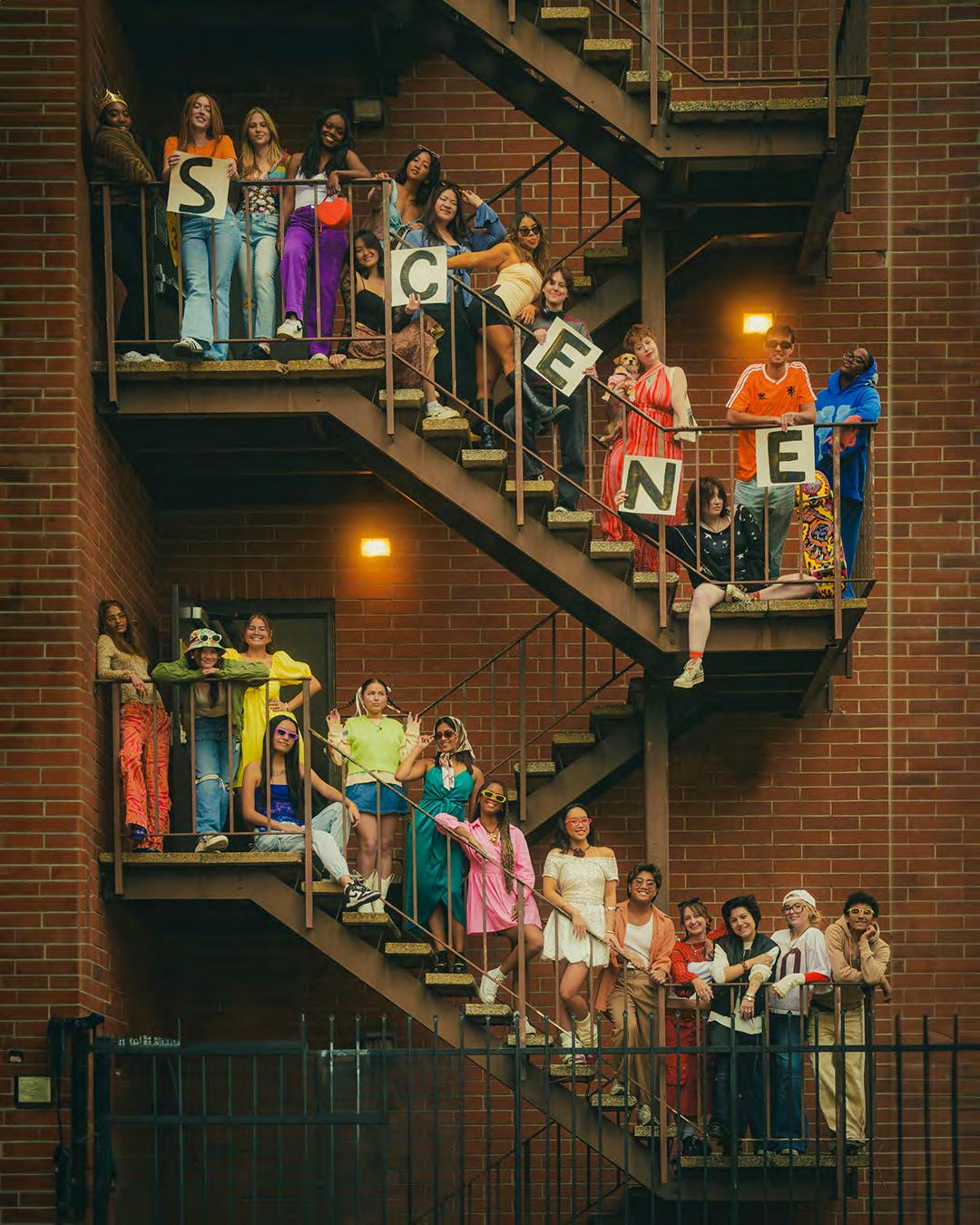
7
HALF

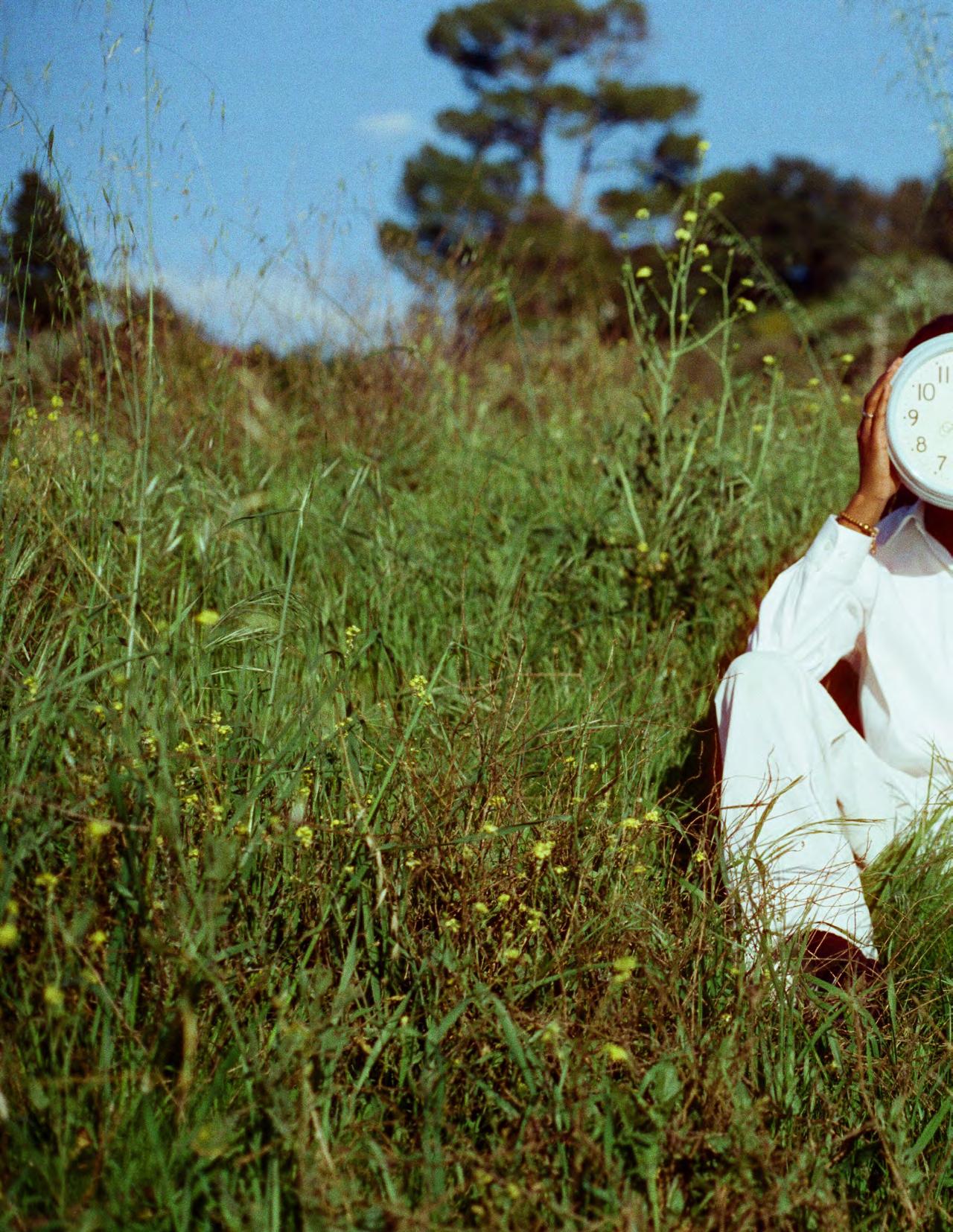

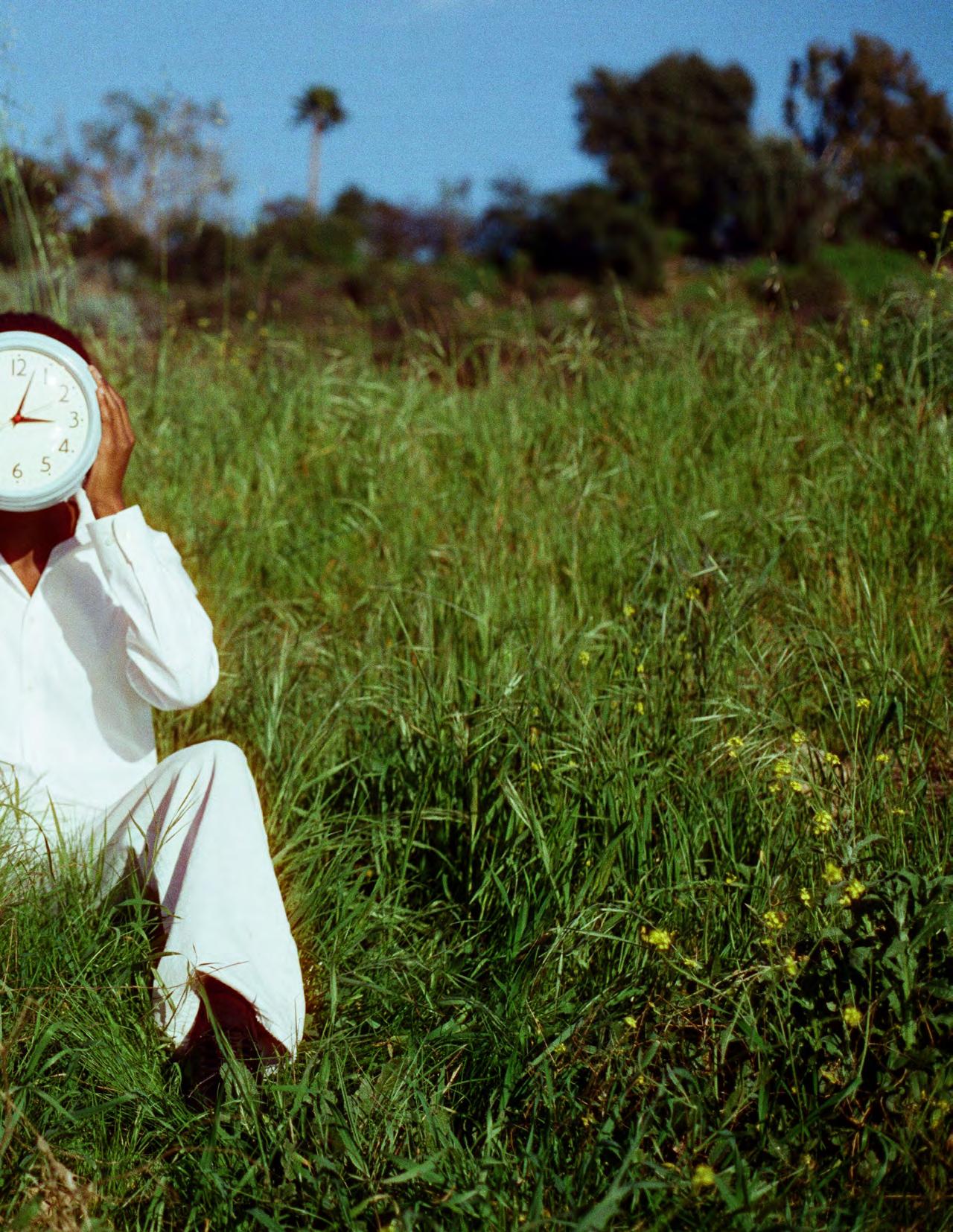
PAST

Days it takes for the Sun to rotate the Earth. It’s 366 days to start anew. Three hundred and sixty-six days to take a chance. Also, it’s the approximate amount of times my dad has retold the infamous Quiz Bowl Story.
Back in grade school, I was selected to compete in my school’s African American Quiz Bowl, where I could go toe-to-toe with students from kindergarten through 12th grade to show my knowledge of Black history. With $100 on the line, which for a 6-year-old felt like a fortune, I knew I had to give it my all to win. I vaguely remember the hours I spent reading the fact sheets each night, burning the names of Carter G. Woodson and Ernie Davis into my head. When the big day came around, as my dad tells it, I moved like lightning. There was almost no time between the end of the question and my hand on the buzzer. There was no time to squander, no time to think.
Although I lost by one point to a team of 12-year-olds, I didn’t lose the spirit that pushed me that far in the first place.
As I got older, I discovered the goals I wanted for myself — I wanted to attend college in California, pursue a career in entertainment and go to law school (in that order). I didn’t put much thought into what would happen if things didn’t work
out, if I didn’t get into the school of my dreams — I didn’t have to. The more time I spent thinking of failing, the less time I had to work to prevent such failures.

But, I didn’t care; I was raised under the principle that hard work always yielded successful results, and it was only a matter of time before my goals were in my reach. This time, my flawed logic proved to be correct: In the blink of an eye, I went from a tired, hungry high school senior to a jet-lagged freshman 2,500 miles from home. I was too proud to admit that the time I spent cranking out college applications while studying for five AP exams wore me out. The next great battle was before me, however, and I didn’t have time to waste. The exhaustion didn’t let up, and neither would I.
10




Kendall Bradwell ‘25 is a business of cinematic arts major, from Upper
MD. She is an avid Barbie doll collector, curating limited edition dolls from around the world.

 Writer
Marlboro,
Writer
Marlboro,
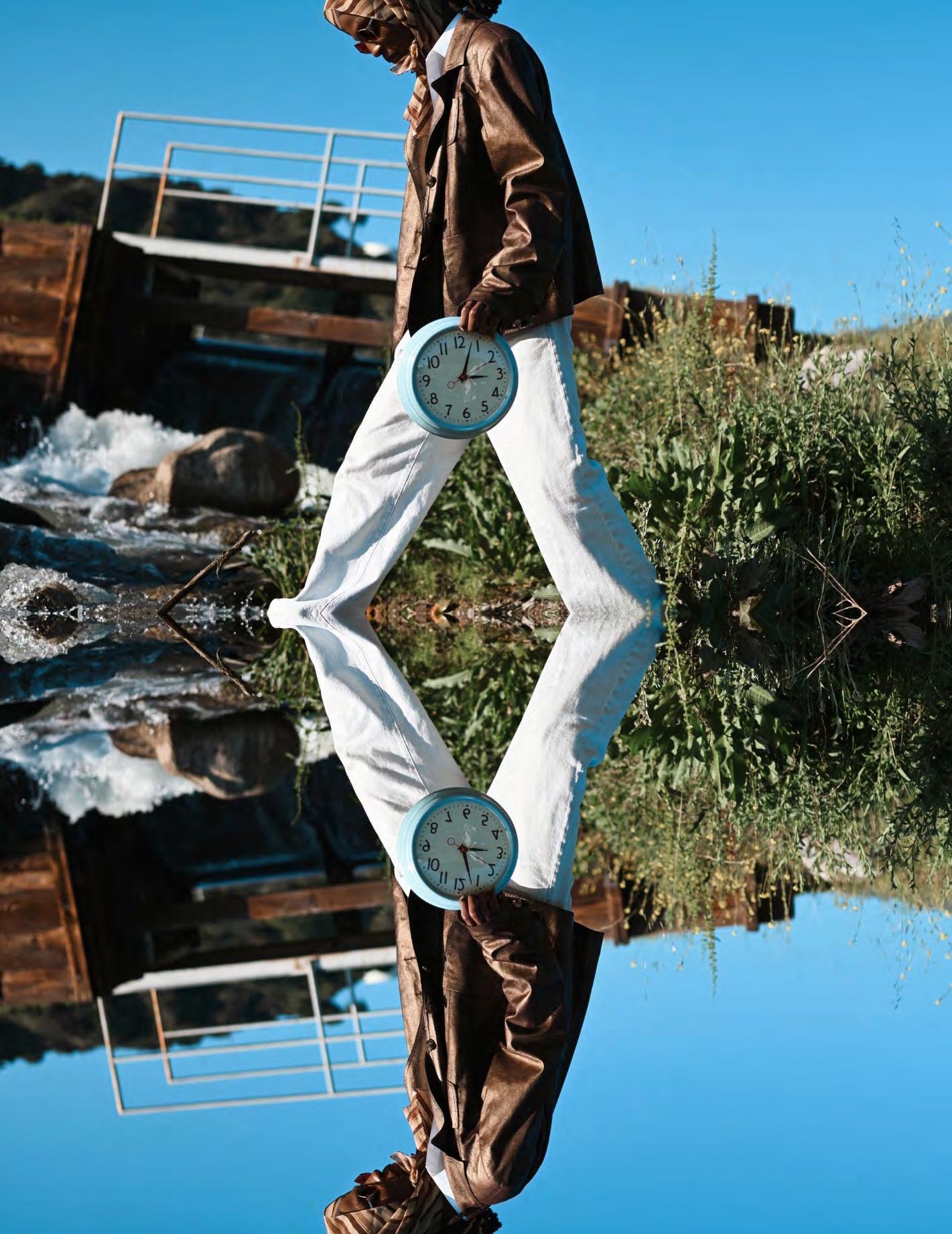
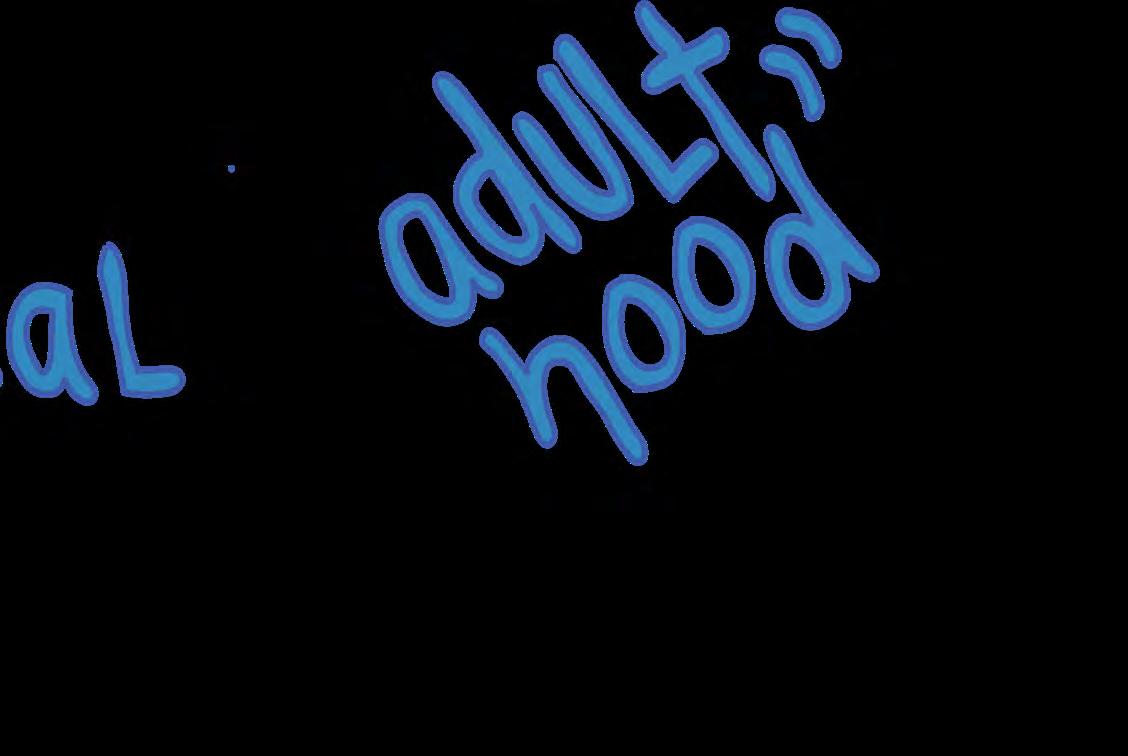 HALF PAST FOUR| Kendall Bradwell
HALF PAST FOUR| Kendall Bradwell


The temperature (by the hundred thousands) of the sun. Makes it pretty easy to get burned.
It didn’t take long for me to learn that succeeding in college was not a test that I could study for. My initial view of university life failed to include 12-hour schedules, piles of exams and the uneasy adjustment to such a drastic change in living. Before I ever got the chance to take a breath, the first year was already over.
I was hurtling towards my new life at a breakneck pace. In just a few short years, I’d be a fullfledged adult, having to fend for myself in the real world. As my time in college continued, the future I had planned for myself began to blur. I no longer desired the career I was deadset on pursuing, and for the first time I could remember, I did not know what direction I wanted to head in. I would soon be thrust into the cold and shadowy unknown, and I felt very unprepared to do so. As the days in college continued to fly by, I craved a chance to slow down.
I ended up getting that chance — just not in a way I expected.

Days added to my time at the University of Southern California.
One morning, about halfway into my junior year, I received an email stating that my expected graduation date moved from May to December of 2025. In that instant, my life finally stopped moving at rocket speed. I was close — almost too close — to the finish line, and before I could wipe the morning crust out of my eyes, the “real adulthood” I started to dread shot back over the horizon.
I took a long, steady breath. Isn’t this what I wanted? A chance to slow down? With this added time, I wondered, had I lost?
The email marked the official death of my original postcollege fantasy. The dreams I used to have were now either delayed indefinitely or stopped in their tracks. Now, instead of a black cap and gown with a big-girl career in reach, I was now relegated to being a super-senior.
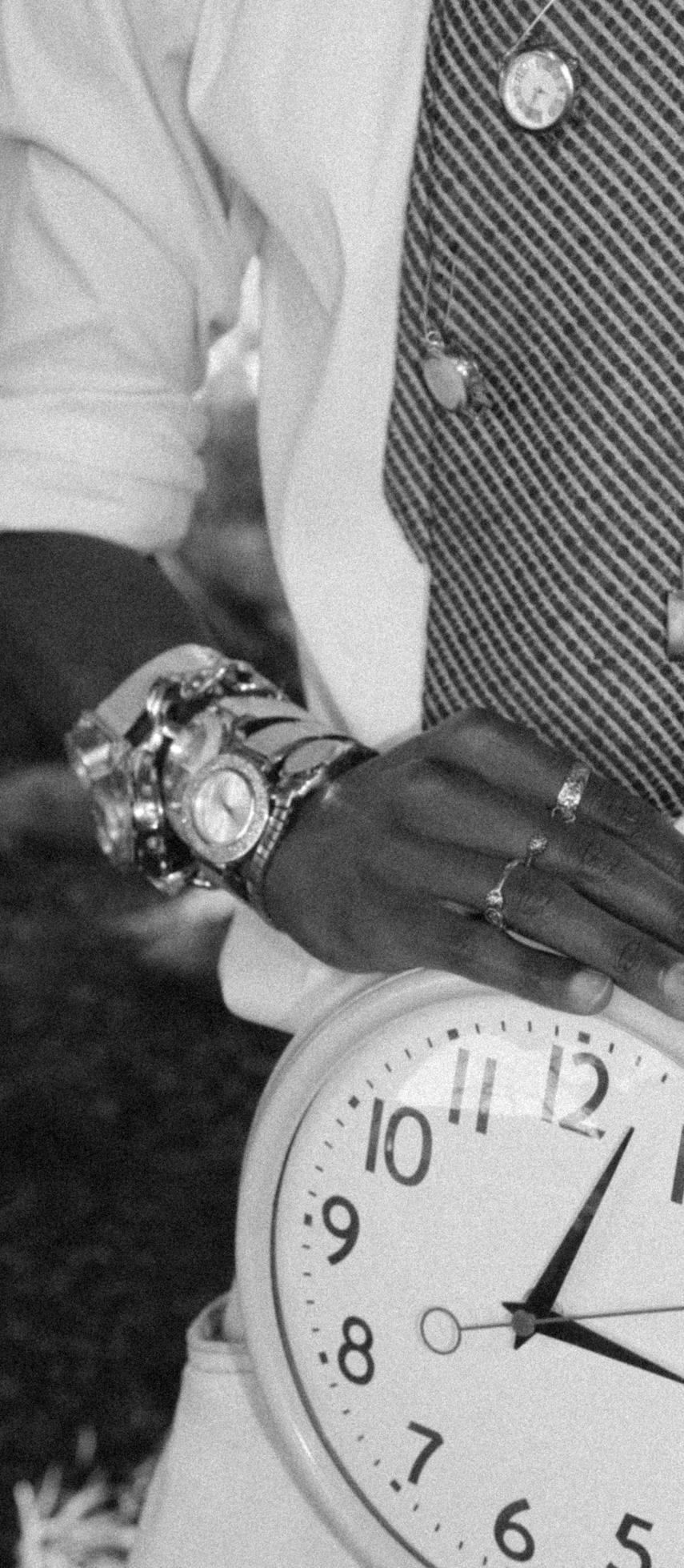

My mind first turned to my friends. What am I going to do when everyone I know has graduated?
Then, finances. How will I possibly afford another semester?
What am I expected to do with seven months, anyway? There’s only two or three classes that I need to take.
Good things came to those who worked for it — or so I thought. Was I not working hard enough?
Was I wasting my time in college?
I gave my all, and what did I have to show for it?
And, the ever-burning question:
What am I going to do now?

Hours in a day. Whether I knew what I wanted to do with my time, or if I was as clueless as ever, these hours would still pass. Eventually, I found solace in knowing the day will always begin again.
After hours, days, and eventually weeks of reflection, I came to a sound, final conclusion about what I am going to do with my additional semester in college.
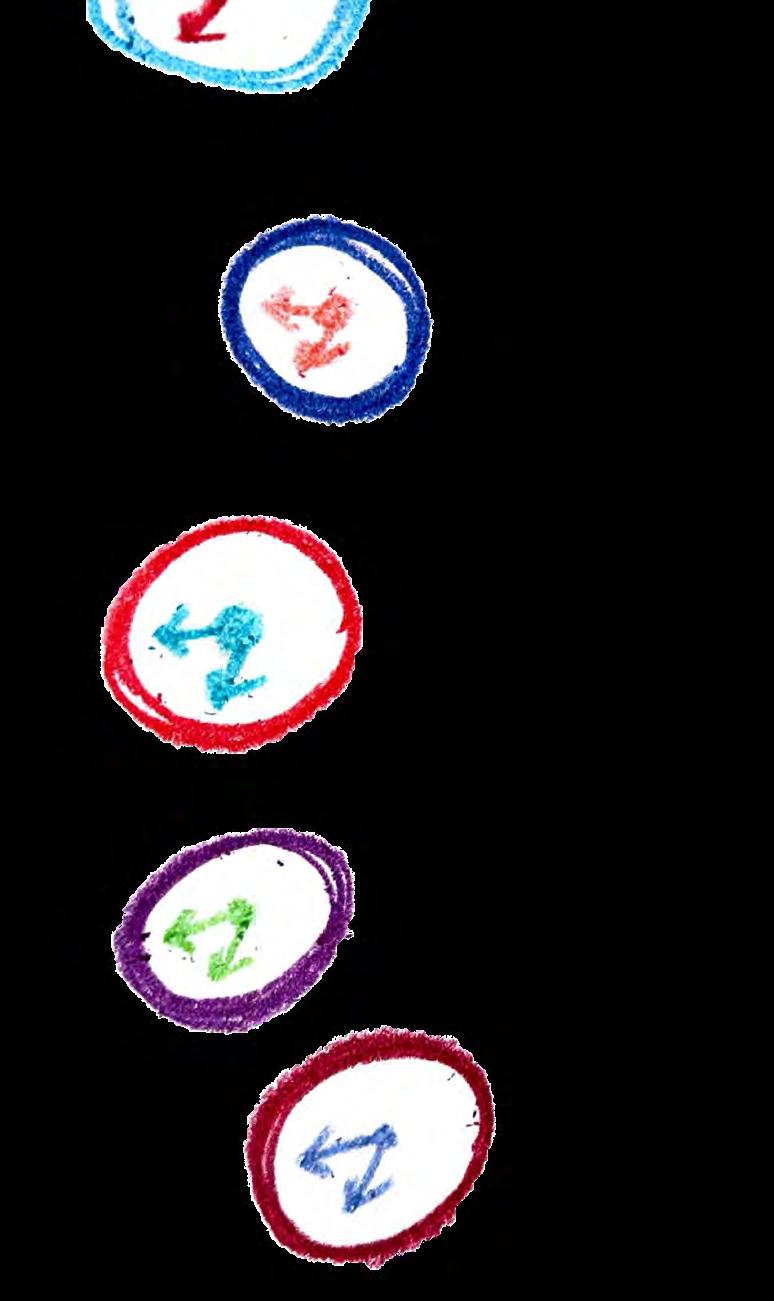
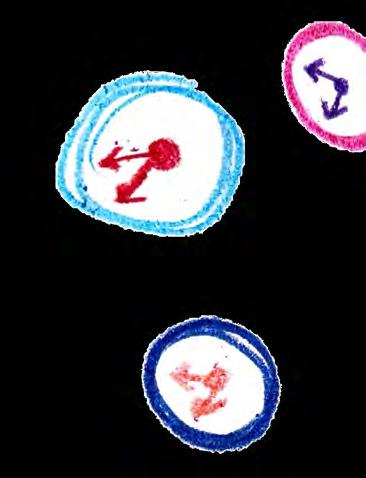


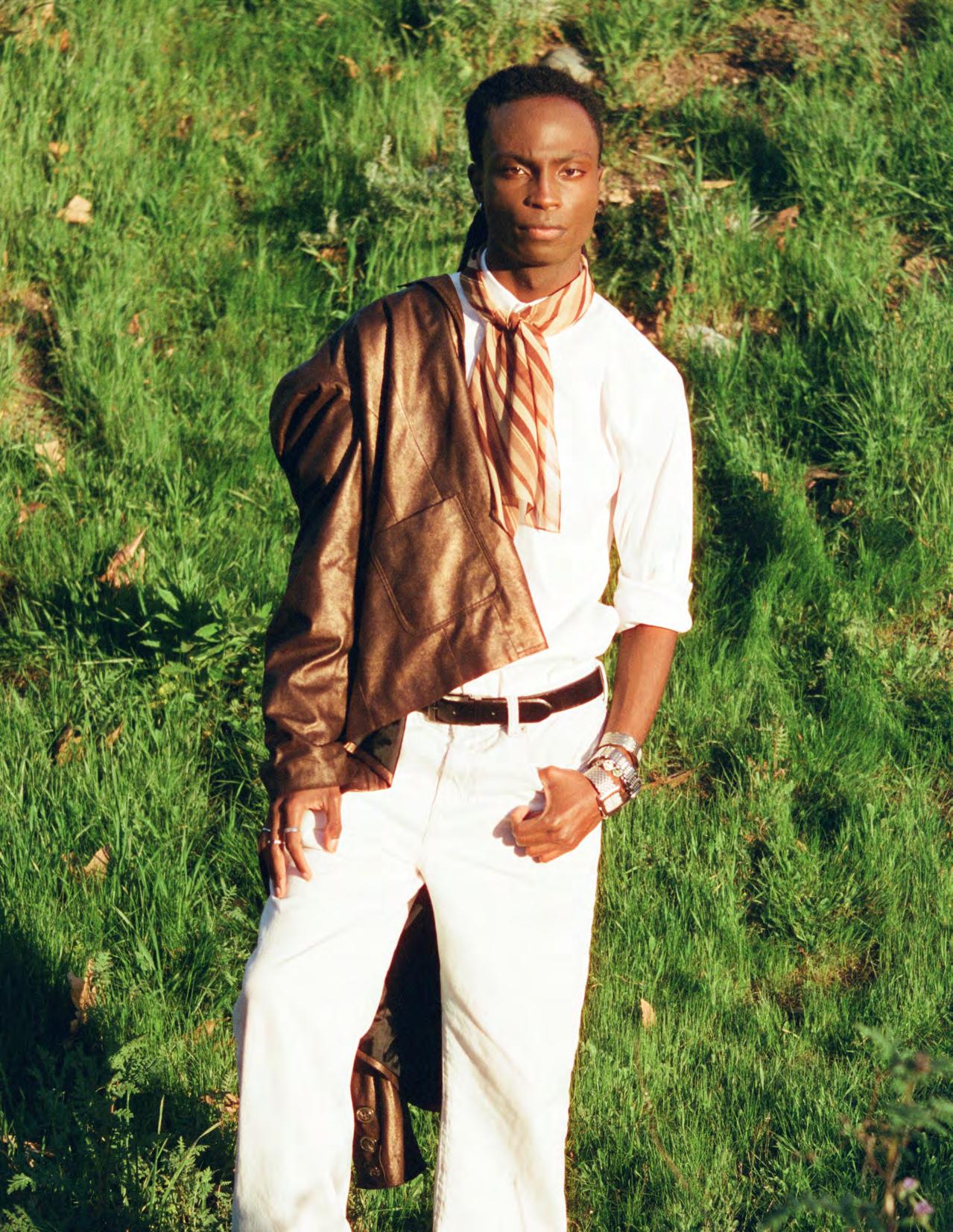 Model Luc Eldridge ‘27 is a composition major from Eastvale, CA. He loves NCT 127.
HALF PAST FOUR| Kendall Bradwell
Model Luc Eldridge ‘27 is a composition major from Eastvale, CA. He loves NCT 127.
HALF PAST FOUR| Kendall Bradwell
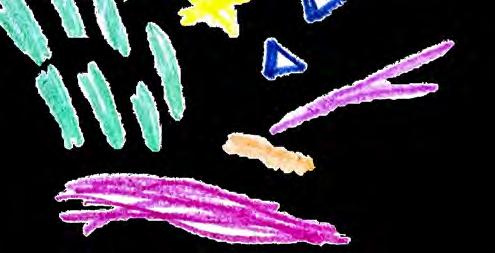
I’m sure that the younger, type-A version of me would freak out if she knew adult-me had no concrete plans. However, I’m starting to realize that the future is inevitable. Whether I were to finish college a semester late or a semester early, college is going to end. However, if we are so hyper-focused on that future, we forget to live in the present.
As children, we had a romanticized picture of what adult life was going to be like. We looked at the adults in our lives and idolized them. We watched romcoms and sitcoms, waiting for the day when we could live in a picturesque high-rise apartment building with all of our best friends, falling in love and pursuing our dream careers. After growing up, however, it became clear that no adult truly knows what they are doing — they just may be good at hiding it.
However, I’m learning to embrace the unknown, as anxiety-inducing as it may sound. I understand the pressure to have it all together as soon as possible, but we really have so much time to figure out what’s up next. Finding your dream job or discovering your passions is not the race against the clock that we are conditioned to think it is. Sure, it may be nice to have solid life plans by the time you’re 22, but there are plenty of people who are 25, 35, and even 45 who are still discovering who they are. The clock doesn’t run out when we graduate college; in truth, it’s just the beginning of our adult journey.
I realized that I wasn’t wasting time because I won’t finish college in the expected four years. Instead, I was wasting my time by looking at life years at a time, instead of taking everything day by day. By keeping my eyes focused on the future, I failed to take advantage of the present.
There were so many laughs I missed, mistakes I didn’t make, and opportunities I did not take advantage of. The sun has set on those days, but there are a lifetime of sunrises to make up for it.
Now, I view this extra semester as a chance to take a breath and enjoy what’s around me; instead of preparing for the hardships of adulthood, this is the time I can actually enjoy just being. Not a kid anymore, surely not a full fledged adult, and no longer a workhorse — just a person.

Words from my dad.
“Enjoy the journey.”


16

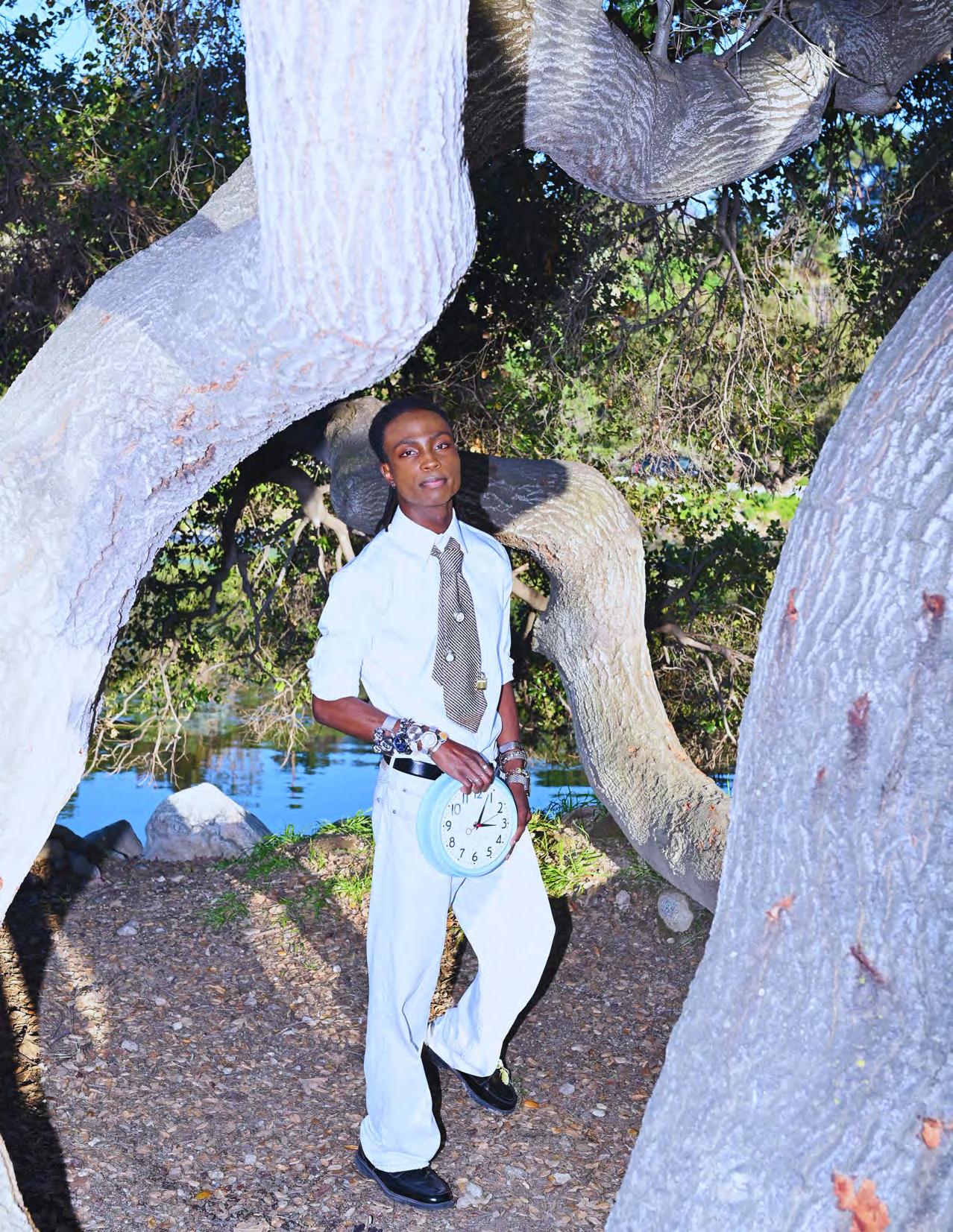


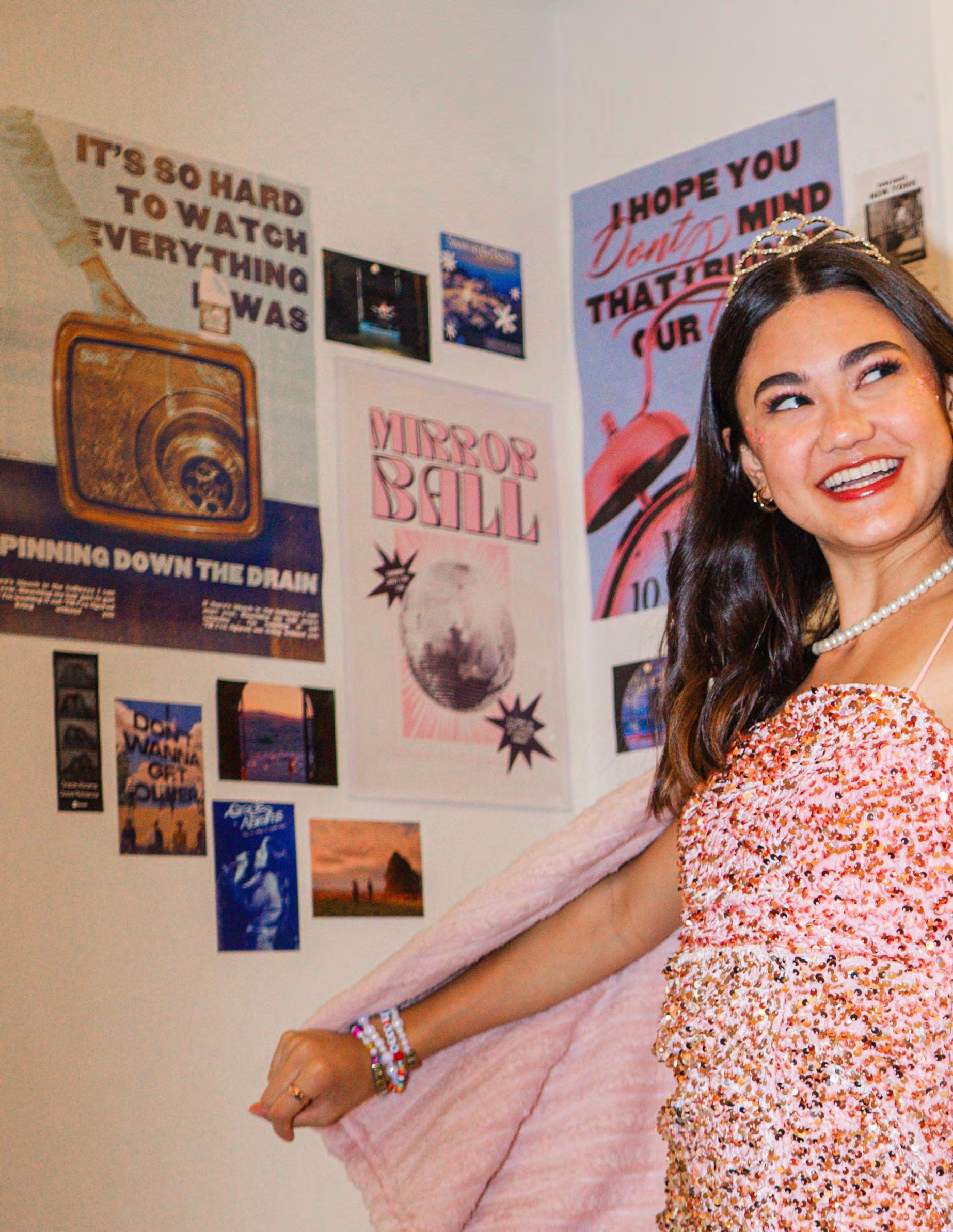
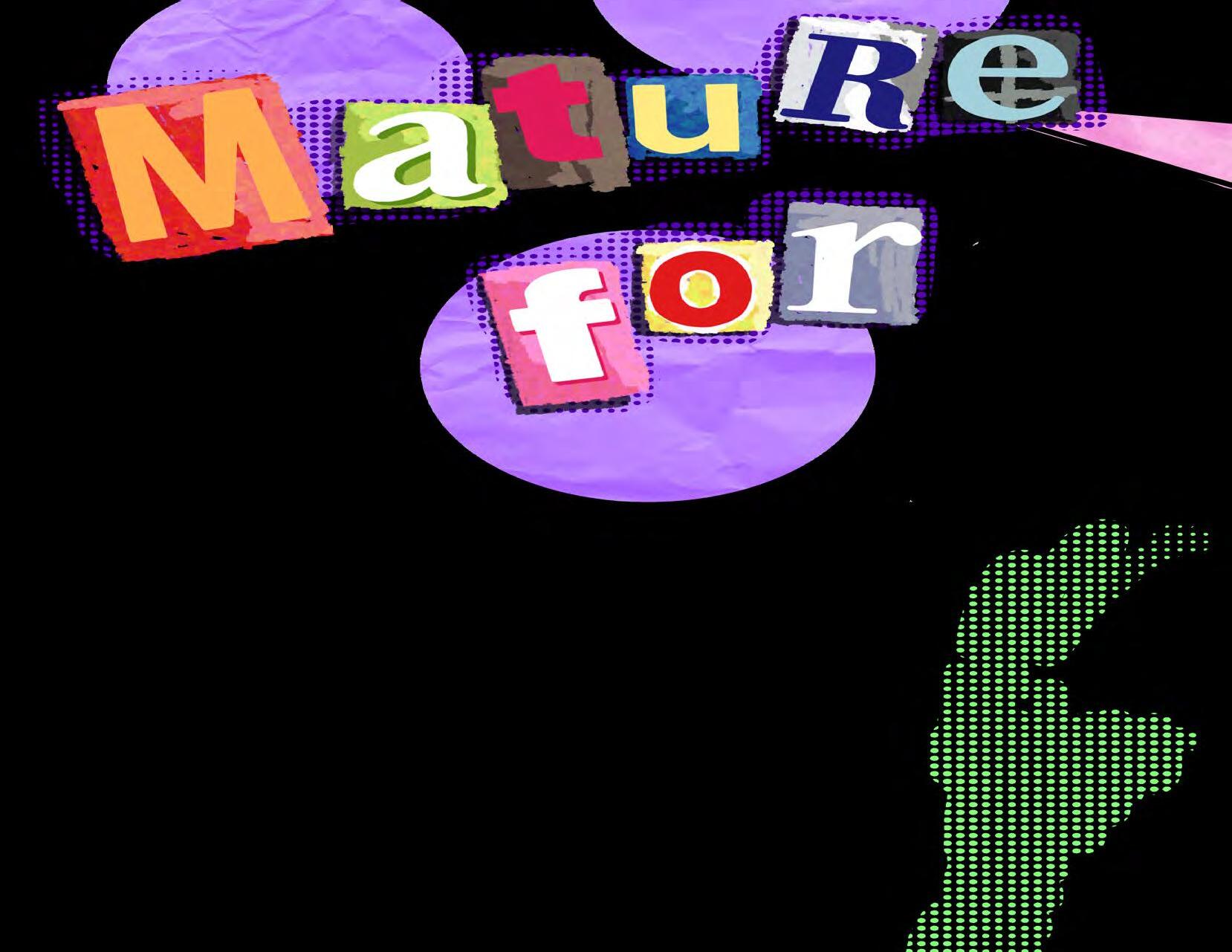


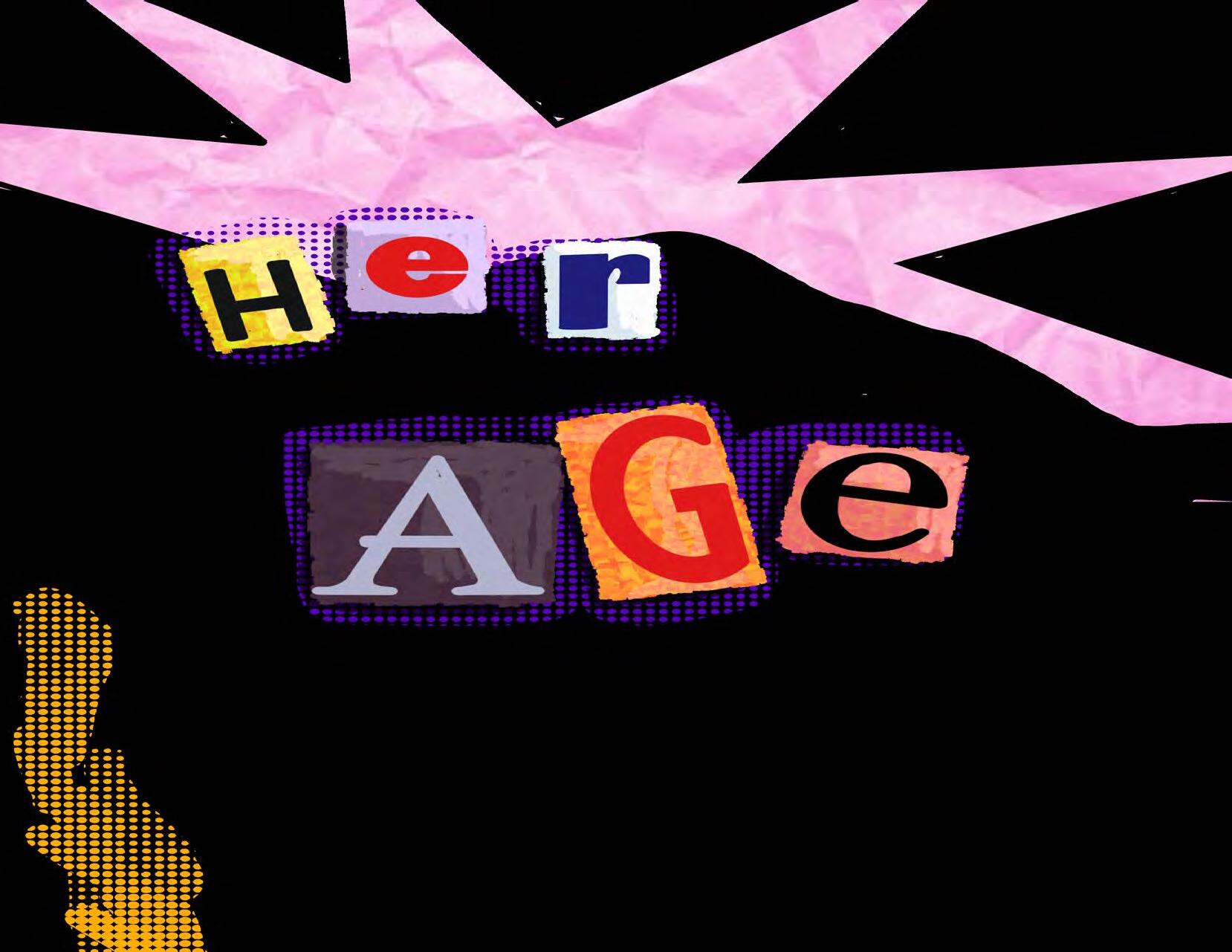

when I was little, an age where growth was only measured by notches carved into a wooden door frame and not as a self-care buzzword, I had this giant, pink plastic vanity. With a plastic eyeshadow holder. And plastic lipsticks and glosses. And, of course, a plastic stool for me to perch on and pretend to cover up pores that still existed and eye bags that drooped only from staying up late to finish “just one more chapter” of a “Percy Jackson,” “Magic Treehouse,” or “Harry Potter” book. I spent hours transfixed by my reflection at the mirror — which was actually a reflective sticker that was already peeling from the edges when it was purchased — and closely examining how I could make every inch of my blemish-free existence better.
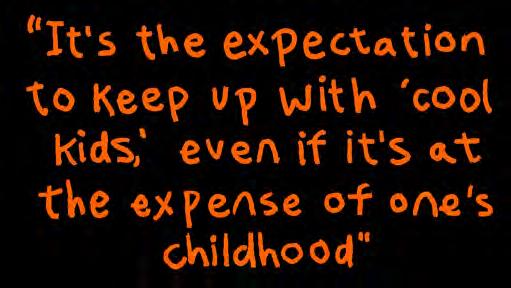
It didn’t stop there. With my Barbies, and the narrative help of my sisters, I would quickly weave make-believe stories infused with cooler, “older” — whatever I thought that word meant at the mere age of seven or eight — plot lines. Barbie prom night, Barbie car crashes, Barbie murders (thanks to an early exposure to just about every CSI show that airs on television due to my mother’s love of them), Barbie infidelity, Barbies making out, Barbie’s first realization that she has a severe fear of emotional vulnerability. If it was melodramatic enough, my sisters and I fashioned new Dreamhouse tales rooted into reality, all from the safety of our pink and purple wallpaper laden bedroom.
There were tiptoes on the master bedroom tile to sneak into my parents’ closet and haphazardly throw together outfits of my mother’s long black dresses, which were three times longer than myself, and my father’s ties, which I threw around my neck like a scarf. There were red stiletto cat walks, but only on the carpet and with my sister in close sight. Wearing Oxford shirts — wrinkled from hugs upon arriving home — and examining myself in a long mirror, I wondered if I would ever have a job important enough to justify such an important-looking shirt.
Yet, when one does a quick scroll through social media, the plastic vanities are days of yore. Instead, young girls are finding joy in a different form of plastic: Drunk Elephant
Sunshine Drops, Dior Lip Oil or Sol de Janeiro Brazilian Body Mists. The act of playing dress up is now brought to life by accessing a family’s Amazon Prime account, begging for a Skims body suit for the holidays and lamenting poor weather because it means Uggs are out of the picture. The desire to be older and cooler has still remained prominent in feminine cultural consciousness, but it’s just shifted to adapt to what that looks like during the age of the internet. It’s because an adult calling you “mature for your age” after making a particularly snarky quip for a kid is no longer a badge of honor, it’s now an expectation. It’s the expectation to keep up with “cool kids,” even if it’s at the expense of one’s childhood.
But, somehow, magically between scrolls of 8-year-olds walking you through their “GRWM for the First Day of Third Grade” is a plethora of 20-something-year-olds putting bows on just about anything in sight, from hairstyling to martini glasses to birthday cakes to tights and everything in between. Apartment decor is various hues of pink, including couches and dinnerware. There’s a renewed interest in the media from our childhood, the most prominent and successful example being “Barbie.” The older generation, the one that used to crave being the age we are now, have found the older, cooler versions of themselves and are becoming completely disillusioned.
Why are 20-year-olds returning to our plastic pink vanities? Maybe it’s because the pandemic stole the end of our high school years, the final moments we were supposed to spend playing outside with our friends and instead were encouraged to stay inside to avoid detrimental effects. Our final venture at “dressing up” for prom turned into silent discos at an arm’s length. Maybe it was being thrown into reckoning with politics as elementary school students by performing monthly active shooter drills; silent reading time warped into silent hiding under your desk in case you and your peers risked becoming just another statistic. Maybe it’s the mental crises many of us grapple with on a daily basis; our coming-of-age lacked the charm it has in movies, but it did feature long periods of holing up in our childhood bedrooms, watching early daylight creep through our windows after yet another sleepless night.
20
Writer Izzy Ster ‘25 is a screenwriting major with a minor in comedy from San Diego, CA. She can bake awesome brown butter chocolate chip cookies.
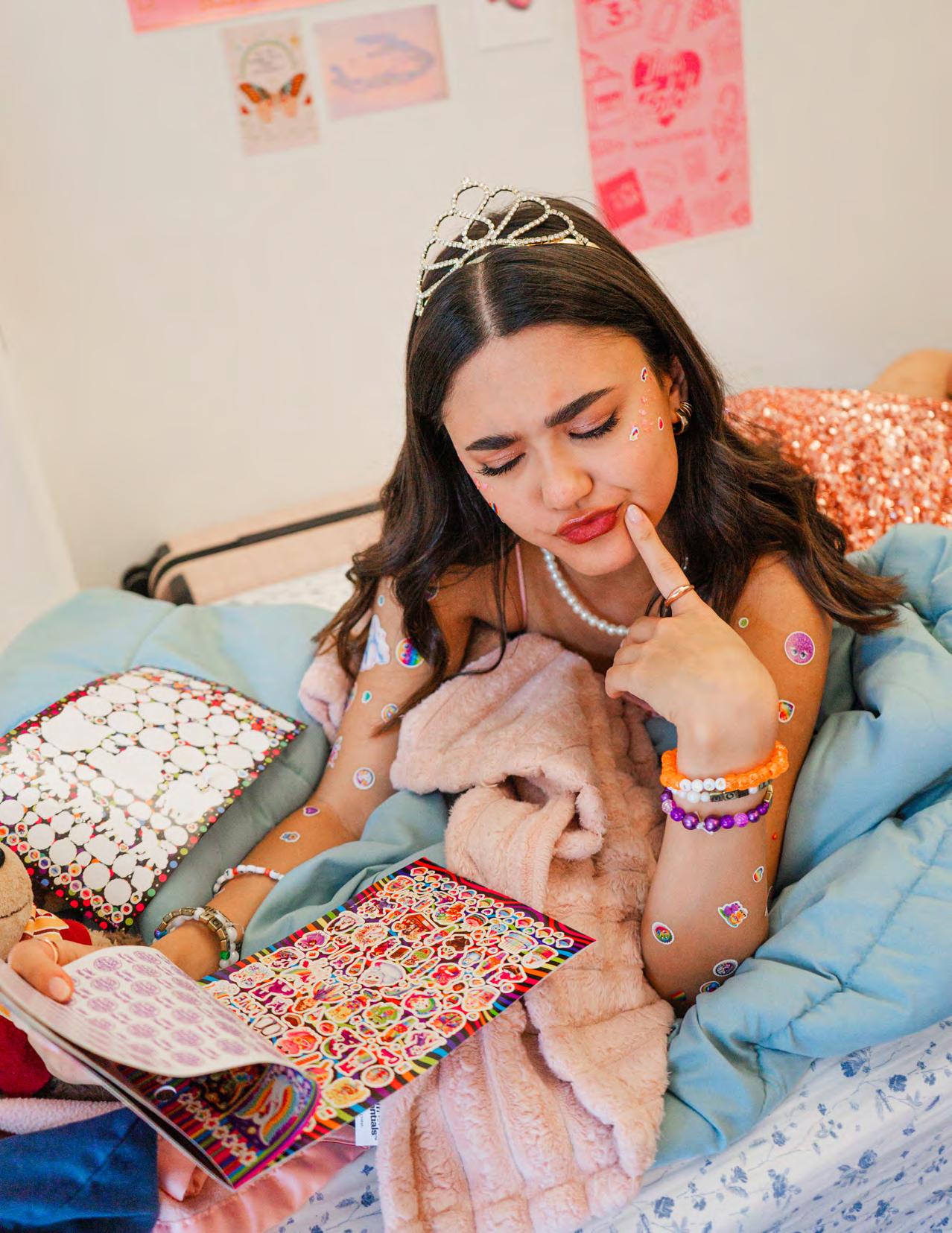
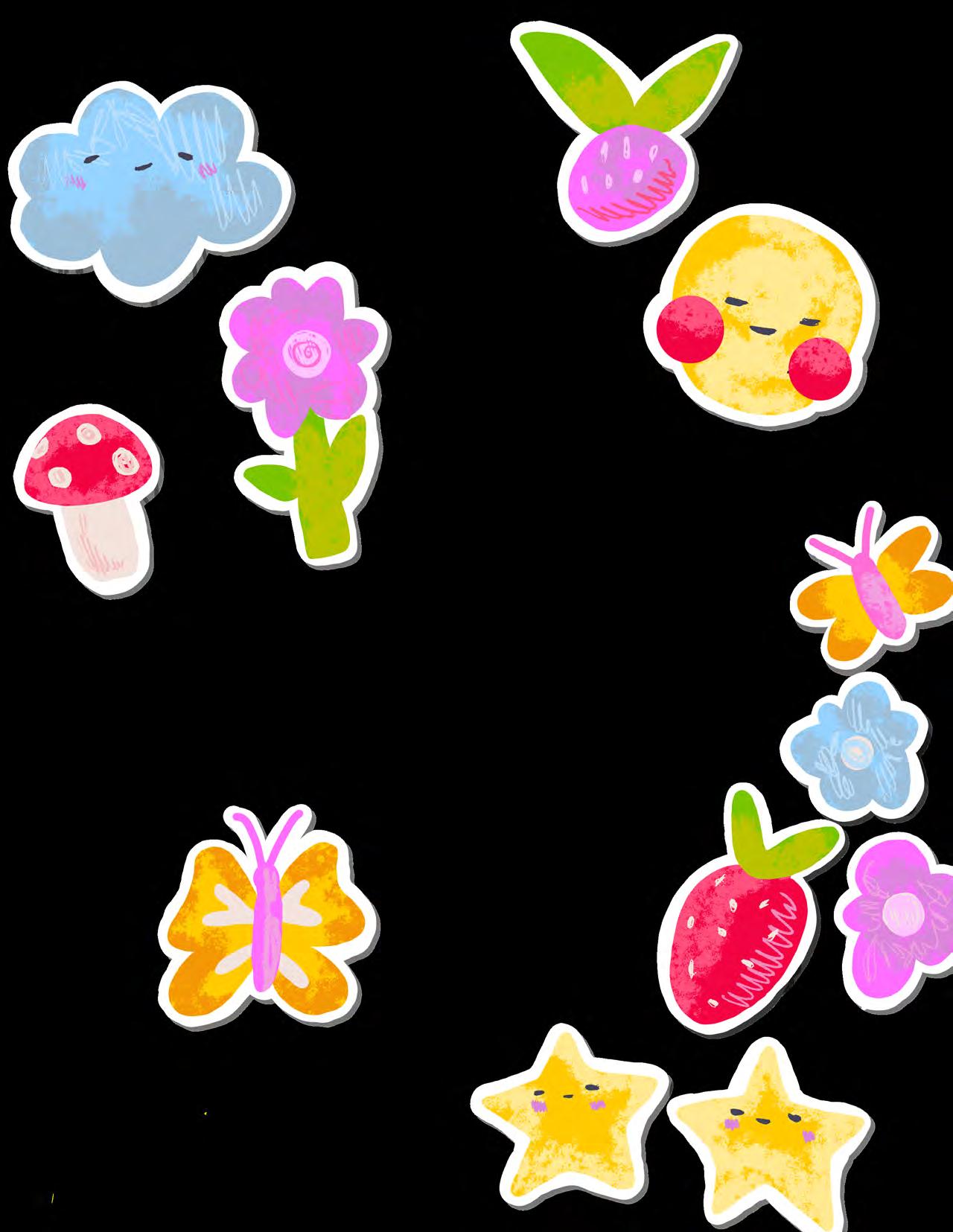
MATURE FOR HER AGE| Izzy Ster
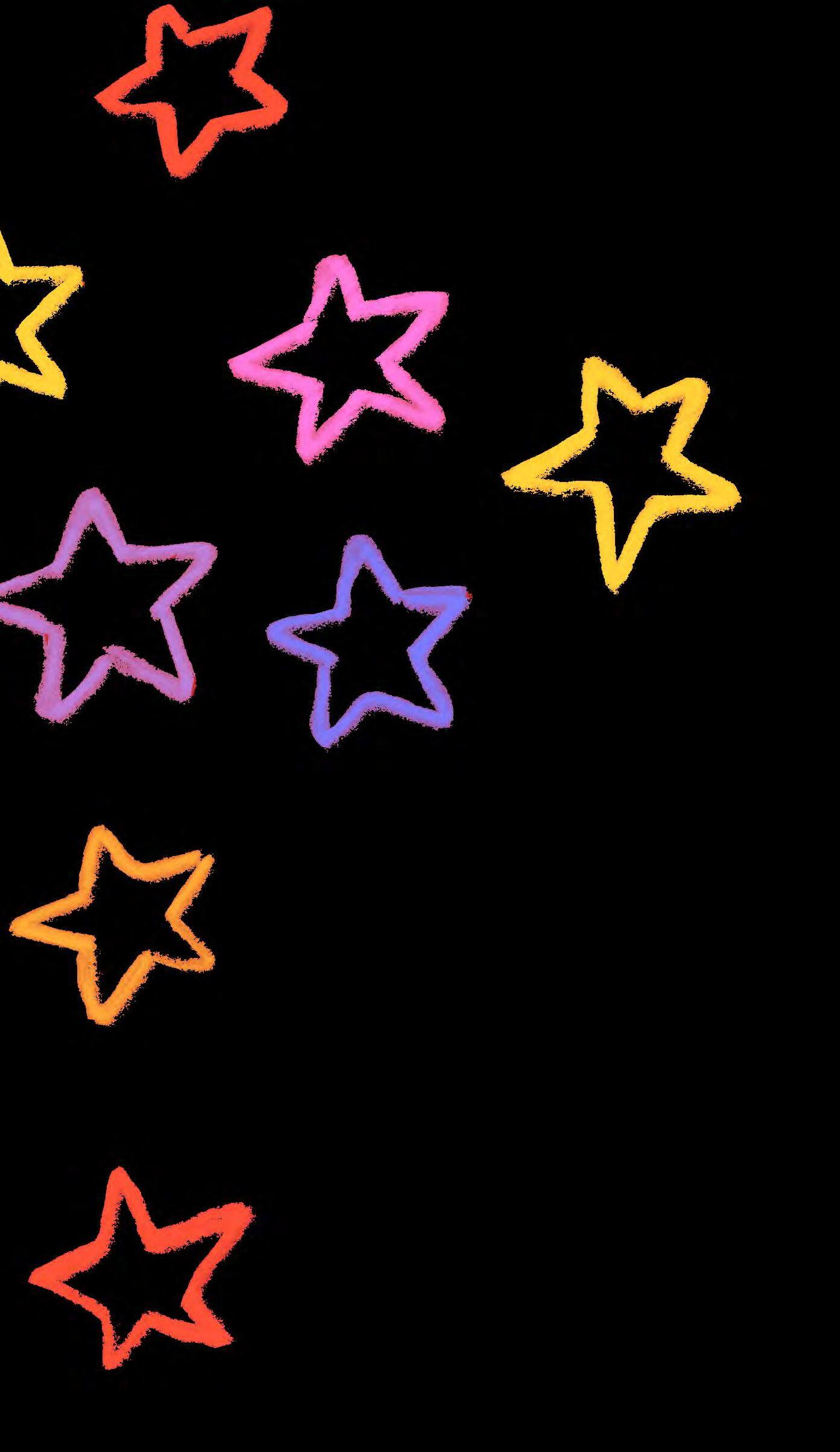



As each generation collects a more intense and expansive accessibility to the internet, keeping up with trends and global news at the swift swipe of our fingertips, we crave the childhood we lost. We crave that age where putting on lipstick was a luxury and a very grown-up way of trying to color inside the lines.
There’s a sense of intense FOMO, and not from some party we weren’t able to go to, but for an entire period of life that our generation skipped. For myself, after becoming used to Zoom introductions and facial coverings, this introvert now forces her limbs to adorn an extrovert persona. I often socially burn myself out at the opportunity to spend time with friends, since being in the presence of other humans still feels like a novelty. For my 21st birthday, I chose a prom theme as a way to recreate the memories that were lost. I suck on sour candy, one of my favorite snacks as a young girl, just to avoid panic attacks in campus bathrooms, hoping desperately that the tang shocks the fervor out of my bones.
There are times I think back on who I wanted to be as a kid, remembering the following anecdote my parents still laugh at: At a first grade class party with students and parents alike, I approached a father, and, in a feeble attempt to mock what I believed adult conversations to entail, asked him, “So, what do you do for a living?”
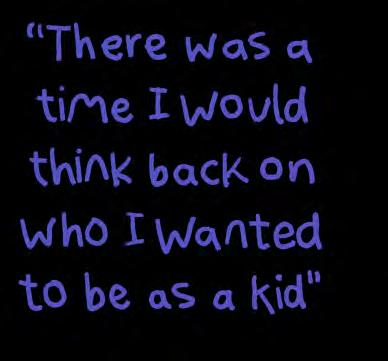

There are times I want to go back to every adult that told the younger version of myself, “You’re mature for your age,” and shake them, implore why they didn’t warn me to play outside more, cling on to my favorite American Girl Dolls and keep building whatever my heart contented with Legos and Tinker Toys. It’s so obvious to me now, but I know little Izzy wanted nothing more than the average Monday I have now: Putting on a plaid blazer (quickly smoothing out wrinkles with my hand from it being crumpled in the back of my closet), slipping on heeled loafers (while praying the whole day I won’t trip
23

on stairs), making a coffee (the caffeinated beverage I forced myself to like in high school to get through a particularly excruciating algebra midterm and now depend on), and beginning my morning commute (without my dad dropping me off this time).
It’s this dichotomy that demonstrates an inherent discontent between ages: The young want to be old, the old want to be young. In a sort of cruel irony, the childhood heirlooms we crave from our youth are being overlooked by children for internet trends. There’s the ache in the bottom of our hearts to be the child playing dress up, settling for putting bows at the ends of our braided pigtails to tie us to our past lives. It’s difficult to not look at young girls now, who praise Sephora as a god, shake our heads and wish they could realize what we know and force them to grab onto their childhood before it slips like sand through their fingers. We’ve known lost time. In a generation forced to grow up too fast, we now long to shrink back into the smaller notches on a wooden doorframe.
 Model Thomazin Jury ‘25 is a theatre major from Iowa City, IA. She is an amateur chef who loves to cook and try out new recipes.
Model Thomazin Jury ‘25 is a theatre major from Iowa City, IA. She is an amateur chef who loves to cook and try out new recipes.
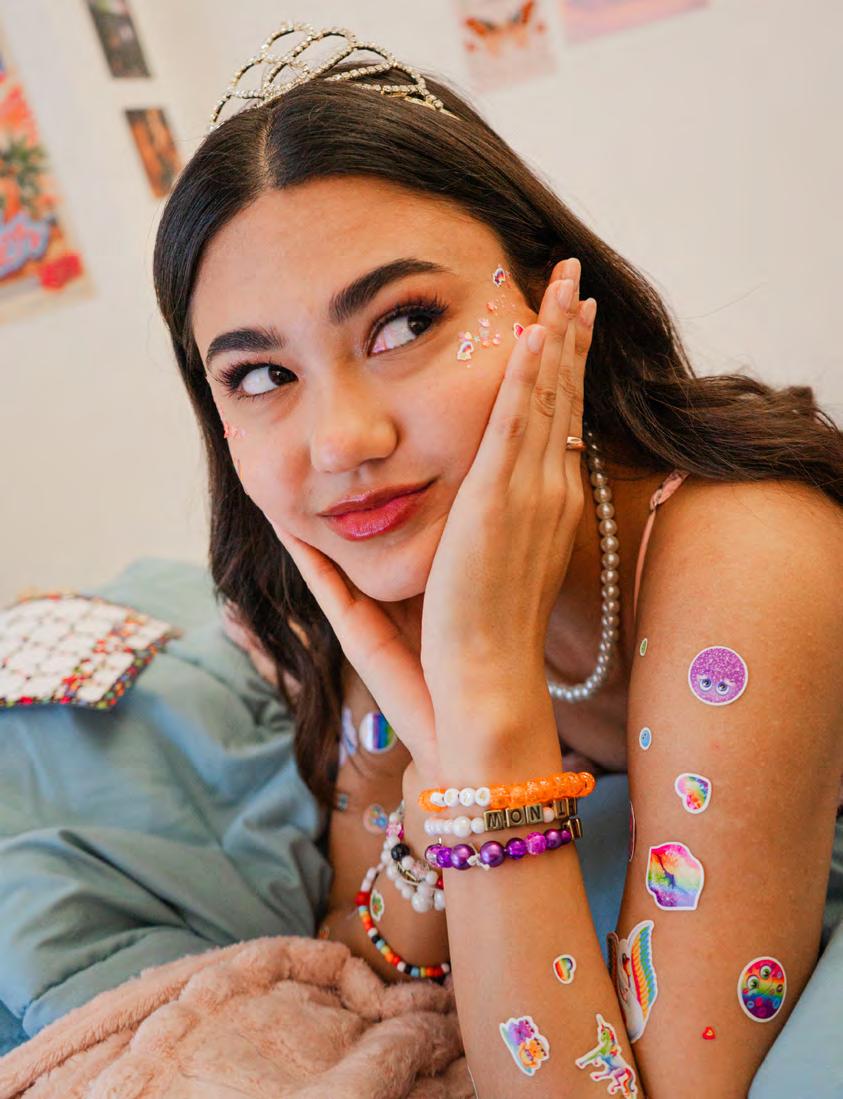
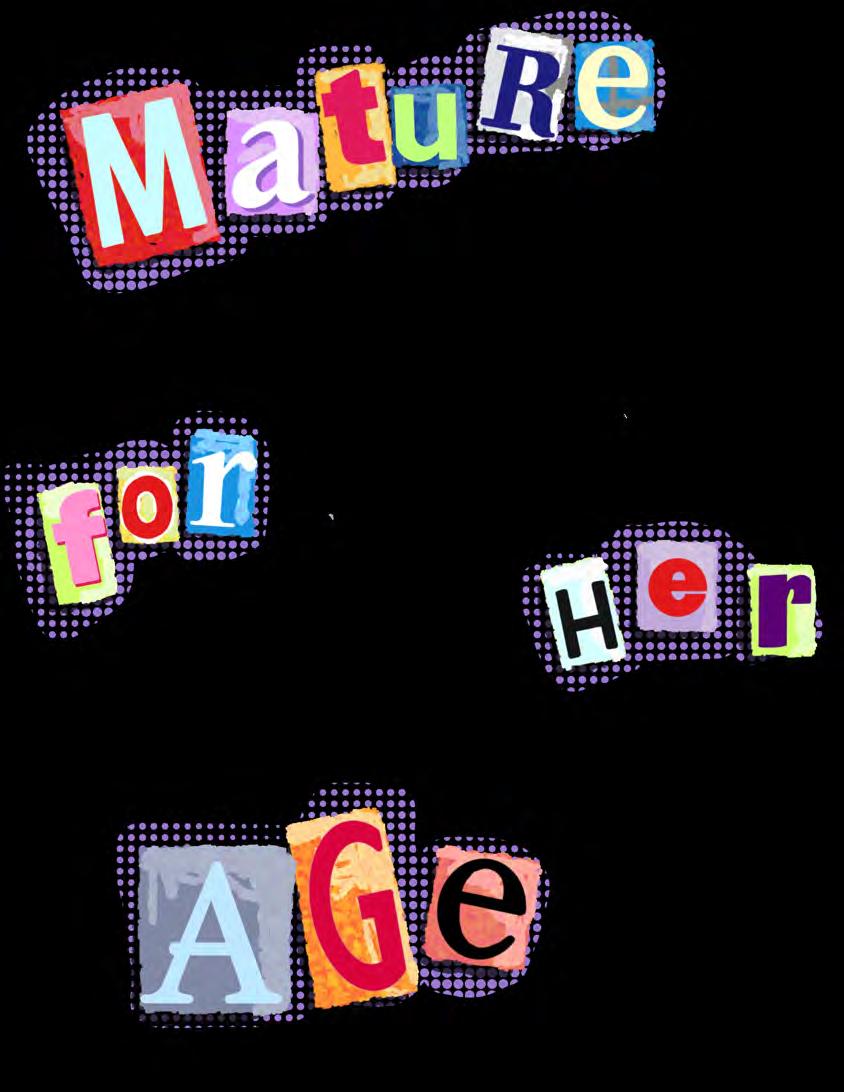
25
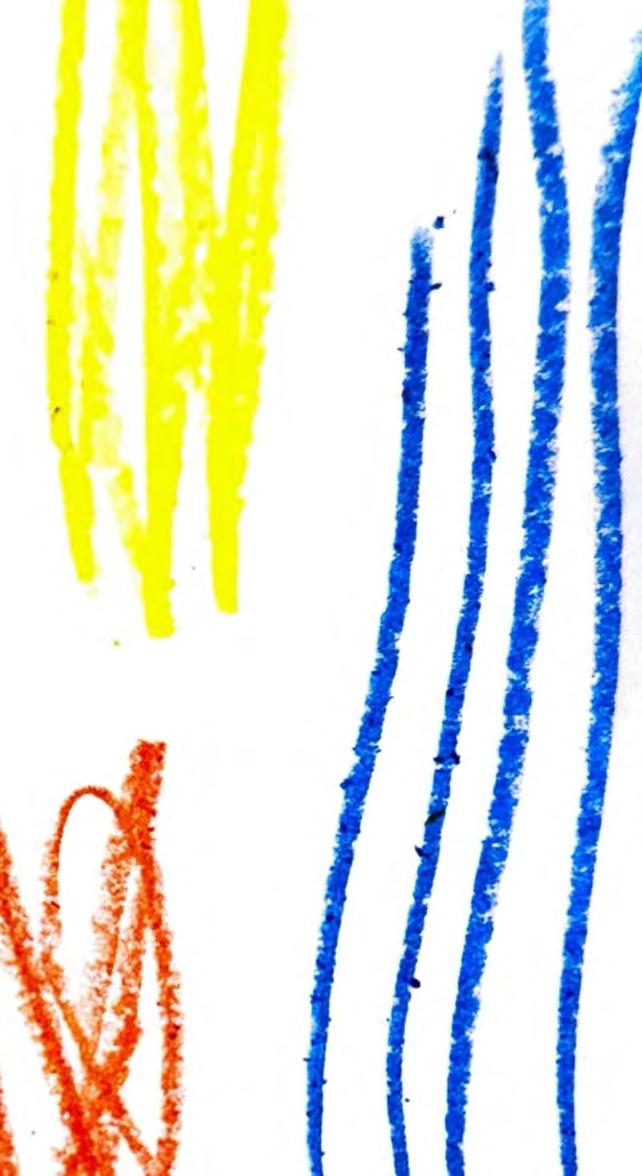
5
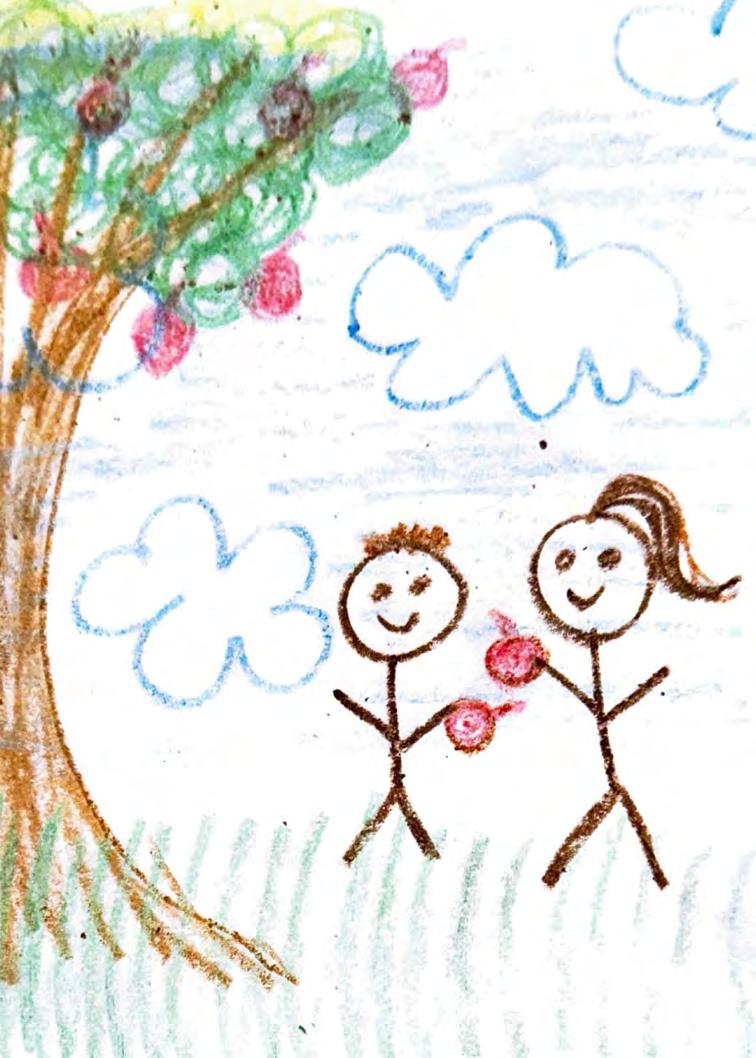
scene magazine Issue five
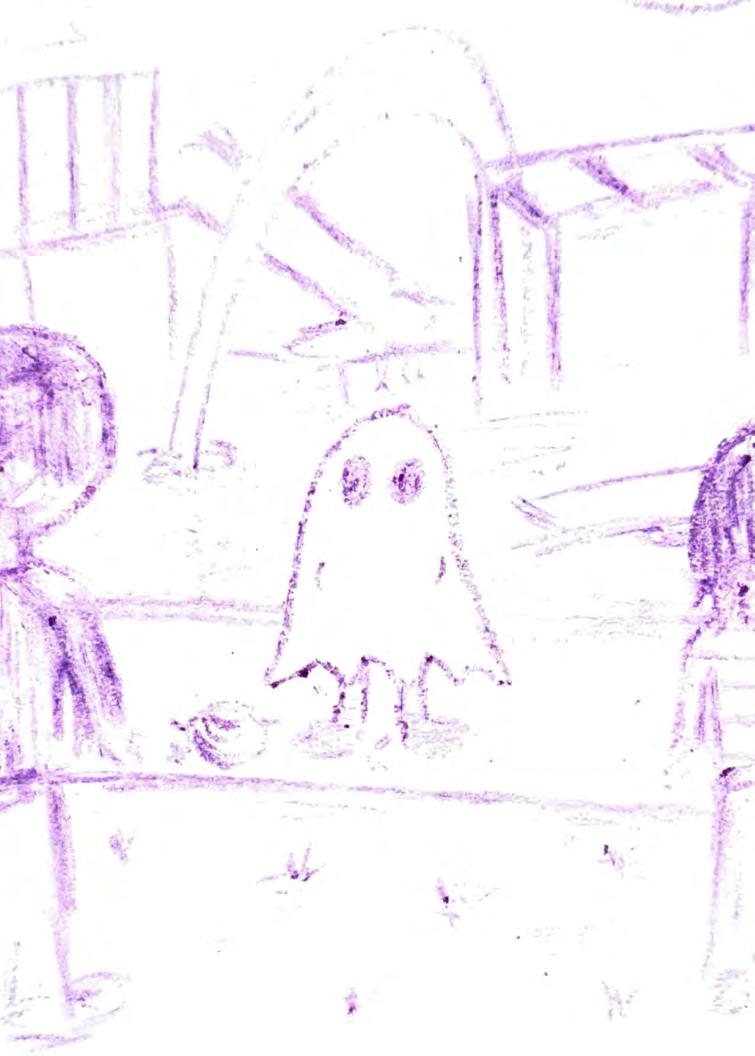
27
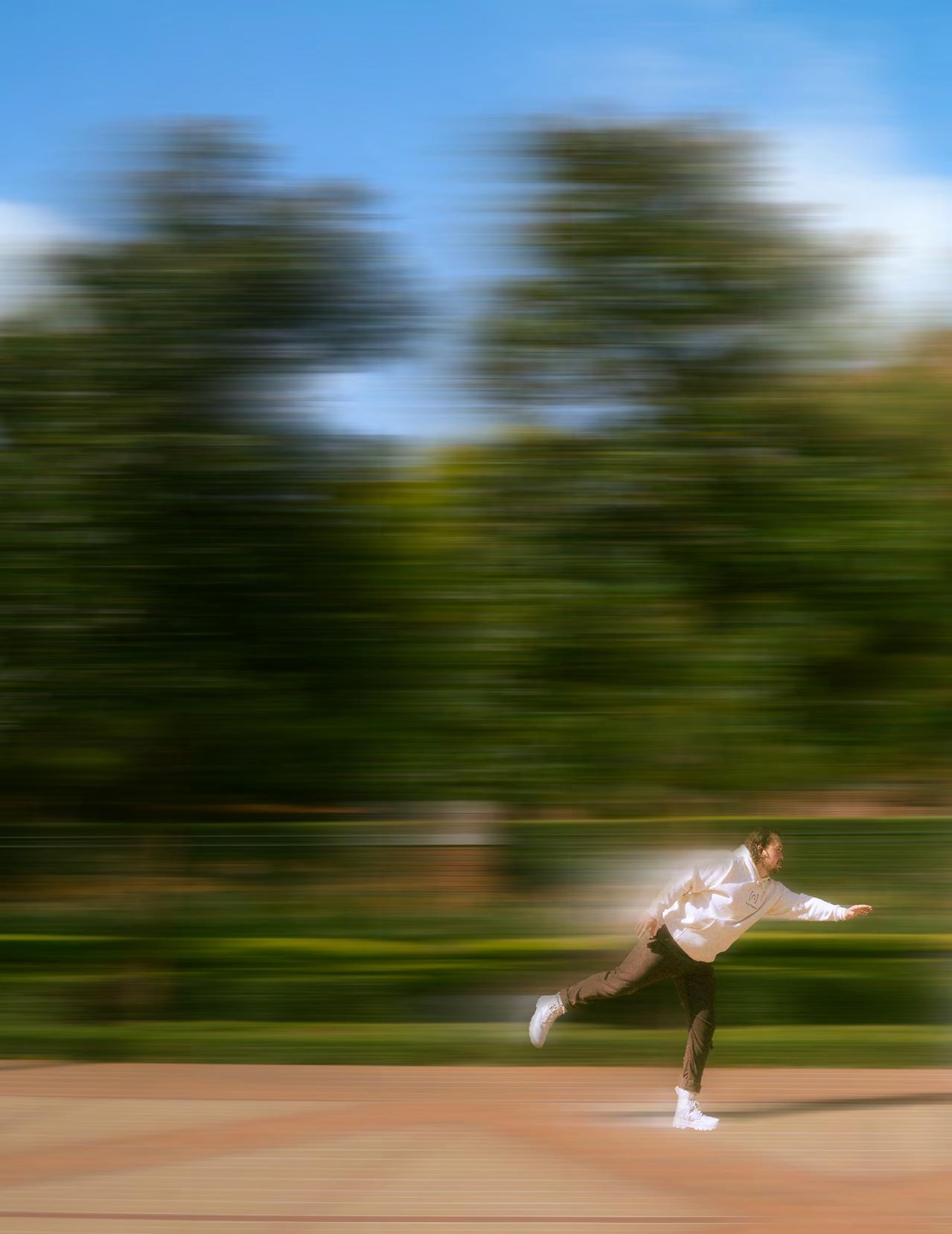
B SS THIS
WRITTEN BY PHOTOGRAPHED BY
DESIGNED BY
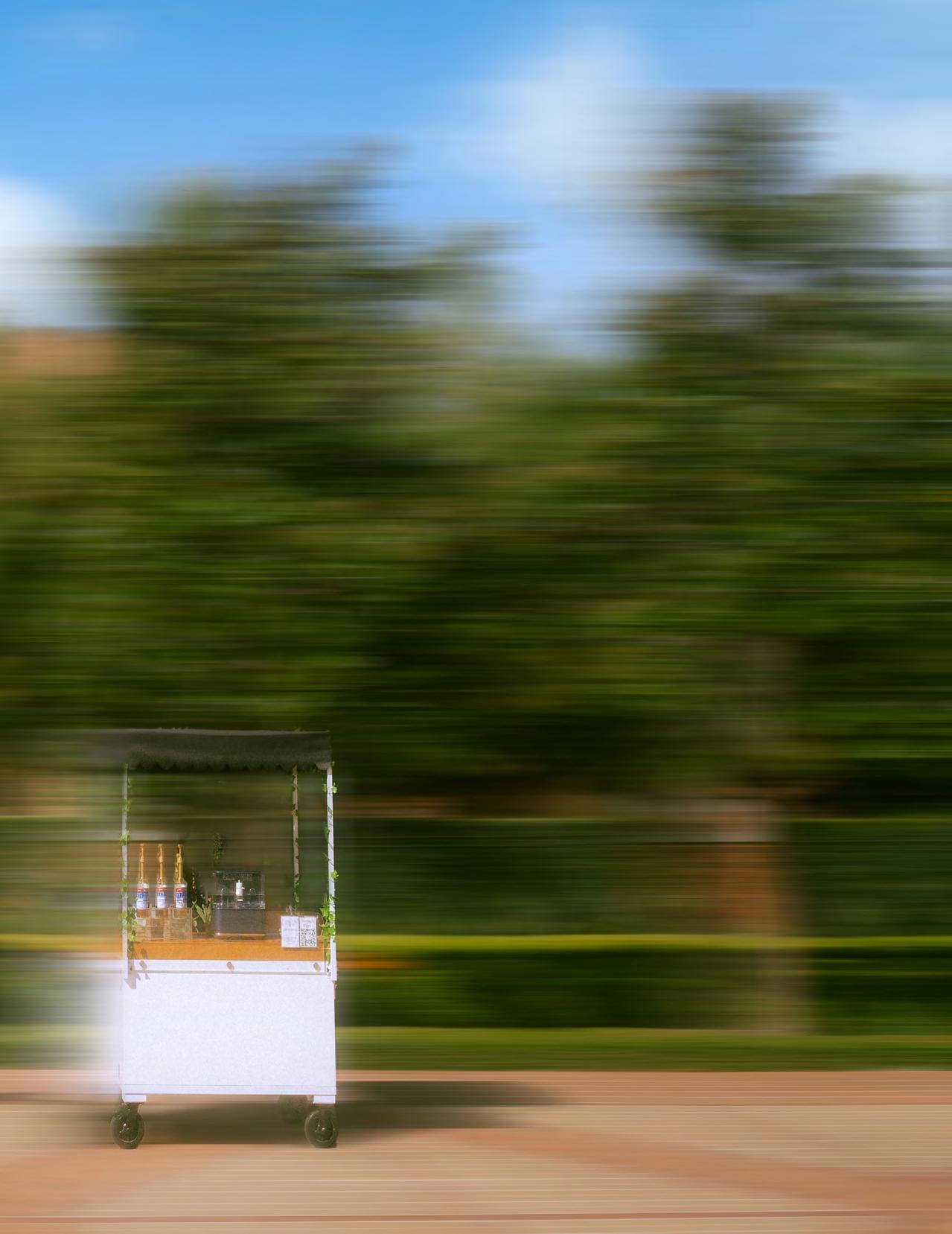
SPILLS THE BEANS

not JUST JUSTIN.
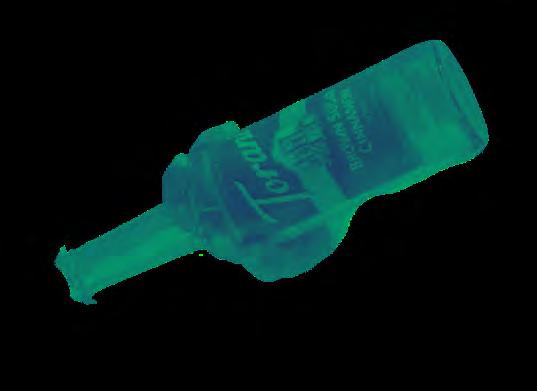 Interviewee Justin Solomon ‘25 is a business administration major from Penfield, NY. He loves Star Wars.
THIS BOSS BABY SPILLS THE BEANS| Julia Zara
Interviewee Justin Solomon ‘25 is a business administration major from Penfield, NY. He loves Star Wars.
THIS BOSS BABY SPILLS THE BEANS| Julia Zara
One hundred pounds of caramel, hazelnut and red velvet syrup sit in sock drawers. Milk crowds out the fridge. Beans bounce in bags atop a bookshelf. And a large coffee cart camps in the middle of an apartment room.
Justin Solomon literally lives in his business.
“I feel bad for my roommate. What used to be my display of trinkets has become my s—t show of coffee beans,” he says.
Every Monday, Wednesday and Friday, one can find Solomon — a senior business administration major — perched on Trousdale Way, tamping coffee grounds at an espresso machine. Solomon is the founder and president of Eruta Nature, an eco-friendly coffee cart lined with green ivy vines, that had its start last August.
Since founding Eruta, Solomon has practically mastered the craft of making coffee; with 1,500 sold lattes behind him, he has the milk-to-coffee ratio just right. But, as a young entrepreneur, he tells me that finding the perfect work-life balance doesn’t come so easily.
We’re outside on the Annenberg patio meeting for — you guessed it — a cup of coffee. It’s a typical day in Los Angeles: Sunny and 70 degrees. He arrives late to our interview, but only because he couldn’t help but stop and pet a large fluffy Samoyed dog with a birthday crown in the USC Village. A true East Coaster, he dons a blue Vineyard Vines sweater as he places my kryptonite, an iced almond milk latte, before me.
free time is not going out, hanging out with friends. The majority of it is contacting people to get loans and investments. There’s a lot of rejection. I’ve had to get super comfortable with rejection,” he adds.
College is overwhelming enough as it is. One is not quite young enough to be considered a kid, yet not old enough to be an adult. So, at a time when no one takes 20-year-olds seriously enough to spare them an internship — but, yes, rent is still due on the first of the month and parking is an additional $500 — how does a young man reckon with the very adult world of business?
Well, for Solomon, ordering from the kid’s menu is off the table. In fact, sometimes he feels like he’s bitten off more than he can chew. The 22-year-old C.E.O. says that while being a young entrepreneur seems gilded from afar, he can’t help but acknowledge that chasing his adult dreams means sprinting past his youth.
“If I’m moving too fast, I don’t really have that college experience. ”
“If I’m moving too fast, I don’t really have that college experience. I get stuck. You know, waking up, doing my business or waking up, going straight to class, oftentimes I’m late because I’m doing something for this [Eruta] in the morning. Then, I run home in between to get shipments and run right back to class,” Solomon says.
“My walking space is smaller than this table,” he says, gesturing to the table that we’re seated at. He’s referencing his apartment room — a double in the Cowlings and Ilium Residential College. I tour the room in question the next time we meet, and as I scurry around biodegradable cups, syrup canisters, Star Wars memorabilia and clothes, I can’t help but wonder: If his apartment also serves as his office, business headquarters, stock warehouse, dining room and bedroom, how does he make room for himself?
“I barely do, to be honest,” Solomon says. “My
For most of his life, Solomon has known flexibility. While he says most Trojans know him as “the coffee guy,” Solomon wasn’t always the caffeine connoisseur. When he came to USC from his hometown in Penfield, New York, Eruta began as an ecological clothing business. So dedicated to his new company, Solomon even hopped on a plane to Europe to grow Eruta and expand his worldview. But when Russia waged war in Ukraine in early 2022, his gap year was cut short, and Eruta didn’t pick up as much traction as he had hoped.
While returning to USC for his education helped build his network, he says he felt like he was desperately trying to stay afloat.
31
“I wanted to build a business while I was in school. Financing stayed the issue, and I decided one day that I was going to try to find a different way to finance,” he says. He credits a car ride to Pittsburgh for changing the trajectory of his life.
With two hands on the wheel of his Toyota Camry, Solomon remembers driving to Pennsylvania for his cousin’s graduation. Listening to an episode of Guy Raz’s “How I Built This” podcast as he cruised, Solomon learned how Travis Boersma and his brother went from selling coffee in Walmart parking lots to building Dutch Bros., a West Coast coffee empire. Soon enough, Solomon could focus on nothing else. His sister and girlfriend were half asleep in the back seat. But up front, Solomon was dreaming.
“I was hyperfixated on the prospect of turning my business around,” he recalls.
Within weeks of his trip, Solomon had purchased a mobile cart and an espresso machine. Determined to transform his business from clothing to coffee, Solomon took what he learned from the podcast and a summer barista job to the streets of USC.
what happened next







“The coffee blew up instantly,” he says.
Joanna Barry, a special collections worker at the USC Doheny Library, attests to this. We stand in line together on Valentine’s Day as she tells me that her student assistant recently started picking up Eruta coffee every Friday for the office.
“Today, I wanted to come and pick up a drink for myself,” she says.
Solomon acknowledges that despite his start-up success, pursuing his bold ambitions couldn’t happen without his support system. The black cat to Solomon’s golden retriever, Marcelino Martinez Escoriza, an engineering major from Mexico City and Solomon’s best friend, never fails to wake up early on business days to help push Solomon’s 300 pound cart down Trousdale.
“I see how hard he works,” Martinez says. “I can’t imagine him doing it alone, and luckily for me, he makes it fun.”
Fun and finance are just two of the most used f-words on a college campus, and Solomon evidently knows them well. While he doesn’t have time to go bar-hopping with friends on the weekends like other college students do, manning his business is a sacrifice he’s willing to make.
“[Eruta] was another investment that I didn’t have money for. Everything I’ve built and done has been out of my own pocket. I didn’t make my first dollar until I was $35,000 in,” he says.
“But then you just got grit your teeth and say, I’m going to ”
Despite Solomon’s unassuming front — what, with his head of ringlet curls and golden boy smile — gritty he is. Martinez quips, “He would never let me touch his machine, so I leave the coffee to him.”
For Solomon, being a student business owner means understanding that just like coffee, life can be a little bitter. He advises students on the brink of starting long-term careers after college to be adaptable.
“I have his limit with myself, the rule of one day. If I am really pushing for something, and it’s going really well, and I’m excited, or it’s not going to go well, and things fall through, I give myself one day to be sad, and then I completely turn around. Then, I have to figure something out because there’s no way I’m just going to let it fall flat,” he says.
The safety net of college allowed Solomon to experience the world as a true adult, begin a new venture, go to Europe, return, make mistakes and get back on his feet. But, his youthful optimism and untethered imagination pushed him to try again. Despite the many hats he wears at Eruta — C.E.O., financial advisor, customer service representative, barista — his quirks and eccentric sense of self remind him that he’s not just an adult “businessman.” In his words, “Justin Solomon is just another guy.”
34
got to say,


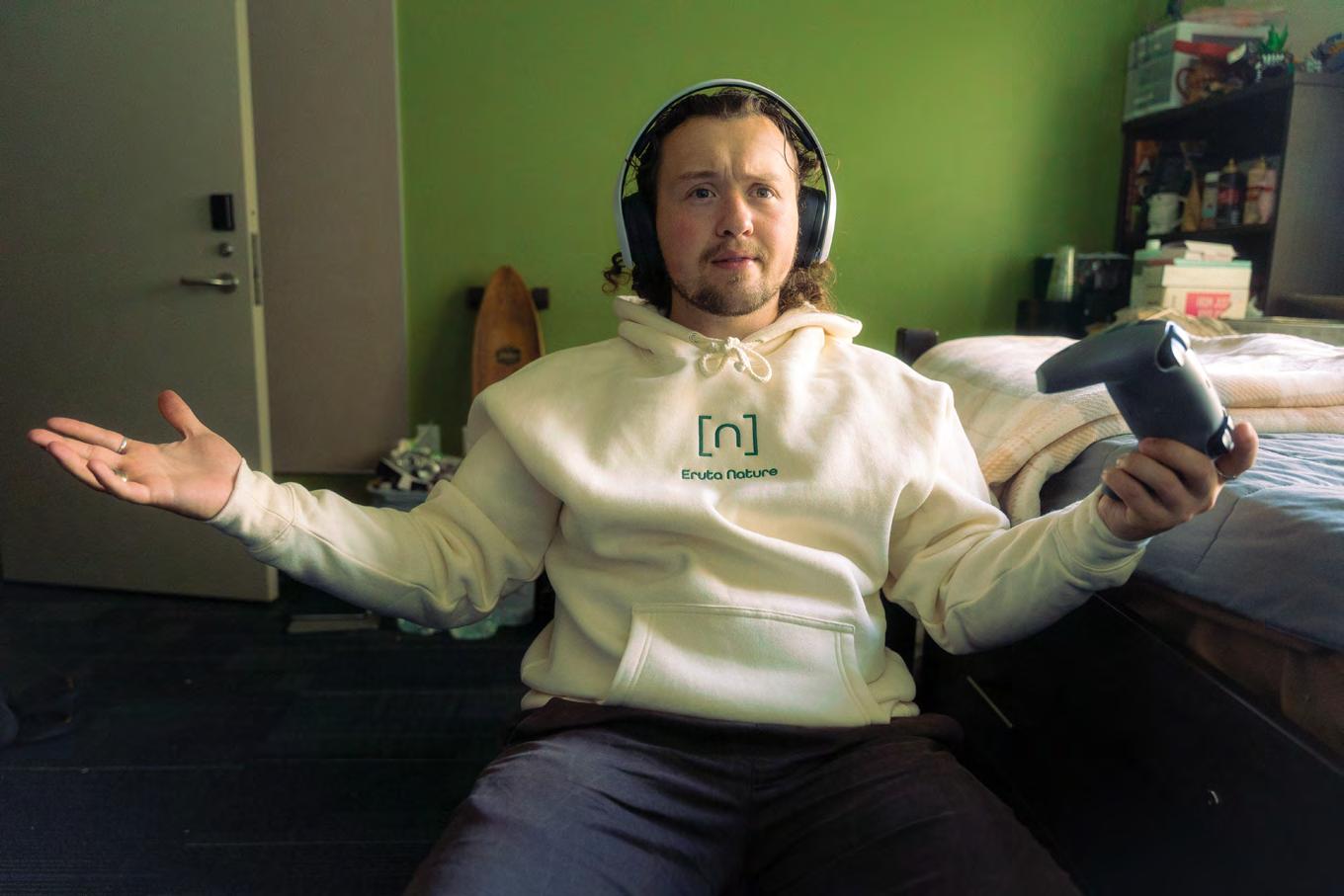
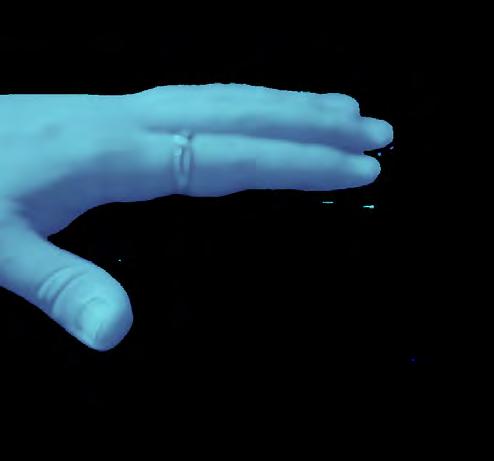
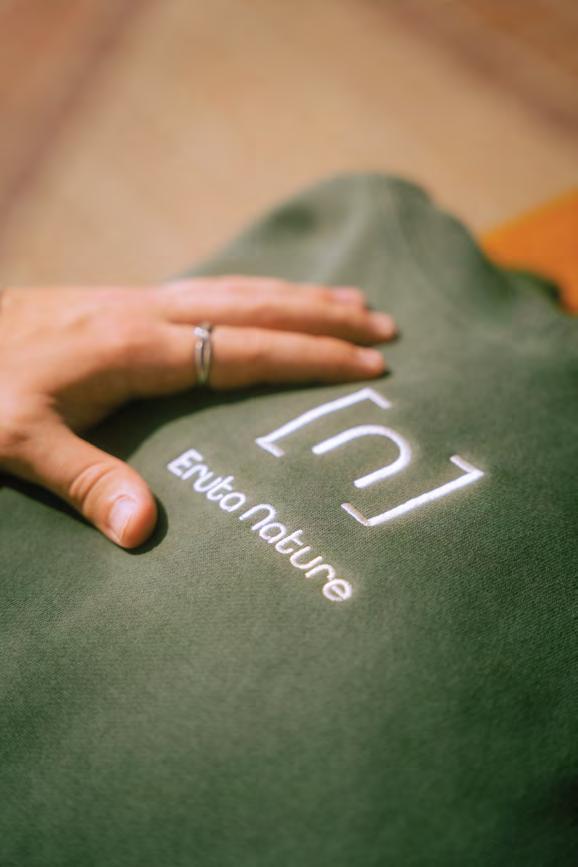

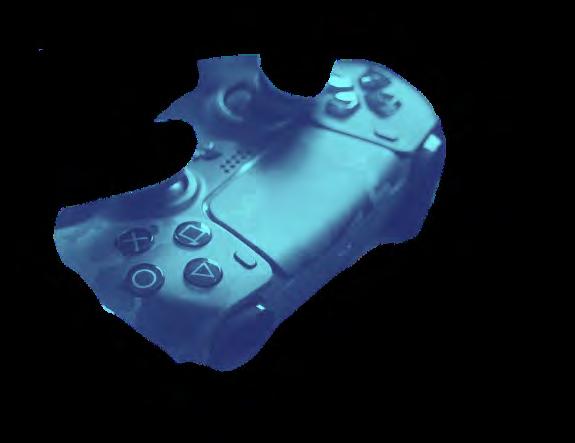
In fact, “this guy” uses color theory to test the strength of his coffee. He wears an Ewok necklace from Star Wars around his neck. He loves Ed Sheeran. He lines his cart with dog statues. He loves it when cold foam blends with espresso into what he calls “cow’s print.” He stays late to help friends clean up after an event. He hates it when people say “era.”
Solomon is a kid with a dream, a nerve and a little caffeine. For this boss baby, he’s approaching life with the belief that:
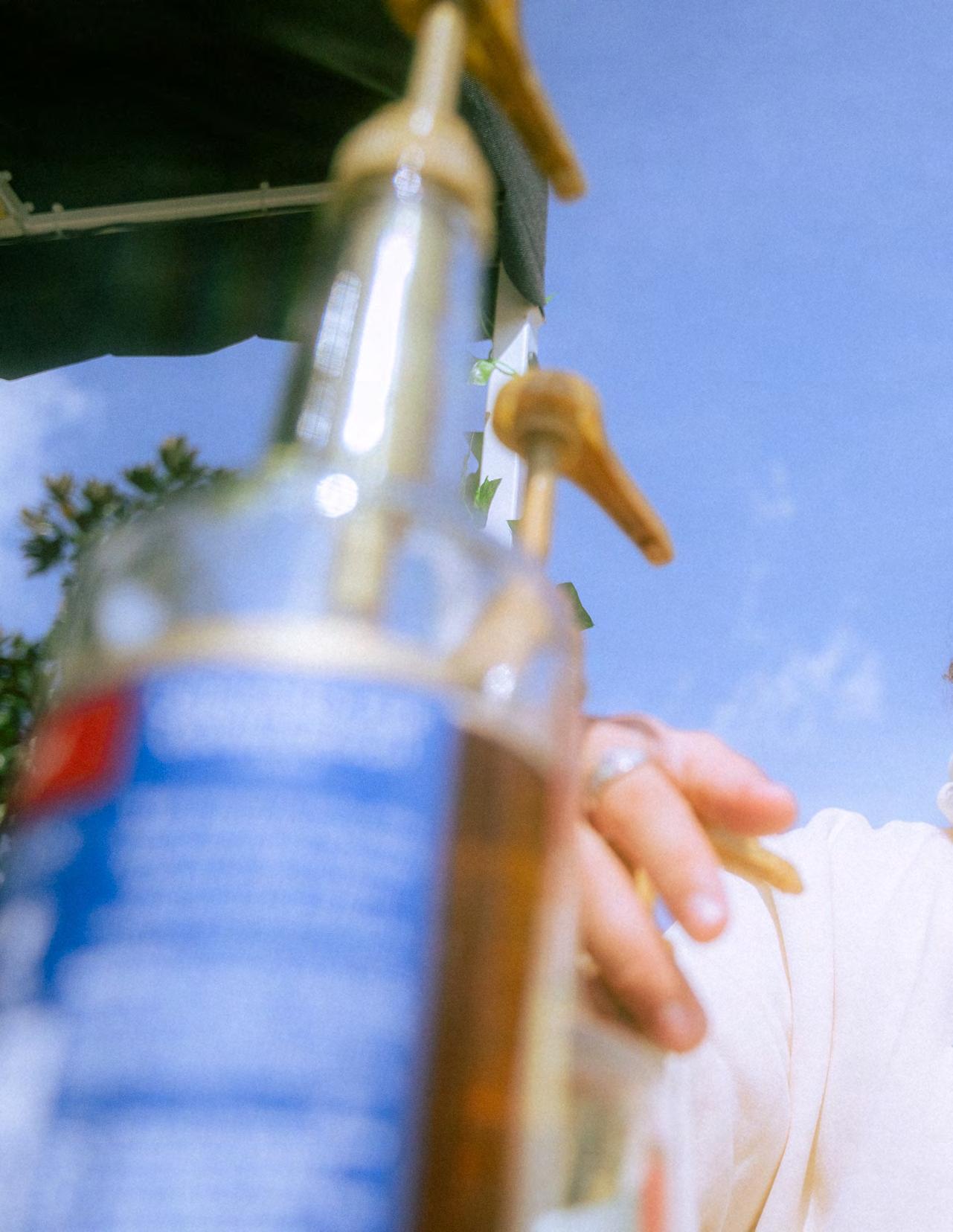
THE COFFEE CUP IS HALF FULL.
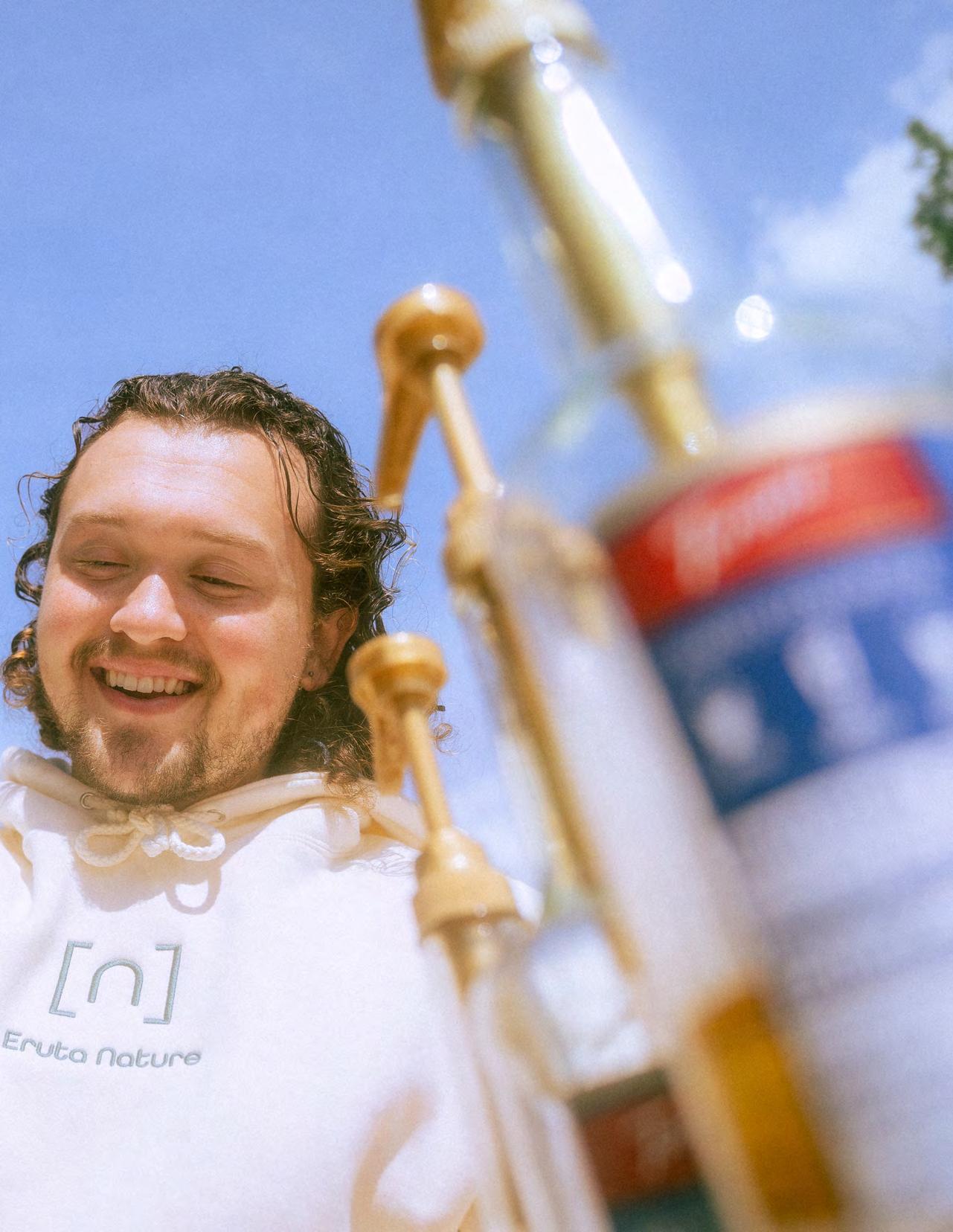
is a journalism
from Sacramento, CA.
Writer Julia Zara ‘25
major
She once kissed Troy Bolton’s locker from “High School Musical.”
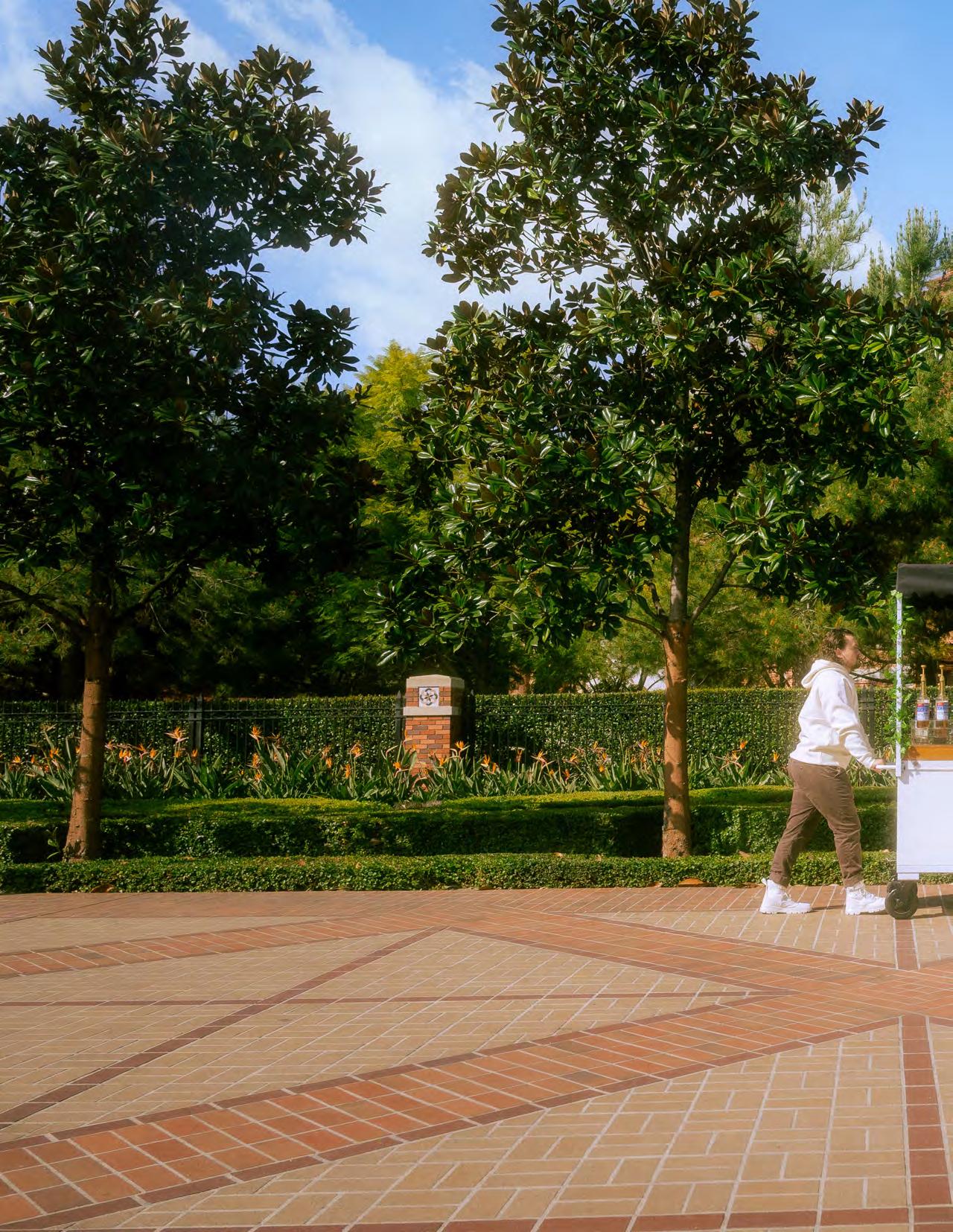
THIS BOSS BABY
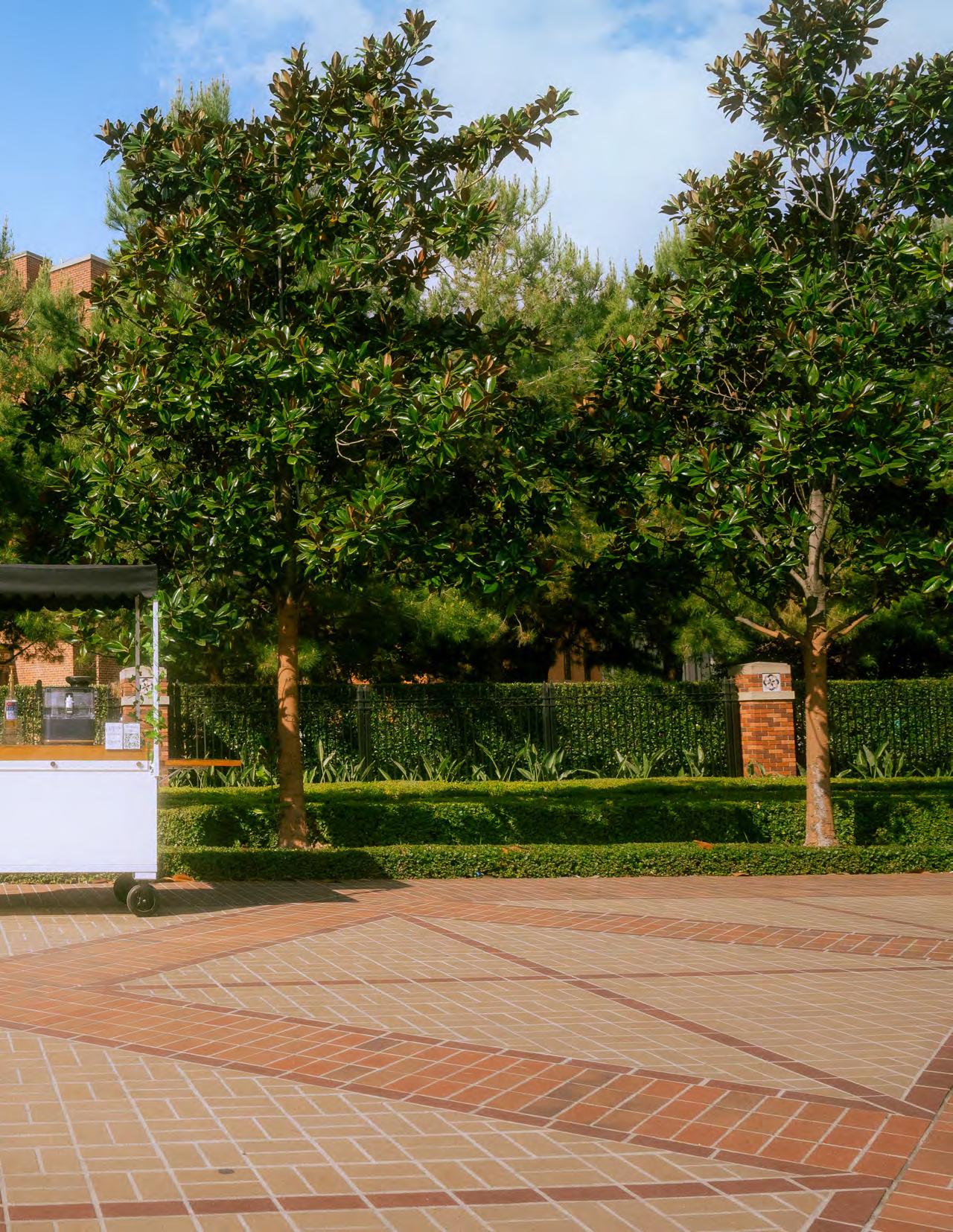
SPILLS THE BEANS
art by Hannah Wiser

fifth time’s a charm! fifth time’s a charm! fifth time’s a charm! fifth time’s a charm! fifth time’s a charm! fifth time’s a charm! fifth time’s a charm! fifth time’s a charm! fifth time’s a charm! fifth time’s a charm! fifth time’s a charm! fifth time’s a charm! fifth time’s a charm! fifth time’s a charm! fifth time’s a charm! fifth time’s a charm! fifth time’s a charm! fifth time’s a charm! fifth time’s a charm! fifth time’s a charm! fifth time’s a charm! fifth time’s a charm! fifth time’s a charm! fifth time’s a charm! fifth time’s a charm! fifth time’s a charm! fifth time’s a charm! fifth time’s a charm! fifth time’s a charm! fifth time’s a charm! fifth time’s a charm! fifth time’s a charm! fifth time’s a charm!
40
new
do
Original
can we like, do something
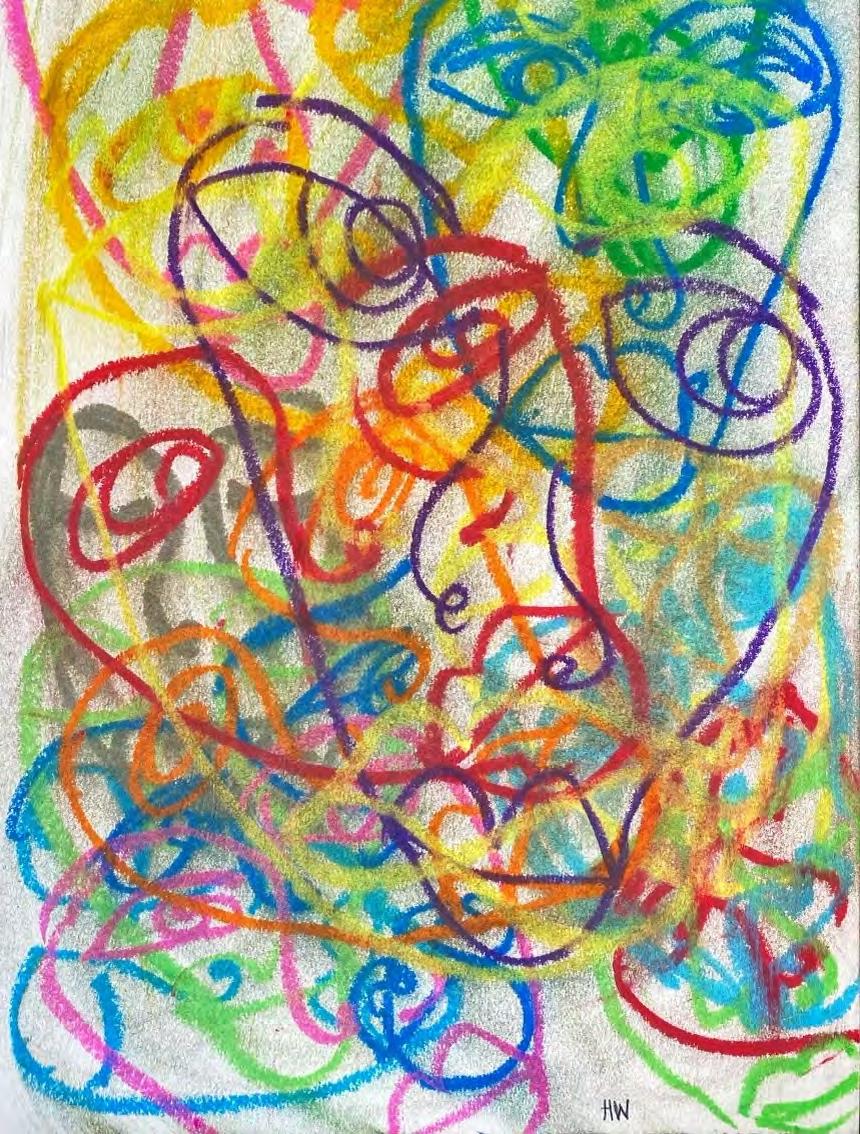
this issue?
41
new
INSIDE THE GATES OF TROY
What it means to be a college athlete pursuing professional athletics
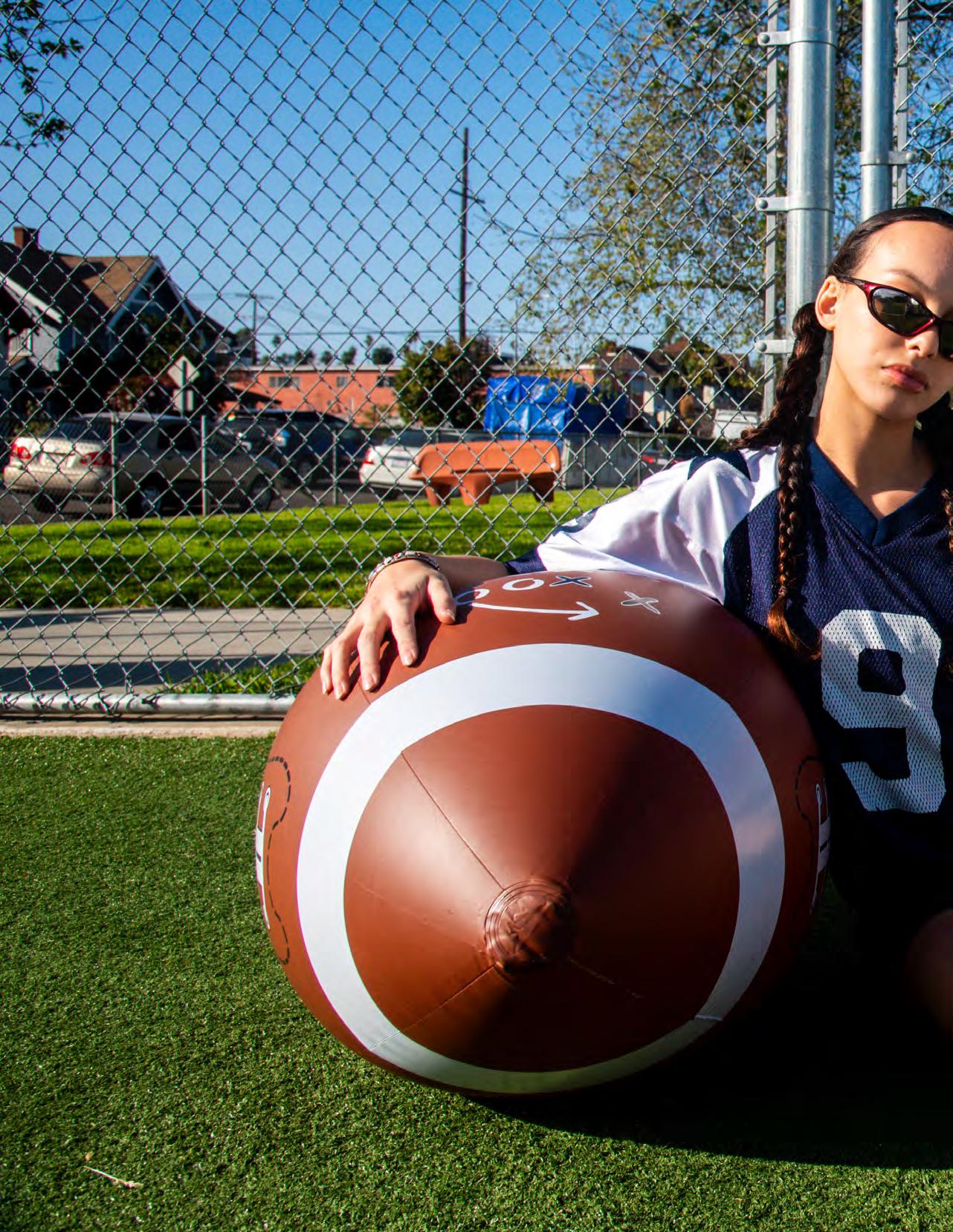 WRITTEN
WRITTEN
BY
MAYA PACKER
PHOTOGRAPHED BY PILI
DESIGNED BY
MARCO
OLIVIA HAU
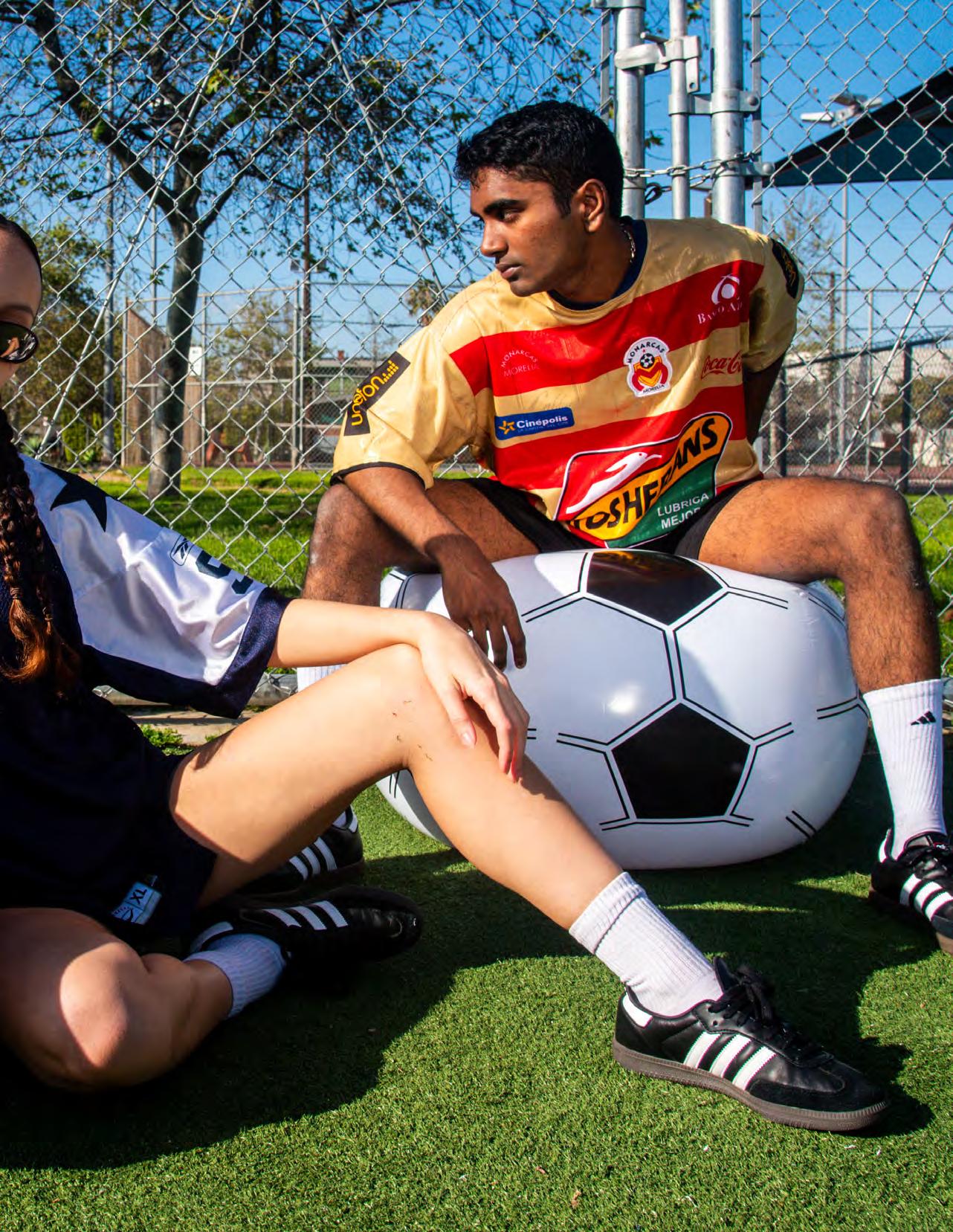
LITTLE BIT MORE. ALWAYS DO A IT WILL PAY OFF IN THE END.
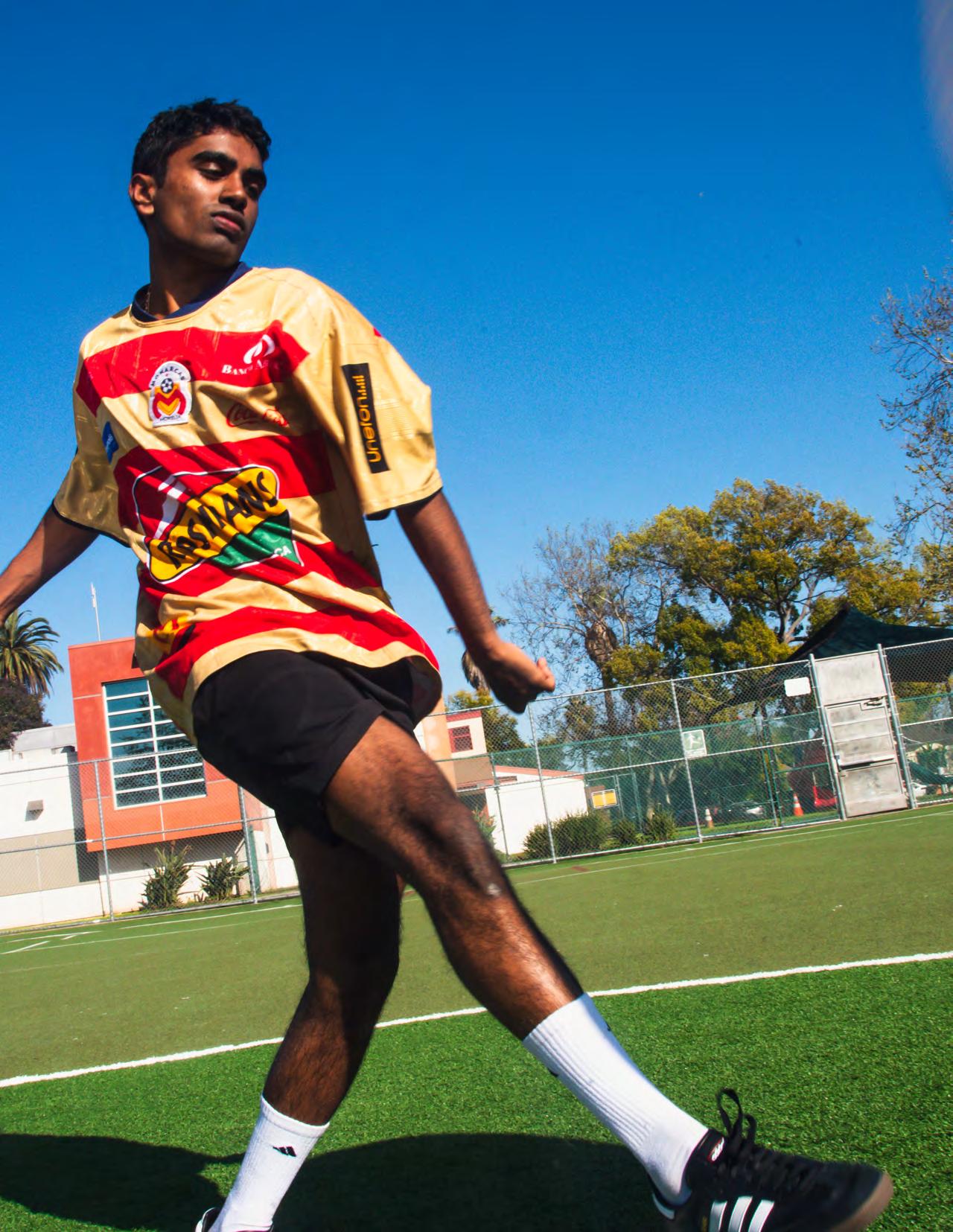
 Model Darin Jawahar ‘26 is a cognitive science and data science major from Dover, DE. He is a hip-hop/ Bollywood fusion dancer who is also a DIAA high school tennis state champ.
Model Darin Jawahar ‘26 is a cognitive science and data science major from Dover, DE. He is a hip-hop/ Bollywood fusion dancer who is also a DIAA high school tennis state champ.

At* USC, athletics are godly. The Greek mythological aesthetic shrouding our athletes and their state-ofthe-art facilities, which are secured with fingerprint biometric technology, show the reverence the institution has for our athletes.
But those athletes, under the titles, championships, offers, NIL deals and acclaim, are students, and college is a completely different playing field for student athletes. While parties, friends, class and fun are part of their experience, their main focus is their sport — improving, playing, competing and executing at the highest level.
Being a collegiate athlete is great, but for some, their dreams don’t stop on campus. Hannah Kuechler is a sophomore on the women’s swimming and diving team at USC, but she’s already swam for Germany in the 2020 Tokyo Olympics.
When she qualified for the Olympics, she’d been having a rough year because of her mental health. Then COVID hit and things only got worse, so she considered quitting the sport altogether. But her childhood dream of being in the Olympics gave her the motivation to pull herself back and continue towards her goal. However, her qualifying trials were not for the faint of heart.
“I was super nervous. A lot of people were in really good shape, and I knew that I had a really tough year. It was a preliminary and a final, and that year they only took the fastest
*Writer’s Disclaimer: In this article I interviewed Josh Ali, who I have a familial relationship with.

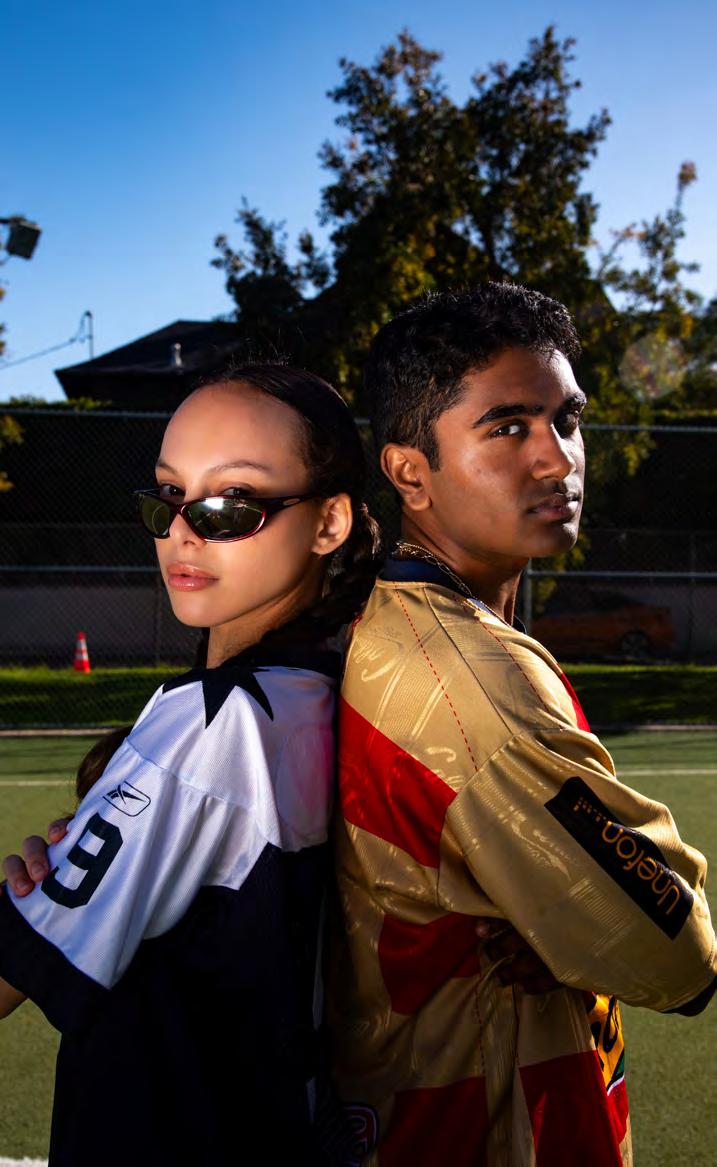
46
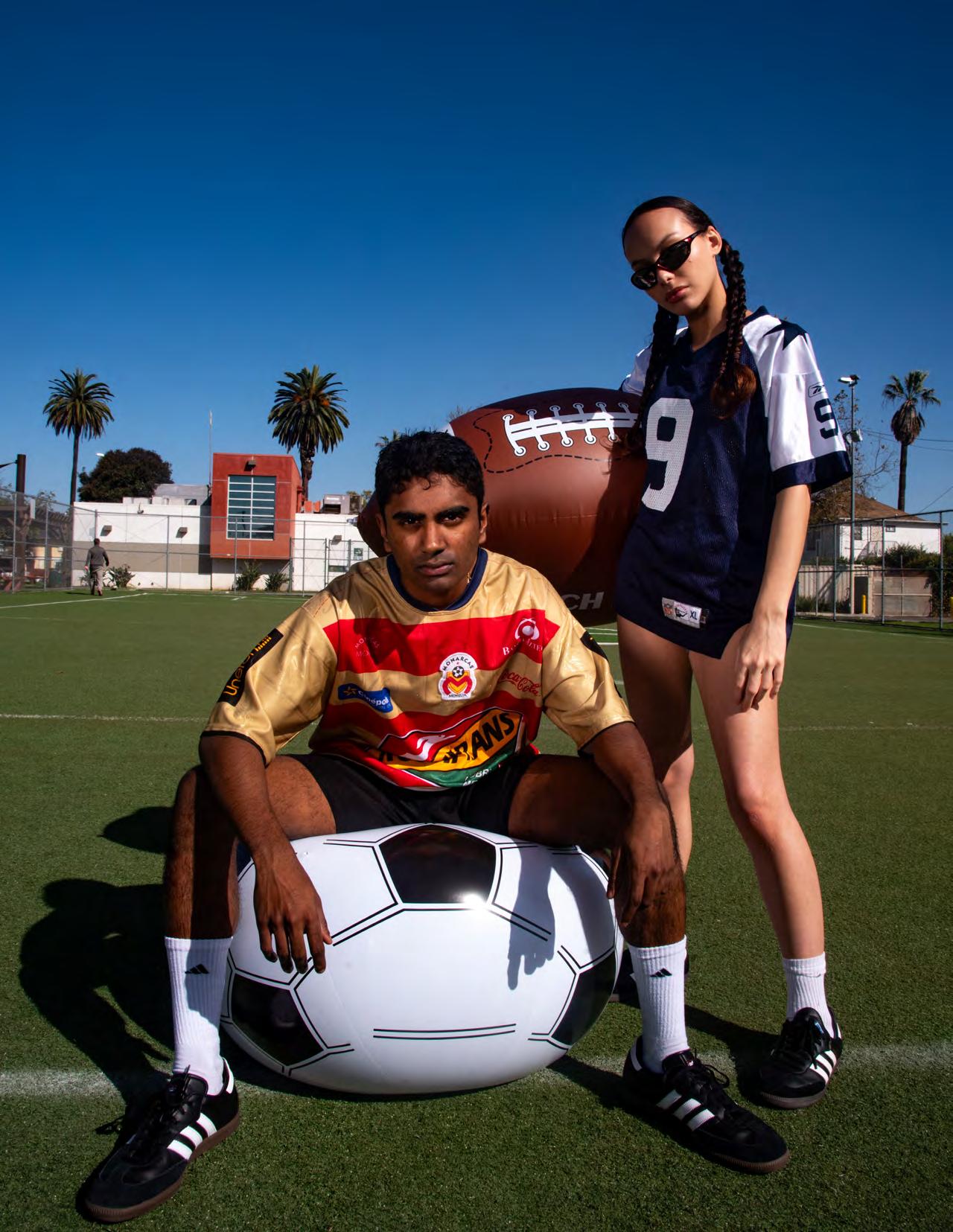
INSIDE THE GATES OF TROY|
Maya Packer
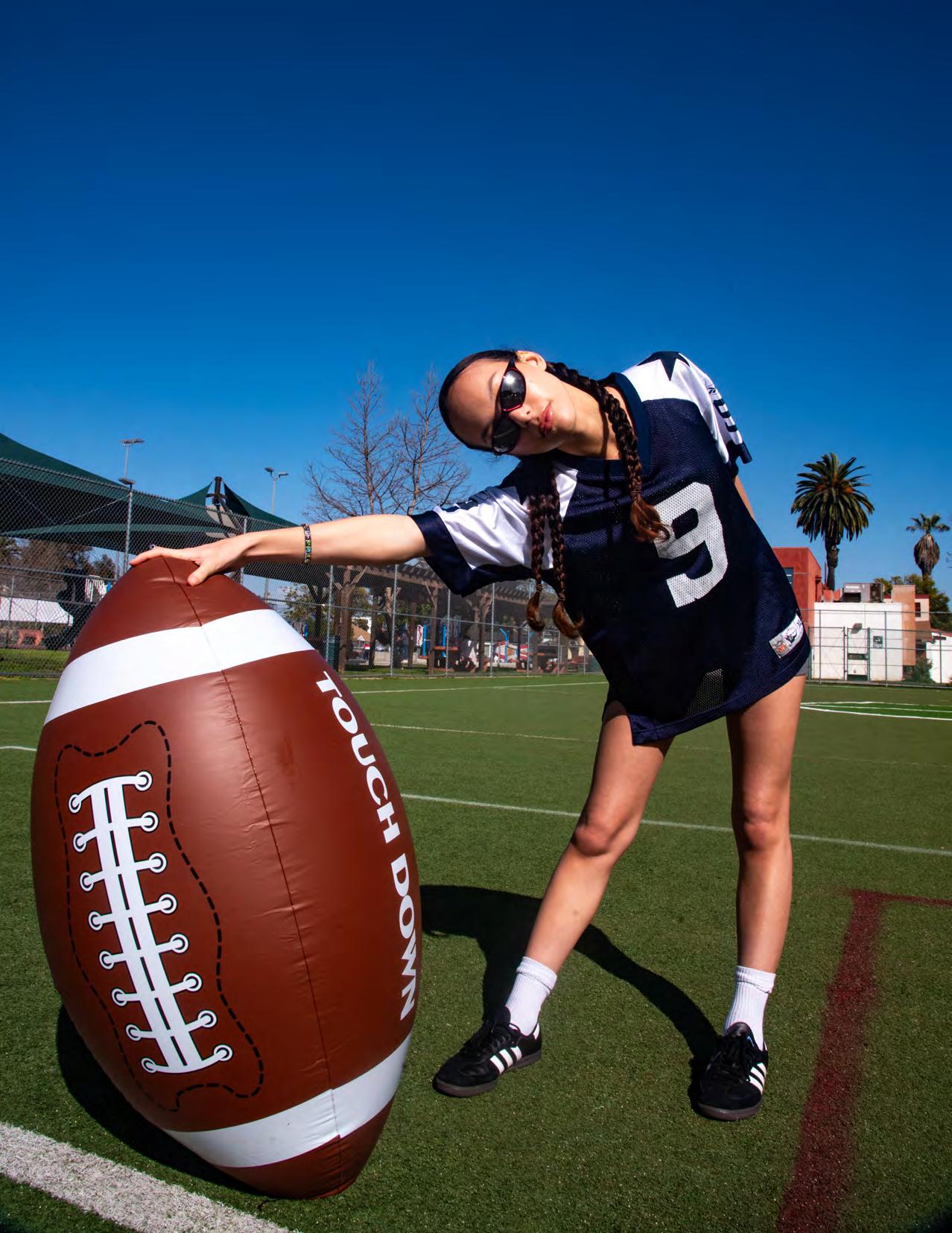 Model Gaby Batista ‘25 is an architecture major from Atlanta, GA. She was a competitive cheerleader.
INSIDE THE GATES OF TROY| Maya Packer
Model Gaby Batista ‘25 is an architecture major from Atlanta, GA. She was a competitive cheerleader.
INSIDE THE GATES OF TROY| Maya Packer
final time. If you ever watched swimming, you can tell that it’s a matter of like tenths of the second, hundredths of a second,” says Kuechler.
Kuechler ended up qualifying due to a 0.02 second difference. She plans to go back to the Olympics, which means a demanding preparation process.
Kuechler isn’t the only USC athlete with professional accolades on their resume and Olympic ambitions. Simi Awujo is a junior on the USC women’s soccer team, and she competed in the 2022 FIFA U-20 Women’s World Cup championship, playing every minute of the game.
“I went to the World Cup last year, which is like the biggest tournament in soccer. But, then the Olympics are this year, and the roster is a lot smaller,” Awujo says. “So, there’s also that fear of like, ‘oh, I have to make this roster now.’”
She is also a member of Canada’s national women’s soccer team. Awujo splits her time between USC as a student athlete and with the Canadian team, missing class for a week at a time to play for Canada.
According to Josh Ali, a wide receiver for the Atlanta Falcons, she’s on the right track. When asked if he had any advice for college athletes wanting to play professionally, he said this:
“Put more hours in. Even if you think that you’ve done enough, do a little bit more. Always do a little bit more. It’ll pay off in the end.”
Extra time on the field or in the gym wasn’t the only sacrifice Ali made to reach the NFL. He had dreams of attending a historically Black college or university (HBCU) and joining a Black fraternity. However, he felt an HBCU wouldn’t afford him the athletic opportunities he was looking for. So, he ended up at the University of Kentucky, where his experience was dictated by his practice schedule.
PLAYING A SPORT IS REALLY
SCARY.
“It’s definitely all of those amazing things that I’ve dreamed of. I’m literally achieving all the goals that I’ve set out for myself since I started playing soccer at [a] more competitive level,” says Awujo. “I feel like sometimes I take it for granted. It’s like, I have this opportunity that some other people either would never get or people on my team don’t have right now.”
A day in Kuechler and Awuojo’s lives typically consists of early morning training starting as early as 5 a.m., morning practice, weight training, classes, and another practice. Even then, this rigorous schedule isn’t enough for Kuechler as she strives to qualify for the upcoming Olympics.
“My practice starts in the morning at six. It’s one and a half hours for practice, but usually I stay half an hour or longer because I just need to be great this year,” says Kuechler.
“[There’s] a lot of stuff that I couldn’t do because of football. I had to be at practice or games and stuff like that. So, I didn’t really get the college experience that everyone else gets. But, I was there on a mission to get my degree and make it to the league,” says Ali.
This constant dedication and commitment to excelling in their sports doesn’t come without pressure and anxiety about the future. For Awujo, the higher she climbs professionally, the more pressure she feels.
“Playing a sport is really scary. Especially just being younger, I feel like I put a lot of pressure to perform because it’s like this is a once in a lifetime sort of opportunity,” says Awujo. “What if I’m not good enough to go play pro with the other professional players that I play with on the national team? It is definitely scary. Athletics is uncertain. One day, you’re healthy and the next day you could be hurt, which has happened to people here at camp.”
Ali has experienced just that. His senior year, he tore his ACL just before the last game of his senior season. After everything he’d poured in, no more NFL draft, Pro Day or NFL Scouting Combine.
49
“I caught myself thinking, what am I going to do now? That’s a scary moment for somebody that has a plan, and you just know it’s not gonna happen. You got thousands of football players trying to do the same thing you’re doing, so it’s a little stressful. It’s a lot mentally,” says Ali.
With all of the fear and stress that accompanies being a high-performing athlete, Kuechler has decided not to continue her athletic career after she graduates.
“I’m just not willing to put that much work in anymore. I’m just happy to just enjoy my next two years of college swimming and with the team. Afterwards, I’m like, alright, life goes on. I just want to experience some normal life stuff as well. Because, since I’ve been young, swimming was always my priority number one,” says Kuechler.
Kuechler said the rate that she has been performing and expending herself is not sustainable. She compared it to a toxic relationship — she loves swimming, but it’s draining, especially at USC, which is much more rigorous than her experience at home in Germany.
“Why not do this if it’s something that I love and it challenges me? I think that’s something that goes overlooked with athletics — it actually challenges you a lot as a human being. In terms of being able to work with people, build chemistry with people, understand where others are coming from [and] deal with the pressures of the environment,” says Awujo.

While these two athletes’ paths will take very different routes after graduation, they both deeply understand the sacrifice it takes to play professionally. So does Ali, who met his goal of making it to the league and emphasizes the importance of sacrifice in the journey to the professional level.
“There’s a lot of stuff you can’t do because you have to work on your craft — if you love it that much,” he says. “You can’t go out some nights or you can’t go on this trip. If you want to make a bunch of money doing what you love to do, you’re gonna have to sacrifice.
I DON’T SEE A REASON TO PUT MYSELF THROUGH THIS MENTAL AND PHYSICAL STRESS EVERY SINGLE DAY.
When asked if he regretted any sacrifices he made or wished things could have been different, Ali’s response was simple: “I don’t regret anything. Nothing.”
“You might not have the greatest day, and you just don’t want to wake up, and you don’t want to go to practice and you still have to because if you’re not going, they’re gonna kick you out,” says Kuechler. “I don’t see a reason to put myself through this mental and physical stress every single day.”
But Awujo is steadfast in her commitment to soccer and is excited to see where her career takes her after college. After so many years of effort into it, she still loves playing the game and sees it as a benefit to her growth.

For all the glitz and glamour that surrounds these athletes, the reality of their college experience is grueling. The things we don’t see on Instagram or on game days, the sacrifices and tears and recoveries and hours of training on top of academics — that is what make up their experiences. It takes everything for these athletes to rise to the top of their game: Dedication, work, sacrifice and a willingness to make their sport the focal point of their college experience and beyond. This is what they live for.

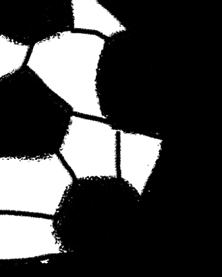

INSIDE THE GATES OF TROY| Maya Packer
Writer
is a communication major with an entreprenuership minor from Atlanta, GA.
can make pasta from scratch.
Maya Packer ‘26
She

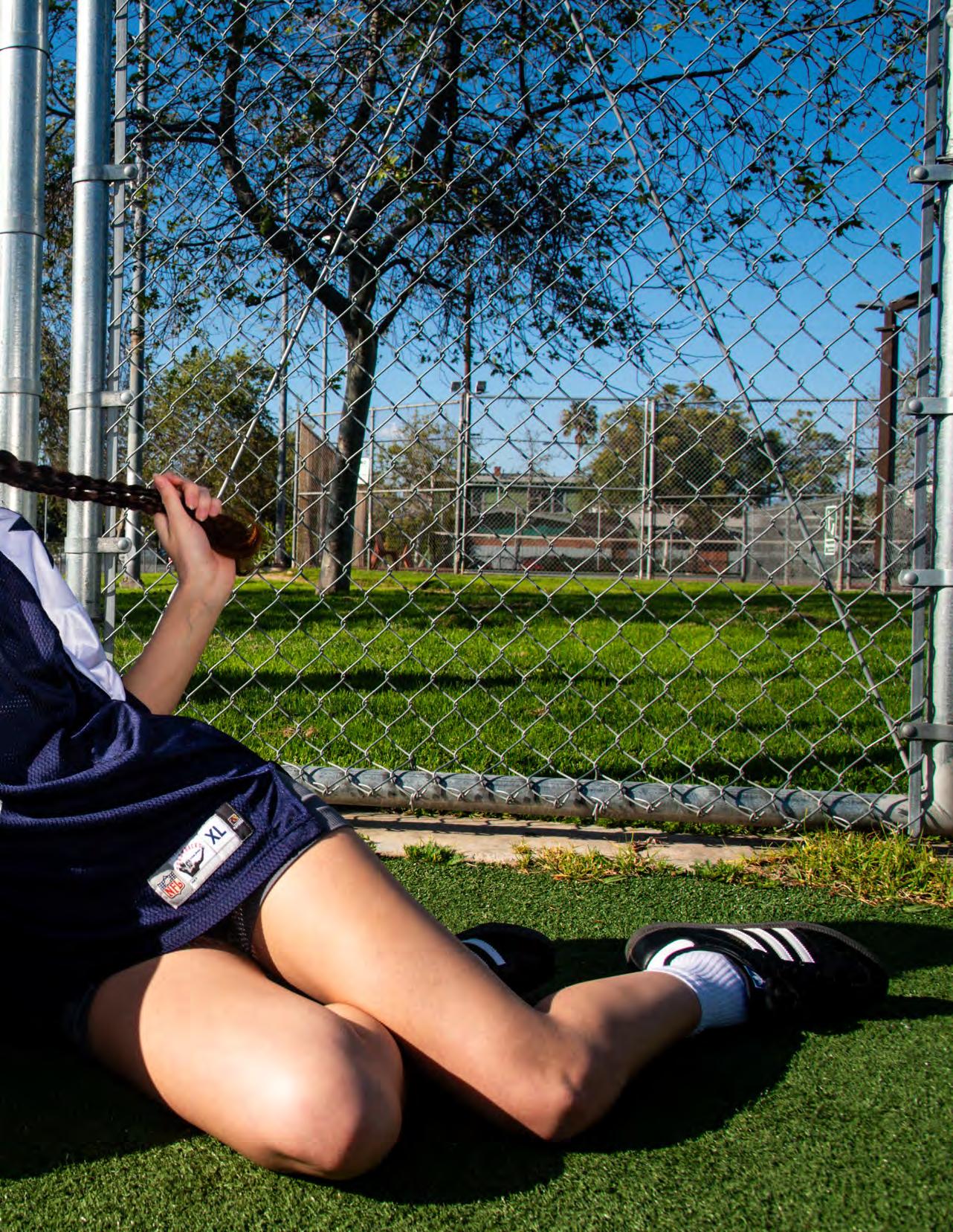
INSIDE THE GATES OF TROY

54
TIMES
FIVE TIMES
I changed the plot
55
written by
photographed by
designed by
ALEXIS LARA
KAYDEN-HARMONY GREENSTEIN + ANYA BARRUS
OLIVIA HAU
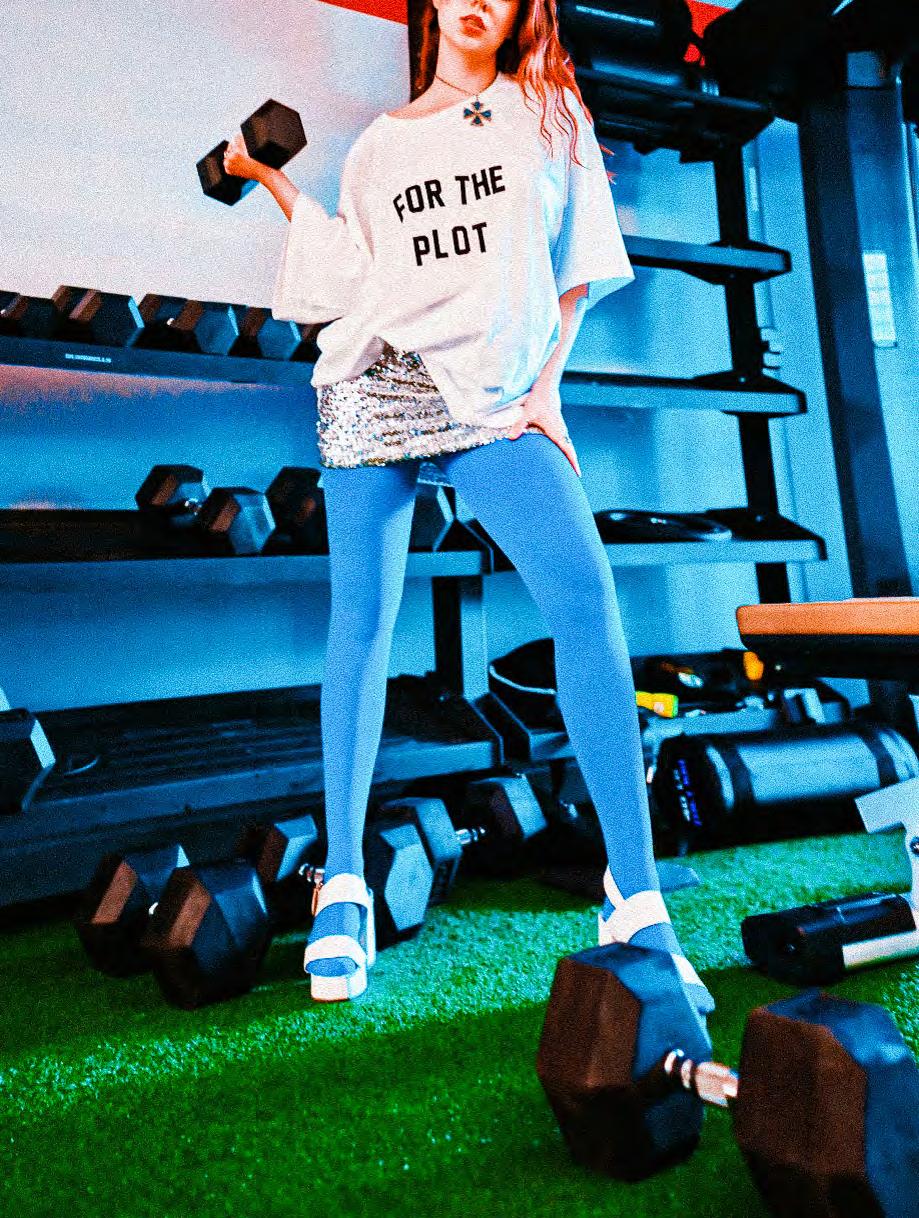
56
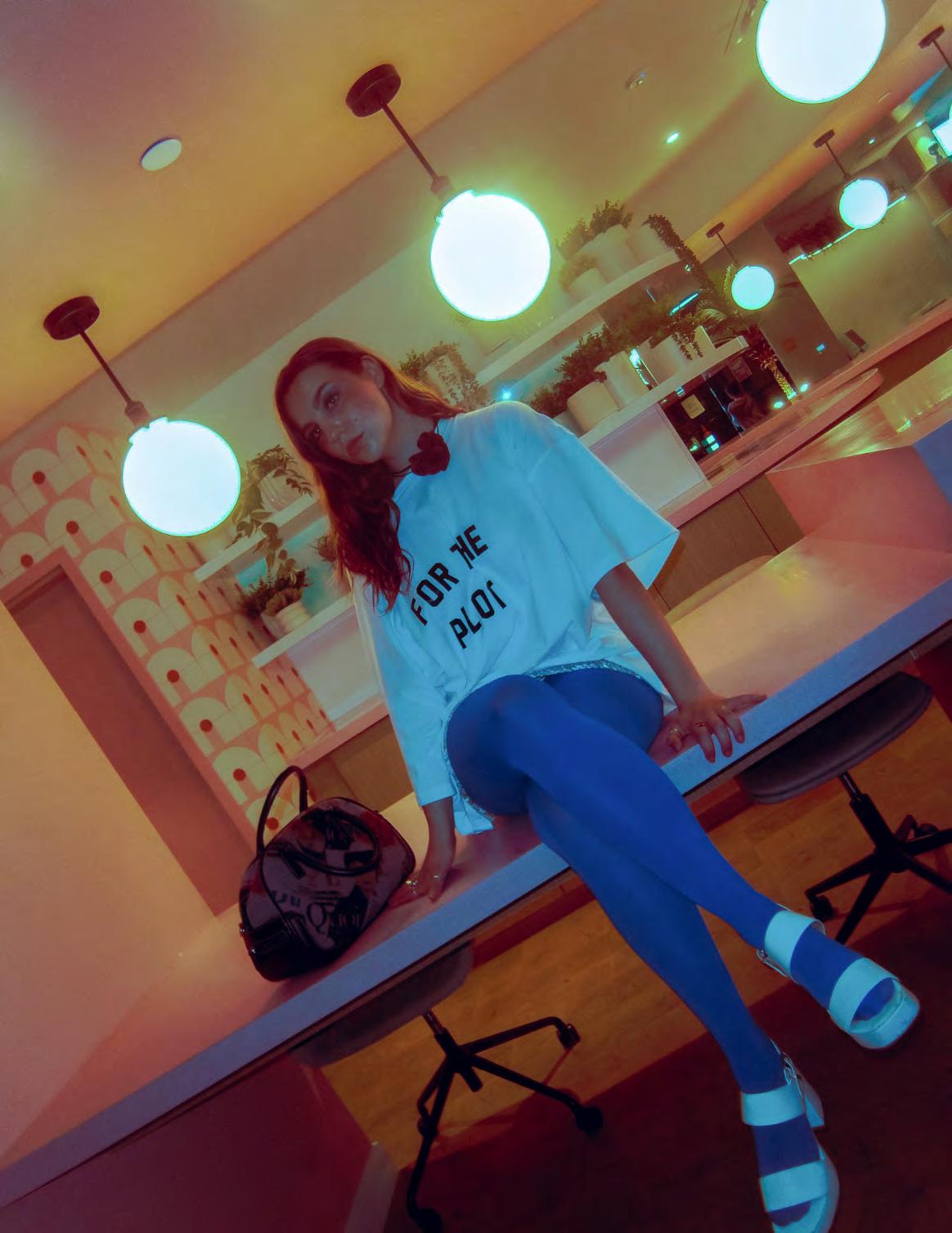
FIVE TIMES I CHANGED THE PLOT| Alexis Lara
Model Kayla Cunningham ‘26 is a cinema and media studies major from Chino Hills, CA. She’s a snowboard instructor.
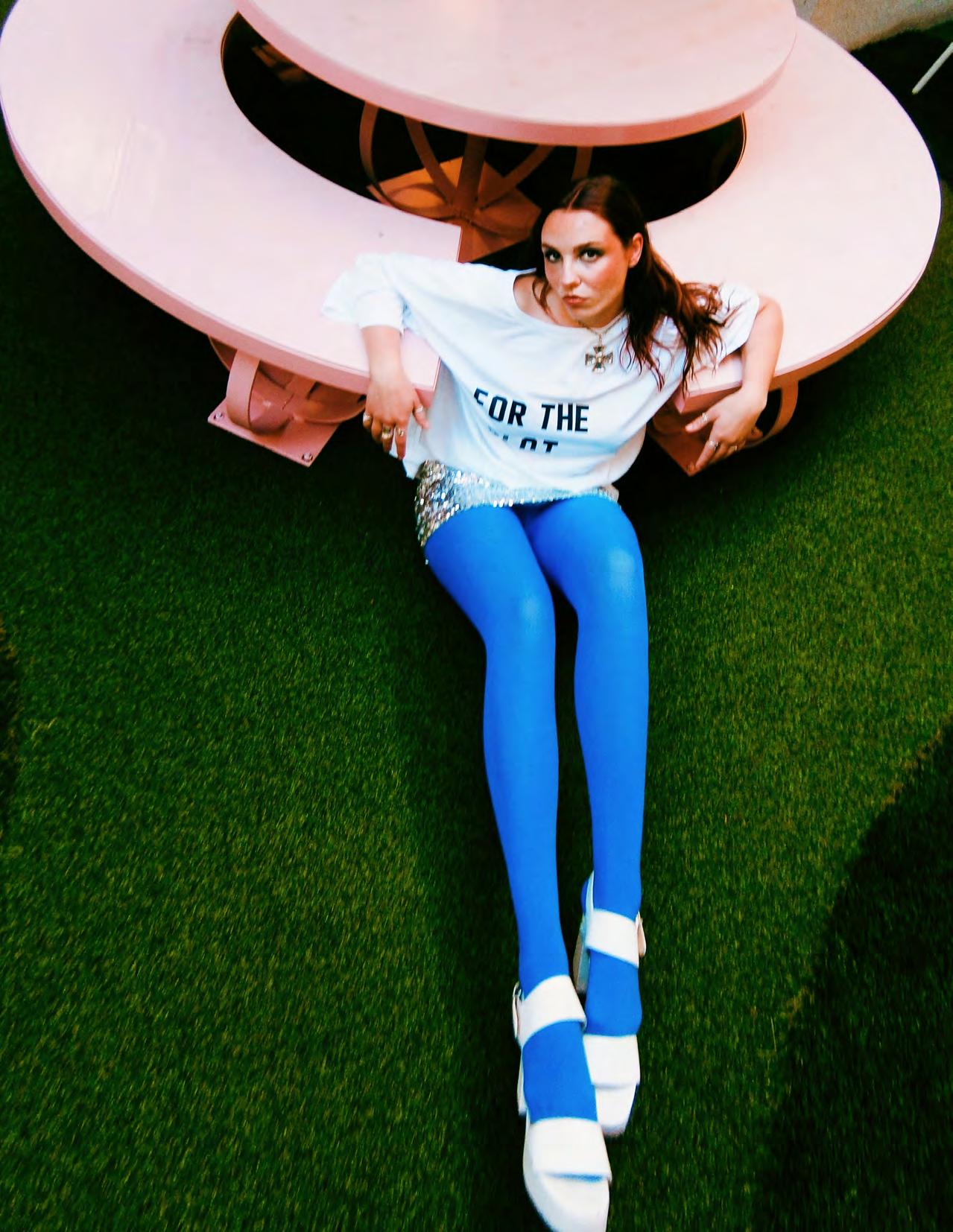
FIVE
Writer Alexis Lara ‘25 is a journalism major with a minor in sports business and management. She is from La Cañada, CA.
TIMES I CHANGED THE PLOT| Alexis Lara
DEAR READERS,
I woke up this morning, drank my iced latte, walked to class and realized I live the same day over and over again. Routines are just another word for redundancy in my silly little world. If I’ve learned anything from the excessive amount of writing assignments I’ve completed in my life, repetitiveness is something to fear.
But why was I hit with this ennui?
Picture this: I could be riding trains through charming fields, smelling fresh rain saturating cobblestone streets and drinking Guinness beers at the local pub. Despite aching for a change of scenery for two years, my stomach sank when the email read, “Congratulations on your acceptance to the Spring 2024 Annenberg London Program!” The dreams that had always lived slightly out of reach became a stark reality. I had six days to decide if I would leave the country for five months. On the last day I had to sign the contract, I drove home to tell my parents I was going to London. By the
Clash at the Coliseum
The waving green flag at the Coliseum marked the start of both the NASCAR race and my social experiment. Because I, along with the rest of Southern California, don’t understand how to function when it rains, the race was moved up a day. The old me would have used this date change as the perfect excuse to bail. I had to actively go against my first instinct to stay in and make my way to the Coliseum.
time I parked my car in their driveway, I had settled on the decision to stay.
I don’t believe in regret, but sometimes I think of London as the one that got away.
I tend to trust my gut a little too much. Whenever there is the slightest sense of unease, I think it is a sign of temptation by the wrong path. The problem with blindly trusting my gut is that I never learned to distinguish between that bad stuff and the butterflies.
So, dear reader, I’ve decided to change my way of deciding. I refuse to be played by my own passivity. This semester, I turned left when my body wanted to lean right. Every word I spoke, I said it with my chest. I replaced the would’ve-beens with memories. I stopped torturing myself with the thought of what if. In this rejection of passivity, I may have lost the plot. Here are five times I stopped saying, “One day I will.”

The roar of the quieted the crowds of people that usually spiked my social anxiety (or maybe that was the Modelo). I felt comfort in not being able to hear. With the smell of gasoline in the air, I screamed for a driver whose name I didn’t know two hours ago. I felt grateful my homebody tendencies didn’t win.
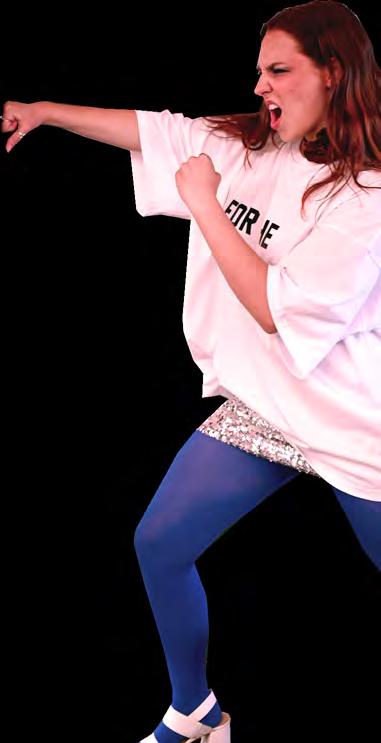
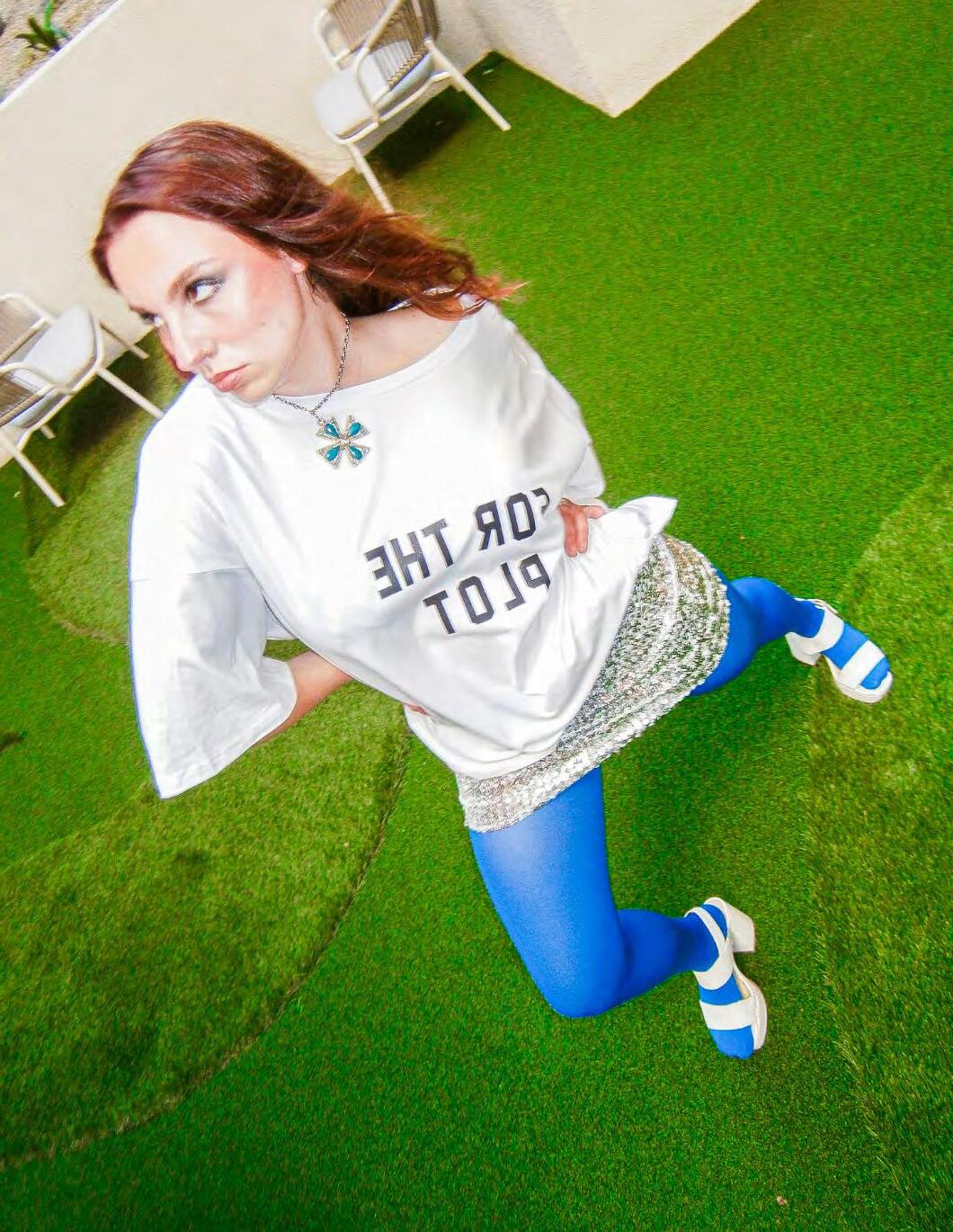



Inspired by Suits
In February, assignments rolled in, the Southern California sun stepped away, and I caught a cold. Stuck in bed, I started going down the list of things I’ve always told myself I would do when I had more time but never got around to.
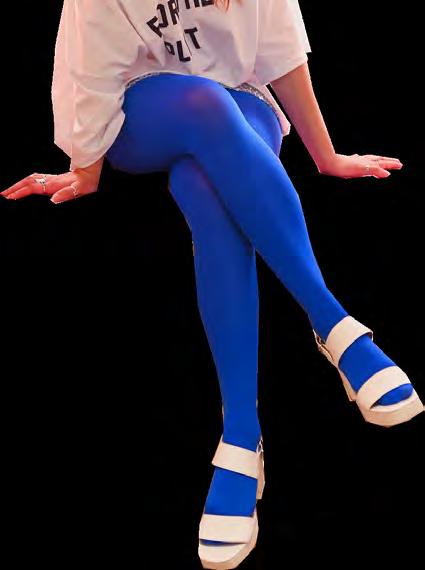

The first thing to do was fix my resume (which hadn’t been updated in years) and my LinkedIn account (which looked more like an abandoned Facebook profile). I looked for internships, applied to jobs and
wrote too many cover letters. Whether it be because I was passive, lazy, or all of the above, investing time in my future was not something I focused on outside the boundaries of school. I always focused too much on the result instead of the initial action. Maybe that’s why I have trouble starting new things and writing new chapters.
So I think I can dance…
Do I love music? Yes. Do I hate dancing? Yes.
Am I going to a hip-hop class today? Yes. Am I nervous? Absolutely. F–k it, here we go.
My friends and I conquered Friday afternoon traffic and parallel parking on Melrose driving to the Playground L.A.
You know the studio even if you aren’t a dancer. It is the pinnacle of all dance studios. The floors are stained with the sweat of anyone whose name means anything on casting sheets in Hollywood.
I was burning under the suffocating studio lights, and the floor creaked with my every step. I shrank before the giant red letters spelling PLAY. I waded through the dancers stretching on the floor and found
a spot so far in the back of class that I danced with the purses and water bottles against the wall. I couldn’t wait to leave.

Hip-hop is a style that requires quick movements and confidence. There was no time to hesitate and no room for selfdoubt. Sam Allen, the choreographer, matched each syllable in Saweetie and P-Lo’s “Do It For The Bay” with hardhitting steps. He chose movements that were not timid and apprehensive, but striking and forceful. It was fast-paced and bold. It was everything I am not. But by the end of the class, I couldn’t remember why I avoided dancing my entire life.
62
The Bachelorette
I’ll admit that I was supposed to lean into my fears, but there was one moment I chickened out. I fumbled the plot. I not only shot down my friend’s idea, but I didn’t even consider it.

So, what was so outrageous that I didn’t even give the suggestion a second thought?
Hinge.
I’ve witnessed people make their accounts, even helped them think of witty prompts and choose which pictures they should use — always a mix of funny and breathtaking, if you’re wondering. I have nothing against dating apps and fully support the chaos that
Londontown

It was the place I dreamt about, the place I mourned, the place that never was. The rarity of a second chance fell into my lap for spring break. It was a week abroad, not a semester like I intended, but it still had the ability to right the wrongs of my past decisions. Maybe it took a little longer than originally expected, but I booked my flight to London.
When I got there, I stopped and listened to every Ed Sheeran knockoff street performer. I walked beneath the charming string lights of Piccadilly. I got lost in Chinatown far too many times. I sat in the very last row of a West Ham game and bought a scarf from a man on the side of the street. I went to pubs every night and

comes from them.
Of course, I believe the next great love story could start on Hinge. But, I think the greatest stories are not the ones you seek but the ones you stumble upon. This is true outside of a romantic context too. I wholeheartedly believe that my greatest memories will be the unexpected, and I’m in no rush for the happy accidents to happen any quicker than they should.
I realized some of my waiting might not always be passivity, sometimes it is steady patience. Maybe I did fail the self-assigned challenge with my one utterance of “no.” Maybe I copped out. But on this day, I realized that in some cases I confuse patience with passivity. Now, I know I can conquer one while still trusting the other.
bought a pack of cigarettes (sorry mom and dad). I took the bus, the Tube and every cobblestone side street.
Leaving to come home, I rode the Piccadilly line to the airport. I passed Hyde Park, South Kensington, Boston Manor and 16 other stops before I reached Heathrow. I would’ve been happy if that underground line never ended. I fell in love with London, and I finally made peace with my decision to not study abroad. Because, when my time comes again, I will remember that stinging feeling of what if, then find it in myself to step off the train platform and take the Tube as far as I need to go.
Until next time.


63
Love,
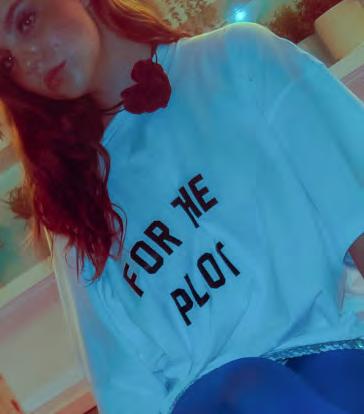
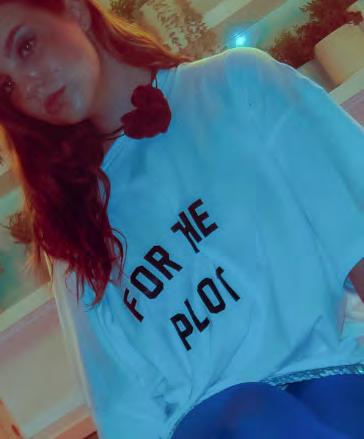



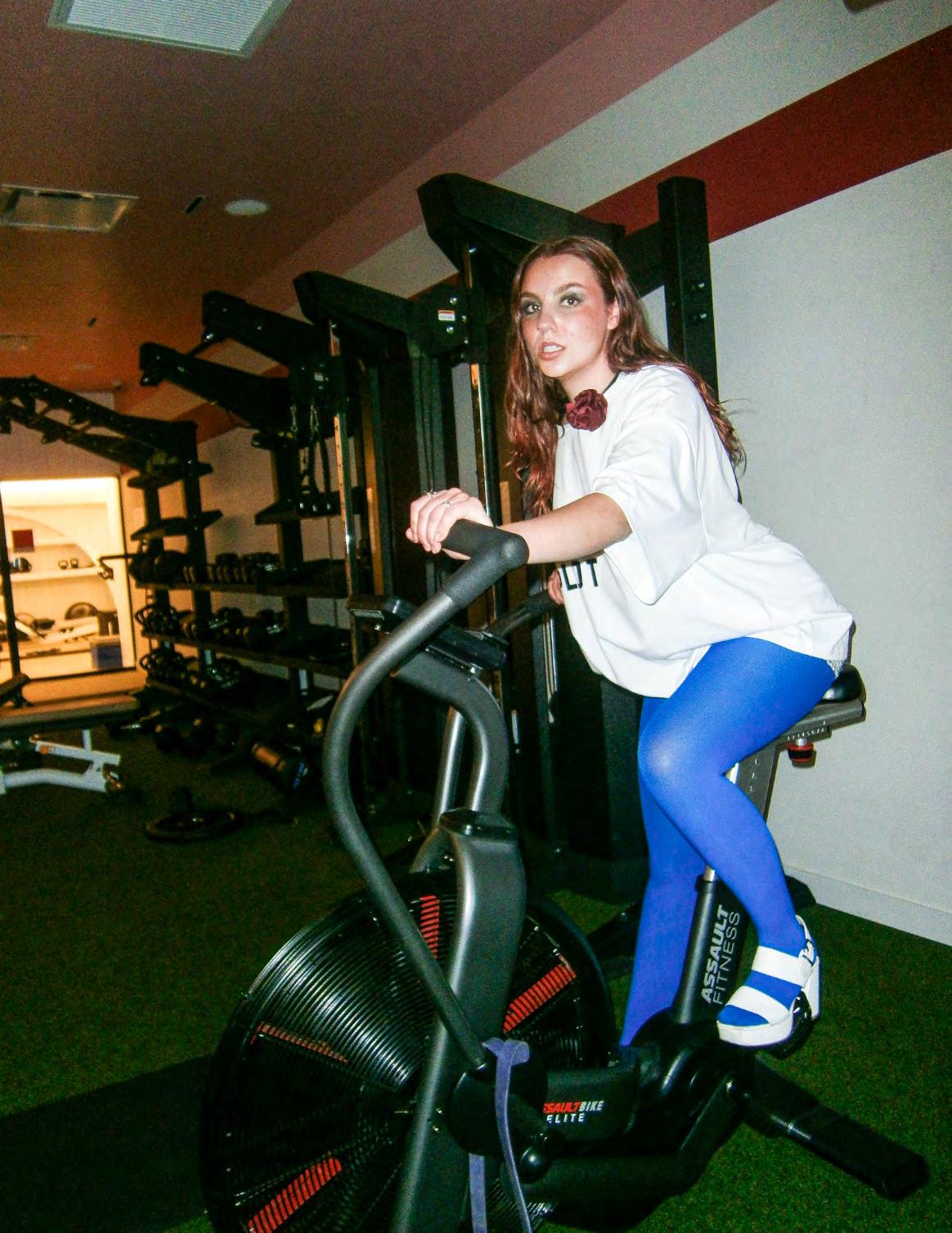
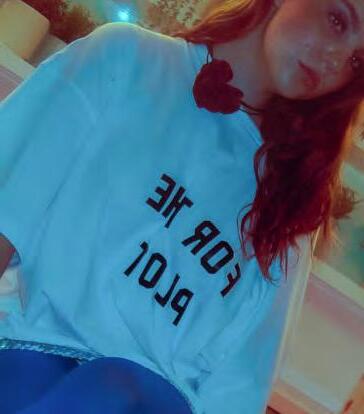
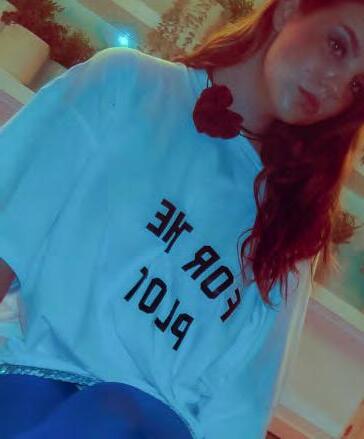



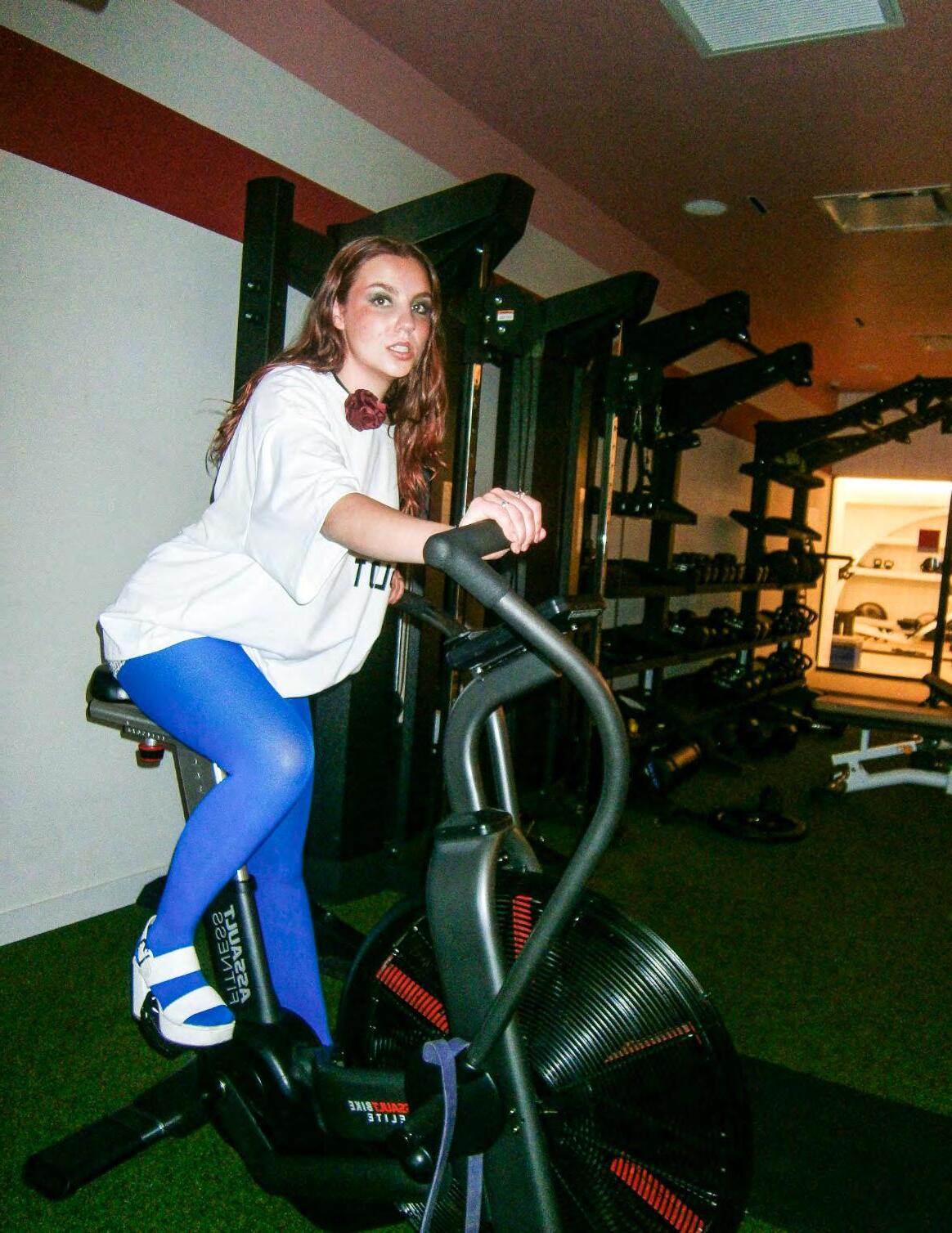 written by SULLIVAN BARTHEL
designed by KATHRYN AURELIO
written by SULLIVAN BARTHEL
designed by KATHRYN AURELIO





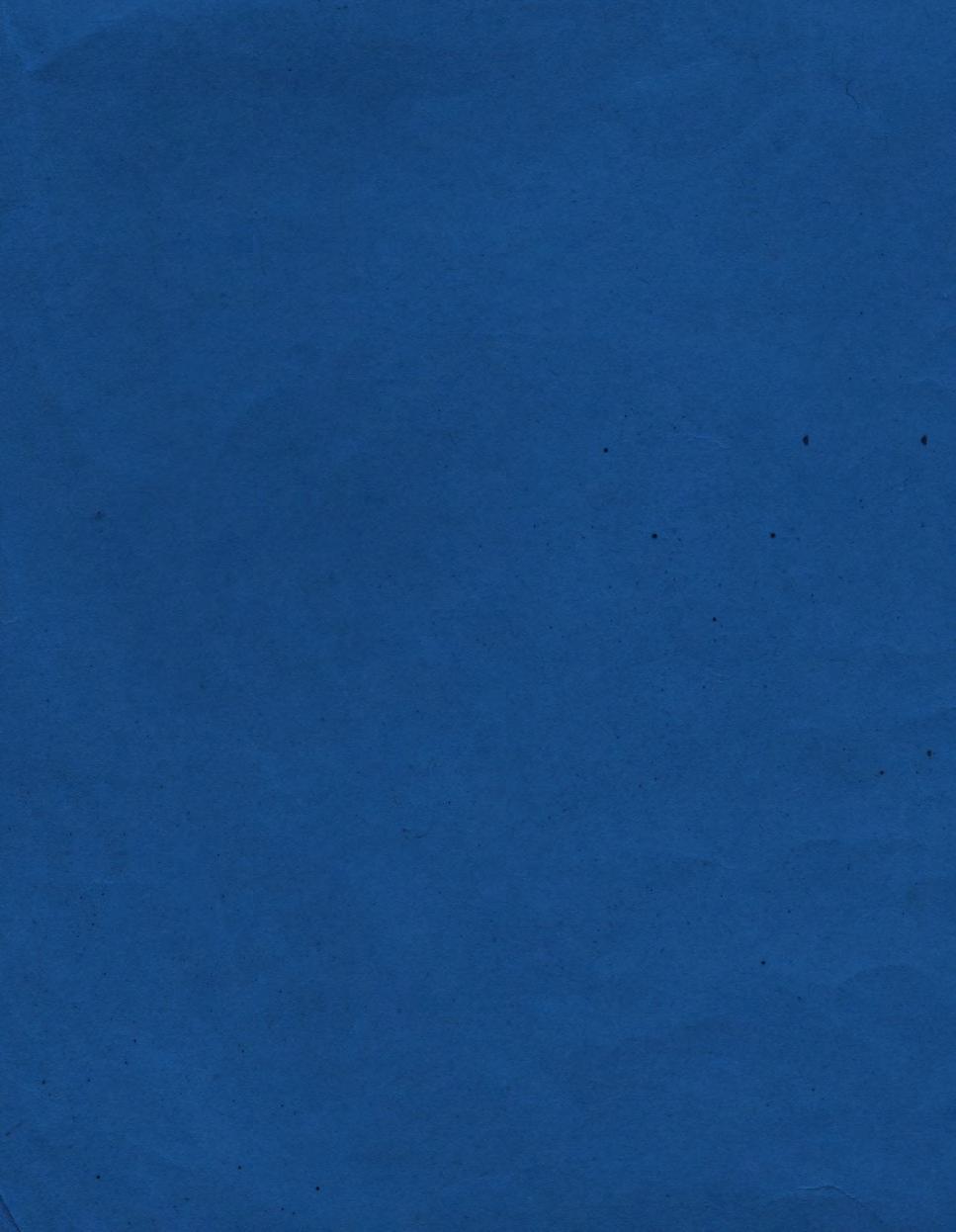 photos courtesy of JEAN-LUC HAYES & family !!!
photos courtesy of JEAN-LUC HAYES & family !!!




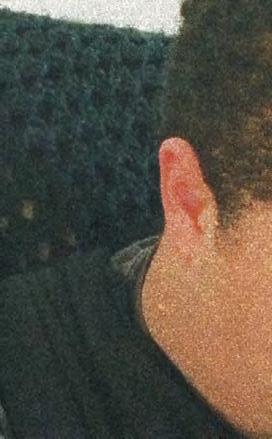

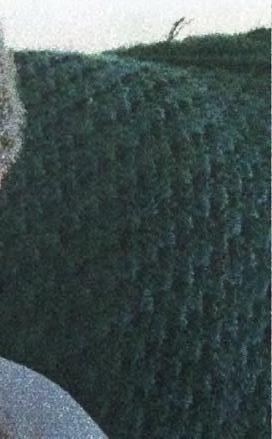
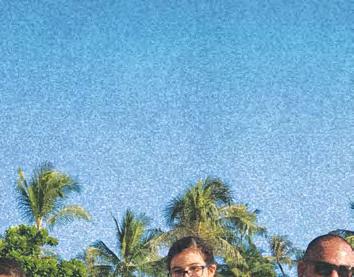
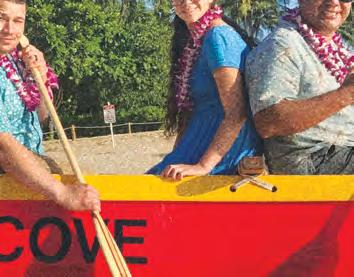





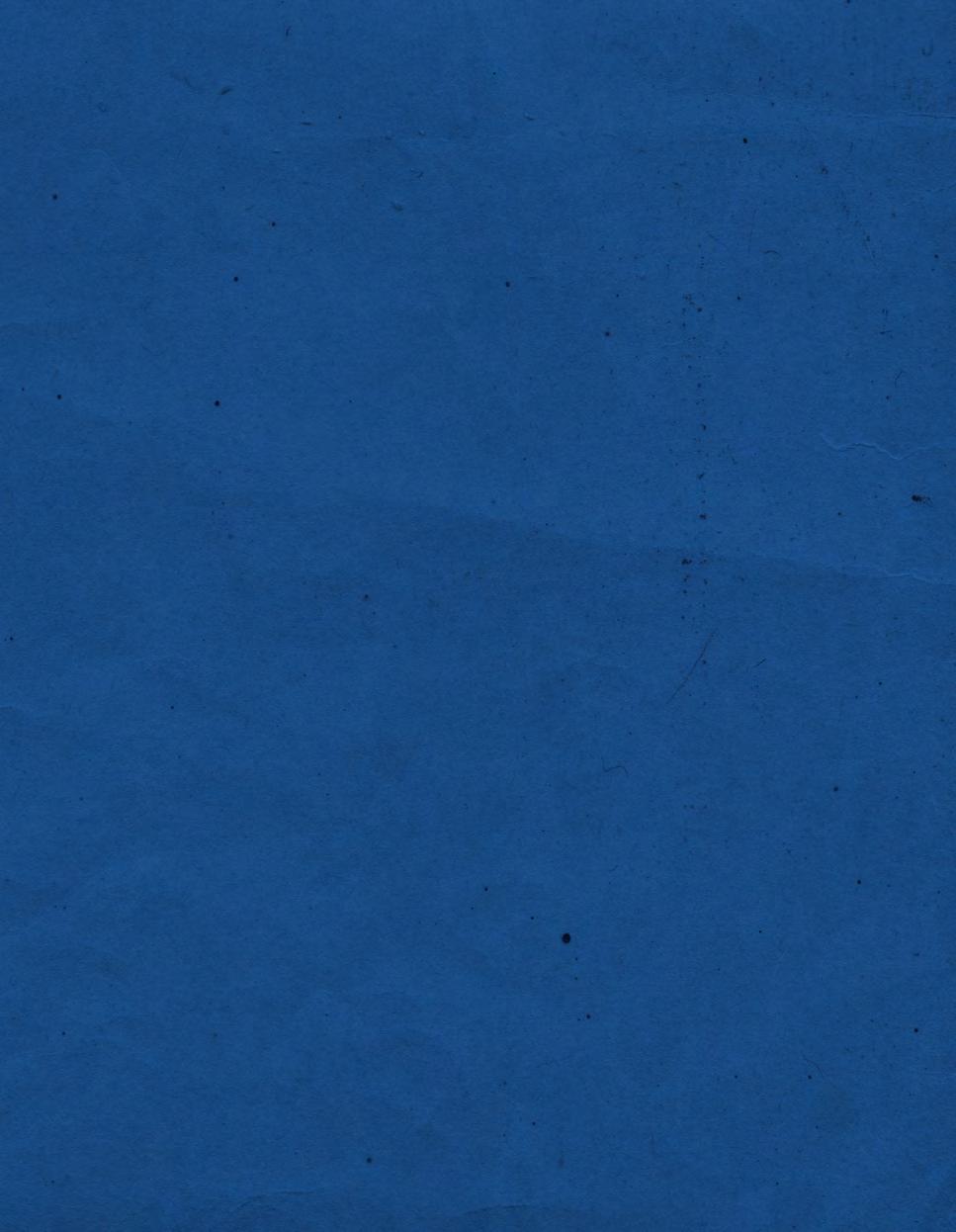

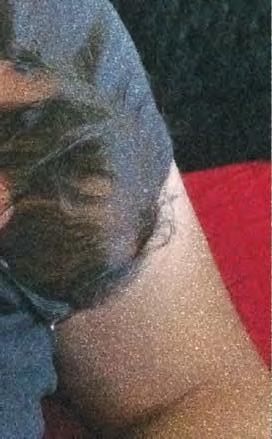


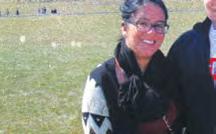
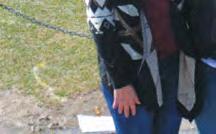




On the day of our second interview, Jean-Luc Hayes and I spent our mornings very differently. In all honesty, I overslept (don’t worry, I still made it to the interview on time). I did have to scramble to finish the reading for my law class, though, and my pace on the way to campus was somewhere between a speed walk and a light jog.






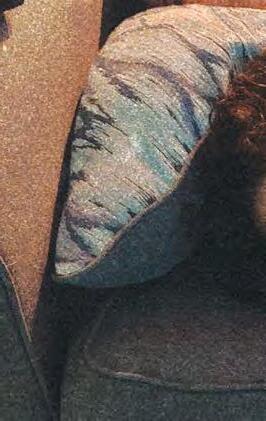

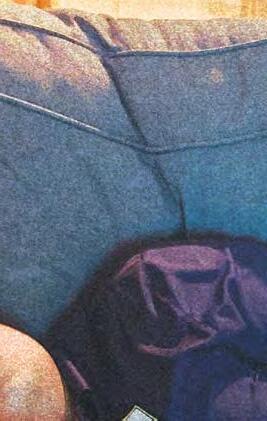

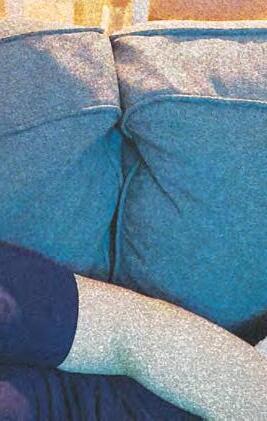

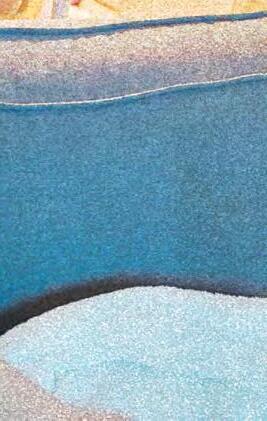
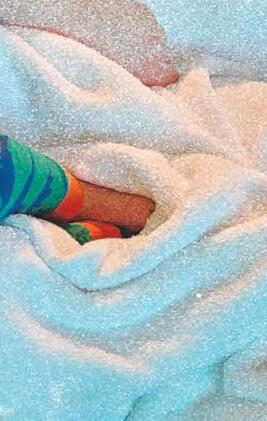





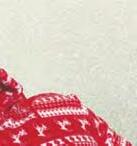





But even if I had woken up at 7:30 a.m. as I had planned, Hayes’ wake-up time would have beat mine by hours. As he does most mornings, he was splitting his time between his USC Marshall homework and making breakfast for his two sons.




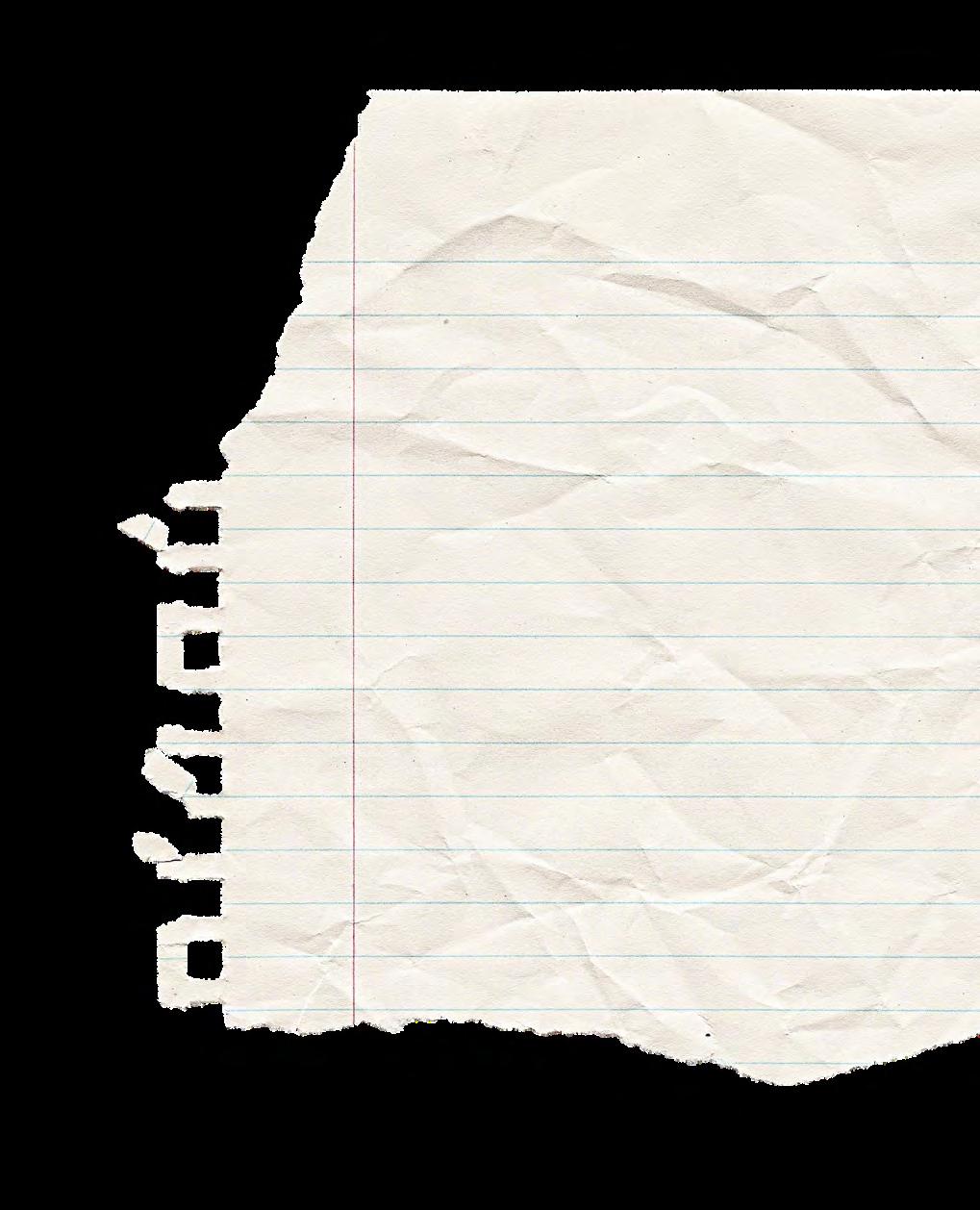




























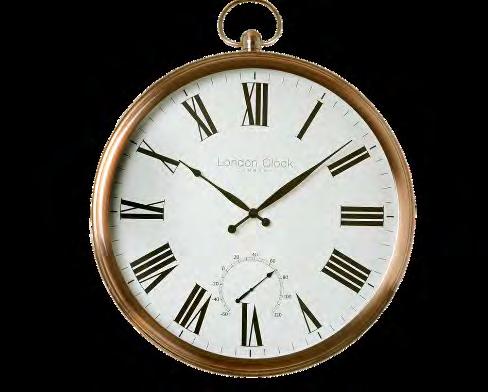
In other ways, Hayes and I had very similar days. We’re both undergraduates at USC; I’m a junior and Hayes is a sophomore. We both went to class in the morning, had lunch at the Tutor Campus Center and then clocked into our jobs — mine at Annenberg’s newsroom and his at the Veterans Resource Center.
The Veterans Resource Center, where I visit Hayes for our interview, is an open floor plan room that shares an office partition with Fraternity & Sorority Leadership Development. It’s a pretty nondescript student lounge: A pyramid of Squishmallows occupies most of the couch space, and USC Viterbi internship flyers hang next to military branch flags. There’s not much décor that would set this lounge apart from other student areas, or many indications that the students who work here have combined decades of military experience.
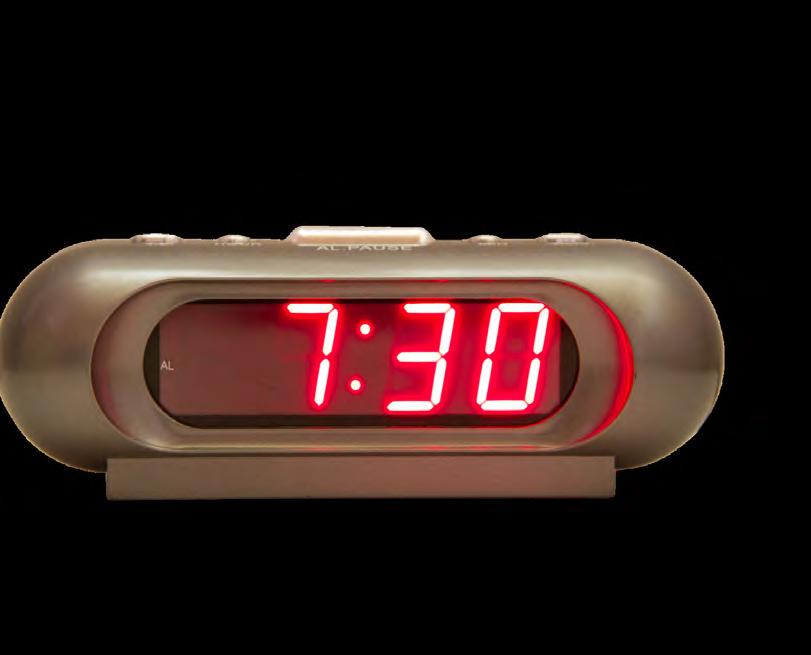
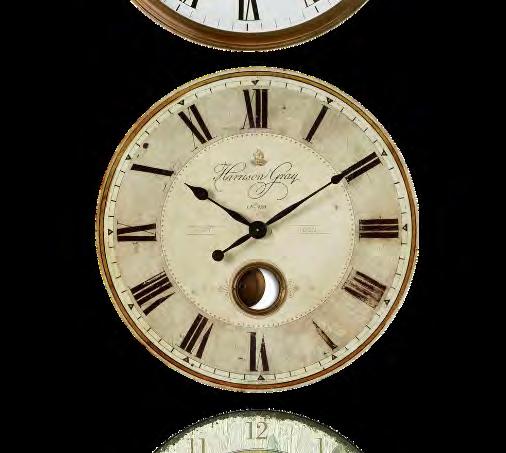

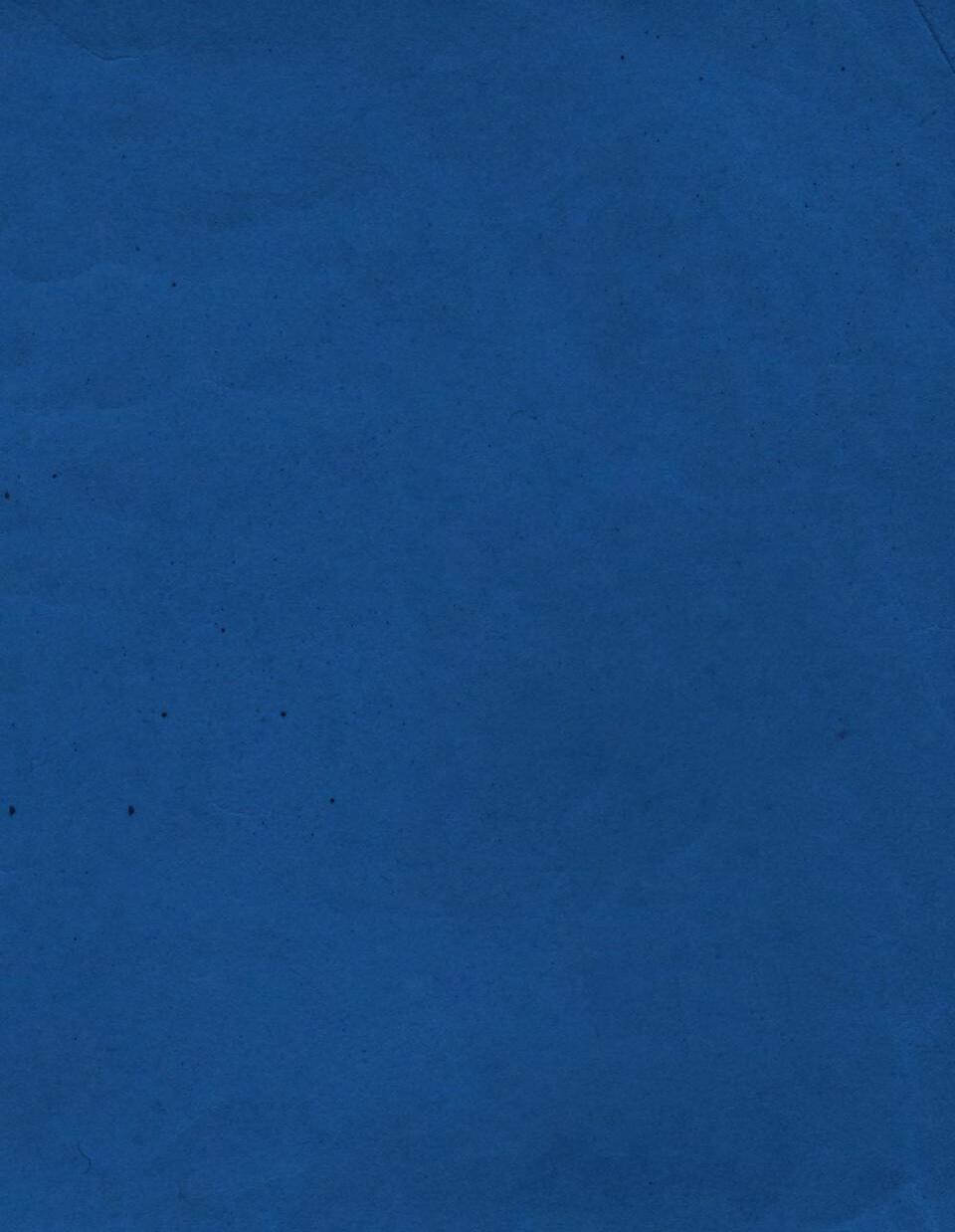
Hayes and his coworkers at the Resource Center are people whom the National Center for Educational Statistics would classify as “nontraditional students.” The definition of who exactly is “nontraditional” is somewhat murky, but it’s usually applied to undergraduates who are older than 24 or who didn’t go to college directly after high school. Some sites estimate that almost threequarters of all American college students fit this label. At elite colleges, that number is likely much smaller, but nontraditional students are still a large and meaningful component of the undergraduate student body. And they’re rarely, if ever, represented in student media — including SCene.
Although I wonder if “nontraditional” is the best word to use to describe a group of people, it fits parts of Hayes’ undergraduate experience. Hayes joined USC after 10 years in the Navy and a year of community college in the Bay Area. Now, he balances group projects for his business classes with homeschooling his 5-year-old son and movie nights with his wife. We’re both considering our summer plans at the moment, but I don’t have to weigh relocating
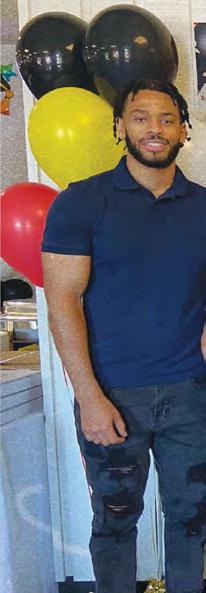

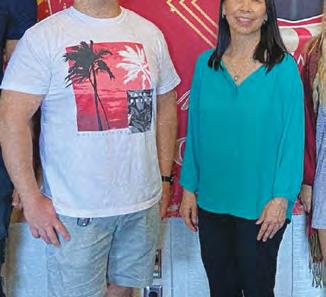

my family for three months.
I was interested to know how Hayes felt about his “nontraditional”ness, whether his personal and academic lives seemed out of alignment. Or at least, what it was like to sit in lecture halls full of people who had 10 fewer years of life experience.





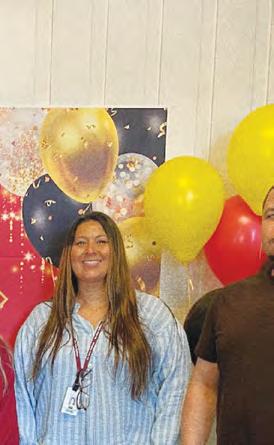
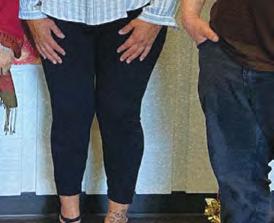



“At the end of the day, everybody’s an adult,” he says. “It’s just kind of [hard] figuring out how some people are shy and reserved. And that’s kind of new for me. We don’t really have that problem so much in the military.”
But other veteran students say their transitions to USC were
rockier. Antoino Acosta, a 29-year-old senior at USC Marshall who spent over ten years in the military, says that other nontraditional students are hard to find and harder to connect with.
“It’s definitely tough, right? … Most of the students in my classes are very traditional students and are very much younger than I am,” Antonio says. “But that’s the one thing that I like about USC Marshall is that it doesn’t matter what your situation is; we’re all goal-oriented and driven, and we get the job done.”
Part of Hayes’ time in the military eased his acclimation to undergraduate life. He worked as a technician for Raytheon’s weapon systems, but he credits his dexterity in college-age social dynamics to the time he spent with the Navy’s recruitment teams.
When he was in high school, military service was the only way Hayes saw to escape the poverty he faced for most of his childhood. He says that during his teenage years near Sacramento, heat, AC and food were always insecurities. College wasn’t an option that he considered. “There was no way to sustain myself,” he says. He’s not in contact with anyone from his home.
This same motivation to provide for himself and, later, for his two children pushed him to
apply to college. His coworkers in the Navy scoffed at the idea. While Hayes says that proving himself — or proving that he could overcome his background — got him through Navy training, it wasn’t his motivation to get an education. He was 11 years older, 28 now, and he realized that he could have a job he was passionate about.
That transition wasn’t easy, though. “My life was pretty much guaranteed to be stable when I was in the military,” Hayes says. “Coming here… nothing was guaranteed. I don’t have some sort of guaranteed income. I just have to hope for the best, and so it kind of feels like I’m spinning a bunch of plates at the same time.”


who graduated from community college and transferred to a four-year university. Although she didn’t finish her degree, her experience watching Hayes balance his undergraduate life with parenting has encouraged her to go back to college.



“The whole traditional thing — I guess I just don’t see it,” Melissa Hayes says. “We’re just trying to give our kids the best. So, for him to go back to school, it’s not really a shock.”
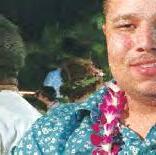
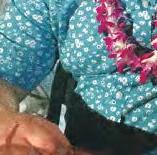
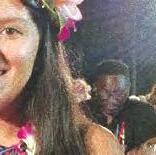

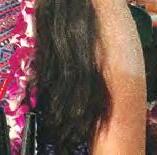


Hayes met his wife, Melissa, at a Bible study while he was stationed in San Diego. They’ve since moved three times: From Las Vegas to Santa Clara to Los Angeles. Melissa Hayes answered the call en route to Trader Joe’s with her sons. She’s quieter than her husband, but they’re both very grounded. She’s also a nontraditional student
You might be noticing a trend: Jean-Luc and Melissa Hayes and Acosta seem to be much less anxious about the undergraduateto-adult life split than our SCene writing team. Or at least, they’re more uncomfortable with the uncertainty than us “traditional” undergrads. I came into my interviews with Hayes prepared to ask about the huge anxieties he felt managing what I thought would be a double life. I expected him to tell me that he feels in limbo, stuck in some weird half-age between 20 and 30, but I wasn’t giving him nearly enough credit. It struck me that Hayes might see us more as adults than we see ourselves.


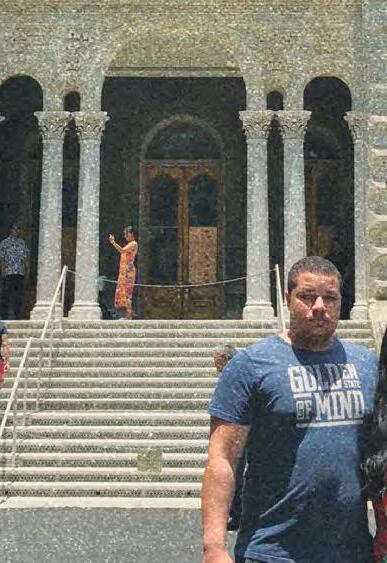

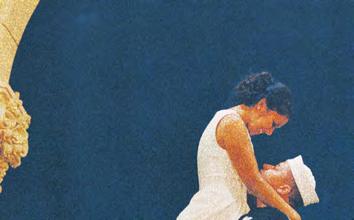

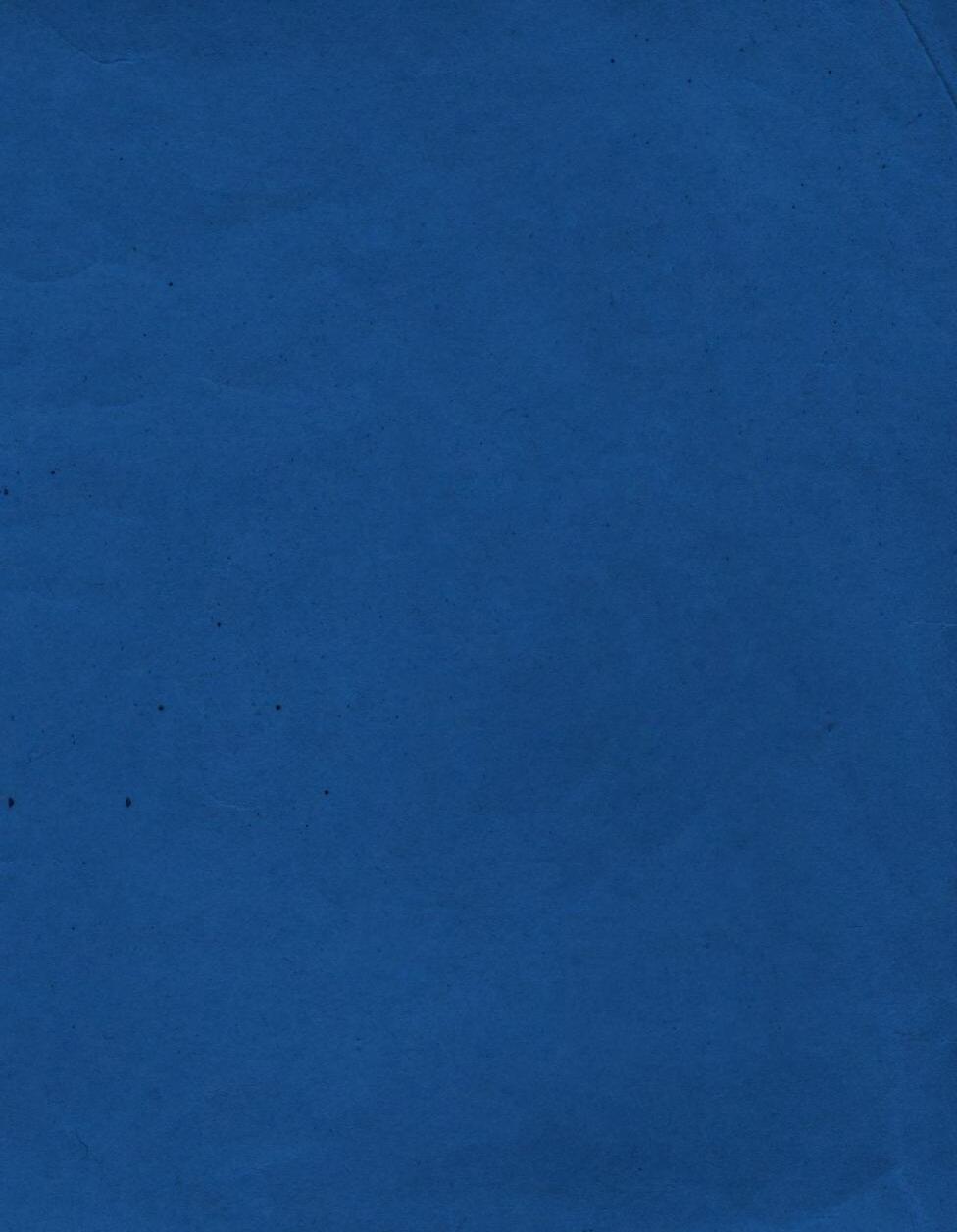
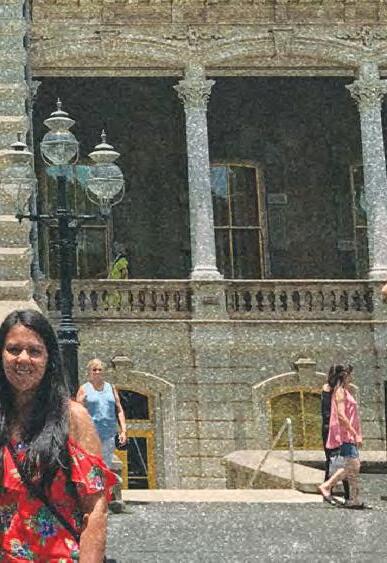




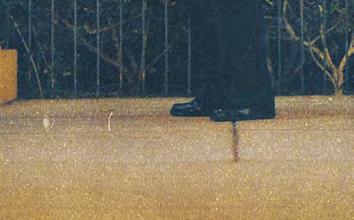

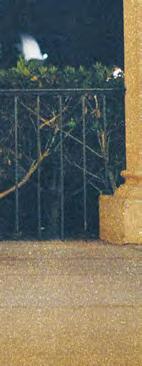



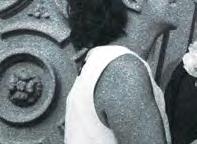
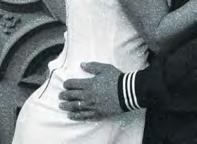
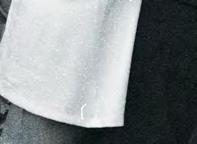

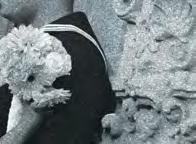



Interviewee Jean-Luc Hayes ‘26 is a business administration major from Sacramento, CA. He has traveled
to Ukraine, Oman, Dubai, Seychelles, Italy and Romania.
Maybe it’s because of his extra decade of life and work experience, but Hayes says he is very content with his decision to live the life of a college student and the life of a parent simultaneously. When I ask him about how college compared to his experience in the workforce, he only pauses for a moment: “Most nine-to-fives don’t have this much homework.”
Hopefully, this is some consolation to the SCene team, or at least to you, after we’ve spent this issue in a state of existentialism.
As we walk out of the newsroom after the interview, Hayes and I discuss our plans for the weekend.
74

I’m going to a café and he’s taking his sons to the Century City mall for a study break. But, we both have midterms due the next week.
Writer Sullivan Barthel ‘25 is a journalism major with minors in art history and legal studies from Boston, MA. His favorite pizza topping is broccoli.
Going on 22 18
Podcast by Daishalyn Satcher
Photographed by Pili Marco
Designed + Edited by Julia Zara

Growing up is hard. We jump from the past to the future to the present every five seconds. It’s inevitable. However, there’s beauty in the madness. Something that makes you feel okay on a bad day, that brings you comfort in isolation: Shared experiences.
With that I bring to you the 18 going on 22 series. I sit down with one student from each year, and they get the opportunity to share stories about their college experience.
76
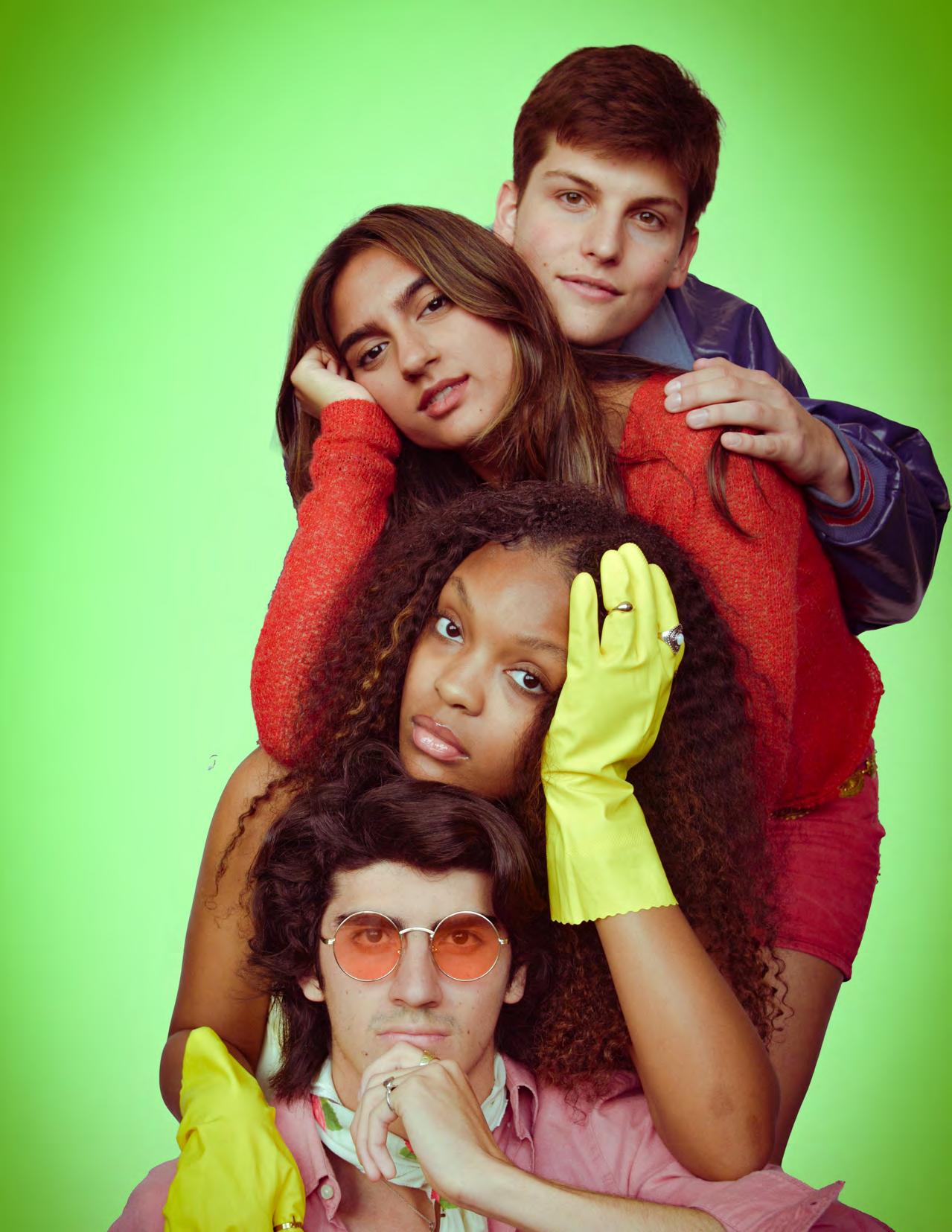 Podcast host Daishalyn Satcher ‘25 is an architecture major from Atlanta, GA.
18 GOING ON 22| Daishalyn Satcher
Podcast host Daishalyn Satcher ‘25 is an architecture major from Atlanta, GA.
18 GOING ON 22| Daishalyn Satcher
is
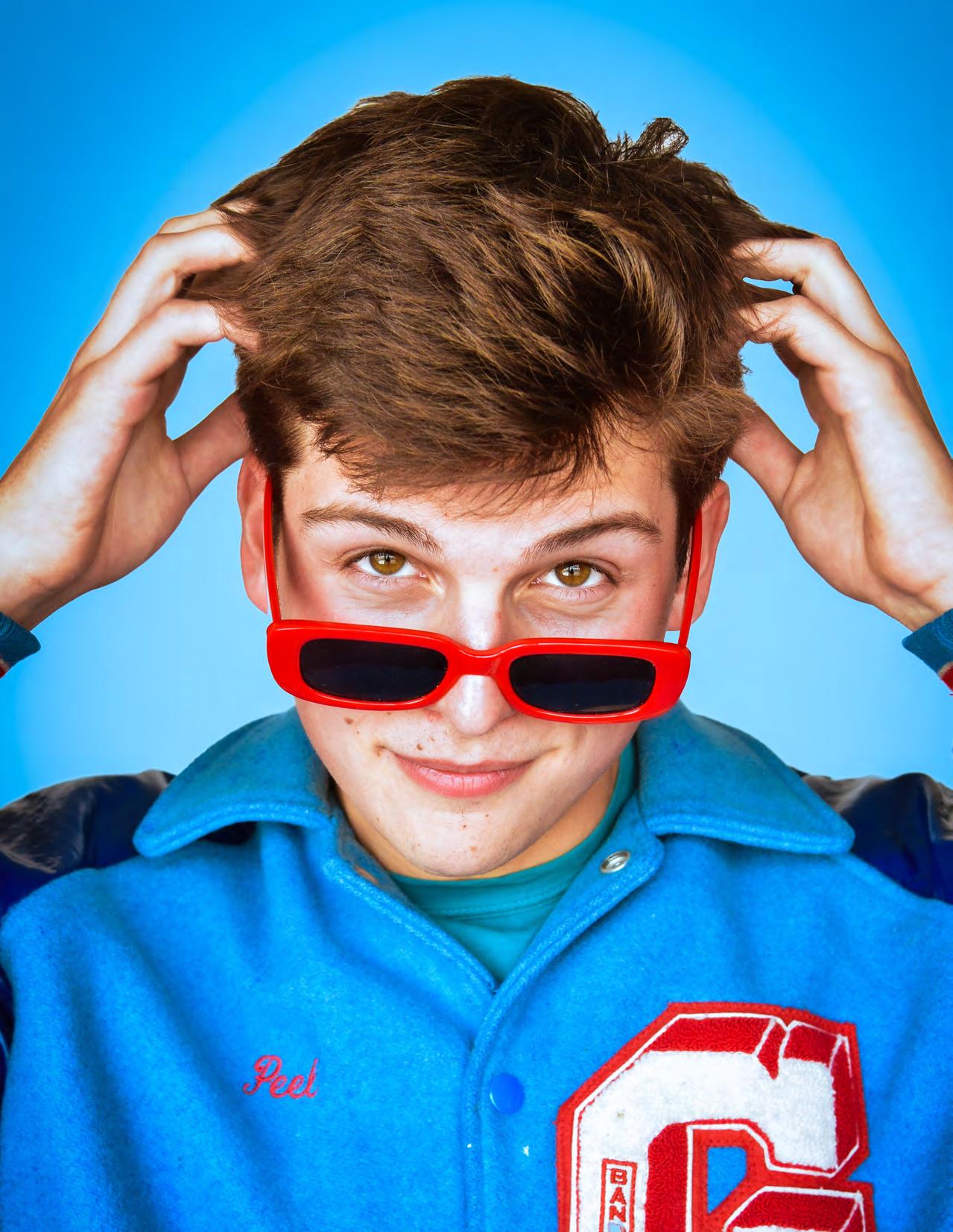
18 GOING ON 22| Daishalyn Satcher
Interviewee Cole Chiles ‘27
a world bachelor in business major from Knoxville, TN. His grandmother was the model for the Land O’ Lakes butter.
 Interviewee Zafina Virani ‘26 is an international relations major with a theatre minor from Houston, TX. She wants to be an actress.
Interviewee Zafina Virani ‘26 is an international relations major with a theatre minor from Houston, TX. She wants to be an actress.
How are you doing now compared to what you thought you were going to be doing four years ago? Did your dreams come true?

Cole Chiles (Freshman): Freshman year of high school was very ambitious, and was like, we’re going to Harvard. So, I guess I didn’t get that goal of mine. But, I’m very happy with where I am now. And I think [high school] freshman year Cole would also be very proud.
Zafina Virani (Sophomore): USC was my top choice, my big dream school. I look back four years ago, I was a sophomore in high school. I was a little baby, but it was just different. I think looking back four years, I think I’d be really proud of myself where I am now because I wanted to move to L.A., and I also really want to be an actress as well. I feel much happier here.
Earicka Jones (Junior):
I think years ago, I would have definitely told you I would be 100% pursuing acting. I still am pursuing acting. I did want something to fall back on, and I love communications ever since I found out about it. I love doing both essentially.
Matthew Calma (Senior):
I’m not going to lie, I am doing exactly what I thought I’d be doing at 18-yearsold. Like, weirdly.
What does a typical day in your life at USC consist of?
Chiles: Wake up at 4:30 in the morning — kidding. I have perfected my schedule this semester, and I set all my classes to start at 12. And so now I just do all of my homework from the hours of 7 to 11. Then the rest of the day, I’m pretty much free to do whatever. I picked up some new hobbies. I’m doing yoga now. I did some pilates. It is very hard. People make it look so easy.
Virani: Last year, I had 8 a.m.’s every single day between econ and acting. Let’s go through a Monday. So, I have business communications for about two hours. Right after, I got journalism for two hours. I usually have a little lunch break, go to the gym, and then we have Monday night dinner for my sorority. I also have Troy Labs, too, which is a Marshall affiliated club.
Jones: So [a] typical day is probably this semester, getting up at like 9 a.m. On a good day, I usually have three or four classes a day that I go to. I try to always make my schedule back to back. I work two jobs on campus. So, I usually will have a later shift. In between classes, I may try to get work done or work when I get off. I hang out with my roommate who’s also a transfer so I think we really bond on that as well. I unwind when I’m at home. I got some plants that I take care of. So, overall a pretty structured day.
Calma: I wake up and stay in bed for like an hour. An hour I usually listen to music, or I’ll read the news. I am the politics editor. But yeah, usually political YouTube videos about commentators. My favorite is The Majority Report by Sam Seder. I get a coffee, usually cappuccino, and then I sit in the Media Center for an obscene amount of hours. Then I go to class sometimes, go to my friend’s house, talk, go home, do some homework, and I go to bed.

Interviewee Earicka Jones ‘25 is a communication major from Atlanta, GA. She loves to act.
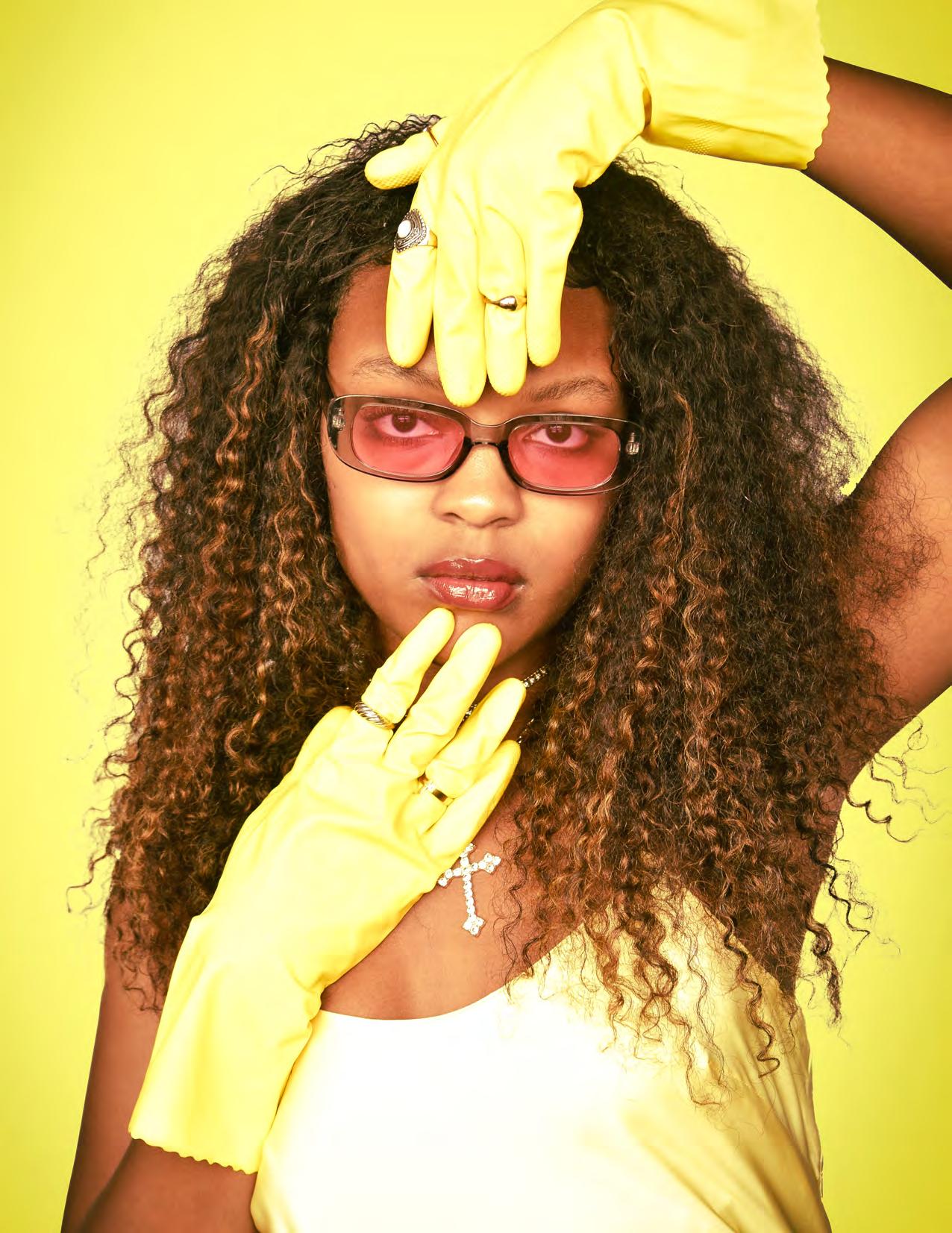
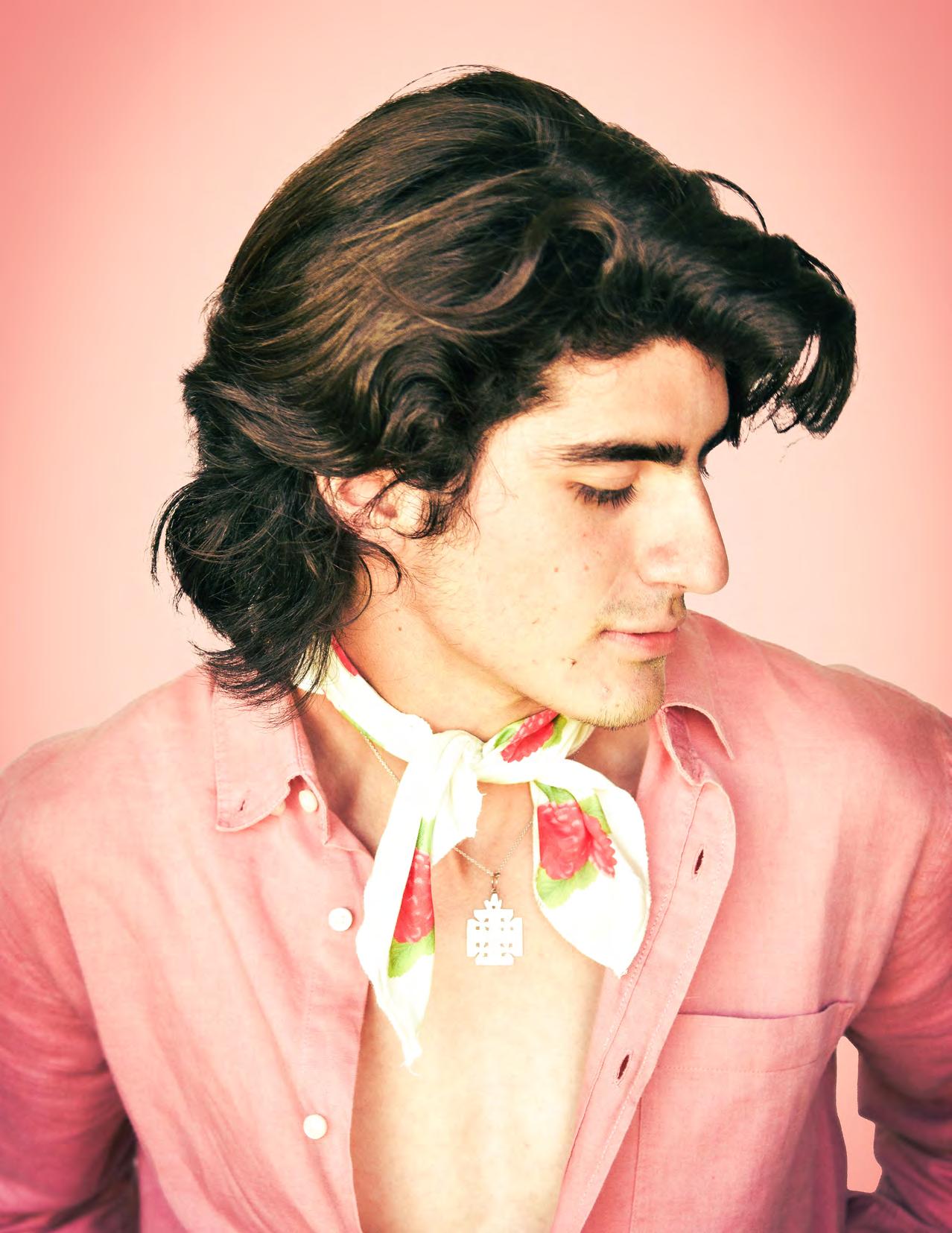
18 GOING ON 22| Daishalyn Satcher
Model Marcelino Martinez Escoriza ‘24 is an industrial engineering major from Mexico City. He hates pickles.
Where did you meet your best friend on campus/ how did your friend group form?
Chiles: Most of my friends have been from my floor and then also the people from my major. So, I found a lot of good friends that way. The people from my major, they’ll be in one of my classes. I’m like, ‘oh my gosh, we’re like in the same class.’ And then we become friends. My roommate’s also nice, so that worked out.
Virani: [I’m going to tell the story of] one of my best friends, Joe. When you’re a freshman, all of a sudden in L.A., every little party or little thing you hear about [you think is] going to be crazy. We [went to a party and] I kid you not, I have never been more scared in my life. I was terrified. We saw rats on the floor and stuff. [At] 4:30 in the morning, I went back to the village, so our friend was there, and she had a leftover Insomnia cookie. That’s what it was. We split a peanut butter cookie into fours, and we ate it. Then, we talked for hours after that. And we just became best friends.
Jones: My roommate is a pretty close friend of mine. That was just a shot in the dark. Then I met a lot of people through Helenes for sure and my time at Kó Society, too last semester, I met a lot of people that I loved. And it was great. I met other people in classes too. I’d say different avenues for sure.
Calma: Three of my friends that I’m very close with, I first met during the Welcome Back week. I went, and I didn’t want to go, but my mom was like, ‘Matt, just go. You never know.’ I saw these two girls at a table, and I walked by them, and for some reason, I just got very good vibes.



Do you feel like you receive more advice or give it out? What is the best piece of advice you have either given or received?
What are you looking forward to next year?
Chiles: I guess I’ll be in a different country. So, there’s all of that, and then, continuing to work on my relationships with my friends. I think that’s exciting to see the friendships that are going to come out of being in the smaller group of people. I’m just excited. I think for me, next year in Hong Kong, it’s going to be, you know, very far removed from my home. So, I guess self discovery.
Virani: Next year, I’m going to be a junior. I’m kind of scared. Time goes by really fast. I’m just excited to be an upperclassman. I’m excited to learn more about my field of work. I’m planning to go abroad my second semester, so I’m very excited for that.
Jones: Since I transferred, I have an extra semester to do. I want to try to study abroad — I think Hong Kong and London. I’ve started applying for internships. Definitely just auditioning more. I’ve started working my way back into looking at my acting stuff in classes.
Calma: I got my thesis. That’s going to be a lot of work. I’m very situated with the people I have now, so I’m going to make more friends. Next year is going to be very up in the air about what life looks like. Yesterday, I was like, I’m floating so much right now. I don’t know what to do. But, it’s working. I’m falling in the right direction. I don’t know what I’m looking forward to actually like, that’s a crazy question.
Chiles: I don’t know. One of the best pieces of advice came from my high school history teacher. She lived internationally, and I told her about my program. She said, ‘You cannot drop out. You cannot quit.’ So, next year if I want to quit? I’m just going to be thinking about those words. I can’t quit.
Virani: I always look at myself now, and I’m like, okay, 10-year-old Zafina wouldn’t want me to be upset about this thing. She wanted me to be happy. So, I always think of my younger self all the time, in any hardship that I go through, if it’s sad or upsetting or even if it’s happy, and it’s not what I had expected.
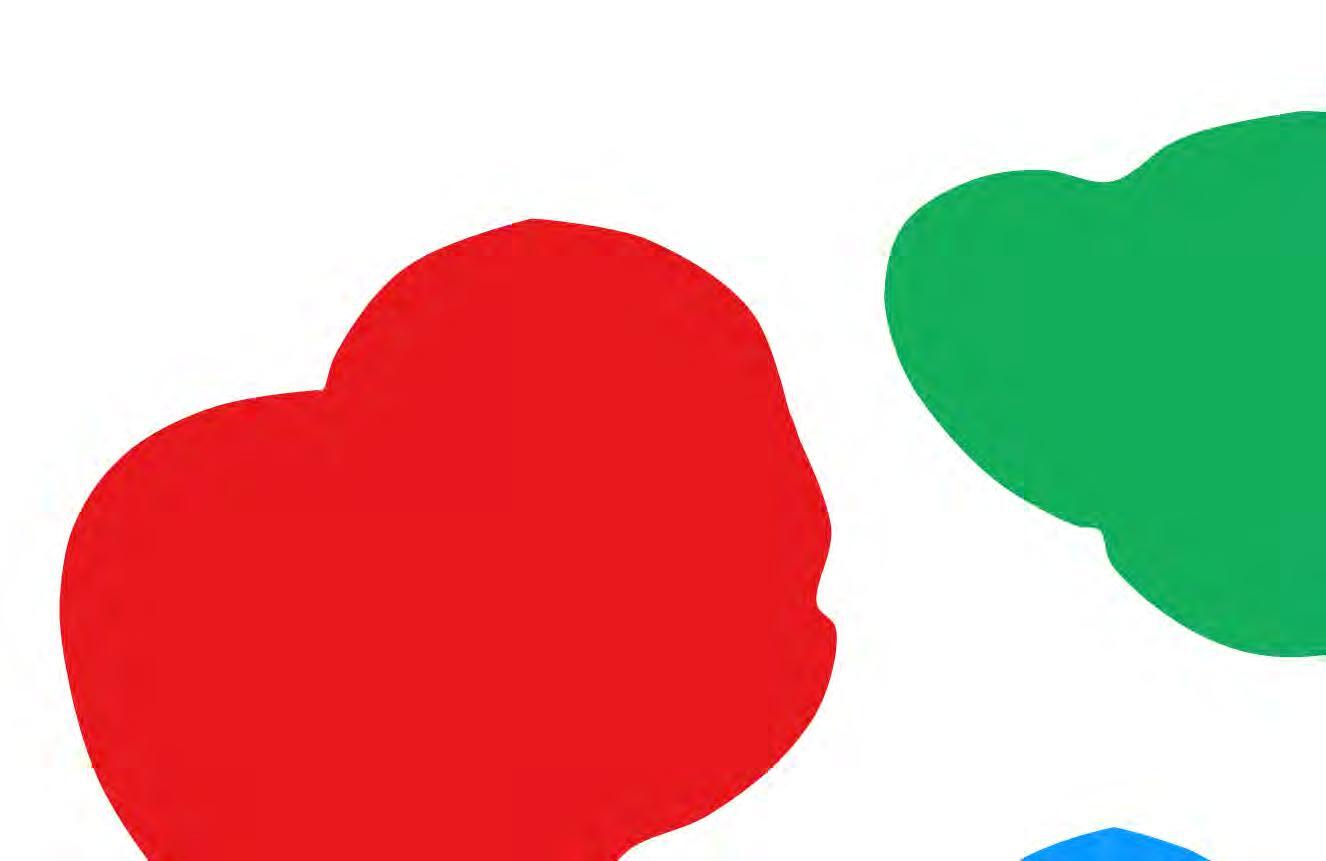

Jones: I’ve been giving out more advice. I mentioned before, me volunteering at the 32nd Street School. When I went to 32nd Street, I talked to predominantly seniors there because we’re asking them about their college life and stuff, I think it was basically just telling them to take a breather, and you don’t have to have everything figured out right now. That’s the whole point of living. You need to try different things, trial and error, right? I’m a junior, and I’m still figuring everything out.
Calma: I’ve been getting a lot of advice recently, because I’ve been going out of my way to ask for it. I’m also giving out more advice than I’ve ever given out before. So, I’ll tell you the best advice I ever gave: Every action that you take contributes to the person that you’re going to become. So, just keep that in mind.

In one word, how has your college experience been?
Chiles: Exceptional
Virani: Spontaneous Jones: Enlightening
Calma: Bye

Want to eavesdrop on the conversation?
Scan the QR code to listen to “The Daish Diaries,” found on SCene and Heard via Spotify.


ADULT-ish ADULT-ish ADULT-ish ADULT-ish ADULT-ish ADULT-ish ‘ADULT-ish ADULT-ish ADULT-ish ADULT-ish ADULT-ish ADULT-ish
ADULT-ish ADULT-ish ADULT-ish ADULT-ish ADULT-ish ADULT-ish ADULT-ish ADULT-ish ADULT-ish ADULT-ish ADULT-ish ADULT-ish
ADULT-ish ADULT-ish ADULT-ish ADULT-ish ADULT-ish ADULT-ish ADULT-ish ADULT-ish ADULT-ish ADULT-ish ADULT-ish ADULT-ish ADULT-ish ADULT-ish ADULT-ish ADULT-ish ADULT-ish ADULT-ish ADULT-ish ADULT-ish ADULT-ish ADULT-ish ADULT-ish ADULT-ish ADULT-ish ADULT-ish ADULT-ish ADULT-ish ADULT-ish ADULT-ish
ADULT-ish ADULT-ish ADULT-ish ADULT-ish ADULT-ish ADULT-ish
ADULT-ish ADULT-ish ADULT-ish ADULT-ish ADULT-ish ADULT-ish ADULT-ish ADULT-ish ADULT-ish ADULT-ish ADULT-ish ADULT-ish ADULT-ish ADULT-ish ADULT-ish ADULT-ish ADULT-ish ADULT-ish
ADULT-ish ADULT-ish ADULT-ish ADULT-ish ADULT-ish ADULT-ish ADULT-ish ADULT-ish ADULT-ish ADULT-ish ADULT-ish ADULT-ish ADULT-ish ADULT-ish ADULT-ish ADULT-ish ADULT-ish ADULT-ish ADULT-ish ADULT-ish ADULT-ish ADULT-ish ADULT-ish ADULT-ish
ADULT-ish ADULT-ish ADULT-ish ADULT-ish ADULT-ish ADULT-ish
ADULT-ish ADULT-ish ADULT-ish ADULT-ish ADULT-ish ADULT-ish
ADULT-ish ADULT-ish ADULT-ish ADULT-ish ADULT-ish ADULT-ish ADULT-ish ADULT-ish ADULT-ish ADULT-ish ADULT-ish ADULT-ish
ADULT-ish ADULT-ish ADULT-ish ADULT-ish ADULT-ish ADULT-ish
ADULT-ish ADULT-ish ADULT-ish ADULT-ish ADULT-ish ADULT-ish ADULT-ish ADULT-ish ADULT-ish ADULT-ish ADULT-ish ADULT-ish ADULT-ish ADULT-ish ADULT-ish ADULT-ish ADULT-ish ADULT-ish
ADULT-ish ADULT-ish ADULT-ish ADULT-ish ADULT-ish ADULT-ish
ADULT-ish ADULT-ish ADULT-ish ADULT-ish ADULT-ish ADULT-ish ADULT-ish ADULT-ish ADULT-ish ADULT-ish ADULT-ish ADULT-ish ADULT-ish ADULT-ish ADULT-ish ADULT-ish ADULT-ish ADULT-ish
ADULT-ish ADULT-ish ADULT-ish ADULT-ish ADULT-ish ADULT-ish
ADULT-ish ADULT-ish ADULT-ish ADULT-ish ADULT-ish ADULT-ish ADULT-ish ADULT-ish ADULT-ish ADULT-ish ADULT-ish ADULT-ish ADULT-ish ADULT-ish ADULT-ish ADULT-ish ADULT-ish ADULT-ish ADULT-ish ADULT-ish ADULT-ish ADULT-ish ADULT-ish ADULT-ish ADULT-ish ADULT-ish ADULT-ish ADULT-ish ADULT-ish ADULT-ish ADULT-ish ADULT-ish ADULT-ish ADULT-ish ADULT-ish ADULT-ish ADULT-ish ADULT-ish ADULT-ish ADULT-ish ADULT-ish ADULT-ish
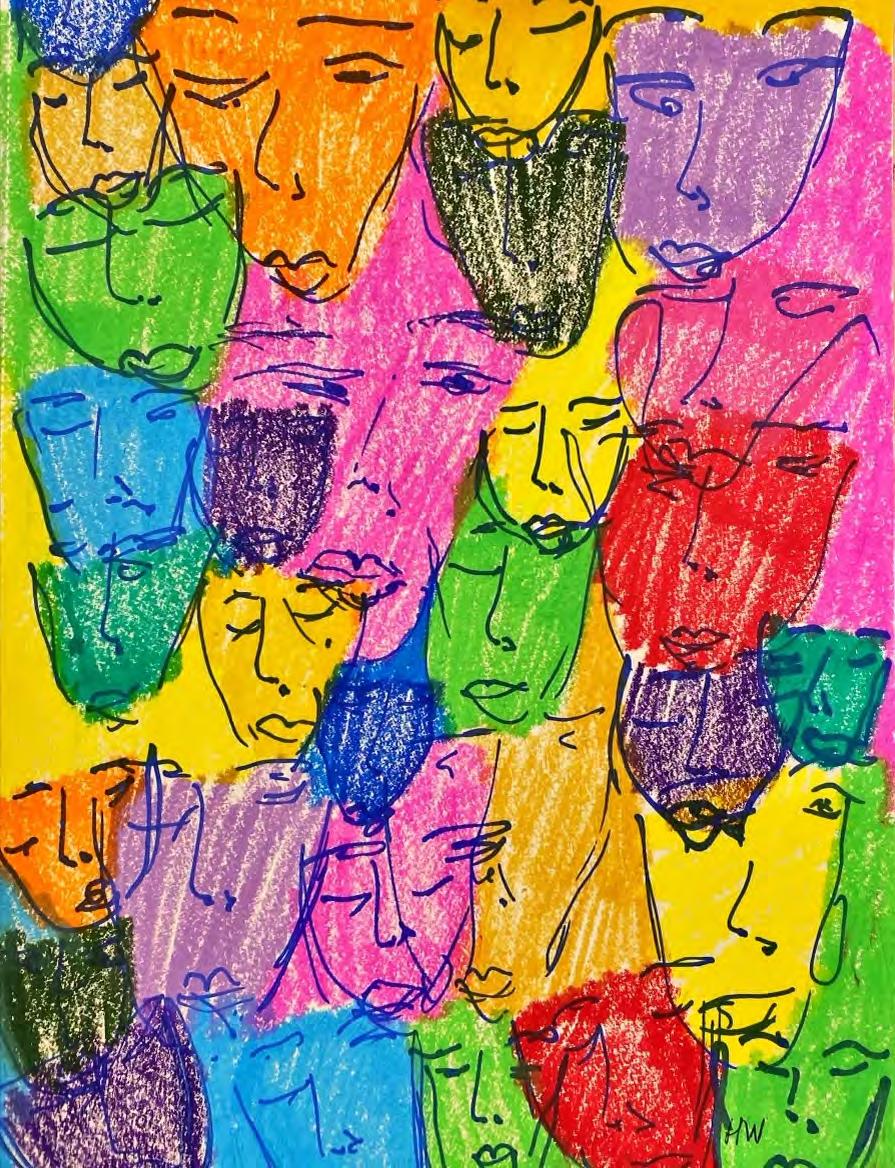

90
Original art by Hannah Wiser
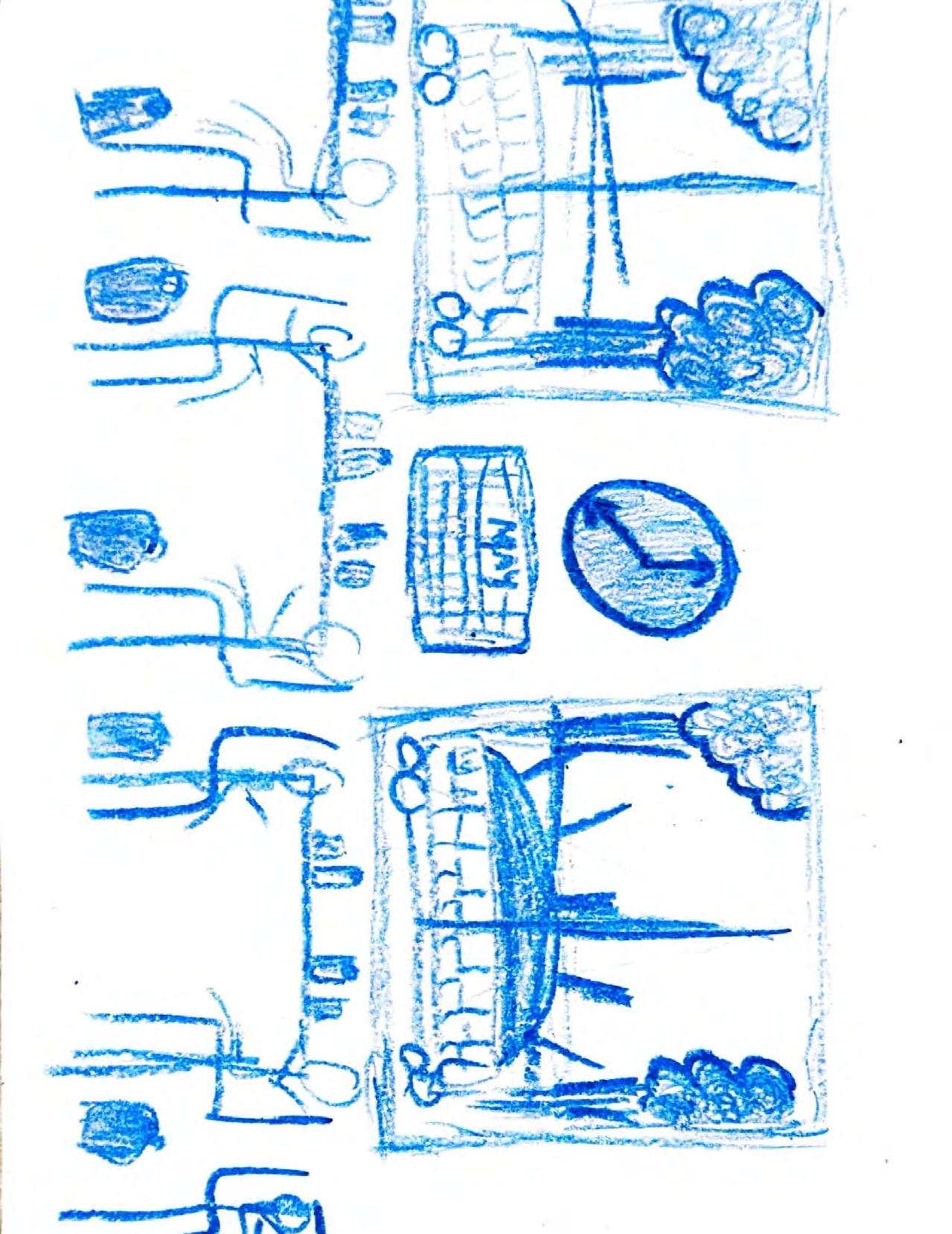
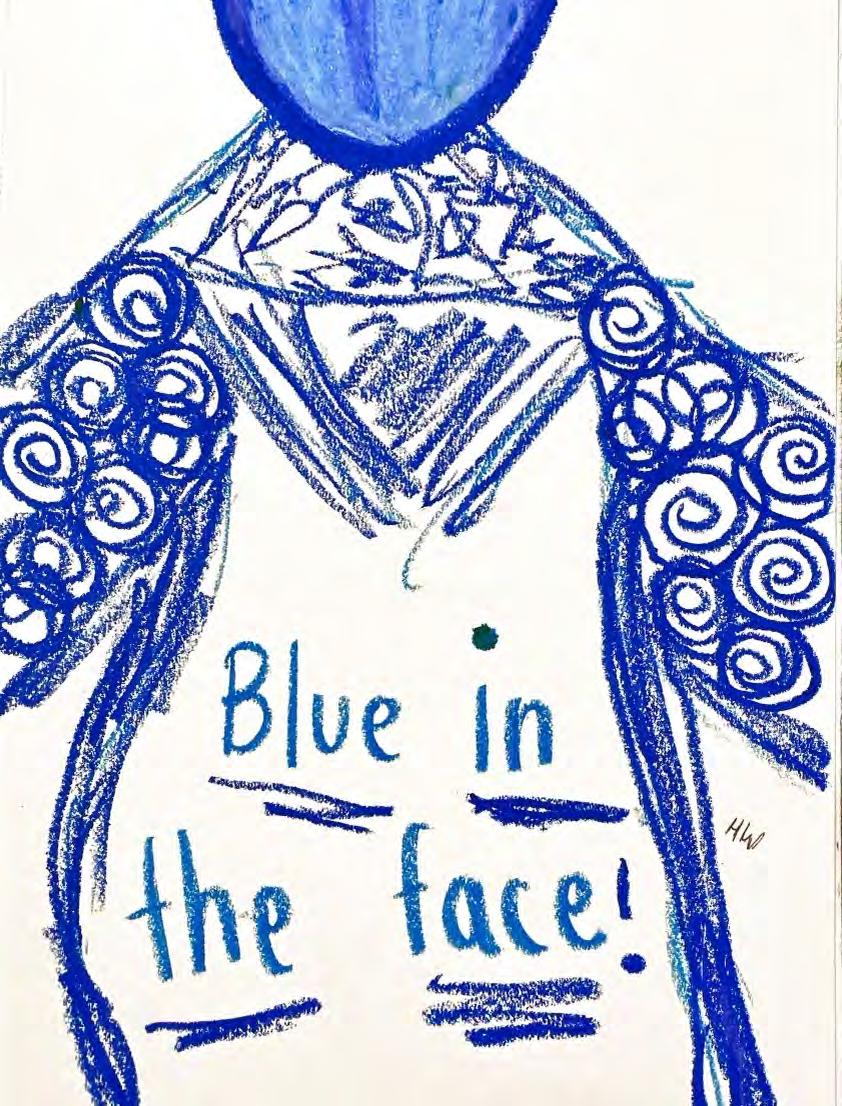


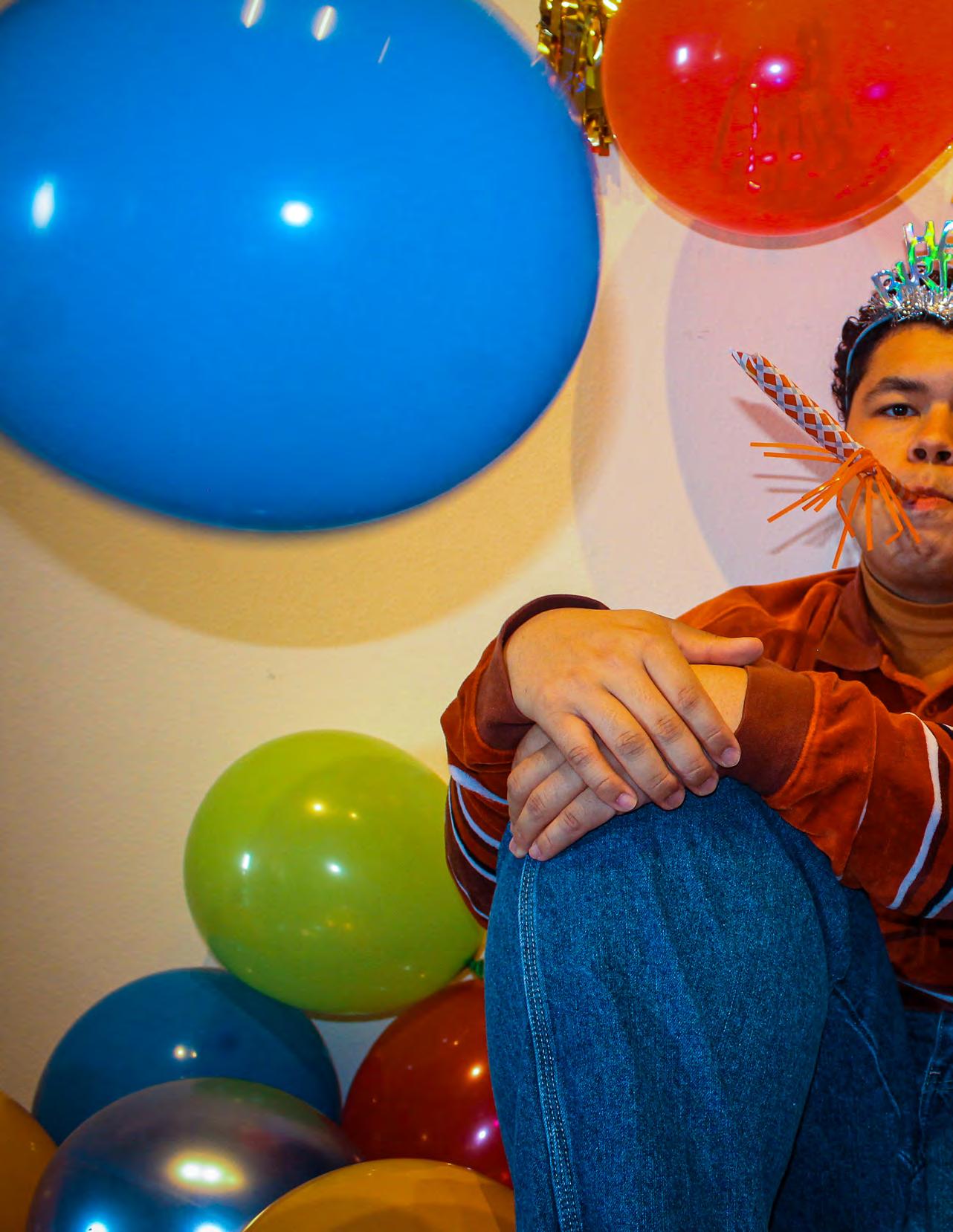 Writer and model
Benjamin Turnquest ‘25 is a production major from Flossmoor, IL.
Writer and model
Benjamin Turnquest ‘25 is a production major from Flossmoor, IL.


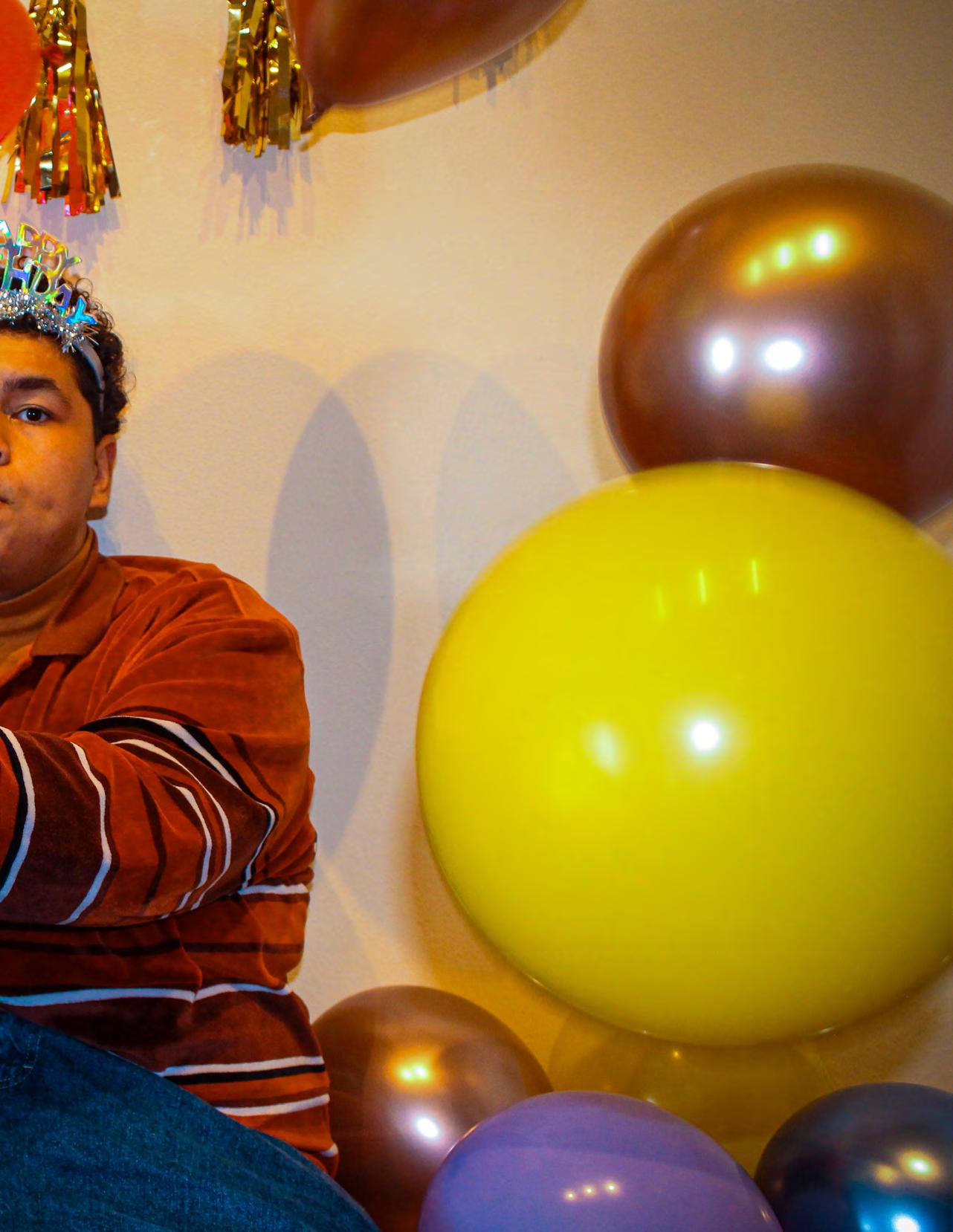 Written by Benjamin Turnquest
Photographed by Rhian Jones DESIGNED BY CARLEE NIXON
Written by Benjamin Turnquest
Photographed by Rhian Jones DESIGNED BY CARLEE NIXON
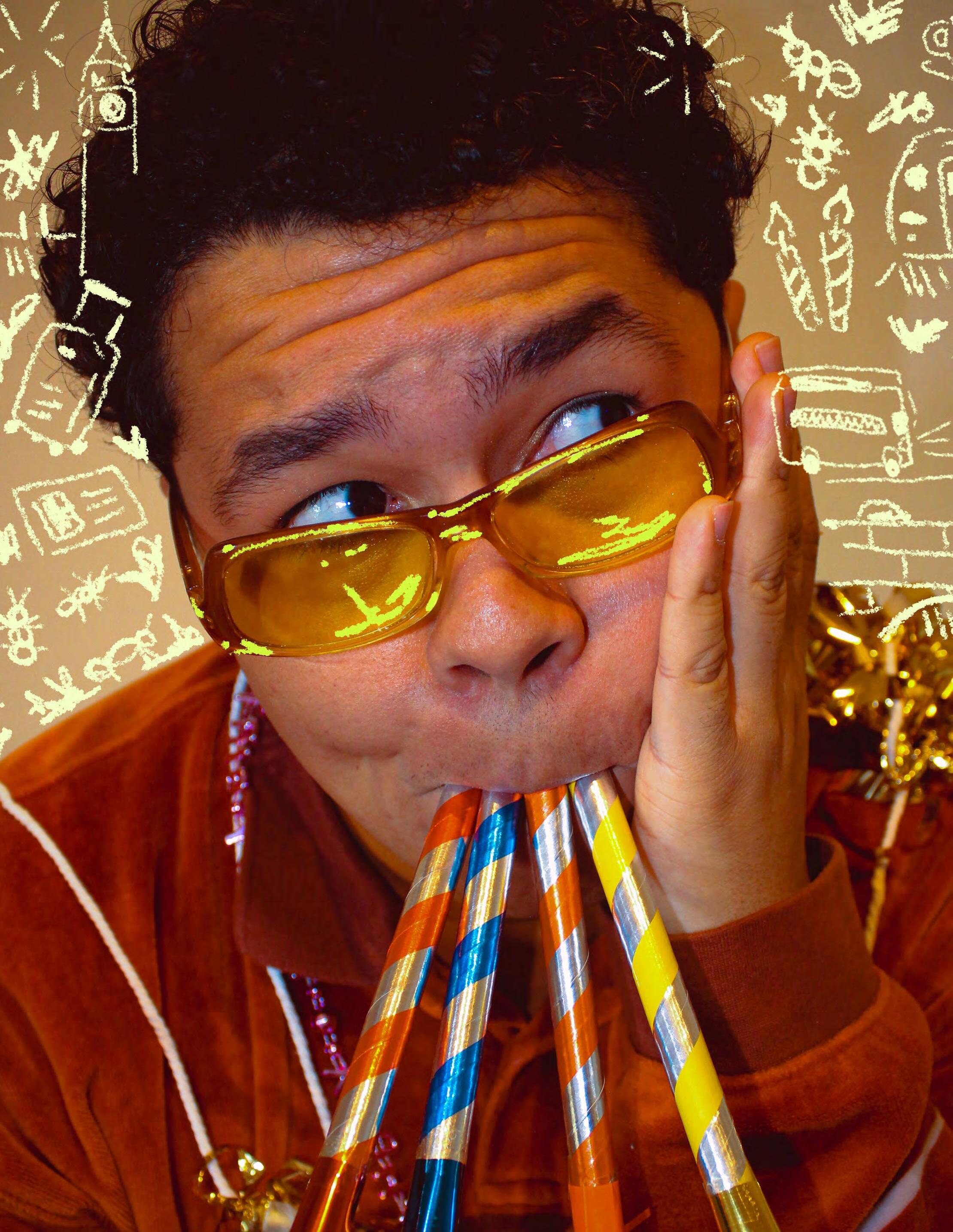
Ibuprofen on an empty stomach. Twenty under, 20 underneath the wicks of unlit candles.
2003. It’s a Tuesday in late August, 75 degrees in the dead of night. Though his mother wished she could’ve felt the high of 83 earlier in the day, she was in a hospital bed for 19 hours of arduous labor. But now, off the back of three trimesters across 41 weeks — and one goddamned failed epidural — a lil’ coneheaded, big-boned munchkin lies on the table probably wondering why it’s so bright and so cold.
Years will follow. A sprightly child will morph into a hormonal teen who will morph into an adult finding his way. Birthdays postmark the years as they fly by faster; phones and photobooks operate as living documents of who has stood the test of time. Yet, his mom and dad have stopped planning the parties, mostly because he says he doesn’t want them anymore. The world has told that kid that the responsibility of celebrating himself has now fallen on him. It’s a weight on his shoulders, learning how to make himself feel loved on such a special day, when sometimes, he can’t help but disdain himself. So, as the years pass by, his birthday has served as a reminder of how bright and cold the world continues to be. Worst of all, these are the years he’s supposed to cherish the most. The adults in his life yearn for the supposed freedom and reckless abandon of his college years, but the time seems to fall through his fingertips like grains of sand. From newborn to the new decade, being on the brink of 20 hurts, and he isn’t even allowed to feel bad about it.
2023. Cambridge, England. Being here’s a privilege, not one without a maxed-out credit card. At the stroke of midnight, I sit by strangers in a bar as they rejoice in such a celebration. Completely unbeknownst to the lot of us at our first introductions, many weeks ago, we now hold each other like the best of friends. But, in just a few short hours, they will all go back home. It’s now my twentieth birthday and my last day in this country. I should be happy — I am happy, but also scared.
My birthday tab from the night before is settled. Morning light spills through my window in the quaint, carpeted room I’ve been living out of for the last six weeks. I pack up the trinkets and memories from this journey and step across the familiar cobblestone street. I await a car to take me to a train. This train station has become my best friend. Moving between cities, finding the freedom I yearn for. I’m alone. Maybe lonely. Mind the gap.
“So, as the years pass by, his birthday has served as a reminder of how bright and cold the world continues to be.”
He is me. Benjamin. Birthdays kind of suck, but here’s how this year’s went.
London. Off the train. Luggage in tow. The longer I walk around, the more that I find and the less I seem to understand. I hop on the Circle line on the Tube — what the train is called here. I hate the Circle line. It’s a line that goes in a loop instead of back and forth like the rest of them. The first day I was here, I entered from the wrong side of the Edgware Road station. District line meets the Hammersmith and City line meets the Circle line. All of the train routes blur together like an overboiled bowl of freshly-cut pasta, the contours of their lines ceasing to exist. A wash of yellow, pink and green. I could pay my fare to walk around to the opposite end, or try to hop on, get off at another station and reverse directions. Alternatively, I walked around in purgatory of endless loops, pacing through the station with 70 pounds of luggage, hoping a solution
95
“Sometimes I don’t know if I fit into this city or am just crammed with enough people here — packed like sardines in oil — that our existence feels like a semblance of belonging.”
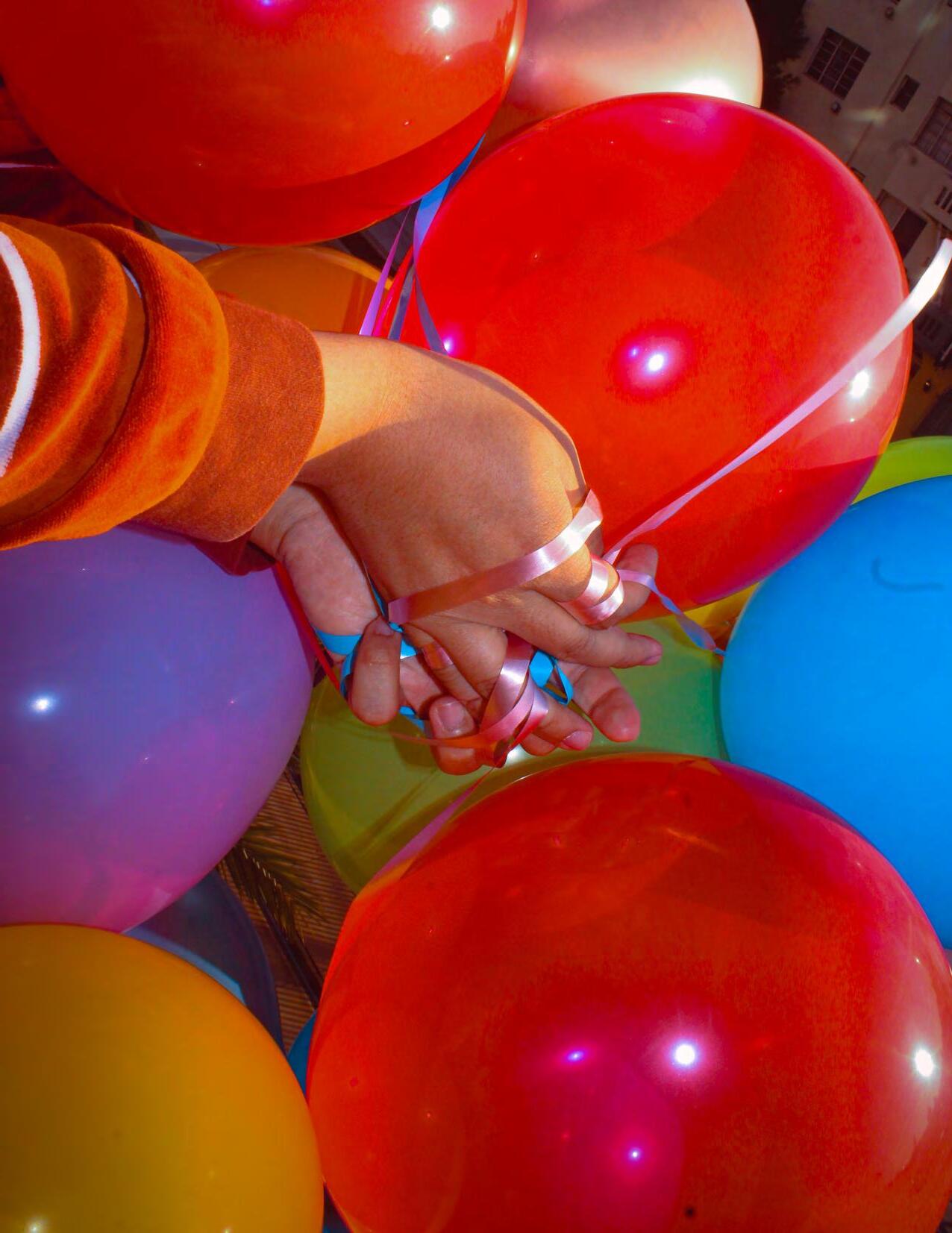
would simply carve itself in the white subway tile. I still watch as trains pass me by: It’s t-minus one. It’s a new day, but I carry the same luggage, same baggage; looping the same cycles, just weeks later.
I sit at a cafe on St. Katherine’s Docks Basin. Blueberry muffin (warm it up for me), oat milk latte (iced). Snap. I take a picture of the scene. I take a picture of everything now. I try to capture everything as if it’s running away from me. I’m not just turning 20, but entering my twenties. This is where life is supposed to begin, yet starting off with a broken compass can make moving in any direction feel like a climb uphill.
Sally Rooney described in her novel, “Normal People,” something that I feel quite akin to: “Marianne had the sense that her real life was happening somewhere very far away, happening without her, and she didn’t know if she would ever find out
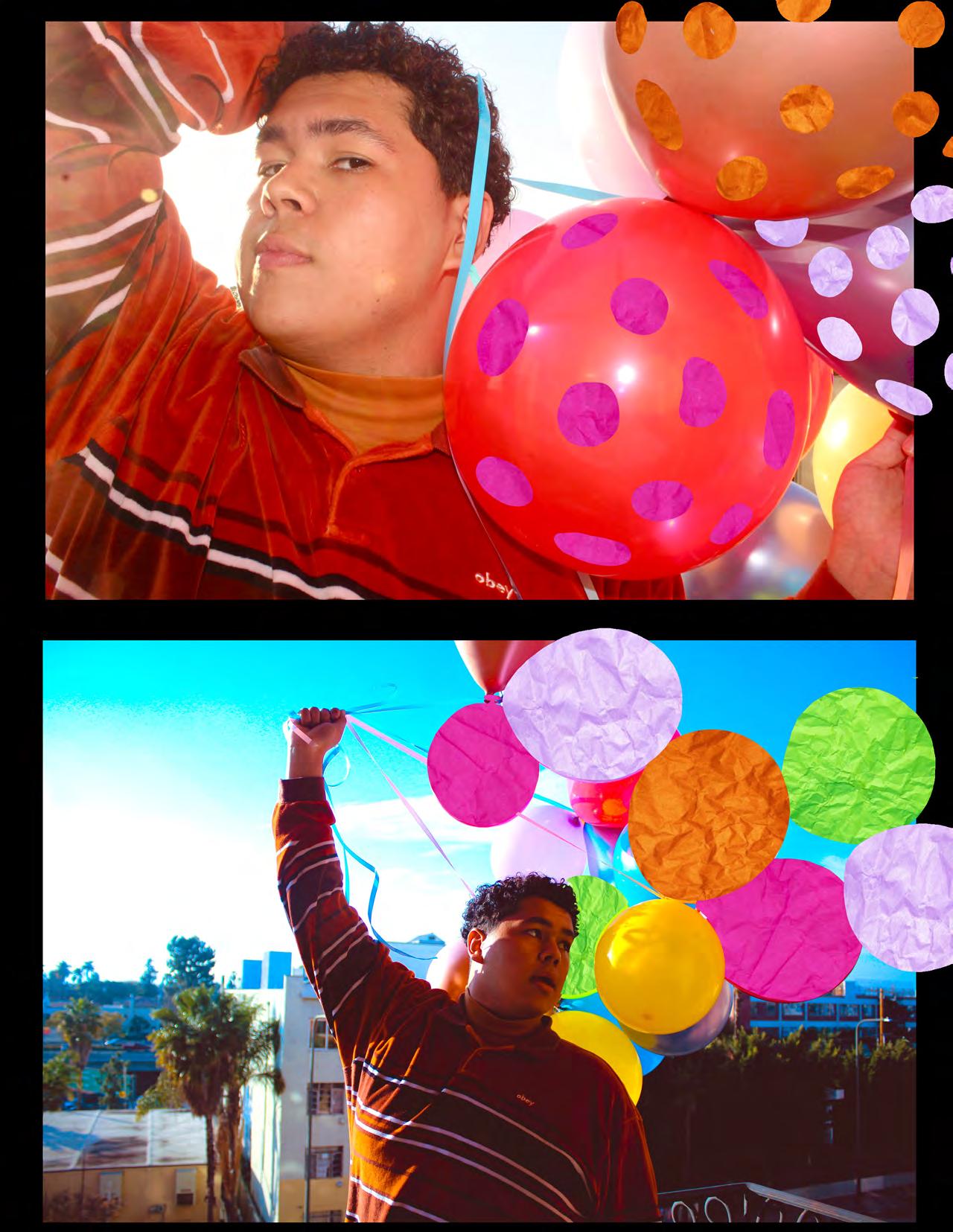
20 UNDER, 20 UNDERNEATH| Benjamin Turnquest
A music lover, Turnquest used to sing in a choral group that went on tour in Italy to sing mass in cathedrals around the country.
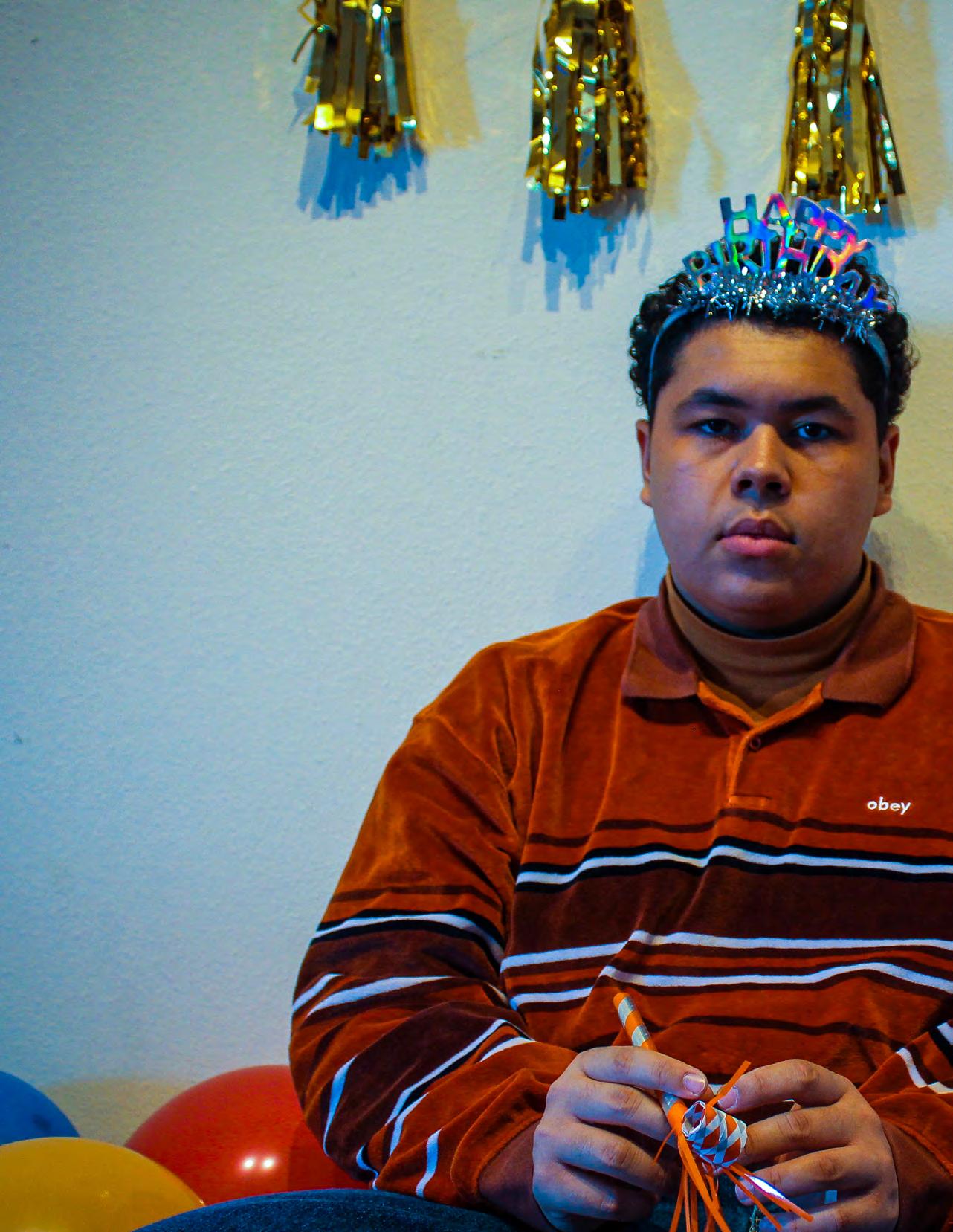
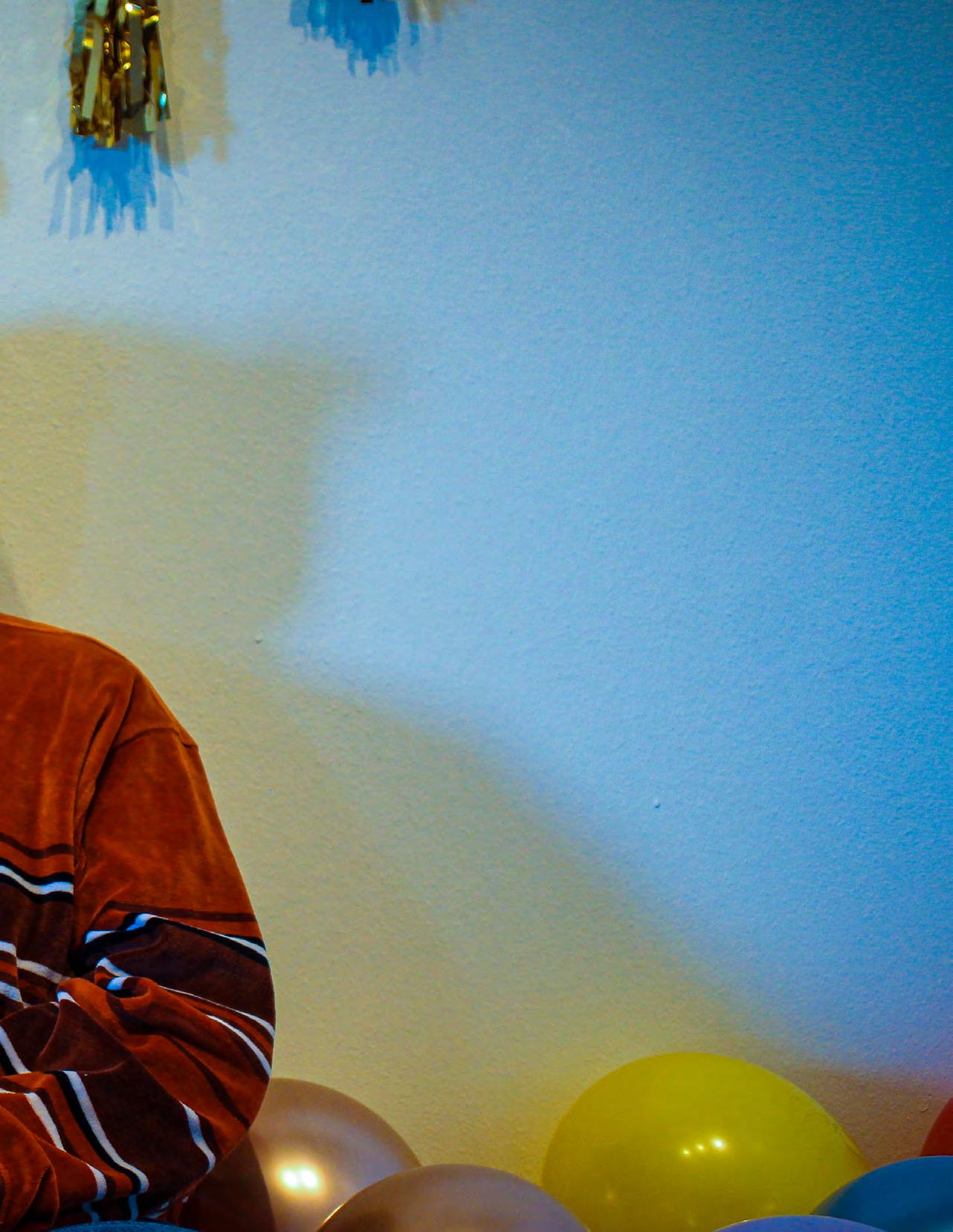
where it was or become part of it.” I watch moments of my own life happen before my eyes, and wonder if I might ever get the chance to ever be truly a part of them. Even with this English reprieve, my life is in Los Angeles. Sometimes I don’t know if I fit into this city or am just crammed with enough people here — packed like sardines in oil — that our existence feels like a semblance of belonging.
I don’t know, nor will I ever.
I’m bubbling beneath the surface; it’s calm here, but I am not calm. I make a phone call home. I pay my bill. I go for a walk. I end up back on the Tube. More lines, slowly so tangled. The tracks screech and scream at me. The air is open and rushes in; it’s flying chaos above air. I shut my eyes, expecting to launch into space. fly, Fly, FLY, FLYYYYYYYYYYYY. Mind the gap. I’m off.
The streets are crowded, and I’m somewhere near Chelsea. I stumble down blocks, and my backpack feels heavier than ever. I find a bookstore. The weight of the words hold the structure into the ground — a tornado could ravage through the block, but this house would hold still, all held up by spines and pages. I wind up a spiraling staircase. A window sits open; the air falls against my skin. I sit on the sill. I look out. On a busy Saturday afternoon, people bustle below me. From this view, everyone looks so small. I chuckle as they sit and eat and run around, so concerned with the trials and tribulations of being human — yet to me, they’re just ants. To the skyscrapers above, I, sitting in the windowsill of an old bookstore, am also just an ant. Yet, my anxiety feels so much larger — my fears so much greater than that of the ant.
Being in this city on this day is a gift, but it’s also an expensive reflection of selfdoubt. I could’ve come home a day earlier and spent this time at home or at school. Yet, being
somewhere unknown is easier than finding out if what I’d be coming back to would be a disappointment that I hoped it wouldn’t be. I turn away from the love that is for the fear of discovering what isn’t, or maybe who isn’t.
Twenty under, 20 underneath the Tower Bridge.
I’m sitting here in a beautiful country (of which I can legally drink), one that I have fought tooth, nail and coin to visit. Yet, my mind is with all of the people thousands of miles away who may or may not have treated me to a standard of perfection that I can’t even perceive nor define myself. Yet, from this bookstore windowsill, I look to bodies running amongst the grass and realize that, to each of them, their fears and worries are so large that they couldn’t possibly see the world beyond their own little ant brains. Just like me.
“I’m not running away, but running toward a person I hope to become.”
I have so much in this moment. A passport, enough cash to burn for a night and two new friends that are arriving on trains to see me for a few hours. So focused on ants, I forget all of the beautiful stories staring back at me. I hop off the sill.
Not out the window, but onto the floor, thankfully.
Out of a spiral and down the store’s swirling staircase, I walk back outside. The wind blows by and cherry-red double decker buses tower overhead. I’m a part of the machine, one spec moving through the world — an ant if you will. In this moment, I feel that I am so small and, suddenly, the weight that is holding up the world begins to feel a bit lighter.
I find my two friends. We’re prim at high tea and proper in modern theater. We walk to a bar with bad drinks and eat midnight kebabs. I go home, look at myself and cry a little in the reflection of moments where I laughed a lot. It was a pretty perfect day. And it’s over.

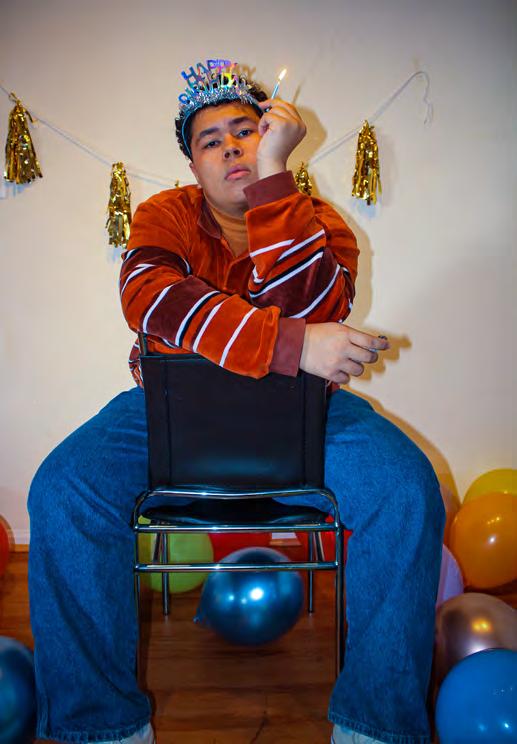
Hurricane Hilary is flying up the western coast of the Americas, and before falling asleep on my bed beneath the bridge, I can’t help but feel the world compelling me to stay. To be 20 and alone. It’s sad and quite freeing.
I sit in this bed, sleep deprived, and realize I grasp a certain power to celebrate this moment — knowing it is only mine to hold. Whether this time was spent with strangers or best friends, I’m glad the entrance to this new year of life was spent doing what I wanted to.
I’m not running away, but running toward a person I hope to become.
Twenty under, 20 underneath a love I dare to give myself.
So, let me be smothered.

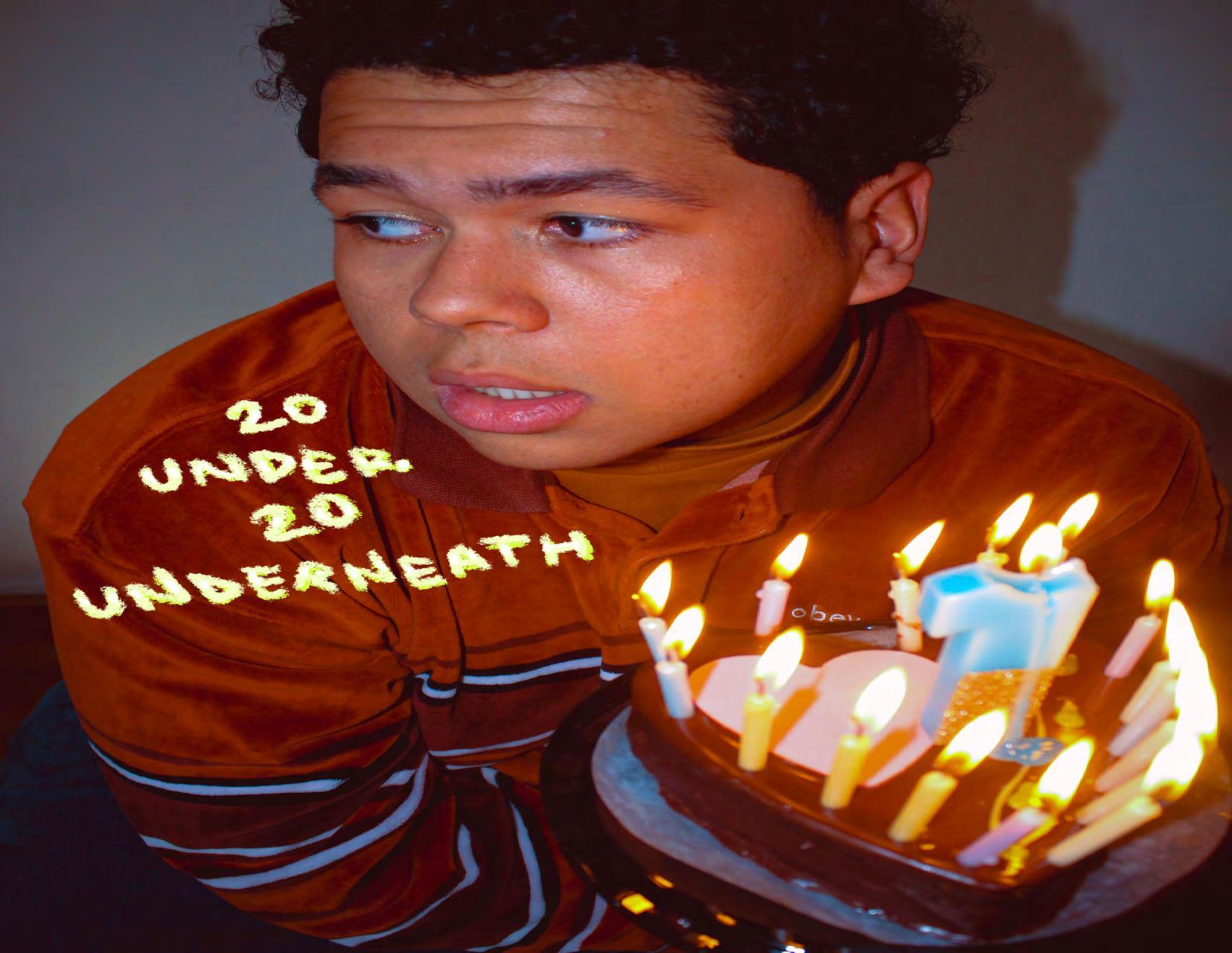
20 UNDER, 20 UNDERNEATH| Benjamin Turnquest

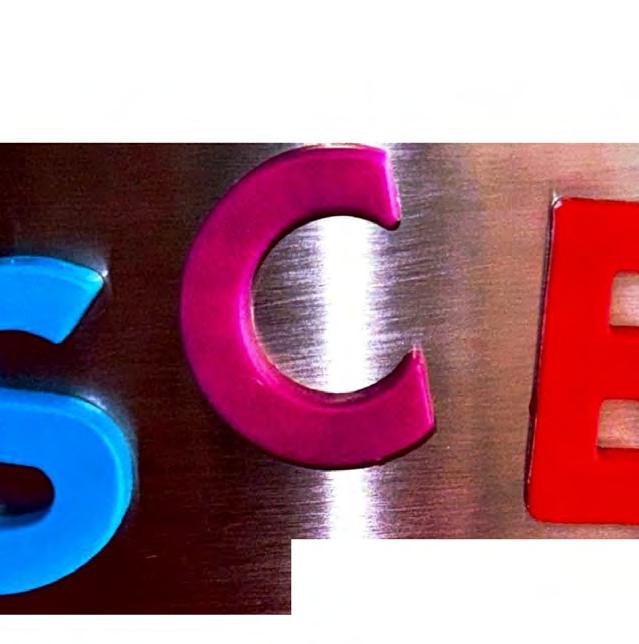


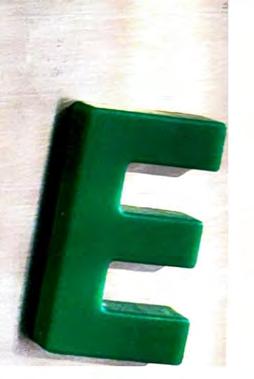
102




















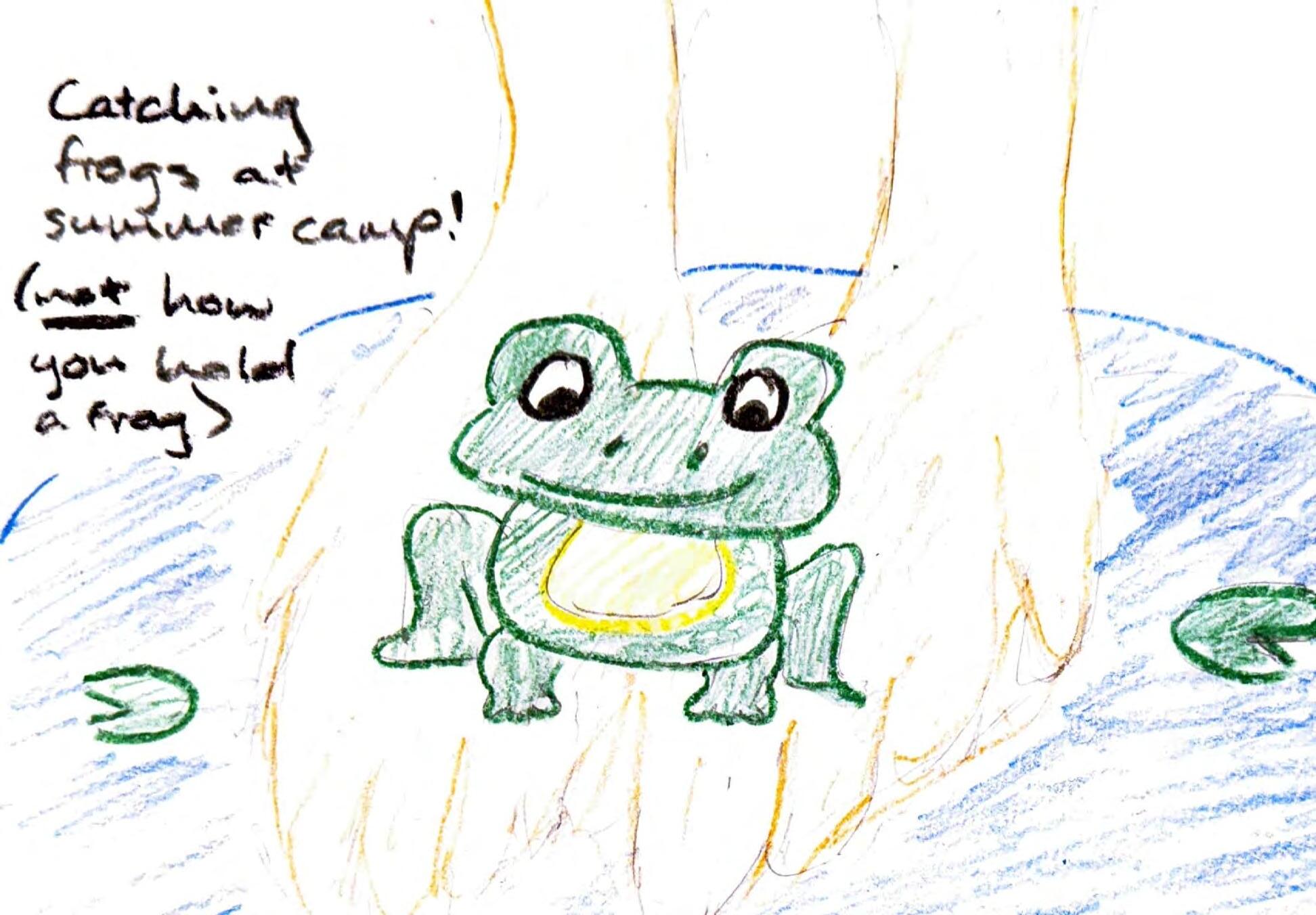






























































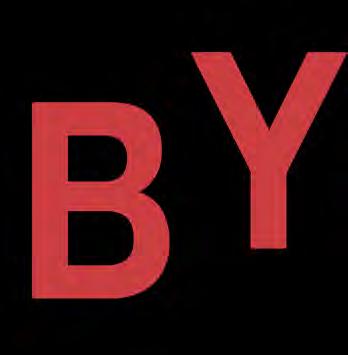 written by andrea arcia
photographed by bella segalla
designed by sam natalya
written by andrea arcia
photographed by bella segalla
designed by sam natalya

or quite some time, I’ve felt like my youth was stolen from me. It’s not because the time passed too quickly or because before I knew it, I was living on my own, freshly 20 in Los Angeles with no one to come home to. But because my parents were raised in ranchos in Venezuela, and even though I was brought up in Brooklyn three decades later, the parenting style I received didn’t differ very much from theirs. The sacrifices they made — marked by calloused hands from hotel bathrooms and construction sites — to provide me with four walls to call home are a debt I can never repay; there is nothing I can ever be more grateful for. Yet, under that roof, I’d never felt more shackled, more deprived.
In the throes of adolescence, when boys started catching my attention and the girls on the cheerleading team tempted me to stay out past 10 p.m., I became a liability to my immigrant parents, who tightened the cage a little more every time I sought to escape. I was a straight-A

leave home, to grow up. And how long I’ve spent doing just that, even after those four walls of my childhood crumbled behind me.
By the time I got to college, it seemed like I had everything my teenage self ever wanted. I decided when I woke up, who got my attention and how to spend my time. It was my first glimpse of freedom, but making my own decisions against the L.A. skyline proved dissatisfactory in my quest for more. I’d come from Venezuela and lived in the two largest cities in America, but something always felt missing. Other forces were at play, continuing to box me in and strip me of control: Deadlines, bills, failed relationships. I became restless. Surely, there had to be more to this life on my own.
I thought that perhaps I had been searching for fulfillment in all the wrong places, that I had been too limiting in expanding my boundaries. I set my sights elsewhere, to a continent that remained ungrazed by my touch: Europe.

student perpetually grounded. A paradox of perfection on paper and defiance in the flesh. They didn’t understand how I could ask for more. And I couldn’t comprehend their reluctance to set me free.
In our own ways, none of us was entirely wrong.
But at 15, I desperately wanted to shed the skin they draped upon me. I clung to the hope of one day claiming my autonomy, of inhabiting some part of the world I could call my own. The thought of abandoning those four walls ignited me. I believed it to be when my life would truly start.
Only now do I realize how much of my life I’ve spent yearning to be elsewhere, to
When I submitted my application to study abroad, it seemed then that my life was falling into place, as if everything had led to that very moment. My mother grew up on a farm. My father only had a degree in crop production. But I would not be held to the same path of necessity. I had left Venezuela. I’d gotten educated. I would be boundless, and I would do it for all the dreams my ancestors deserted to get me here.
The summer before departing for Italy, I had again fallen into the trap of looking forward, thinking my life lay ahead — this time in the Tuscan countryside. I spent months imagining my future: I would perfect my Italian, sip wine with natives and catch flights the way I once caught trains on the subway. Through it all, I would become more in touch with myself than ever before. My summer was physically spent in New York, but mentally,
105

I had already crossed the Atlantic Ocean. I listened to Florentine music, whispered to myself in Italian and counted down the days until my life was forever changed, yearning for the shift that would make all else fall into place.
The truth is, I lived it in fleeting glimpses: The wine, the language, the sights, the travel. I journaled on moving trains traveling from one town in Cinque Terre to the next. I reveled at starry nights in the Italian Riviera with strangers-turned-friends. I lived like a nomad as I crossed borders, thinking of my teenage fantasies, of the first and only border my mother ever crossed. I tried to get in touch with my past self and tell her I made it and that she was right, “I was born to do just this.”
Yet, amid countless nights, I grappled with the reality I tried to deny: The imperfection of life along Florence’s cobblestone streets. During my four months abroad, I was away for just enough time to take Europe for granted. The fantasy eventually wore off, and I became accustomed to my new routine: Passing the congested Stazione Valfonda every day, exchanging pleasantries in Italian with gym regulars and barely making it to class on time with my hair pulled back in my typical sweaty bun. I jetted around Florence in dress pants as I scoffed at the crowds of tourists plaguing the Duomo cathedral. I was living the reality I’d envisioned for ages, but still, I fought the same battle. I swallowed the same insecurities, the same doubts and, most cruelly, the same solitude, all drenched in the finest Italian wines. I knew more of the world than both my parents combined. It was a life my proud mother could not even imagine, and still, I hopelessly sought something else, something more, something past. I missed coming home to family in Brooklyn. I ached for my best friend living without me for the first time in California. I grieved for the version of myself that desperately wished for


106
 Writer Andrea Arcia ‘25
Writer Andrea Arcia ‘25
Andrea Arcia is a narrative studies major from Brooklyn, NY. Earlier this semester, she was convinced to jump out of a plane after watching one motivational Will Smith video.

 Model Kiara Geolina ‘25 is musical theatre major from San Diego, CA. She loves possums.
PASS ME BY| Andrea Arcia
Model Kiara Geolina ‘25 is musical theatre major from San Diego, CA. She loves possums.
PASS ME BY| Andrea Arcia
the life I had within my grasp. I felt gratitude slipping through young Drea’s fingers. I realized that “boundless” felt eerily akin to being utterly and completely astray. I was back in a box again, with no walls in sight.
There was nothing keeping me shackled but myself.
It made me think of who lived in the first home I desperately sought to escape: My parents, who were shackled in boxes of their own, boxes filled with buried expectations and the burden of perpetually seeking survival. I realized how poorly I treated the gift they had given me — the ability to decide what my life would look like. Instead of reveling in that privilege, I let it be another weight to hold me down.
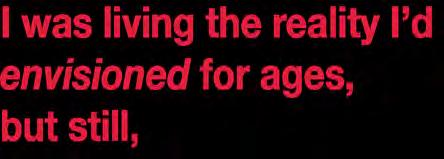


Mostly because nothing ever goes the way we envision it in our head, does it? Even if our every desire manifests in the flesh, it seems the dialogue is just a little off, the actions fall flat and the euphoria of it all dwindles with time. The ecstasy doesn’t last, so then what? It’s on to the next. Abroad, I realized this very mindset had banished me to a faraway land and confined me to a life purely within my head, condemned only to go through the motions of living while the real me lagged behind. Nothing in Italy went as planned. I didn’t meet any cute boys or go out every weekend with an eternally bonded friend group. My Italian is still far from perfect. And to be frank, it wasn’t the best time of my life, but it was one of the best things that has ever happened to me.
The most beautiful parts of life tend to work out that way, don’t they? It is the meticulous planning of every moment, interaction, trip and event that robs us of the opportunity to truly experience those moments in all of their glory. The truth is, there is no final destination, and never will you

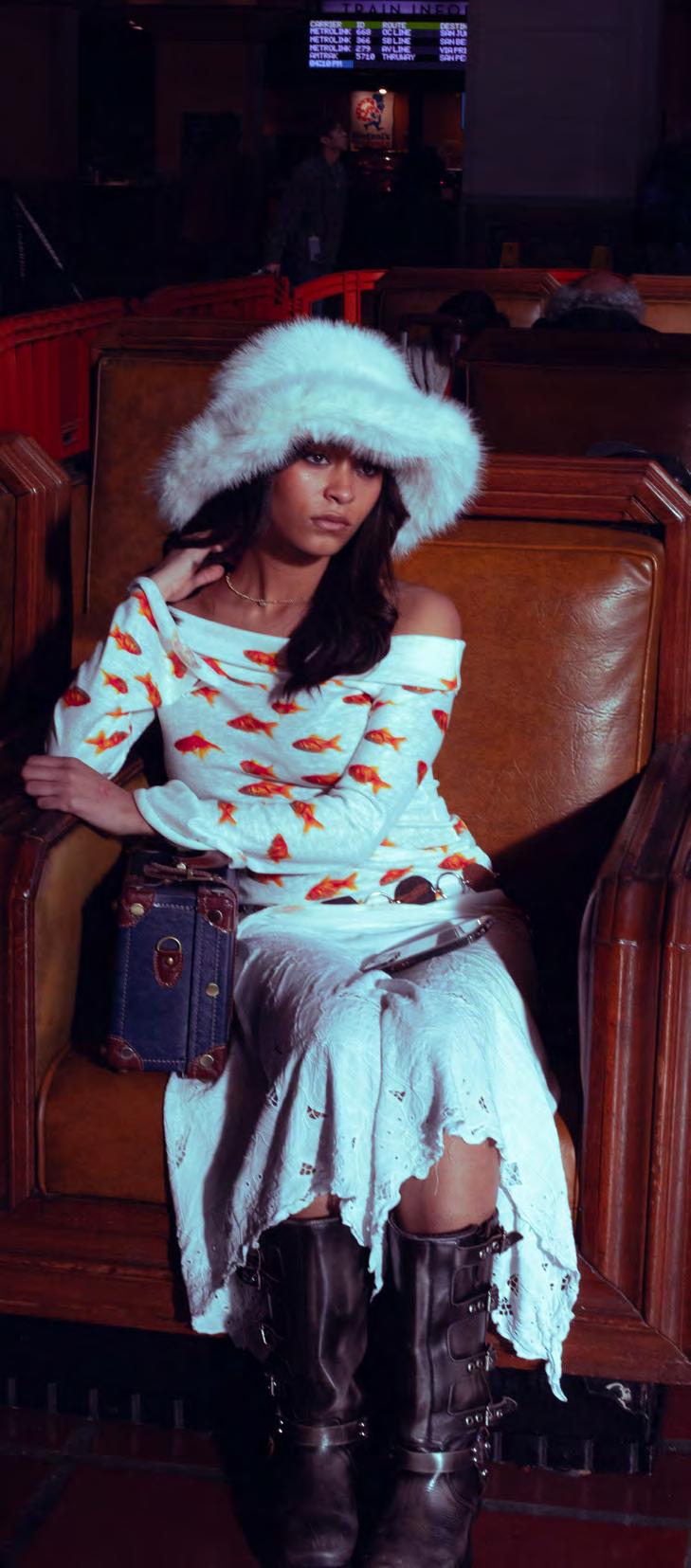
reach a place where all of “this” starts to make sense. Spoiler alert: No one knows what the hell is going on, ever. Ask any adult you know; even the wise ones are a little lost. Italy taught me that things don’t have to be figured out. They don’t have to meet your expectations; they can just be. That can be enough.
There is joy in being lost; it’s the price of freedom. On the brink of our twenties, we’re beginning to realize how scary it is to feel unbound and have our lives in our own hands for the first time. It’s uncertain, but it’s supposed to be. The true pitfall lies in resisting that uncertainty, in fleeing from one box to another, relentlessly chasing an ideal that does not exist and forgetting about the present, too caught up in the future or the past. So, no, things might not always go as planned, but that leaves room for experiences more beautiful than you could’ve ever imagined if we stop waiting for our lives to start when “this” happens or “that.” It is only when we realize there is nothing at the end of the road and accept life in the here and now that the living begins. Italy reminded me my youth was not stolen from me at all, because I’m still in it. We all are. The question is, are we willing to seize it or let these years pass us by?




 PASS ME BY| Andrea Arcia
PASS ME BY| Andrea Arcia
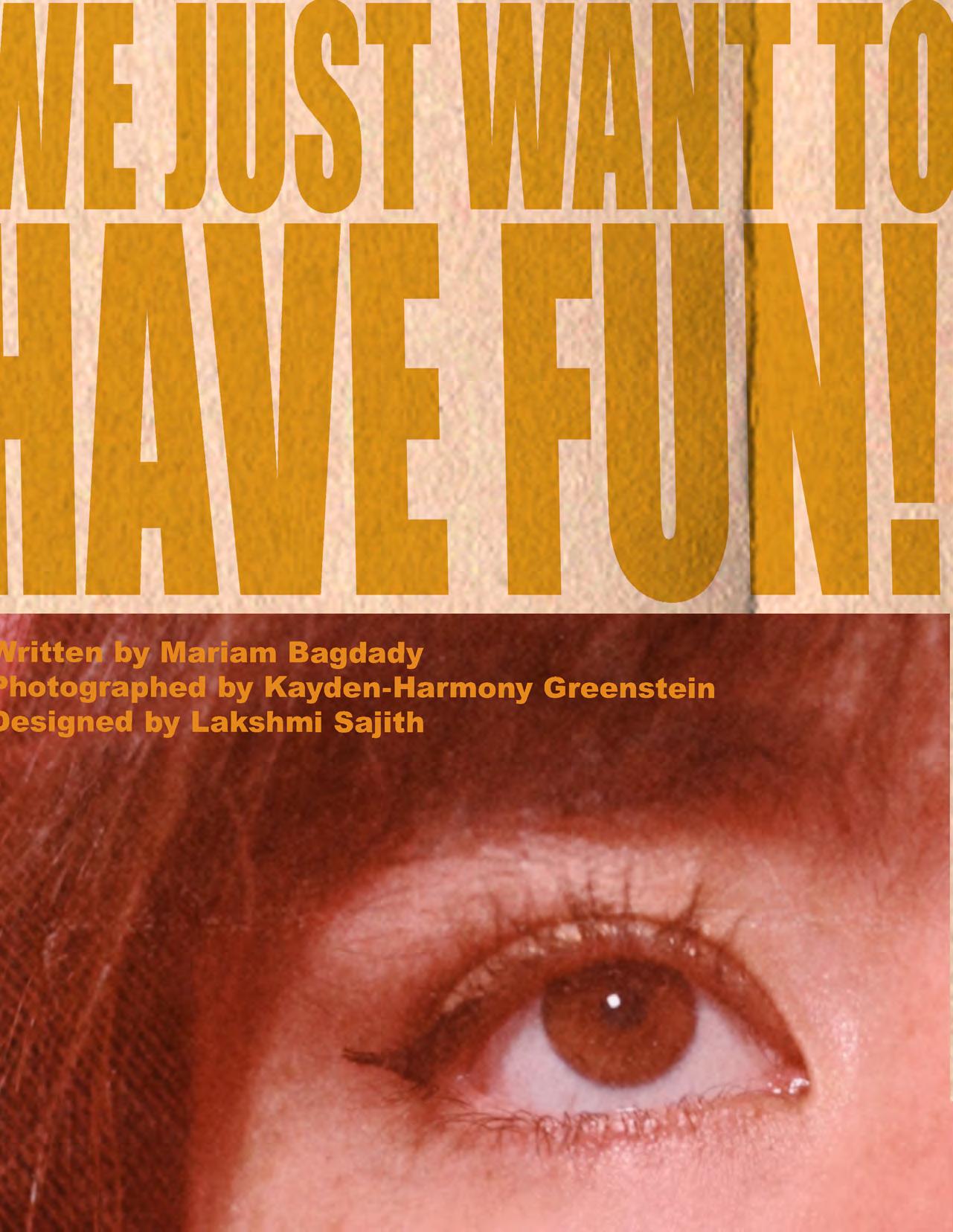
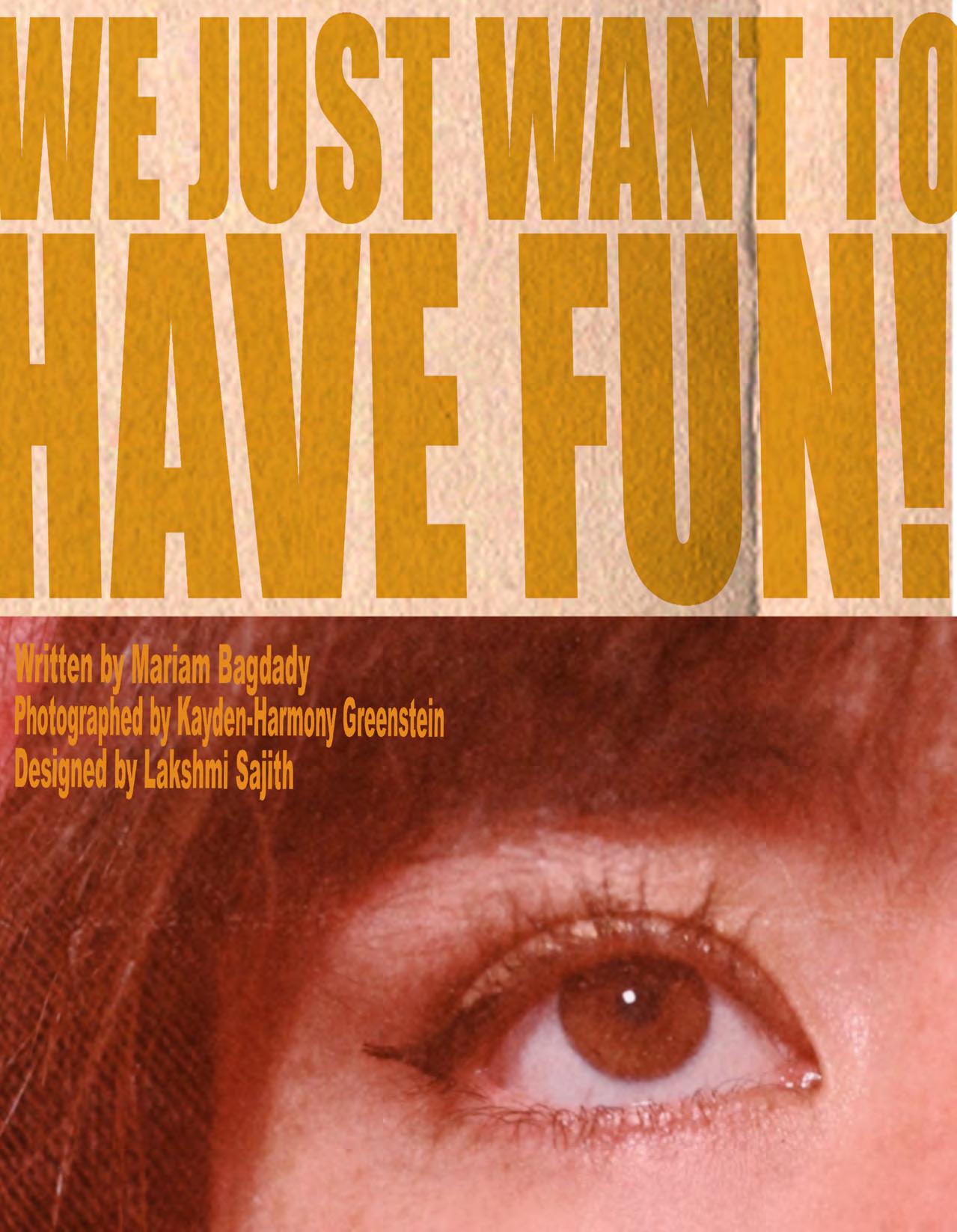

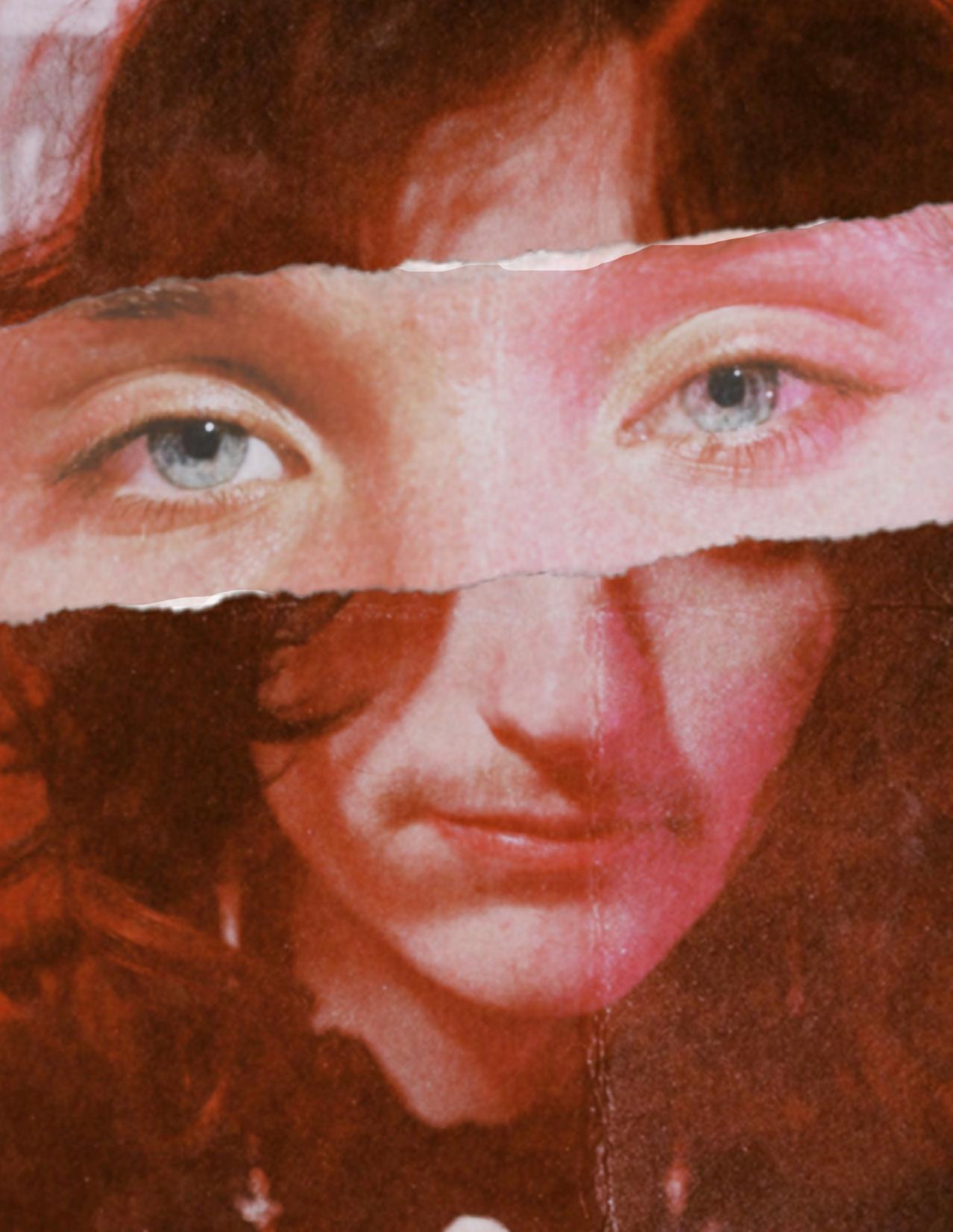 Model Auburn D’Artell ‘27 is a theatre major from Seattle, WA. He has a siamese mix cat named Miss Bianca.
Model Luke Albert ‘26 is a computer science games major from Chicago, IL. He loves mythology and storytelling. He thinks telling and listening to stories is essential to the human experience.
Model Auburn D’Artell ‘27 is a theatre major from Seattle, WA. He has a siamese mix cat named Miss Bianca.
Model Luke Albert ‘26 is a computer science games major from Chicago, IL. He loves mythology and storytelling. He thinks telling and listening to stories is essential to the human experience.
In the dull, quiet patter of rain lies the faintest of noises. There it goes — lurking in the dark, crawling on the bed, grasping for that glimpse of light that breaks through the sheets. It’s a noise so subtle in its creation that you can’t hear it sneaking up on you, and even then, we refuse to look it in the eye. It’s feared by all, alive and persistent, and if you listen closely you can almost hear it whispering in the wind: “So, what are we?”
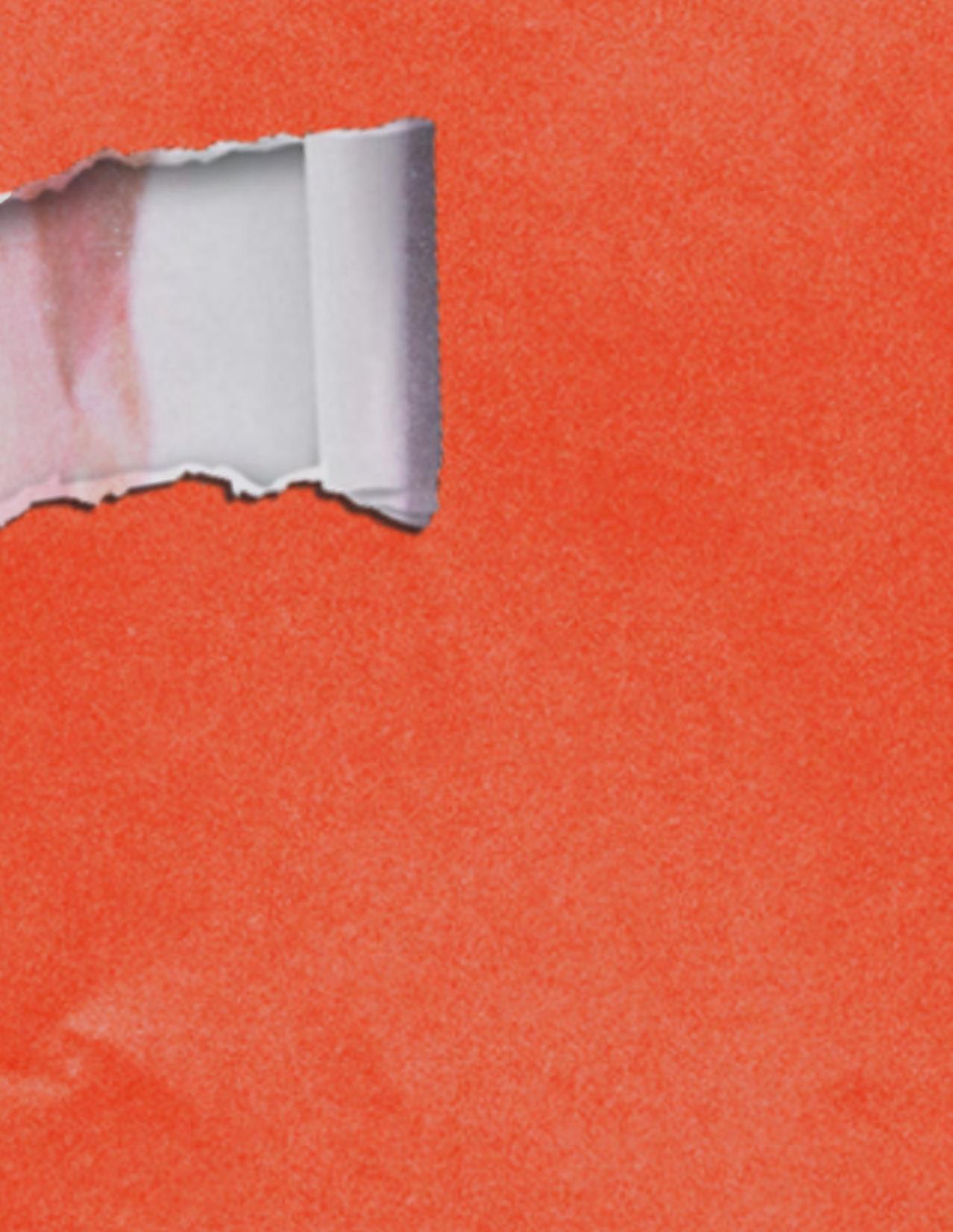
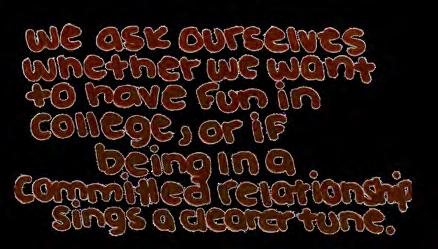
It’s astonishing how a simple phrase can create such a nerve-wracking feeling. It’s ever-present, but still ever-ignored. Or at least, we try to ignore it. It is in the subtleties of such a question that we find ourselves referring back to the lingering foundations of all college dating: “I’m not looking for anything serious,” and, “I just want to have fun!” But what does “fun” actually mean? How does living in Los Angeles affect that desire to roam free, and where do we go once that excitement is over? There’s a certain appeal for college students to be single and ready to mingle. As we trapeze through the uncertainties of adult life, barely making it through these four years of test-runs, we find ourselves embracing the absurdities of growing simultaneously under the umbrella of a singular USC tuition.
We’re all going through this period of our lives together, exploring the fun, flirty and fascinating endeavors that come with our sexuality. However, as the fun continues to come to a close, that foreboding phrase still lingers, waiting to pounce. For that brief moment between the ends of what was and the hopeful beginnings of what might be, we ask ourselves whether we want to have fun in college, or if being in a committed relationship sings a clearer tune. So, which is it?
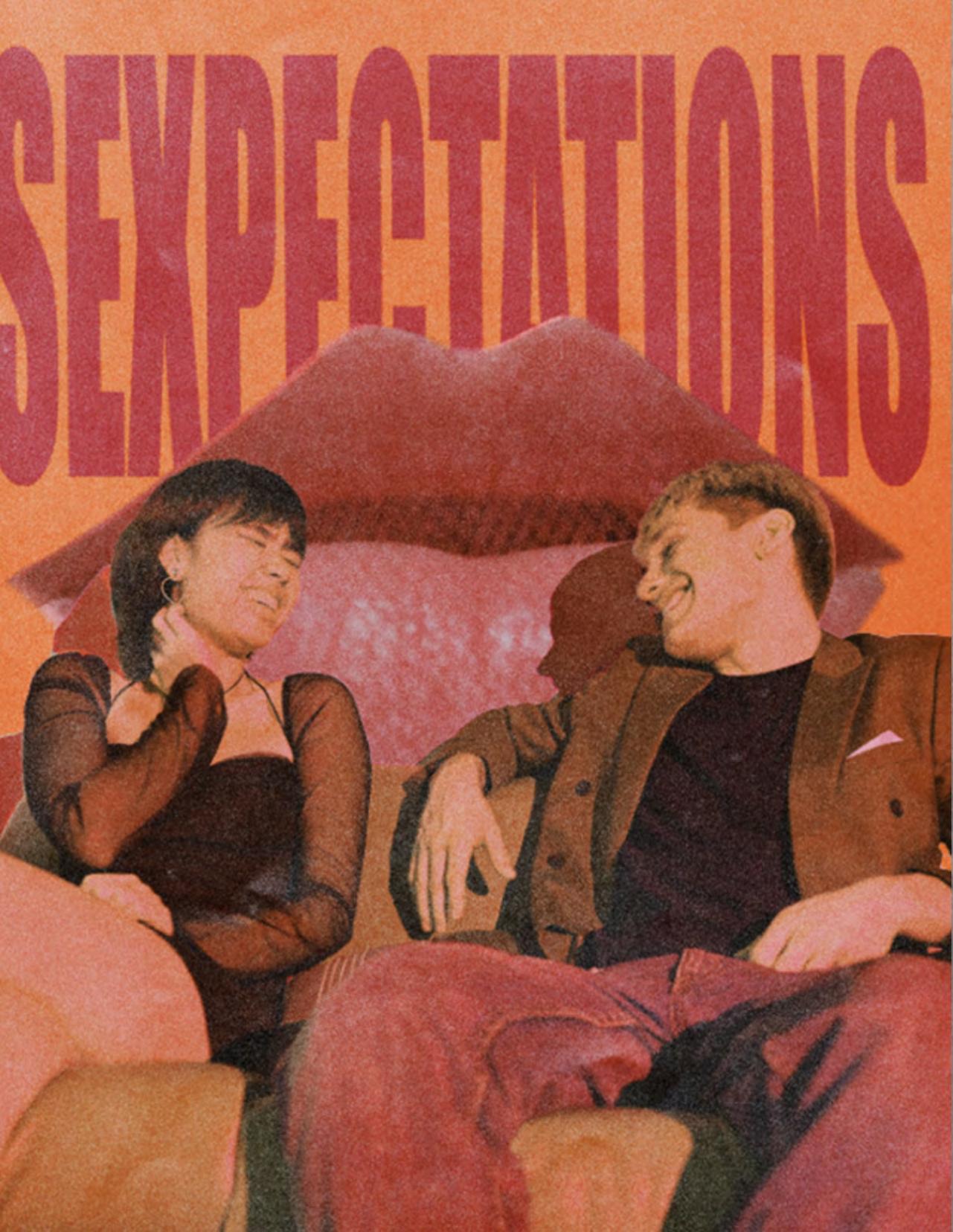
WE JUST WANT TO HAVE FUN! OR DO WE?| Mariam Bagdady
College Sexpectations
College: The beginnings of adulthood, freedom and the ever-exciting start to all things love, sex and perfect-chance encounters. What better way to truly indulge in the escape of the watchful eye than by diving headfirst into the pool of sexual availability that comes with the college scene? It’s no secret that hookup culture is alive and thriving amongst thousands of young, horny, clueless 18- to 21-year-olds. Yet, it also comes as no surprise that our expectations, or rather “sexpectations,” as we first enter college immensely differ from reality.
For some, the next four exhilarating years are a period of finding “the one,” romanticizing what we see on TV and hoping for a blossoming romance that sweeps us off our feet and cements us as a whirlwind college love story.
“I expected there to be more opportunities to find someone worth dating and more people that took dating seriously,” shares third-year public relations major Nicole Tisnes, emphasizing the disparity between her initial expectations and reality. “I imagined a bigger portion of our student body to be willing to mingle and casually flirt in classes and not be afraid to ask a girl out for coffee or dinner to get to know each other better.”
However, for others this is the time of exposure, indulging in the newness of culture and partaking in the high that comes with every makeout and hookup. There is something so raw and real
about entering adulthood with thousands of other confused individuals that finding the one becomes less of an expectation and more of the butt of a really bad college joke.
“A lot of students at USC like the freedom of not being tied down to anything, especially relationships. Dating at USC is basically nonexistent,” Tisnes continues. She has a point.
Tisnes adds that college is a confusing, terrifying, exciting rollercoaster of emotions. Expectations define who we are as students, and it comes as no shock that this sexually-charged time of our lives would create assumptions that are sufficed or left to starve. So, if feeding sexpectations on campus won’t work, maybe dating apps will?
An Ode to All the Dating Apps
Do we swipe left or right? Is he tall? Is she interesting? How do I get on Raya? Is he a Hinge boy? What picture should I put?
Therein lies the thousands of questions that swirl in our mind as we download the next hot dating app. We tackle L.A. dating with a “hands off the wheel” mindset. But there we are a month in, deleting the godforsaken app and refusing to ever go back — only to redownload it a month later. It can almost be described as a college canon event: Who should I choose? Where will any of this go? And how can I make this anything like “Sex and The City”?
According to a 2023 article by Tess Reidy in The Guardian, “18- to 25-year-olds are embracing a no-pressure style of dating,” and with so many options available at the tap of a finger, who would want to limit themselves? If we’re going to self discover through the means of an app, we might as well go all in, but where does the appeal begin?
For freshman real estate development major Jonathan Antoon, “An alluring profile on a dating website would be when someone has the same interests as I do. This would make me want to start a conversation based off of those [interests], which could also build up to more talking.”

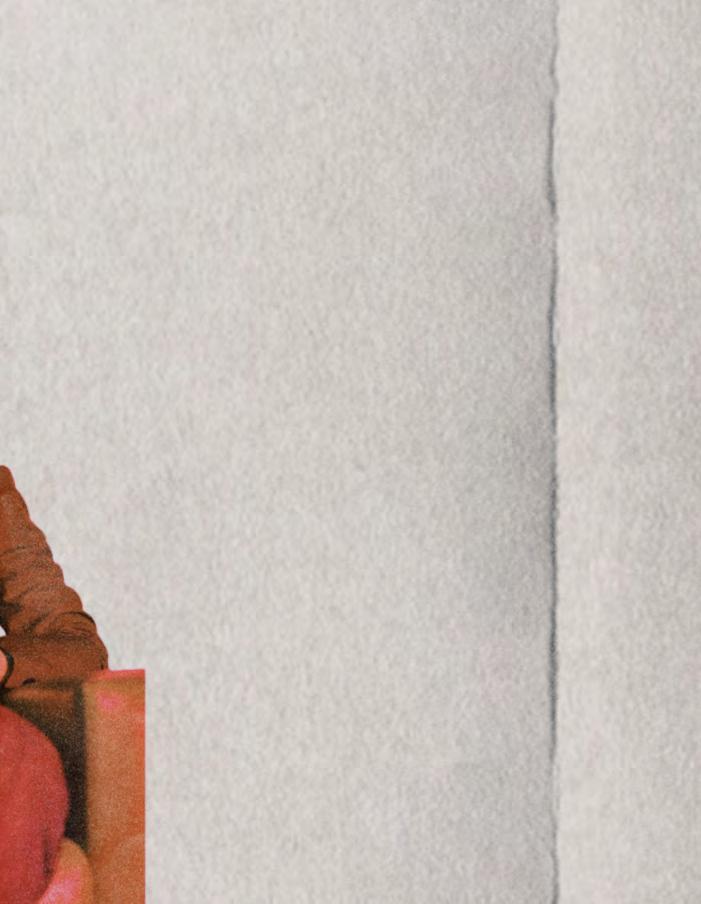
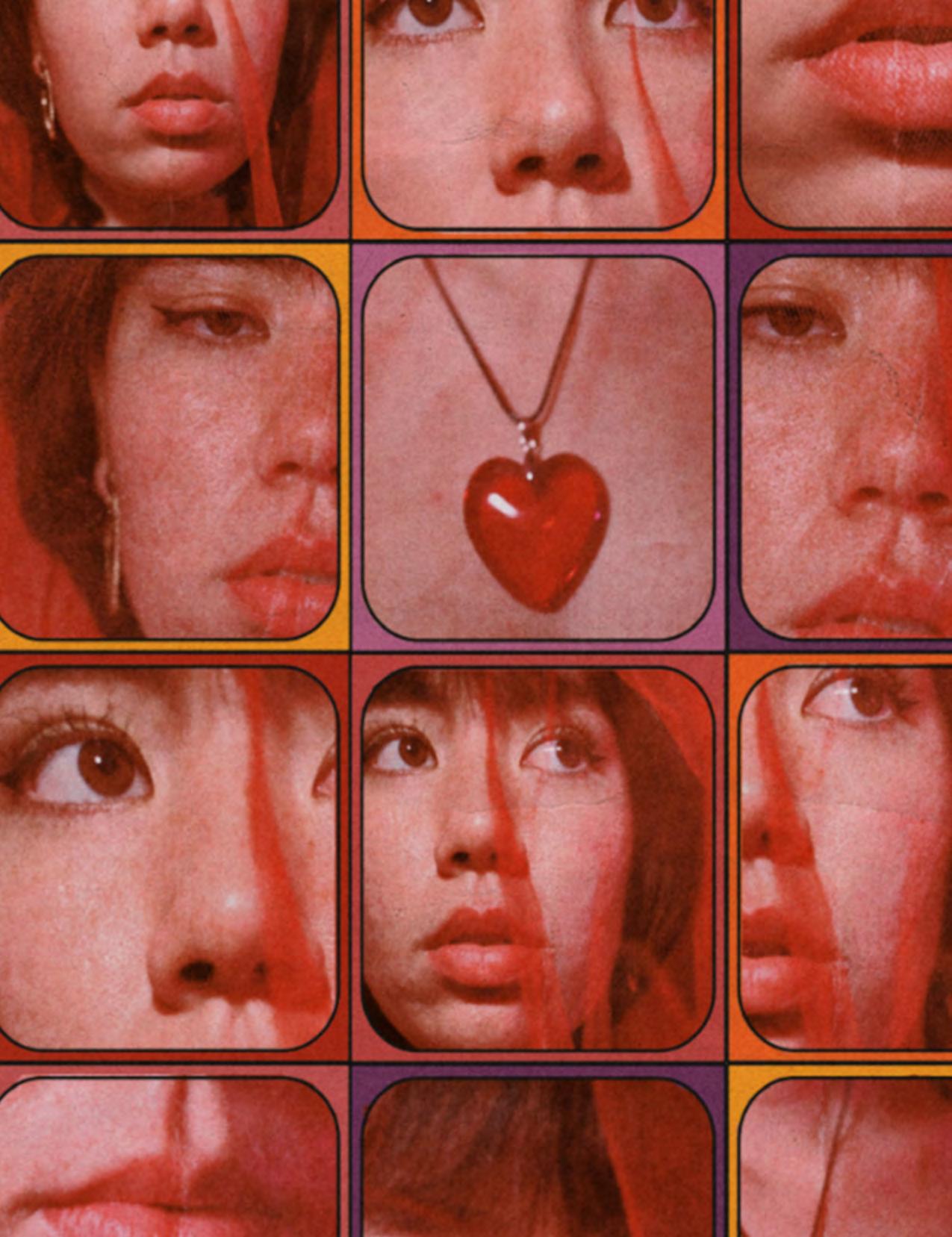 Model Xuanh-Anh Ly Biggs ‘27 is a screenwriting major from Riverside, CA. She likes to dumpster dive.
Model Xuanh-Anh Ly Biggs ‘27 is a screenwriting major from Riverside, CA. She likes to dumpster dive.
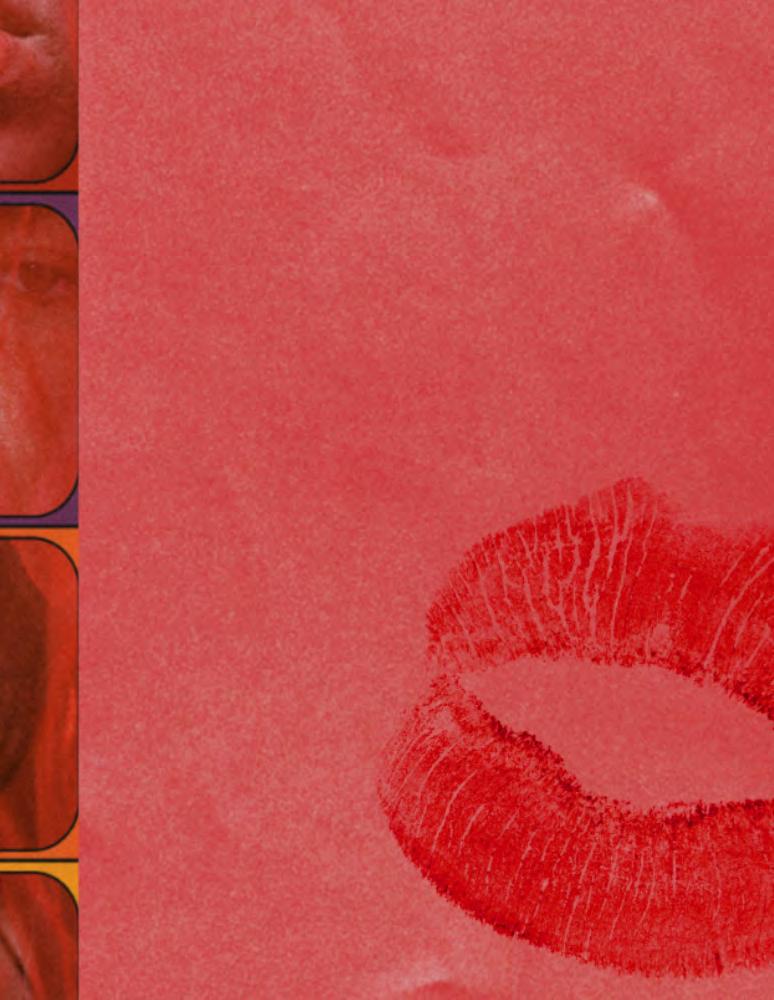
Tisnes breaks it down even further, noting that personality can be all fun and games until it becomes overly cringe. Her advice? “Stay away from weirdly cheesy and bad responses on prompts, and keep it wholesome. These are the things people want to know, not what you like in the bedroom or any other punny bad joke.”
However, for some, dating apps are for having that so-called fun that our twenties are hyped up to be: Meeting someone new and going on a date.
“I know a lot of people try to look as attractive as possible, but I just like to be silly on a dating app,” comments public relations and advertising Masters student Tiana Perez. “Even though it is for dating, I still don’t take it seriously, and think, oh yeah I’m gonna meet a guy here and go on a date with him.”
Whether it be a quick hookup or the beginnings of a tumultuous relationship, college students are exposed to a myriad of experiences both on and off screen. And, just as we go in with definite expectations, we continue with confused outcomes.
Sneaky Links & Situationships
Enter sneaky links, situationships and the pouncing predator that is the question, “What are we?” I mean, how many times have you heard a heart-wrenching song that spoke directly to you and that one situationship that led to a dead end? The dating scene is confusing, impersonal and intimate all at once. From situationships, committed relationships, and the occasional sneaky link, we all simultaneously fall in and out of the next romantic exploration. What differs is how you react to it.
For Tisnes, it all begins with a definition.
“Situationships are a non-exclusive or formal romantic and sexual relationship with a partner that is ongoing for a lengthy period of time,” she says. “They rarely turn out well and someone always gets hurt.”
And while a word’s definition can be as simple as that, this word comes with a punch of emotion packed and served differently for all who partake. A situationship can be whatever one wants it to be, but that doesn’t stop overarching beliefs about adulthood from infiltrating, especially when it comes to hooking up or settling down.
“I would say [college] is more about having fun than committing,” senior political science major Jazmin Mikhael shares, adding that “most people are in super developmental places in their lives when they’re in college, but it’s definitely possible to interchange the two by going in with one mindset and leaving with another.”
Political science senior Evelyn Drews concurs, saying, “Ideally [college] would be both, but realistically it’s more about having fun.”
Regardless of whether you lean one way over the other, or if you believe you can handle it all, college relationships are tricky. You can go from hooking up, to talking, to being in a relationship, to never speaking again. But, one question resides in this rollercoaster of a college experience, one that remains as these four years speed by: What happens next?
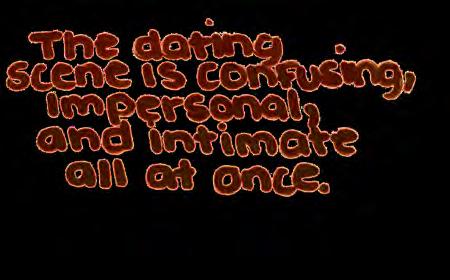

So, What Happens Next?
It’s the day we all wait for. As you walk across that stage, degree in hand, an array of faces before you, you find yourself wondering where the next steps you take back into the crowd will lead you. You can see it now, the great unknown of the future beyond. It’s terrifying, exhilarating and practically at our fingertips.
From a young age, we watch shows like “Friends” or “One Tree Hill” where these four years are made for not just our careers, but for finding our forever people including the socalled “one.” However, if college sets up the entirety of our lives, what happens when we reach the graduation stage with more confusion about dating than when we first started all those years ago?
Mikhael leans into the unknown of it all, saying, “The uncertainty is kind of exciting.” Likewise, Perez says that it begins with putting yourself out there, noting, “If I meet the guy at a bar or a party or an event, I would probably talk to him even just to get his Instagram because I feel that there’s no harm in meeting people organically.”
Nonetheless, that doesn’t mean the fear isn’t valid, as Tisnes notes,“Working a nine to five means you are constrained to mingling with co-workers, which is awkward, and whoever you can meet during your limited free time. The era of bumping into your soulmate naturally is practically over, and that is not only terrifying, but isolating.”
So, are we behind? Early? Or not paying too much attention to life? A plethora of questions lies beyond the USC campus grounds, but one thing remains certain — you aren’t alone. If that’s the case, then what really happens next? Well, we all want to have fun, or we don’t. That decision is up to you.

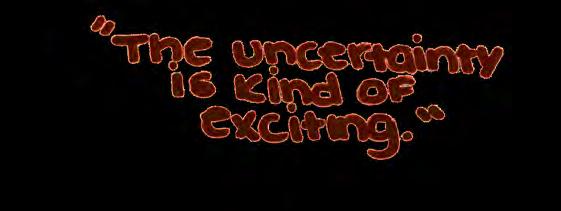
 Writer Mariam Bagdady
Writer Mariam Bagdady
‘24 is a communication major with a law emphasis from Palm Springs, CA. She met Paul
and shook his hand silently.
Mescal
yeah, like what if we used crayons or
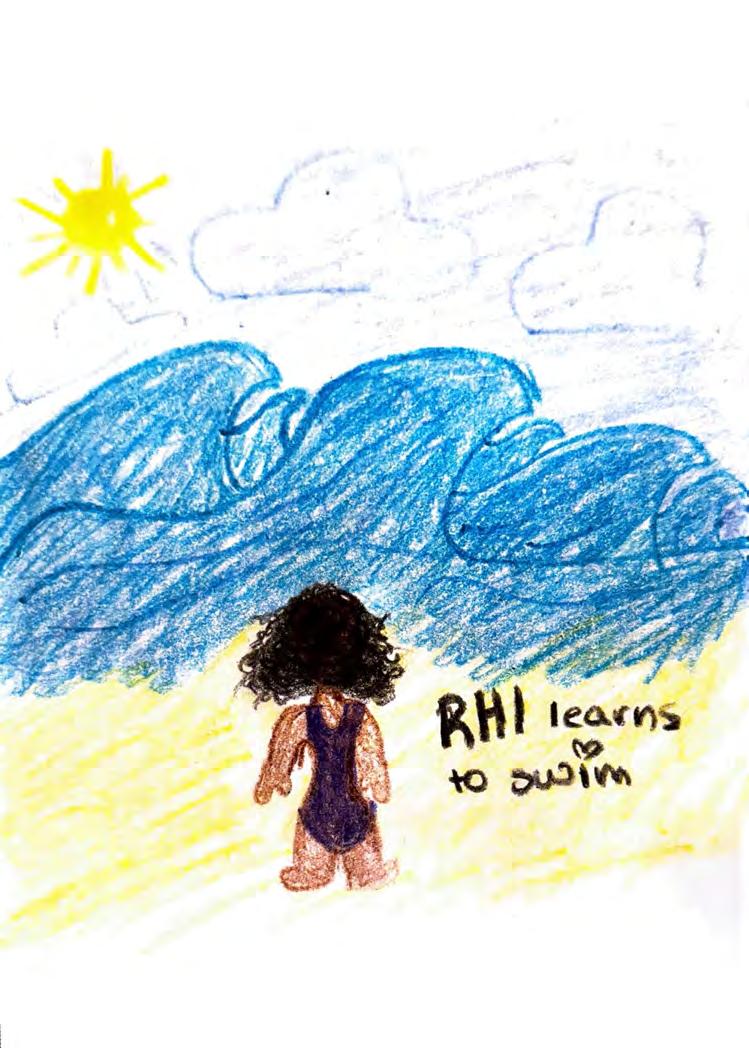
122
what used or something

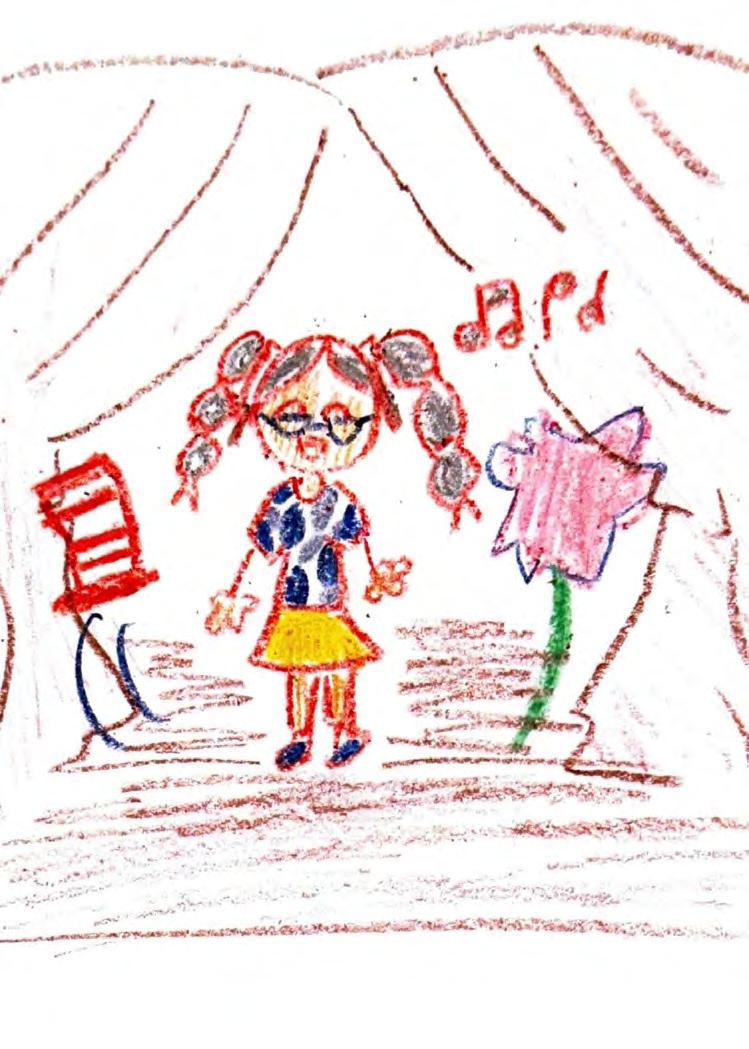


like super random like super random like super random like super random like super random like super random like super random like super random like super random like super random like super random like super random like super random like super random like super random like super random like super random like super random like super random like super random like super random like super random
123

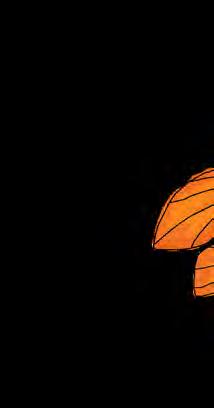
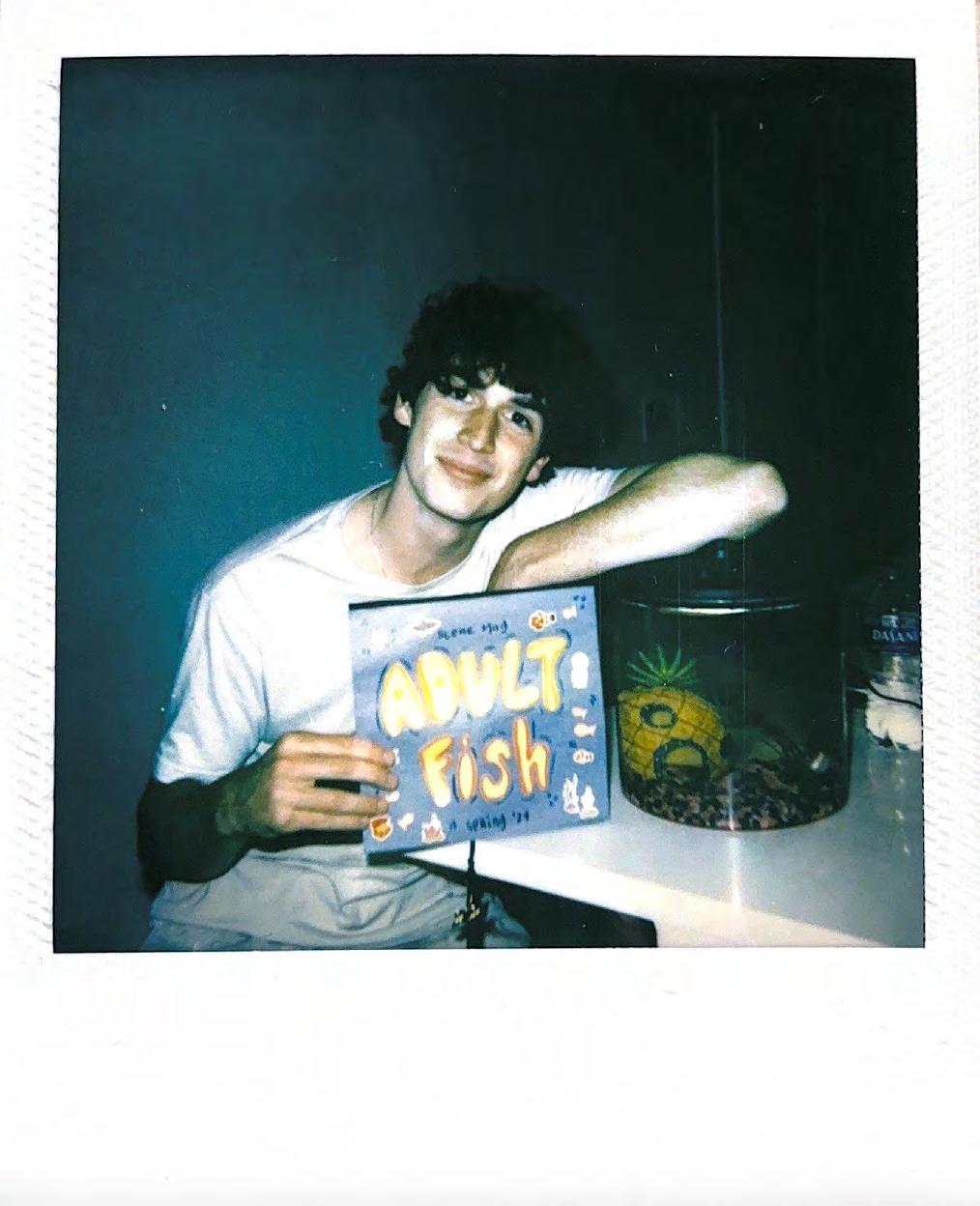




124
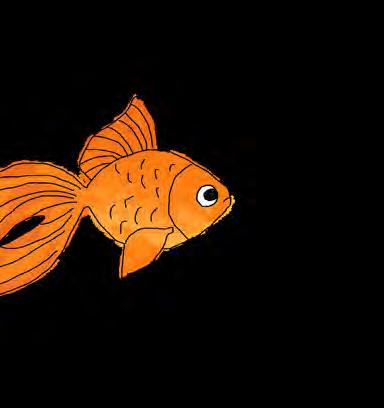
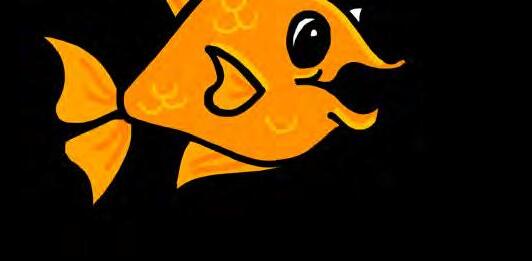


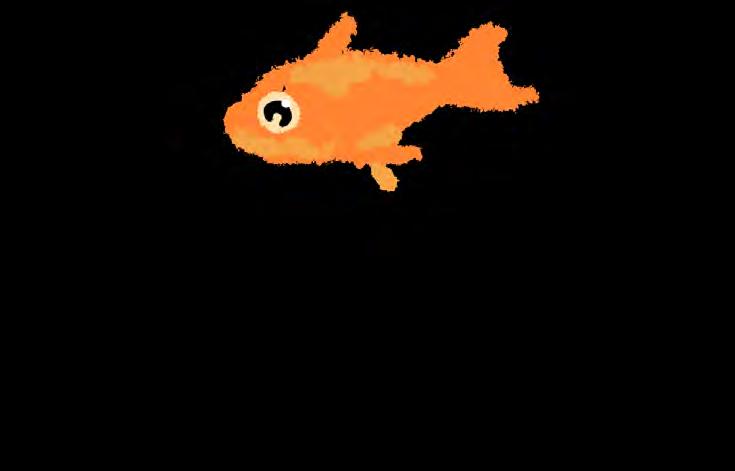





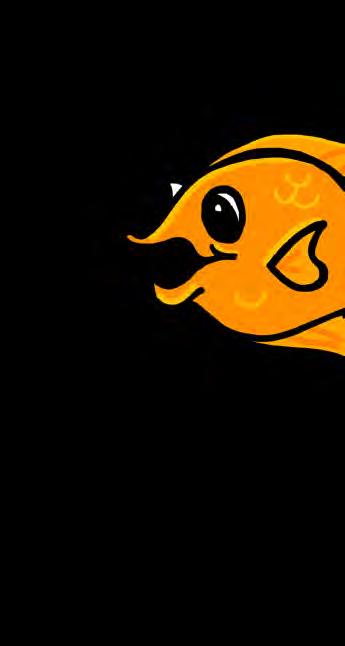


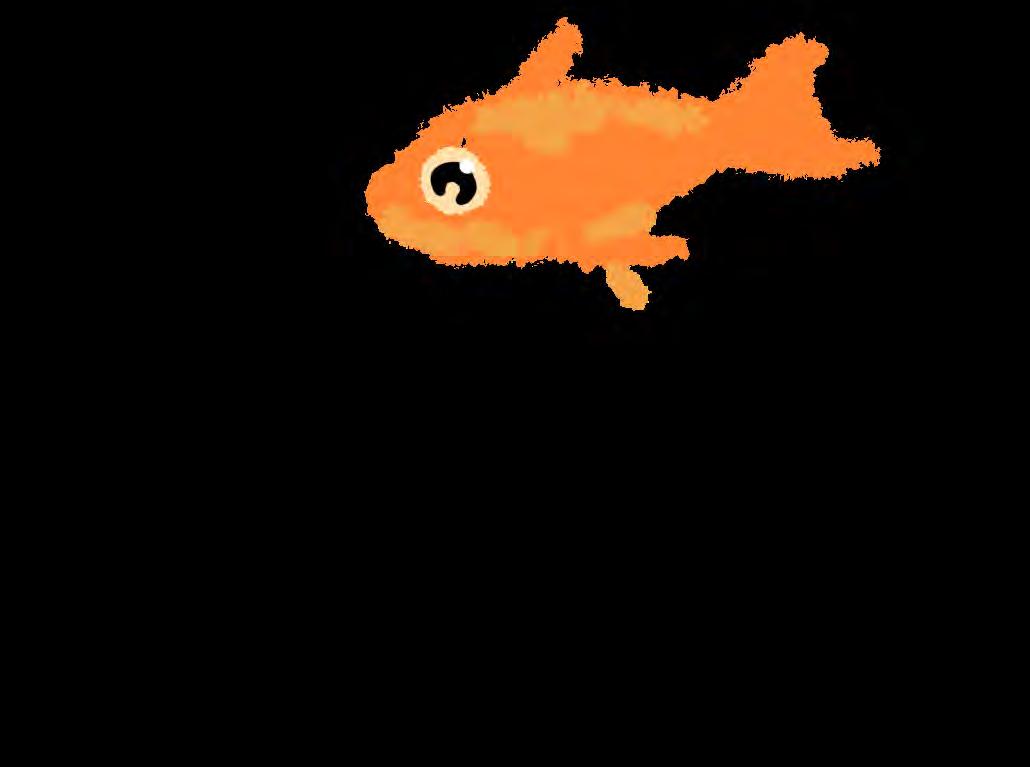
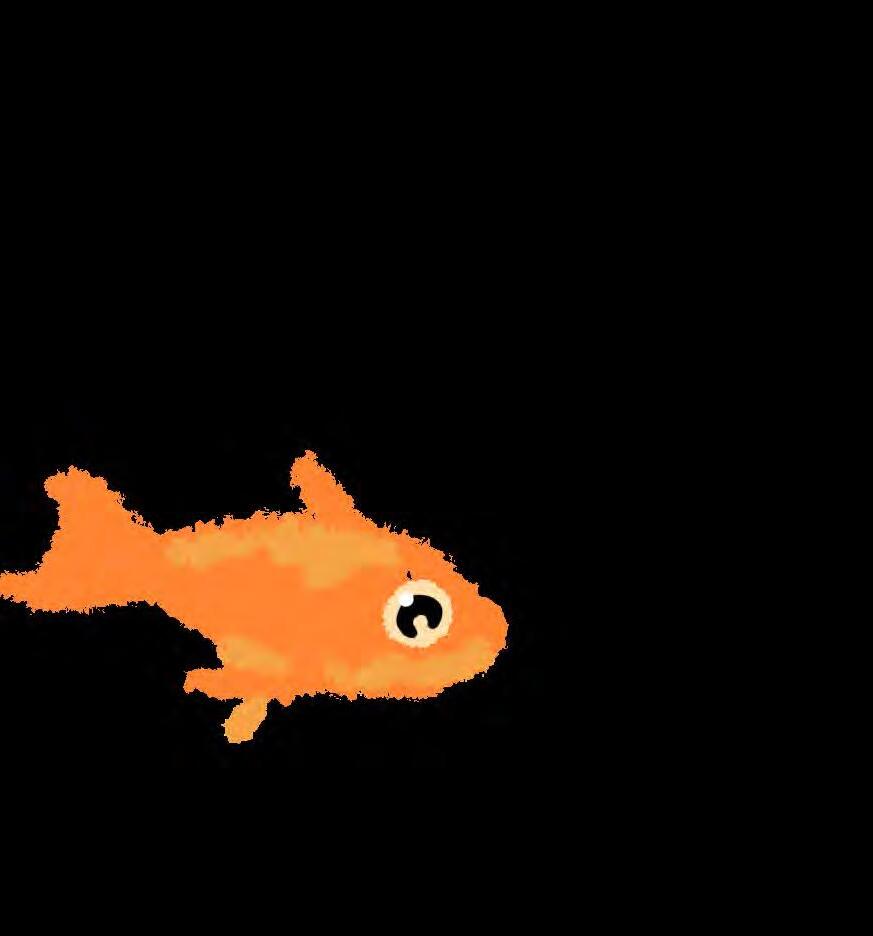
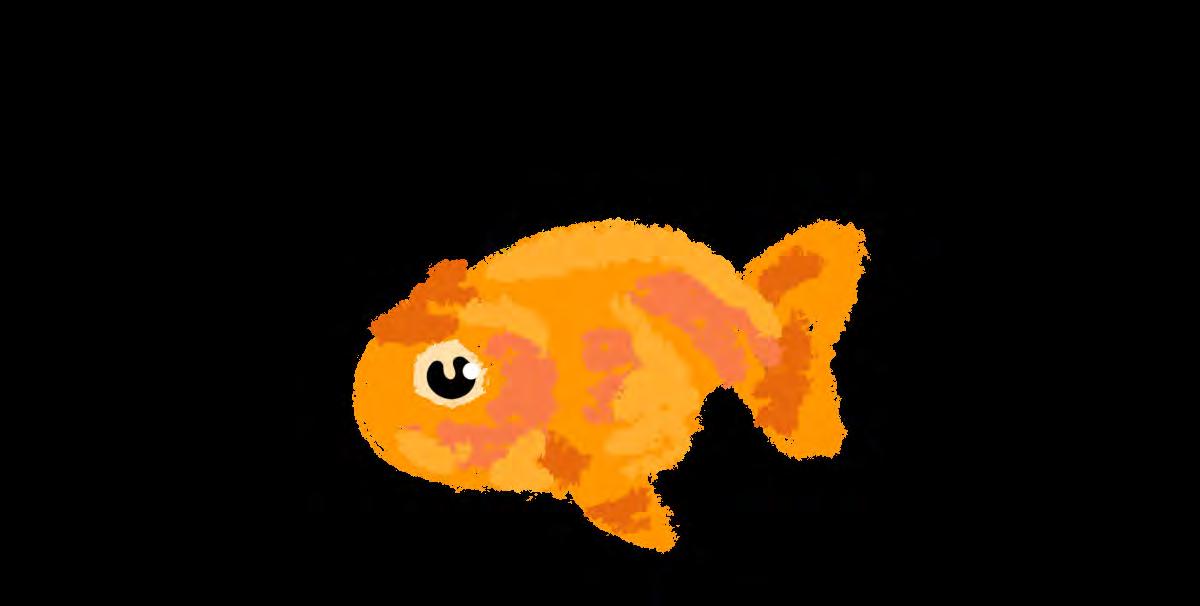


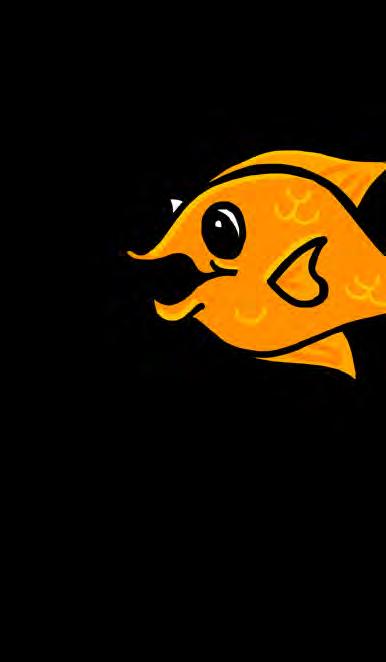
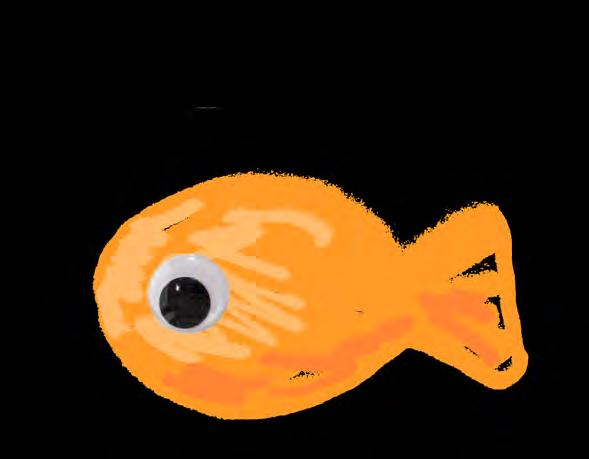


Actor Alex Nimrod ‘24 is a theatre major from Evanston, IL. He’s passionate about bringing independent films to life @the.indiestry.
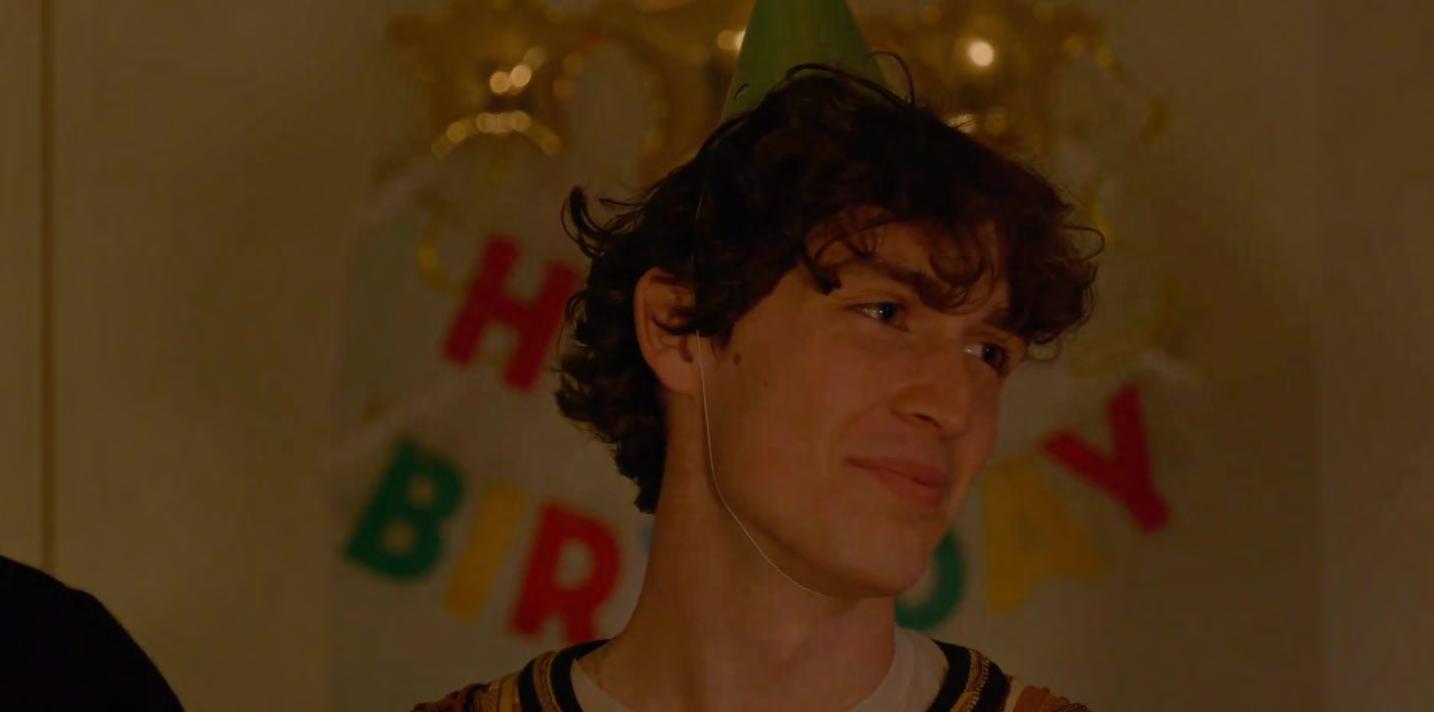
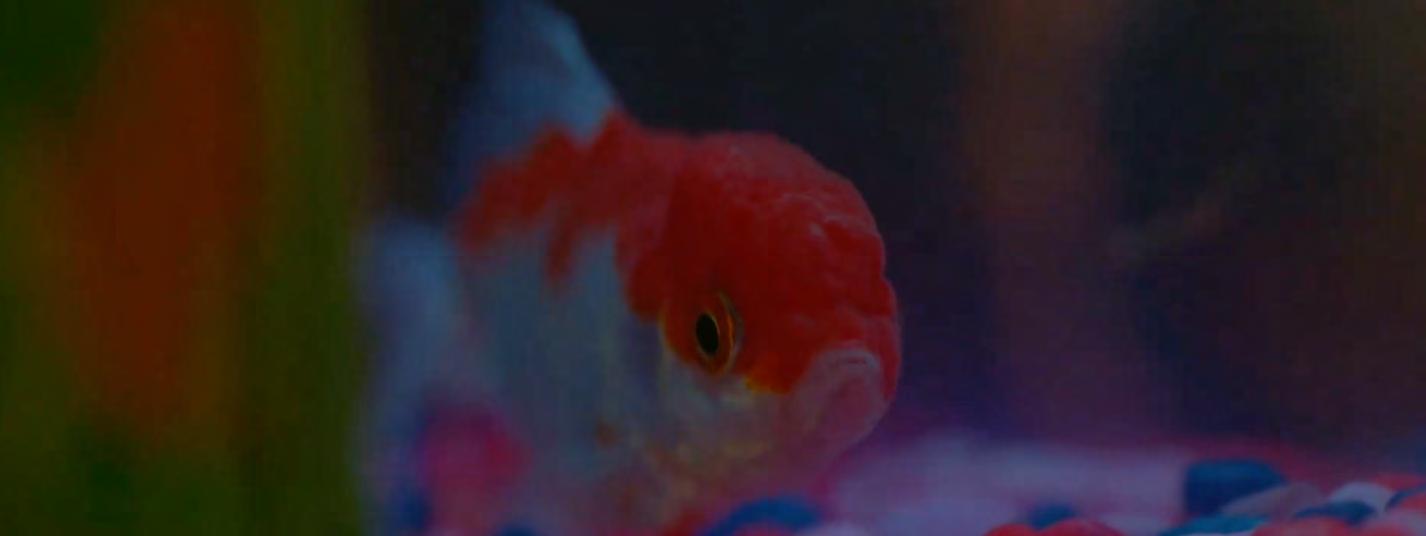
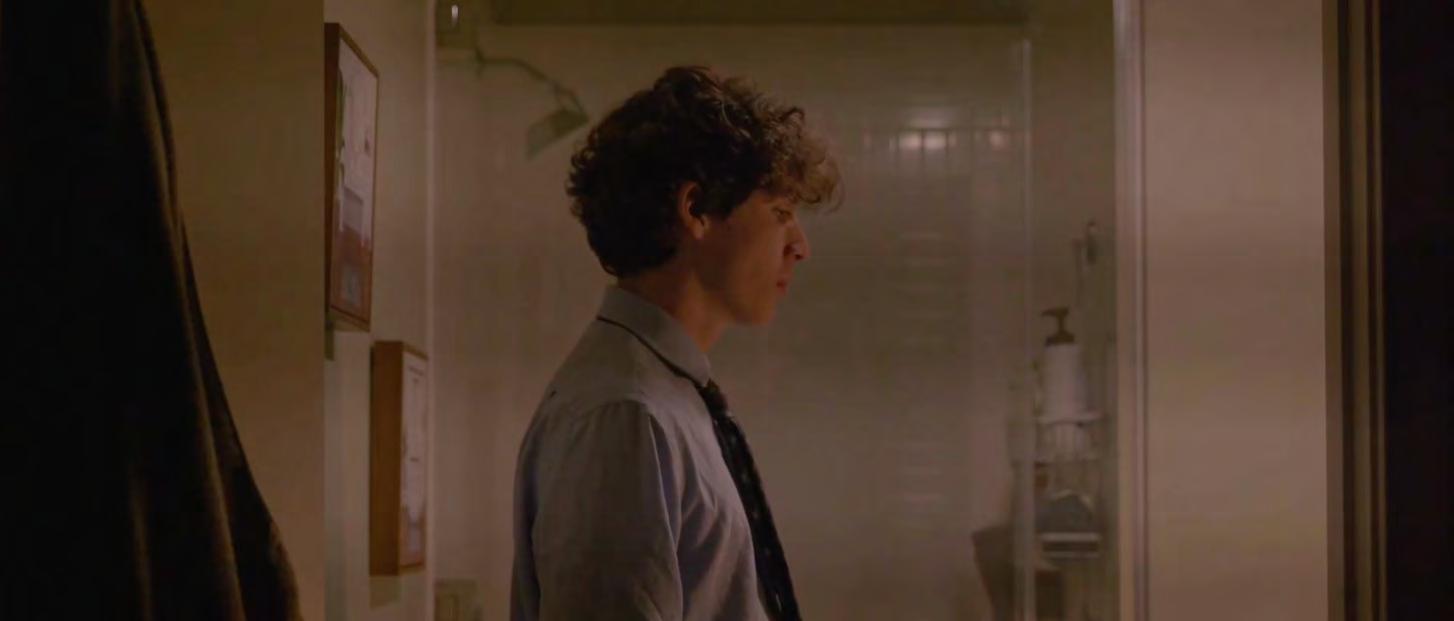
Want to watch the full theme reveal? Scan the QR code below to swim through adulthood with SCene.

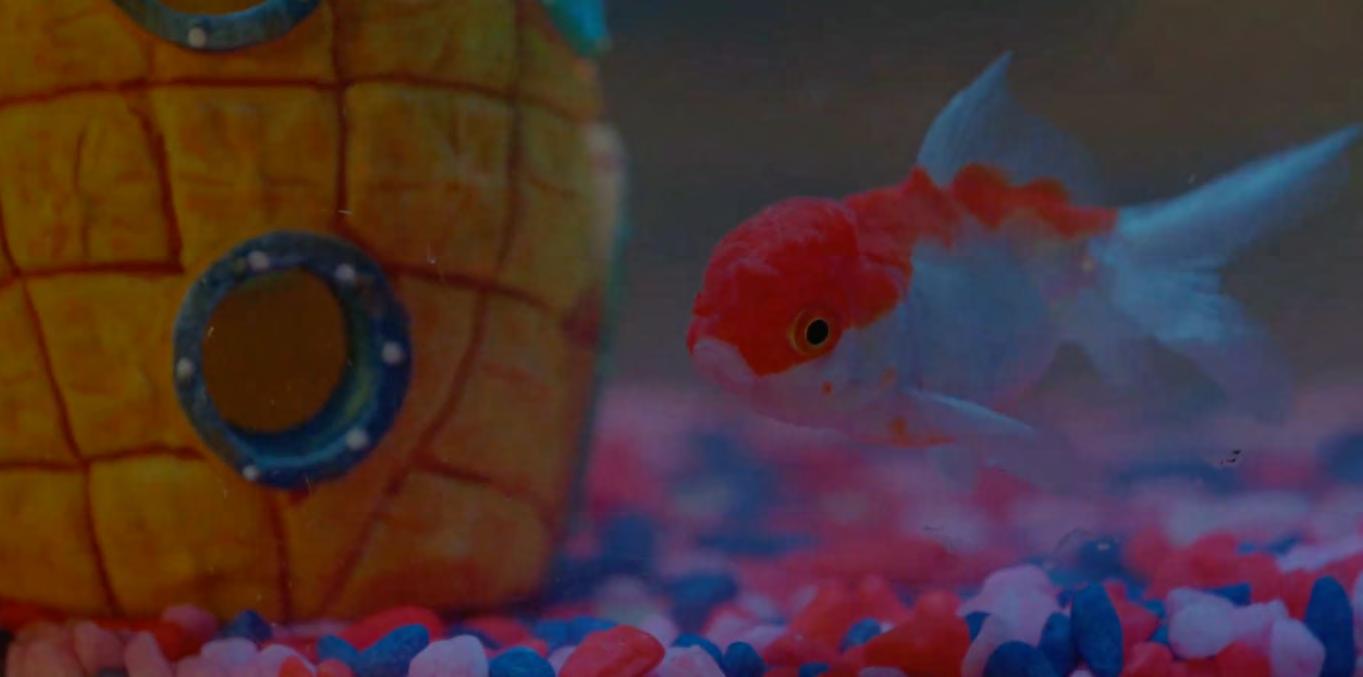
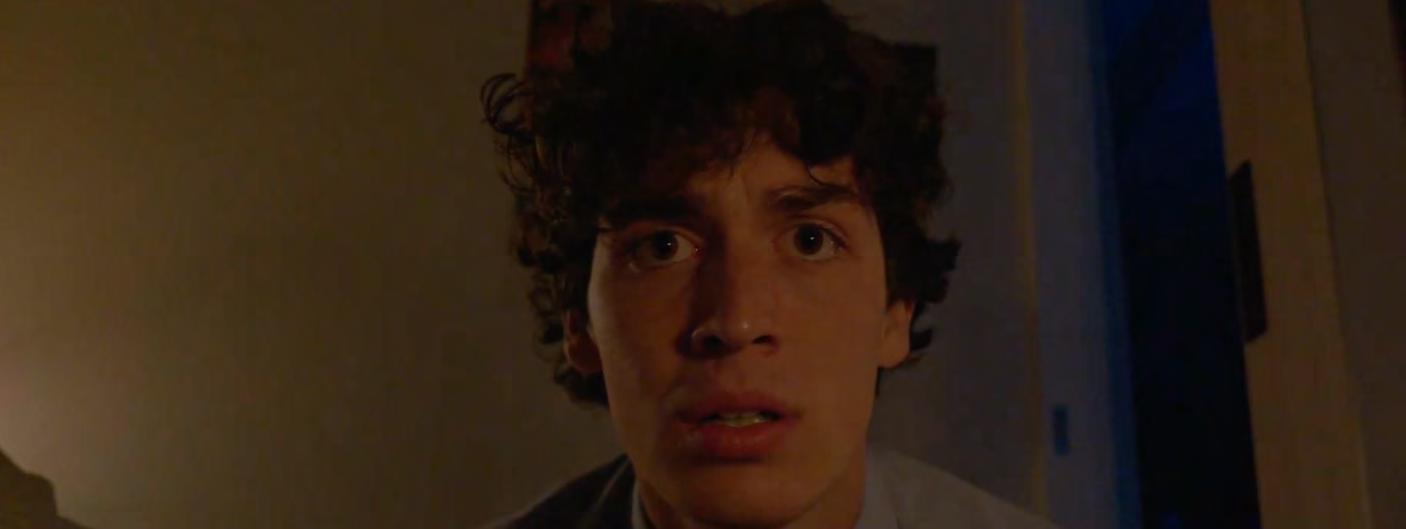
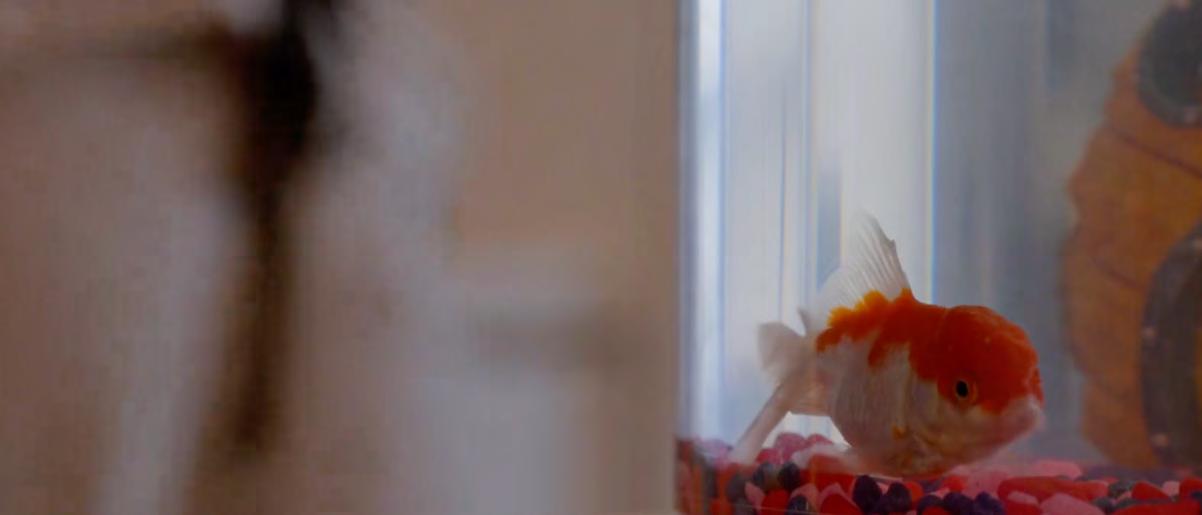
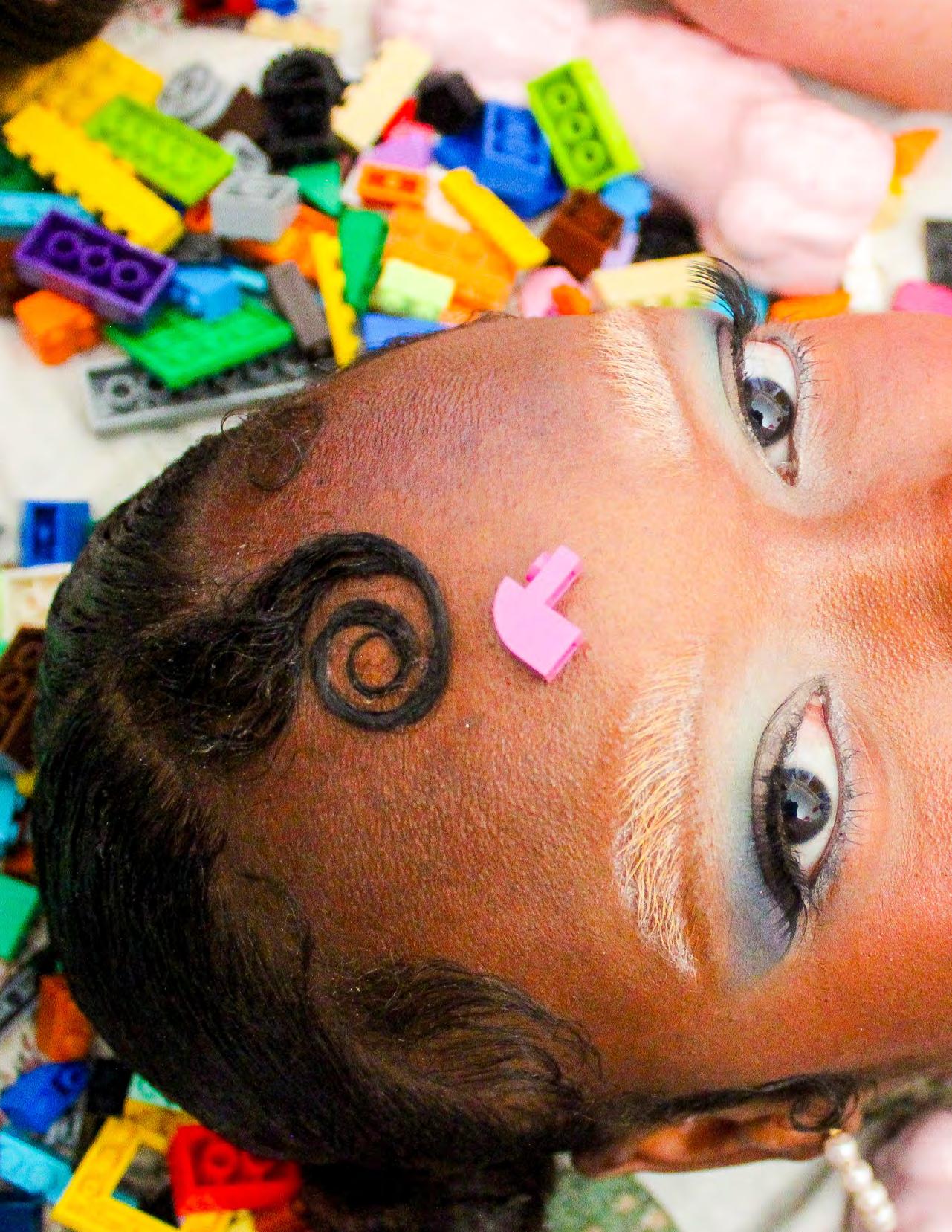
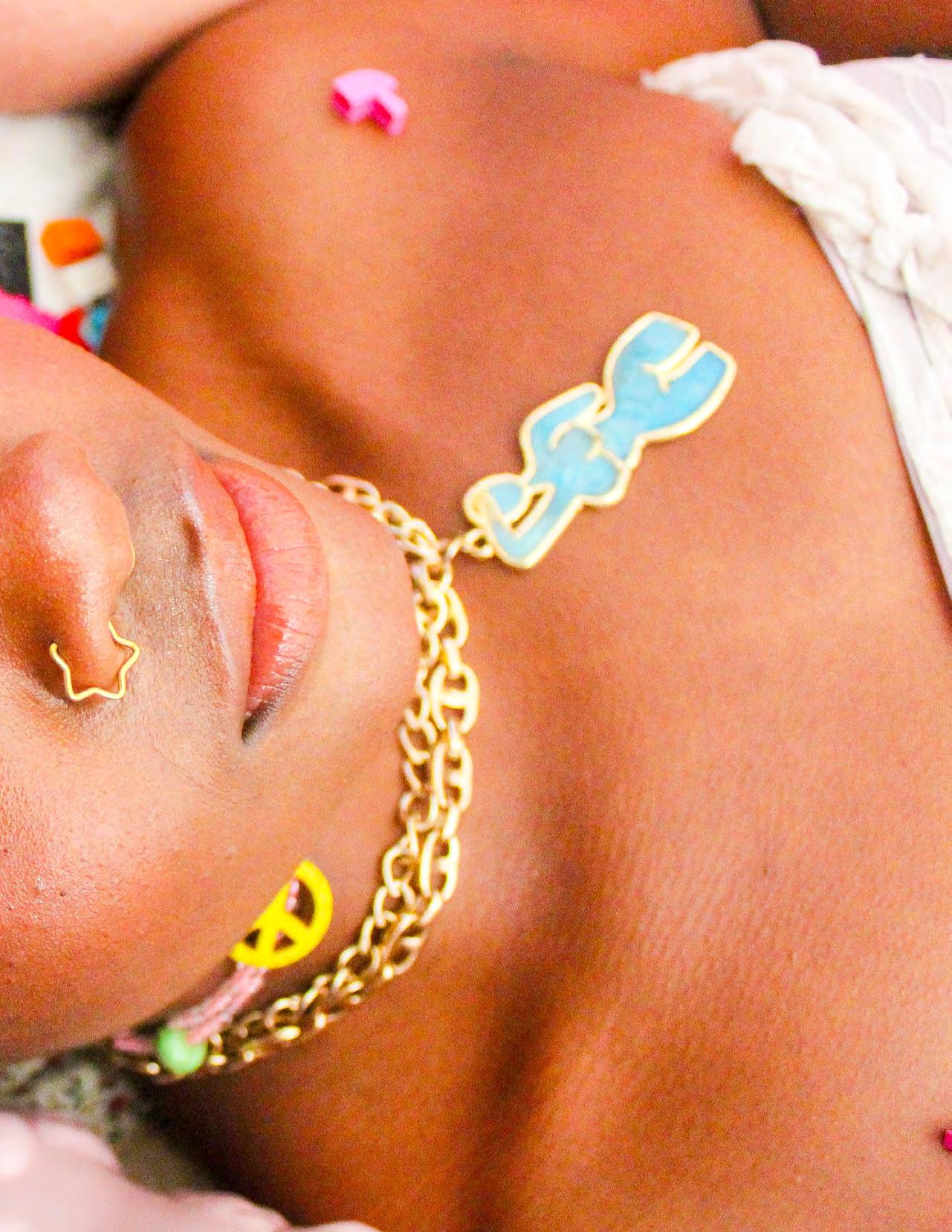
 Written By Laurie Carrillo
Photographed By Rhian Jones
Designed by Solana Espino
Written By Laurie Carrillo
Photographed By Rhian Jones
Designed by Solana Espino

ess Ellis was on the hunt for the perfect jean jacket.
It couldn’t be just any nice hunk of denim. It needed to be a heavy-duty Levi or Wrangler, medium wash, oversized and with pockets running up and down the material. Nowhere in California seemed to have what she was looking for, so she crossed land and water to keep searching.
She foraged through piles upon piles of denim at Waterlooplein, one of Amsterdam’s largest flea markets that hosts over 300 vendors. Hundreds were tried on and discarded. The shops in Paris were just about tired of seeing her rummage through racks of vintage clothes.





Sure, thrifting is better for the environment than the destructive cycles of fast fashion. It’s gratifying to find an awesome pair of pants that fit you just right. But Ellis doesn’t walk into massive consignment shops and sprawling flea markets with that in mind. For her, there’s nothing quite like seeing traces of some forgotten history in the palm of her hand: A name scribbled on a jacket tag, faded marker stains on a t-shirt, pennies left behind in pants pockets.



Ellis struck gold back in the states a few months ago. Visiting her brother in Boston, she stumbled upon the smallest flea she’d ever been to, and the very first item she rested her eyes on was a medium wash Levi piece with four pockets covering the front side. The perfect jean jacket.
She’s wearing the jacket the day we sit down to talk. In fact, her entire outfit is composed of pieces she’s thrifted: Brand new Reeboks and a $3 crop top from the Goodwill on 28th Street. She recounts the story of the jacket with absolute delight.
“It was the first jacket out of hundreds that I had gone through that met every qualification,” she says, feeling the fabric between her fingers.
Ellis, a junior business administration major, isn’t just an avid thrifter. She’s a nostalgia aficionado, a lover of relics from a different time. Forgotten handbags. Vintage ashtrays. Led Zeppelin ballads from the 1970s. She lives with one foot in the present and the other in the past.
“You decorate your home with antiques and vintage items, you wear vintage clothes and thrifted stuff and it feels like you’re immersing yourself in all kinds of different times,” Ellis says.





Her grandmother planted the seeds for this passion when she was a child, taking Ellis to any yard sale she could find to rifle through the eccentric mix of knick knacks for a hidden piece of treasure. It soon blossomed into visiting every thrift store in Hawaii, finding intricate GrecoRoman style antique ashtrays at San Diego’s largest consignment store and collecting funny t-shirts that she finds at Salvation Army.
“[A thrifted item] was pre-loved. It wasn’t just preworn,” Ellis says. “All of the items you’re finding have had lives before you.”
College is an overwhelmingly forward-moving environment. We’re right at the crux of adulthood where nothing matters more than what we’re doing tomorrow. Will this help us get that internship? Will it boost our resume? Every step we take is meant to serve our future, and with a firm grasp on what humanity has left behind, Ellis seems to be an antithesis to the norm.
It’s not just the clothes that draws her in. In fact, her love for nostalgia is rooted in something else entirely.
130


GETTIN’ THRIFTY|
Laurie Carrillo

“It’s always been music,” she says. “Music has always been that one thing in my life that just makes everything else make sense.”
Ellis was raised on sounds of her father’s childhood, scores of classic rock and groovy earworms that dominate her listening habits even today. Artists like Led Zeppelin and Cream are her windows to the past, soundtracks that give her a glimpse of what it was like to live over half a century ago. But even more impactful for her are the windows she’s made into her own life.
During her freshman year of high school, Ellis created her Spotify account and began making regular playlists of her current song rotations, labeled by the month and year. She now has over 200 playlists, each averaging around 50 songs. Every playlist is her own way to rewind the clock.
“As I got older, I wanted to go back to those feelings and reconnect with my younger self [and] remember that I am that same person, just a couple of years older,” she says. “If a song can bring back emotions from a different time of your life, that’s good art. I love that you can tap into other parts of time just by listening to a song or an album.”
Ellis’ goal is to share her love for vintage music with as many people as possible through her own creations. She wants to be a DJ and bring tracks from vastly different time periods into one, layering and combining sounds into one experience that’s both innovative and reminiscent of the past. Just how she likes it.
Despite only starting this year, Ellis has already made strides as an amateur DJ. She began playing at fraternity parties in February, and a month later, she had her first paid gig. She documents it all on her TikTok, with several of her videos amassing over one million views.

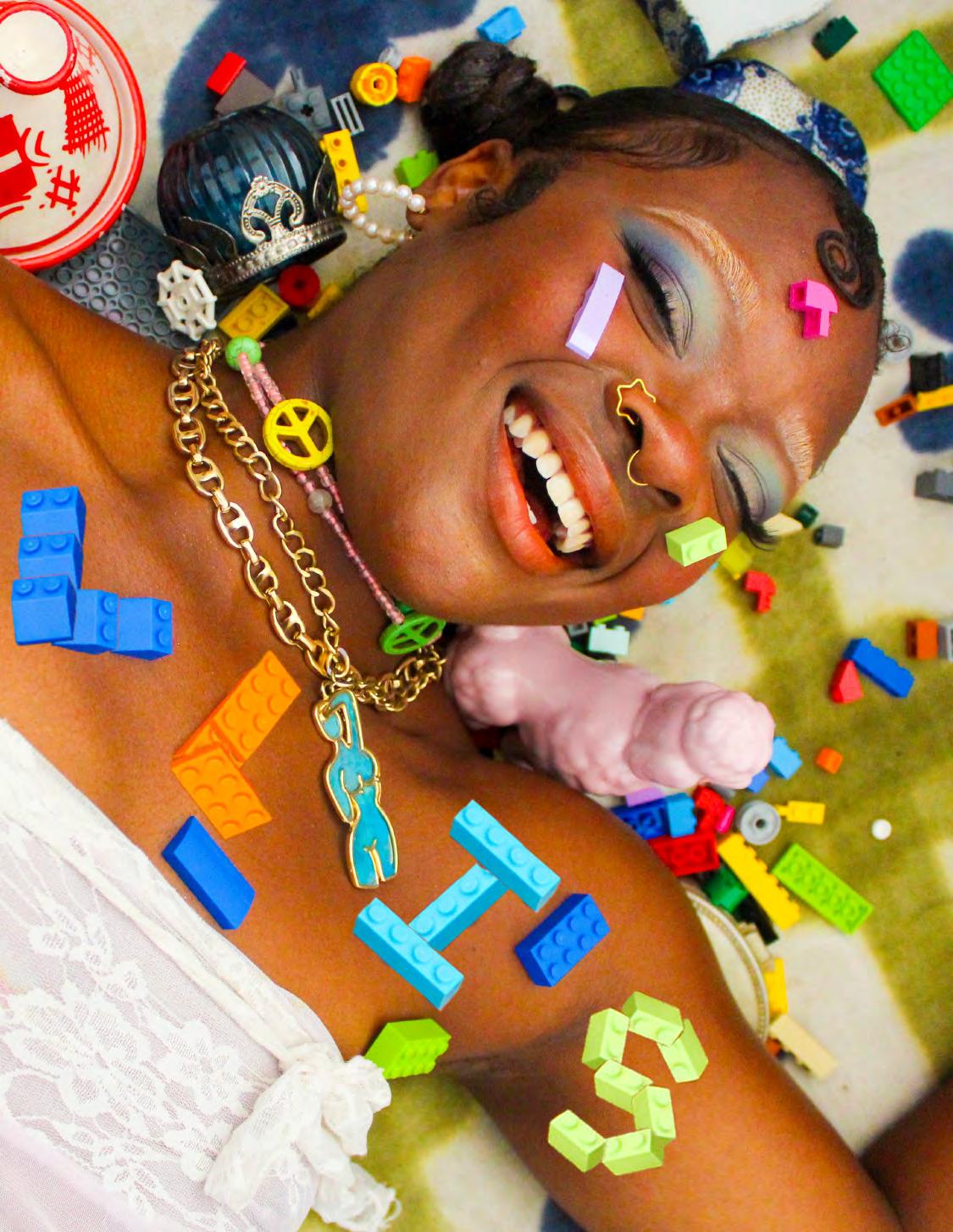

 Model Leeann Ross ‘25 is a dance major from Atlanta, GA.
Model Leeann Ross ‘25 is a dance major from Atlanta, GA.
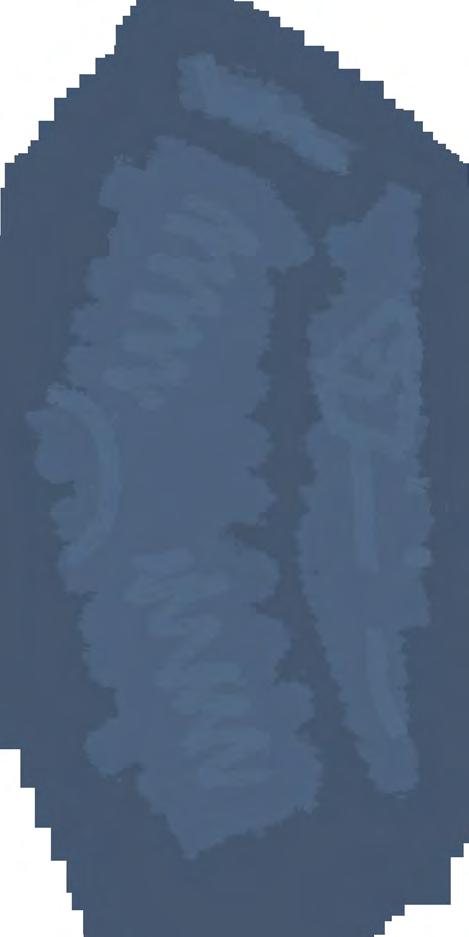
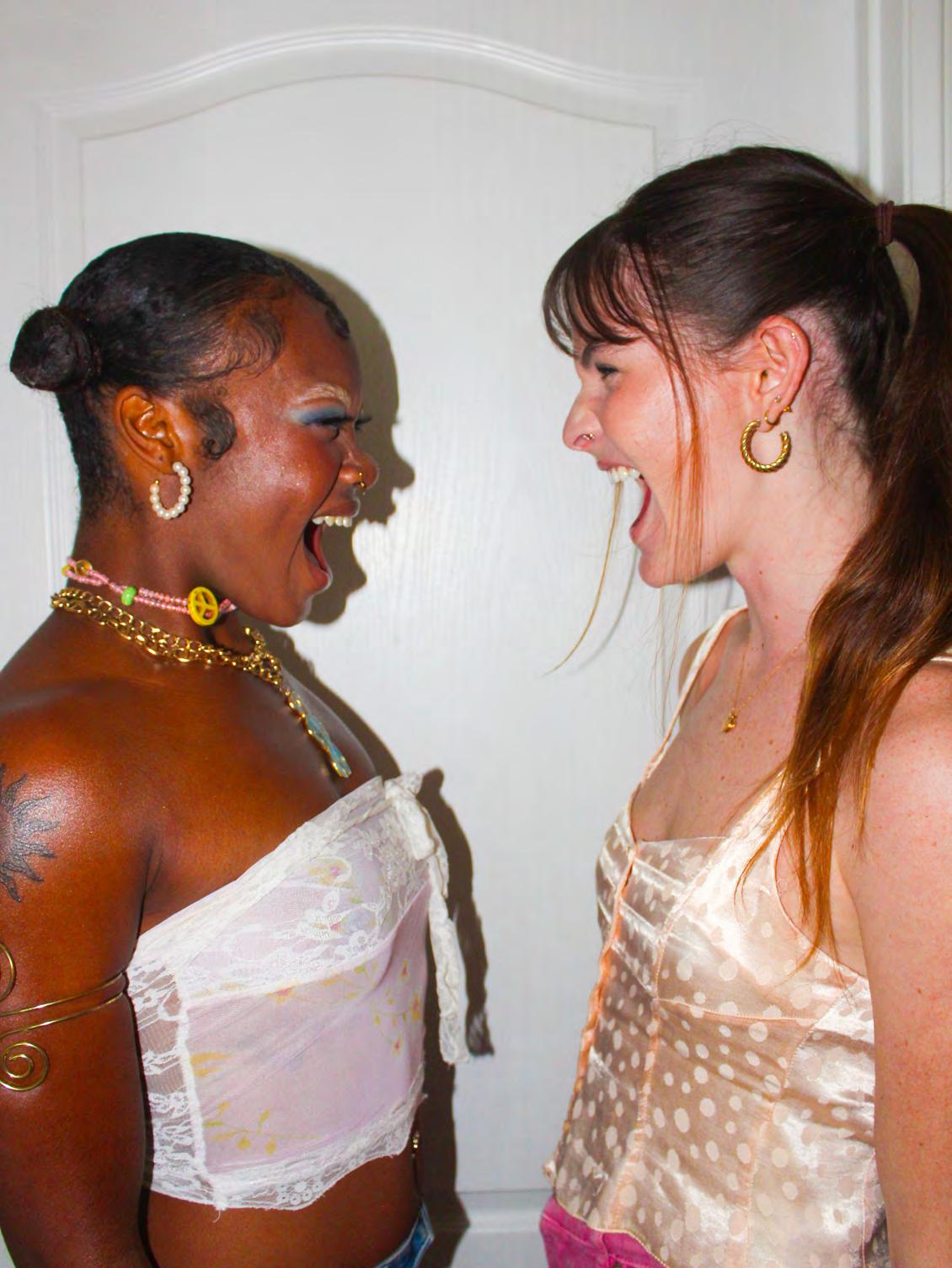
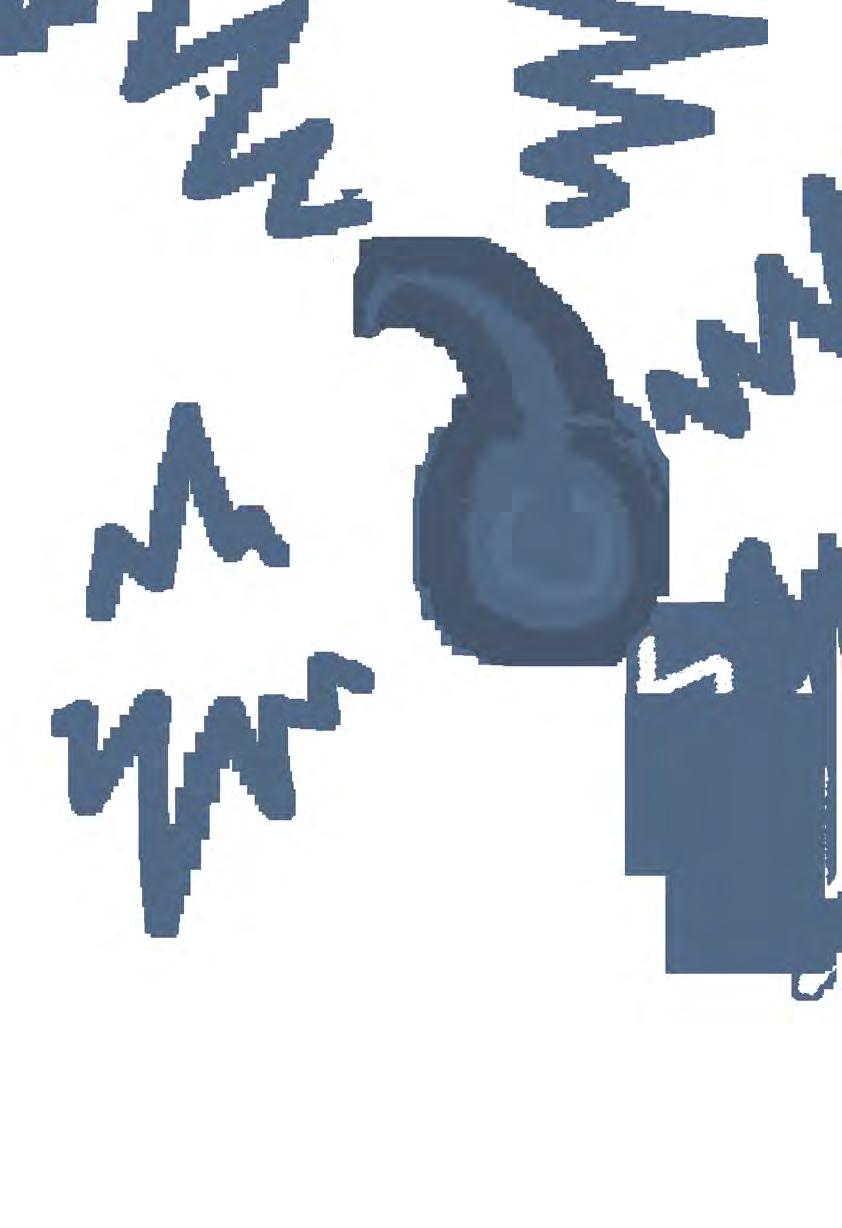
GETTIN’ THRIFTY|
On right: Interviewee Jess Ellis ‘25 is a business administration major from San Diego, CA.
Laurie Carrillo

Her love for thrifting isn’t too far removed from this endeavor, either. When Ellis first started learning the tricks of the trade, flea markets and thrift shops put just the right items in her path. The first piece of equipment she ever purchased was a MIDI keyboard, an electronic controller for music production, that a vendor at a market was “just trying to get rid of.”
“I had been talking about it earlier that day and for weeks leading up to it about how badly I wanted one. When I saw it, I was just like, ‘this is meant to be,’” Ellis says.
Every so often, Ellis’ uncle will send her photos of different equipment he comes across at flea markets that she could use for her music. Chris Ellis, lover of old electronics and watches, shares his niece’s attachment to nostalgia. He takes his thrifted finds and flips them into more functional items. With a massive vinyl collection, he too adores music like no other. Despite the years between them, they’ve found common ground.
“There’s a certain level of patience and commitment to thrifting, and those values build friendships and translate into other things,” Sullivan says. “Jess and I don’t talk everyday anymore, but when we catch up it feels the same, and I think that comes from a level of appreciation of the act of thrifting that’s not instant gratification.”


We’re all standing at the precipice of the rest of our lives, tying our shoelaces and readying ourselves to face whatever life throws at us in our adulthood. Looking back on the past as often as she does, Ellis is still among the array of hopefuls who prove that living in the past isn’t so bad, as long as she keeps her eyes forward.





“It certainly brought us closer. It’s just really, really nice to be able to pick up the phone and go, ‘Hey, I found this or I found that,’” Chris Ellis says. “I don’t know how Jessica became so interested in nostalgic things, but it’s just magic. She got bit by the nostalgia bug, and it’s a great thing because now I can call her up and I have something really cool to talk about.”
Ellis’ hometown friend Sophia Sullivan — the first person to introduce her to thrifting during the pandemic — has witnessed Ellis develop a true appreciation for second-hand shopping. She’s not only found her style, Sullivan says, but she’s developed a distinct perspective on life.
Maybe one day, Ellis’ name will be cast in lights outside a Las Vegas venue, her unique musical blend of time periods echoing across the Strip. But no matter what her dreams are for tomorrow, her love for times gone remains her anchor. Every old record and thrifted piece of clothing has a permanence that keeps her grounded.
“[The past] is like a pillar of who we are, learning from our mistakes and learning from our victories. It’s just a reminder that time moves on and changing is okay, because you still always have that art,” Ellis says. “Art is forever. The thought of losing thousands of years of art and music and life… What would give us any hope to keep living?”
Ellis’ miracle jean jacket will hang like a monument in her closet, constant through the rest of college. And should she choose to donate it one day, it will fall into the hands of someone new, carrying with it all the memories she made with it snug over her shoulders.

135












WRITTEN BY KYLEE WARDEN
PHOTOGRAPHED BY LILI PAPE
DESIGNED BY SOLANA ESPINO
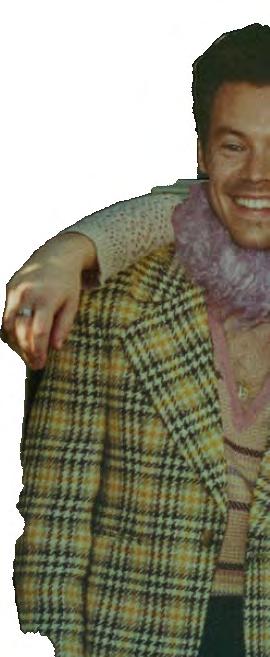
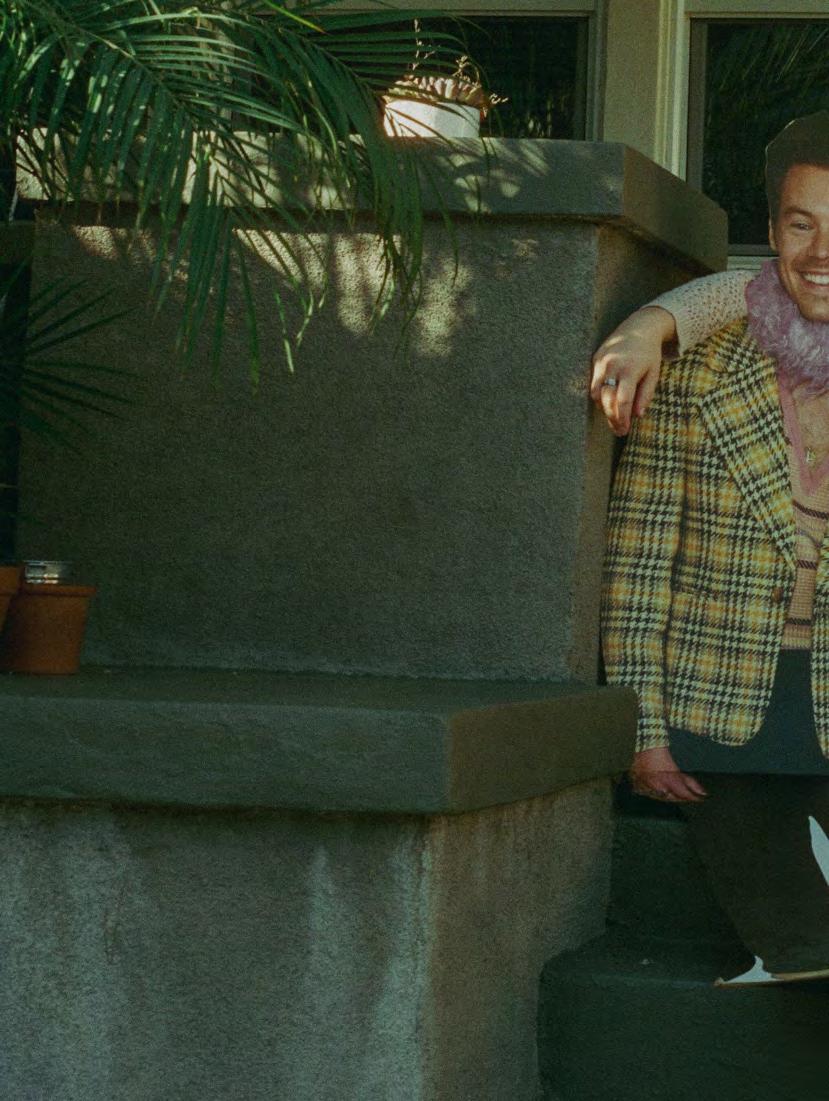



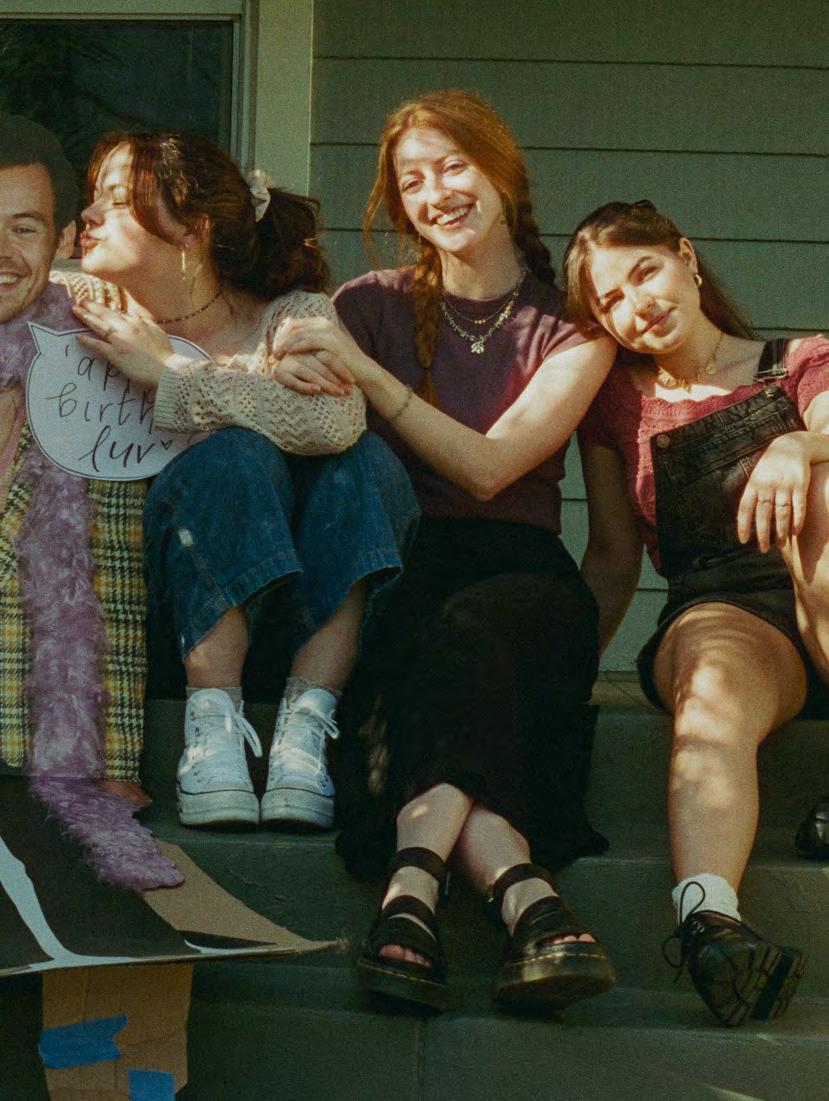

nside a green-painted house in the heart of South Los Angeles lived four college roommates and a life-sized Harry Styles cutout.
The one-story house had cream-colored window sills and a bright green lawn. It’s a quaint memory of the homes that used to line the block before developers tore them down to make room for towering apartments. The roommates kept a tattered, sunbleached USC Trojans flag stuck in the grass, a hand-me-down from the students who lived in the house years ago. They felt it gave the house a history.
In the green house, a pigeon and her babies had long ago claimed a spot in the rafters, and no one had the heart to kick them out, so they sat in their nest and kept the pistachio-hued home safe.
Miniature palm trees grew beside the steps leading up the porch. There, the roommates would sit together on warm summer evenings, remembering how great it was to be alive as fire-brushed skies faded into cityilluminated nights.
I was lucky enough to be one of those girls in the green house, along with Ashley, Shelby and Arianna. But more on them later — let’s get back to the cardboard popstar who called it home, too.
He started his artificial life propped up in an office I worked for at USC. His smiling face and recognizable 2021 Grammys outfit (a loud mix of a yellow checkered blazer and a purple feather boa) greeted incoming students. One day, he got replaced by a new cardboard kingpin and headed for the dumpster, so I took him home.
cardboard body outside her door. Taped to his side was a speech bubble with the words “Happy birthday, luv!” as if the message had come from Harry himself.
You have to know two things: Arianna loves Harry Styles, and that’s about as much sense as the gift ever made.
Harry’s message changed a few times over the years, from Christmas well-wishes to inspirational quotes to push through finals week and back to his original birthday memo. What started as a gag gift evolved into a token of our friendship as we stumbled through life in college together.
That’s the funny thing about living with your college roommates. You collect things: Mismatched decor, inside jokes, mementos, teary-eyed hugs and lessons on growing up. It’s a unique time when you are suspended between who you were in high school and who you aim to become in adulthood, all while in a home surrounded by others doing the same.
As for the girls in the green house, we met our sophomore year at USC after the pandemic reduced freshman year to Zoom class. Our journey began in an apartment in the USC Village. I was terrified of living with strangers in a new city so far from my tiny Nevada hometown. Every dandelion, night star and eyelash in the months leading up to the August move-in date was saved for wishing myself luck.
Since then, we’ve said goodbye to our teenage years and blossomed into 20-somethings inside walls of seafoam green.
Say what you want about superstition, but the three girls I moved in with during that hotly anticipated summer became some of my closest friends. Since then, we’ve said goodbye to our teenage years and blossomed into 20-somethings inside walls of seafoam green.

It was the day before Arianna’s birthday, and it was a rainy one. That wet afternoon, with Harry Styles in one hand and my polka-dotted umbrella in the other, I trudged back to our sage-colored sanctuary. I dried him out overnight and set up his dilapidated
Going through college and becoming adults is easier said than done. In reality, it looks less like a storybook and more like an essay written an hour before midnight: The characters are lost in the
140
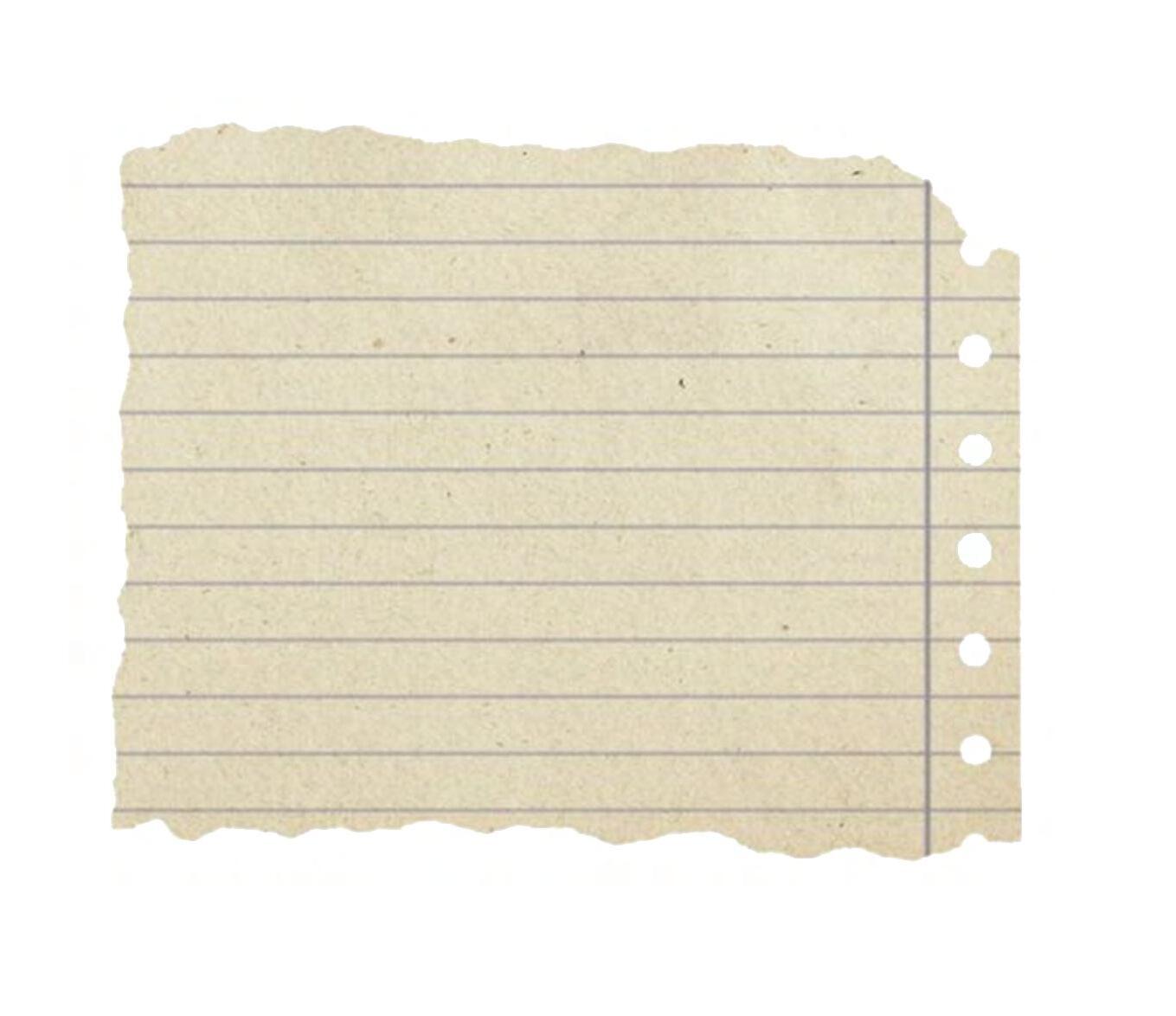
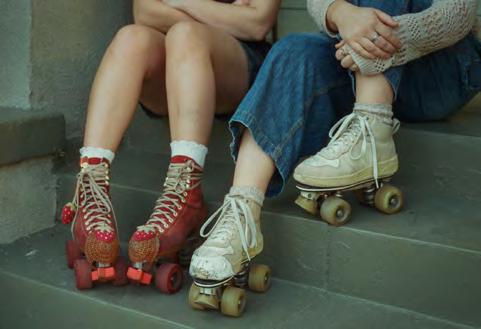


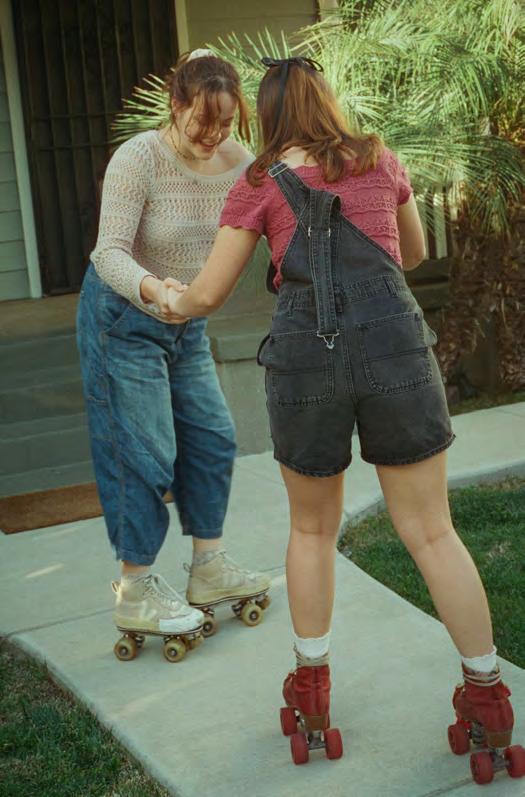

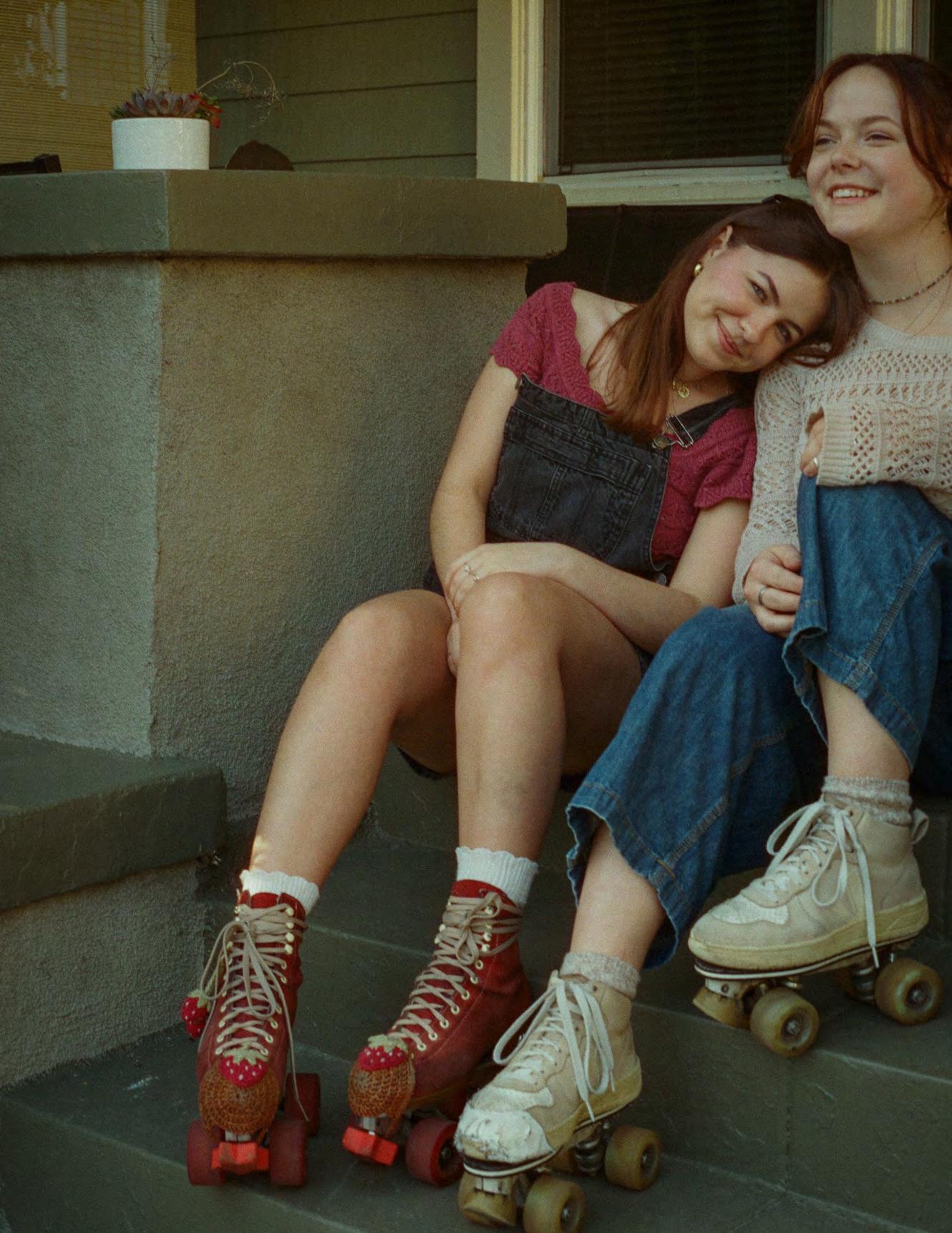 THE GIRLS IN THE GREEN HOUSE| Kylee Warden
THE GIRLS IN THE GREEN HOUSE| Kylee Warden
Thank you to the roommate groups pictured below, who welcomed SCene into their homes.
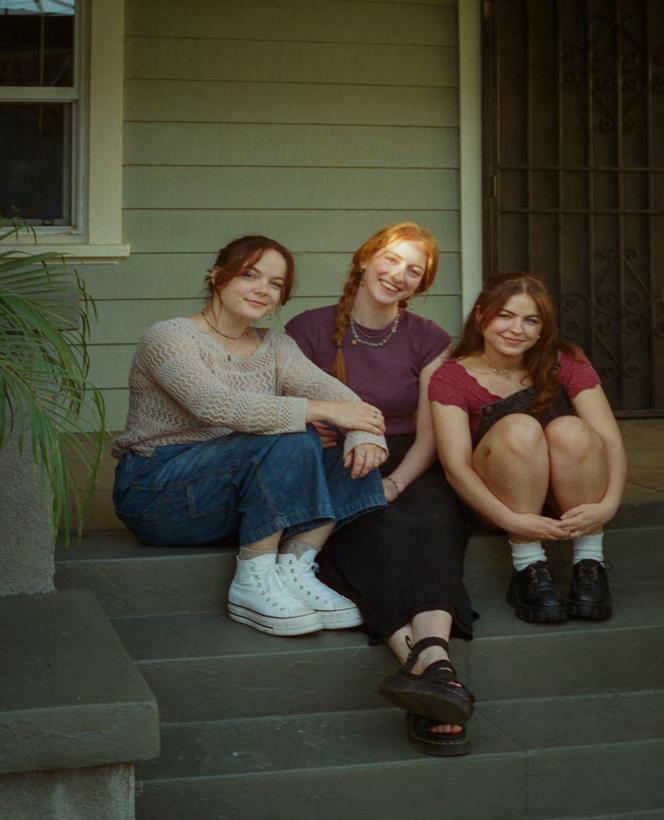

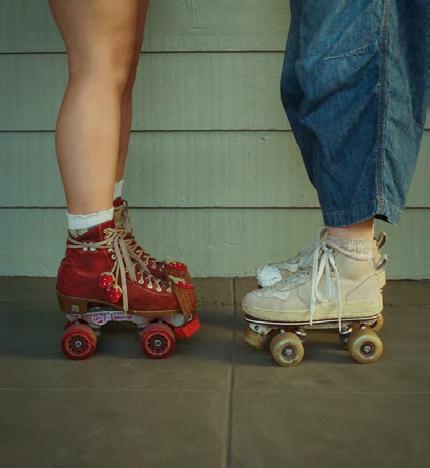

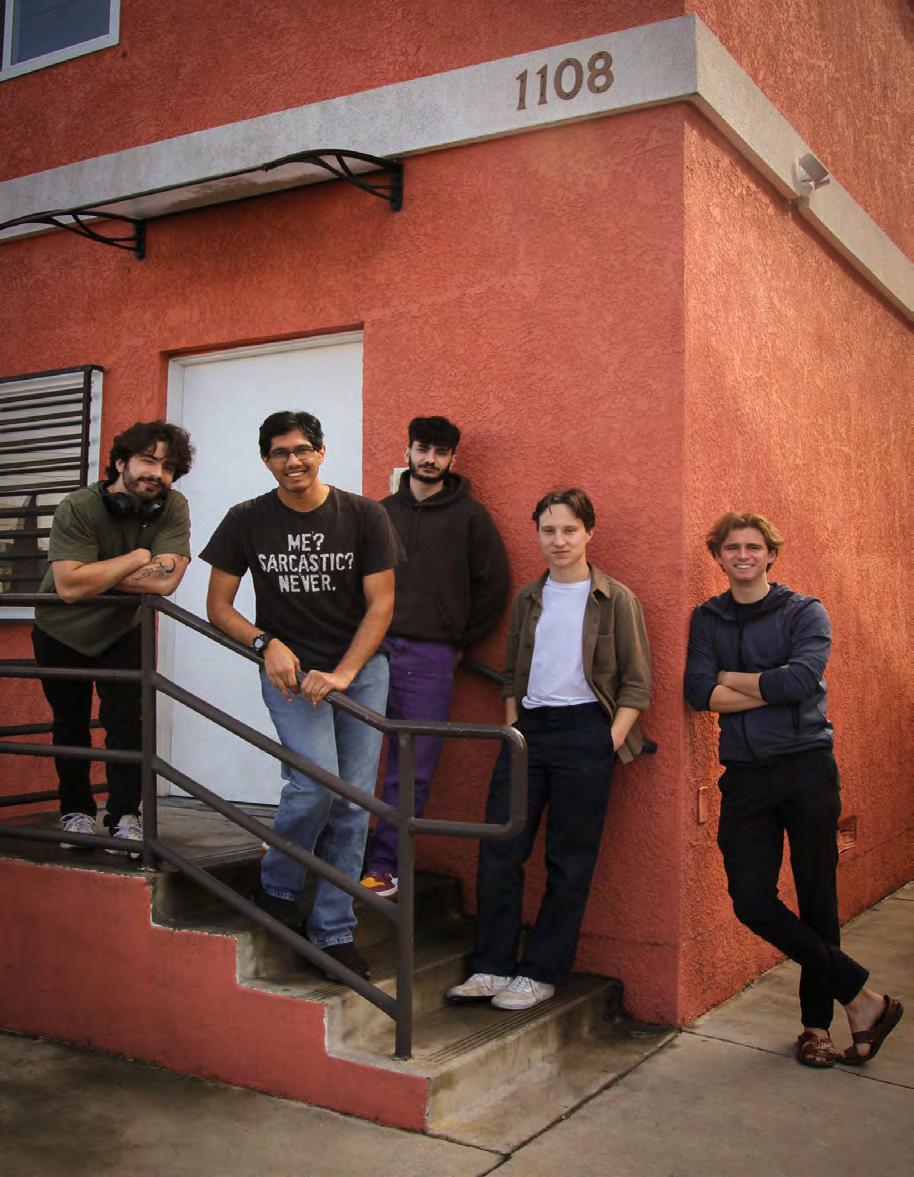
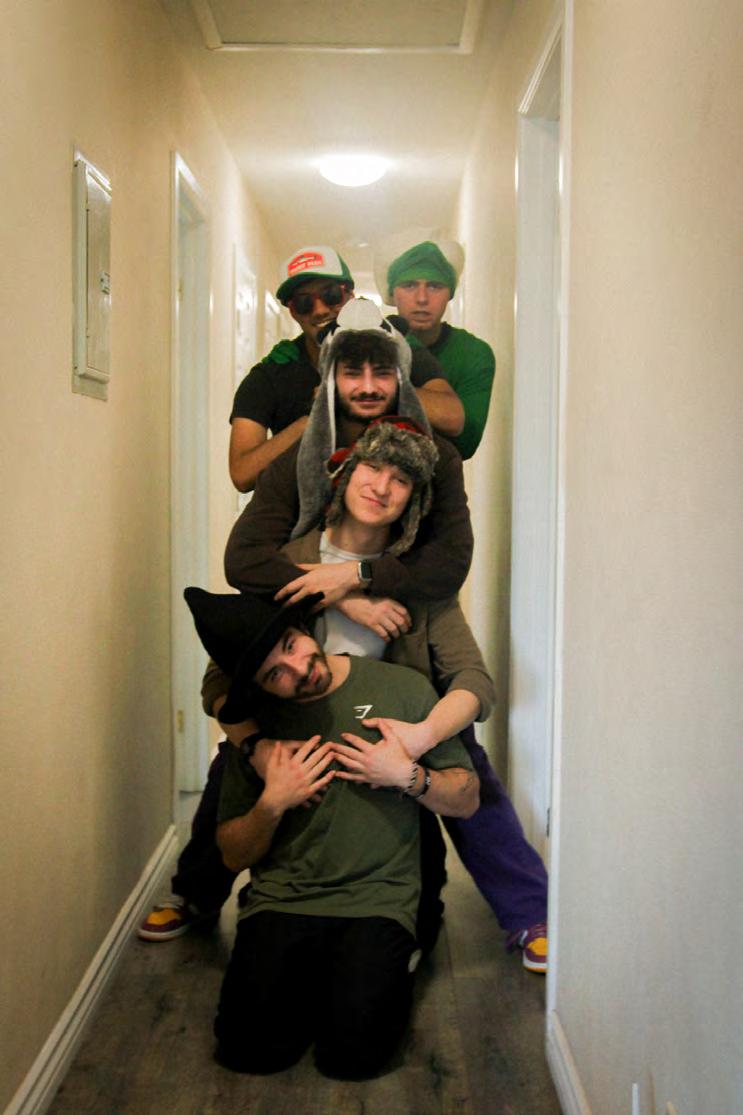
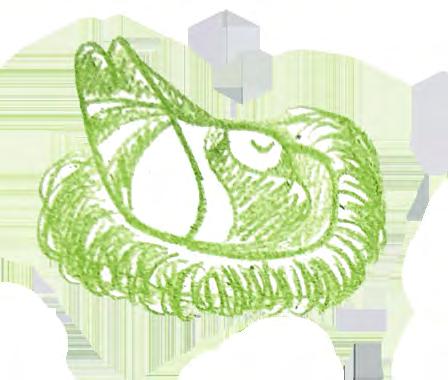
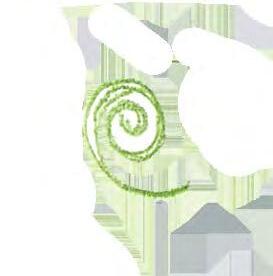
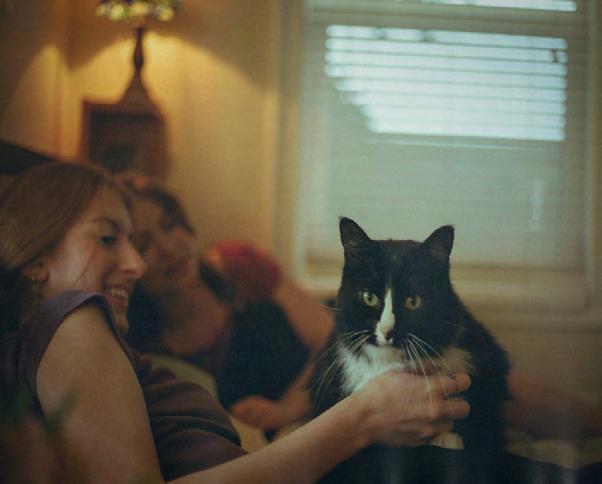

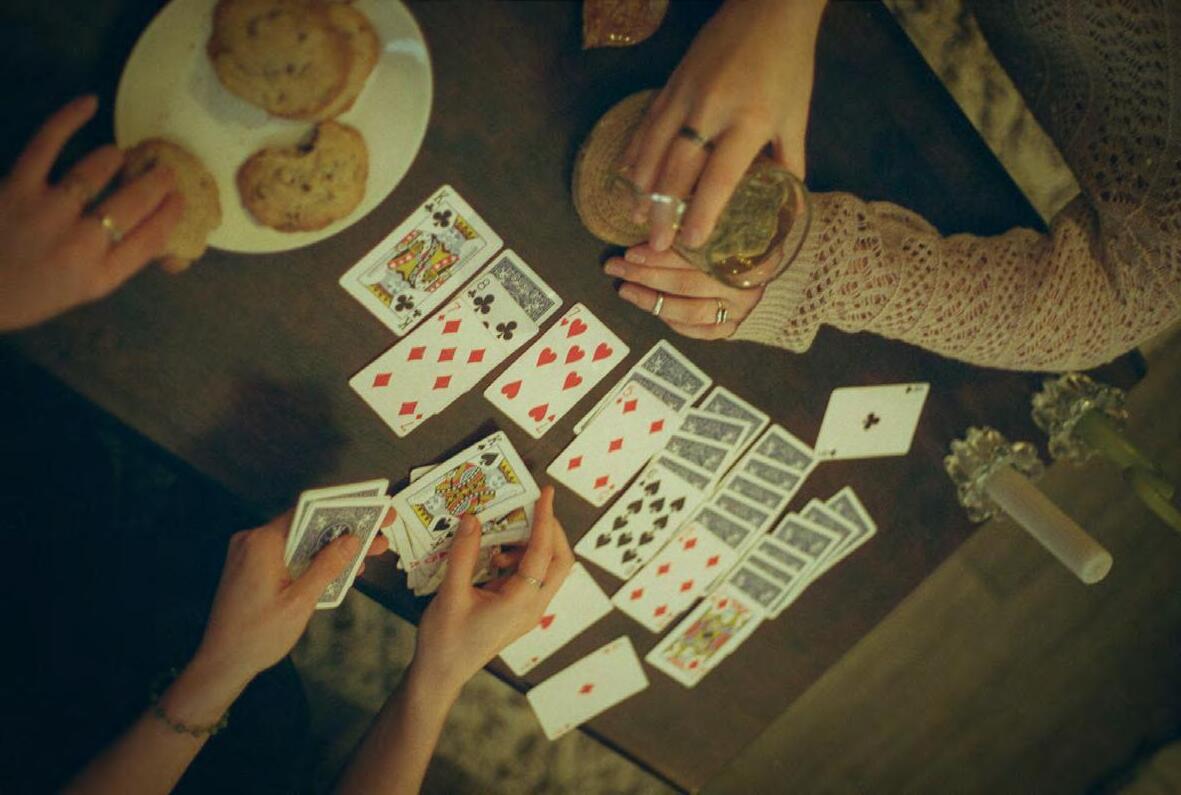
 THE GIRLS IN THE GREEN HOUSE| Kylee Warden
THE GIRLS IN THE GREEN HOUSE| Kylee Warden
plot, and no one understands where it’s going. But when you’ve got three other people trying to figure it out too, you scrape by together. If ever we had a problem too big to solve on our own — ranging from writing a cover letter (I’m still a little unsure) to getting a second opinion on whether you’ve cooked your chicken enough to avoid potential salmonella poisoning — we filled in the blanks for each other.
Sometimes, we matured together. We held each other’s hands through job interviews and gave each other the confidence to merge to the left-most lane on the 110. Other times, we nurtured our youth, like when we rearranged the living room for a roomie movie night or swam in the icy waters of Manhattan Beach, practicing cartwheels in the sand.
On rare — but inevitable — occasions, we taught each other lessons in conflict resolution. But the minor disputes over who didn’t refill the Brita, who broke the toaster or who got pink frosting all over the floor (sorry!) were only reminders that we were real people with quirks and complications who were navigating adulthood. We did not condition our love by being the perfect roommate.
room couch during midterms, finals and internship rejections.
They won’t know how we grew up together in the green house, even when we thought we were already grown.
I hope they keep the threadbare, shabby USC flag we kept on the lawn. Looking back, it seems like a token of initiation from the previous residents of our little green house. After all, it does give the house a little history.
I hope the new roommates sit on the front porch in the evenings when the sun doesn’t wave goodbye until 8 p.m. After a day at Manhattan Beach, I hope they leave their sandy towels out to dry over the railing and rinse off in lukewarm showers because all four are on at once. I hope they’re nice to the pigeons in the rafters and the home we shared.
We did not condition our love by being the perfect roommate.
Our love was rooted in the stitches in our sides from laughter that echoed through our home. The secrets we shared at the coffee table. The late-night drives to satisfy our cravings for a scoop of ice cream. The reassurances we traded when imposter syndrome threatened to swallow us whole. The pieces of each other we adopted for ourselves, building like tile as we became mosaics of one another. We’re each a different pattern with a familiar theme.
Soon enough, new roommates will call our treasured green house their own. Whoever they are, they won’t know the girls in the green house. They won’t know the hallway became a sea of balloons each birthday morning. They won’t know the kitchen table became a shrine to the birthday girl, with Harry always on cue to congratulate her on another trip around the sun. They won’t know how we commiserated on the living
We’ll pack up the disarray of magnets from the fridge, but I hope the kitchen still has a hint of jasmine from Ashley’s (morning, noon and night) tea. We’ll box up the pillows and blankets that covered the sofa, but I hope they feel the love Shelby radiated each time she leaned on our shoulders. We’ll patch up the holes made by those less-than-renter-friendly Command Strips, but I hope they make the house cozy the way Arianna did by filling it with items that made it home.
I hope they realize how special their moment in time is, and when they graduate from USC, they hold on to the lessons and memories from the little green house with them like cherished keepsakes: Souvenirs from their adulthood practice run.
And because we’re all still just kids at heart, I hope when they leave the cardinal and gold behind and launch into adulthood for real this time, they remember Winnie the Pooh’s honey-sweet words: “How lucky am I to have something that makes saying goodbye so hard.”

143
Writer
Kylee
Warden ‘24 is a journalism major from Reno, NV. She auditioned for Disney when she was seven. She is pictured with her roommates throughout this piece.
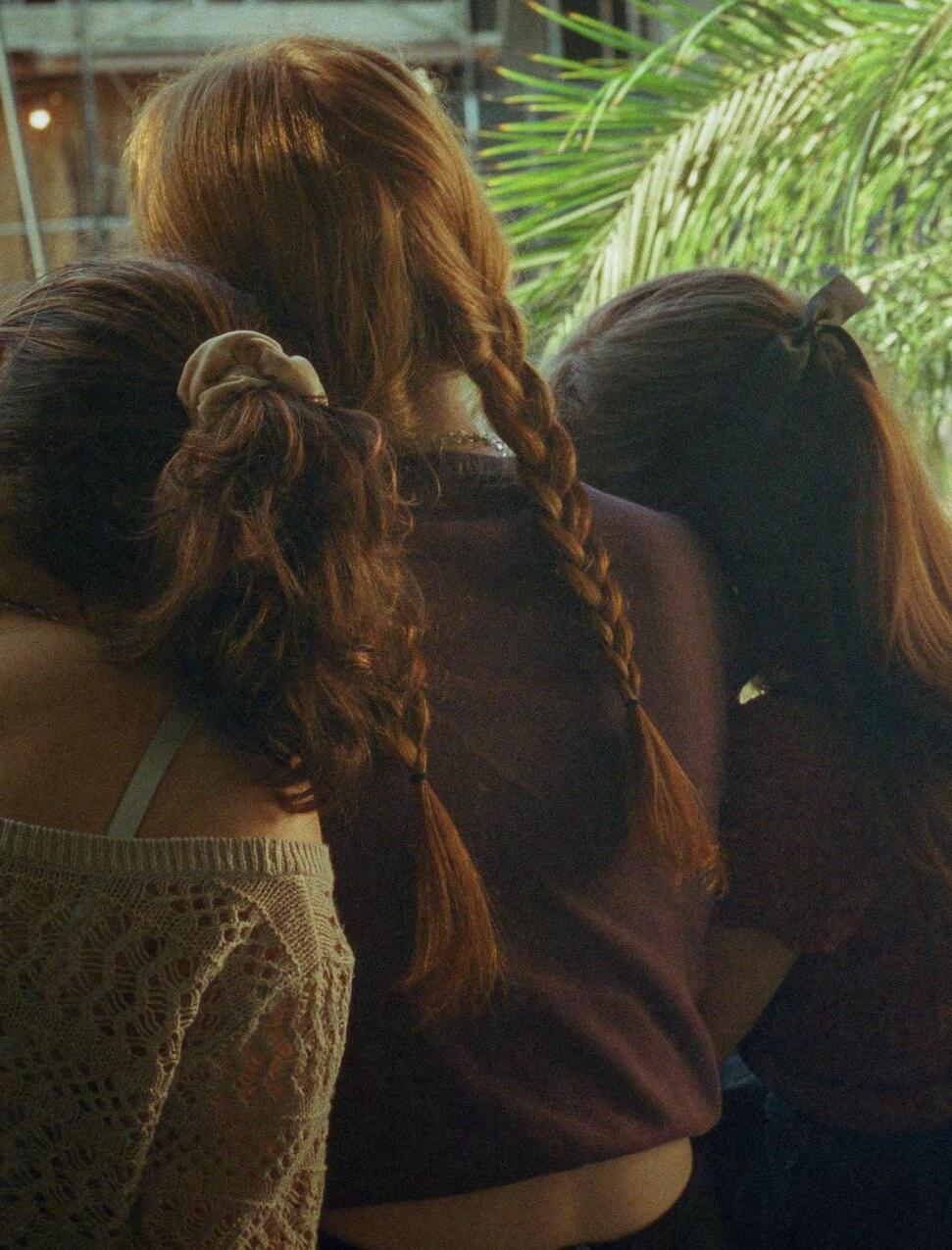

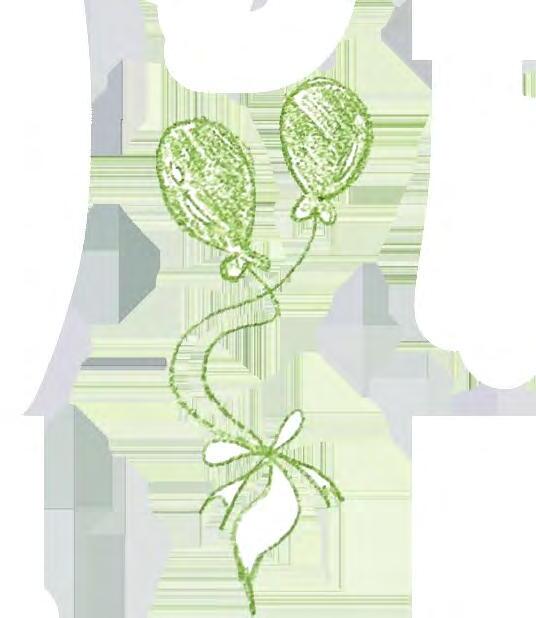




GRADU “T Becoming








 written by Curran Rastogi
photographed by Thomas Pham
designed by Julia Zara
written by Curran Rastogi
photographed by Thomas Pham
designed by Julia Zara

ATE”



 Writer Curran Rastogi
Writer Curran Rastogi
‘26 is a journalism and business administration major from North Caldwell, NJ. He says he has a surprisingly good British accent.
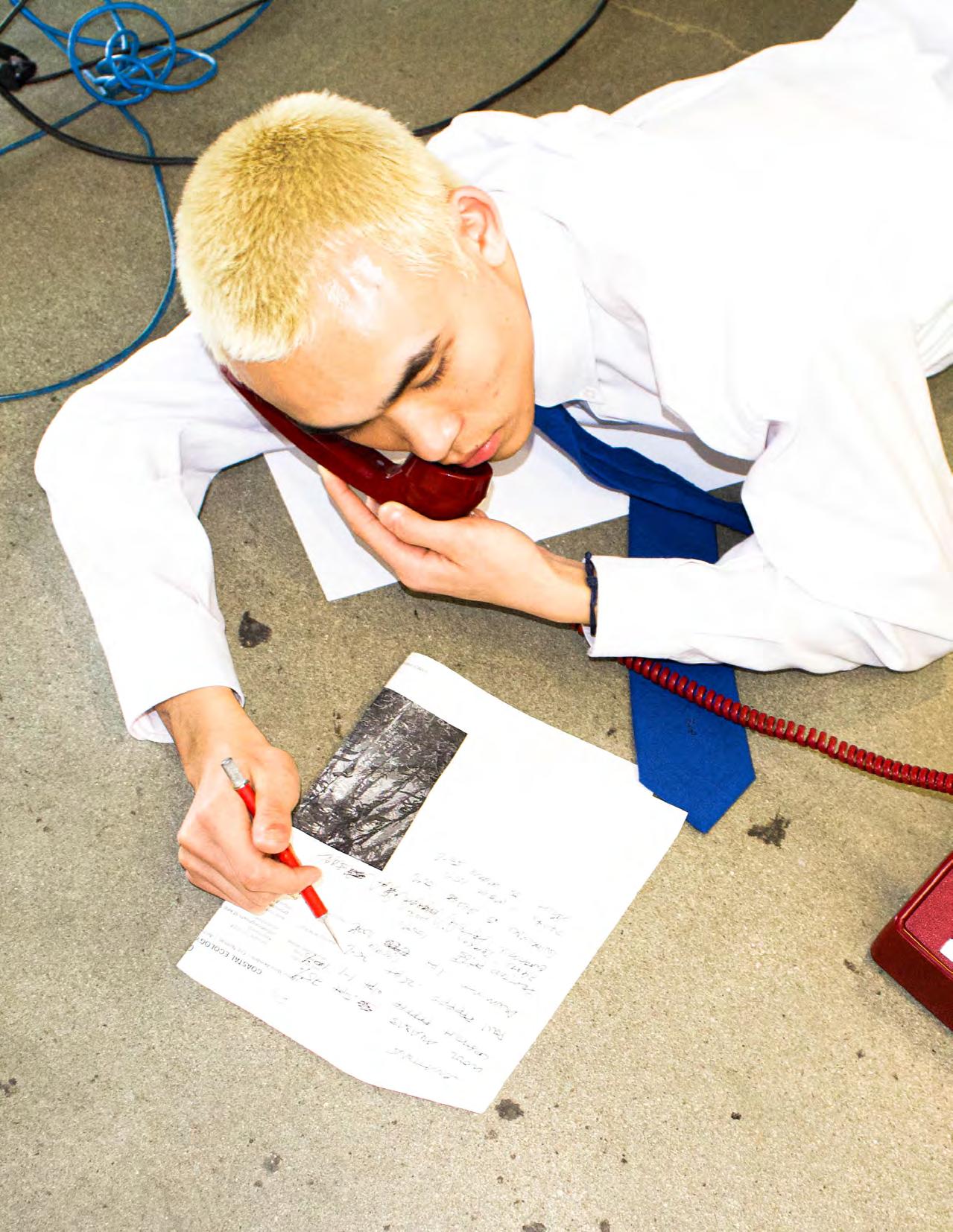


t’s like I was playing some kind of game, but the rules don’t make any sense to me. They’re being made up by all the wrong people. I mean, no one makes them up. They seem to make themselves up.”
When Dustin Hoffman said this in the 1967 film “The Graduate,” he perfectly encapsulated the post-graduation anxiety that was relatively new at the time for American youth. The film features Hoffman as the character of Benjamin Braddock, a recent college graduate, as he attempts to figure out what to do with his life after college.
Although it was released in the 1960s, the film still resonates with me, as Braddock’s feelings of failure and confusion are still relevant to students today. I, as well as many of my fellow Trojans, fear that I’ll leave college and journey aimlessly until I find my purpose. As a journalism major, this uncertainty is only emboldened by the shrinking nature of the profession, making it harder to compete with established professionals.
Justin White, a senior studying journalism, echoes this concern.
“I feel like something that hasn’t been answered yet is… how am I going to stack up against the guy who’s been doing this for 30 years?” White says. “How do I stand out? That’s what worries me, because I know I can do it. But, are other people going to see the same thing?”
In high school, White didn’t apply to a single four-year college. Now, he’s about to graduate from USC after transferring from Bakersfield College.
“I was like, ‘I’m just going to work hard and try to see if school was for me, because at that point, I just wanted to be done with school,’” White says. “I didn’t want to go to college, but I felt like I kind of had to.”
He stepped foot on Bakersfield College’s campus with dreams of being a trainer for a professional sports team, until he felt uninterested by his anatomy class.
149
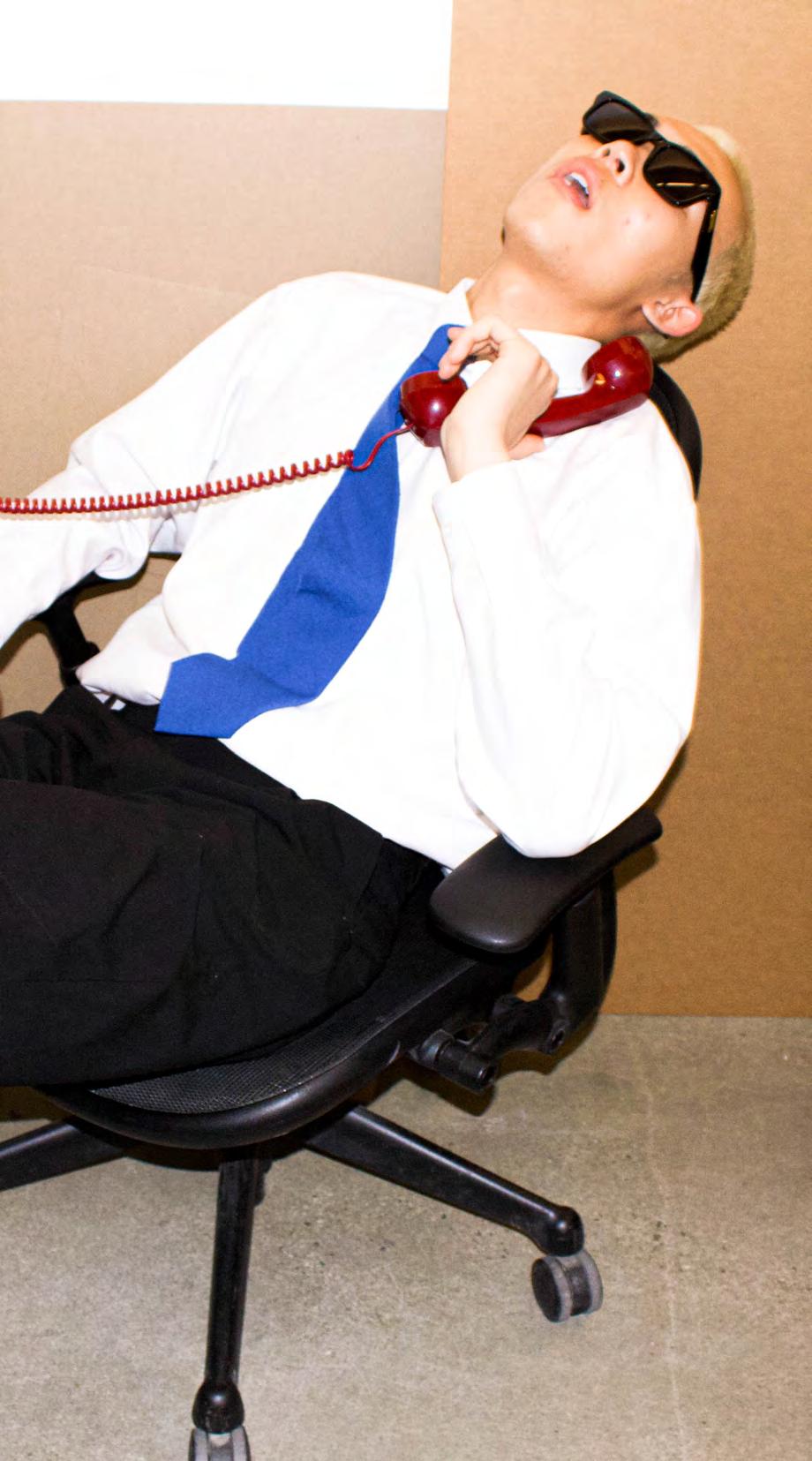
 Model Phillip Tran ‘25 is a real estate development major from Dallas, TX.
BECOMING “THE GRADUATE”| Curran Rastogi
Model Phillip Tran ‘25 is a real estate development major from Dallas, TX.
BECOMING “THE GRADUATE”| Curran Rastogi
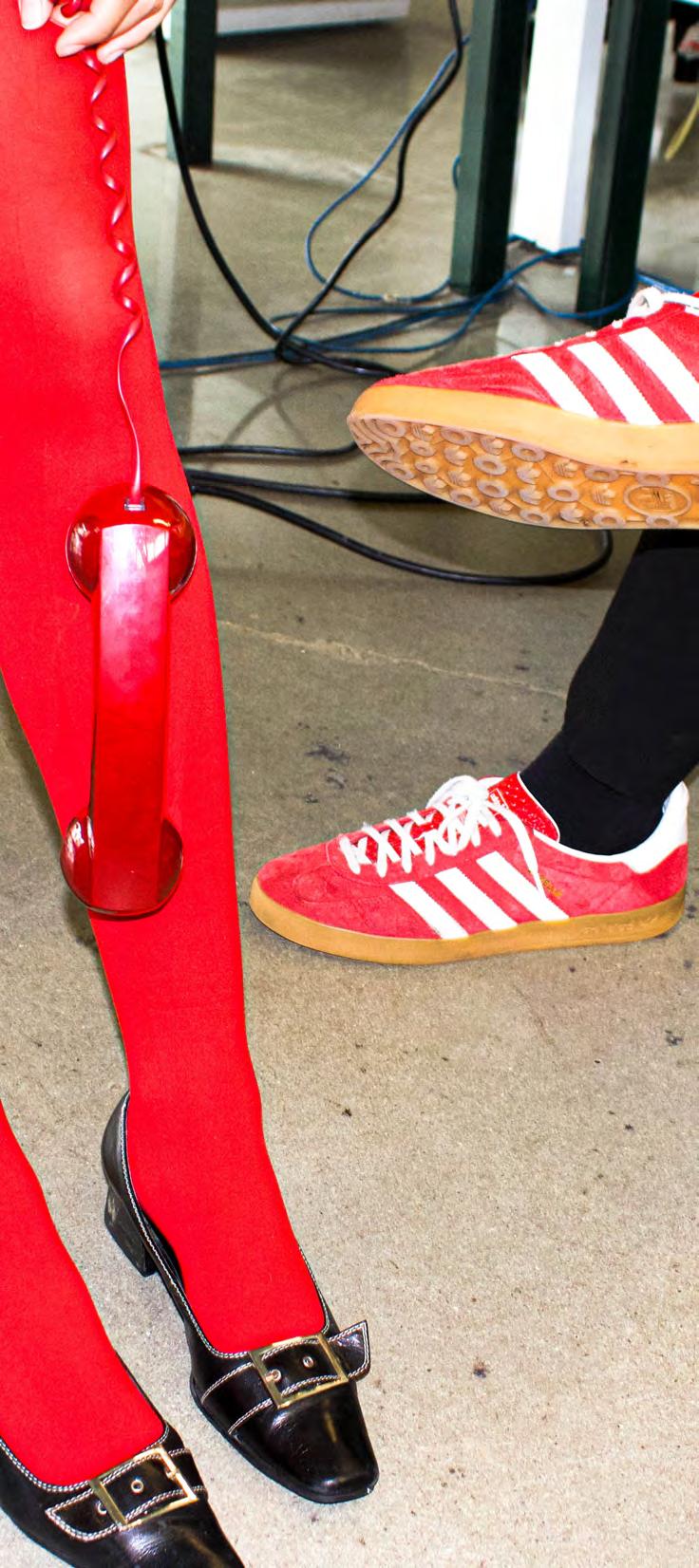
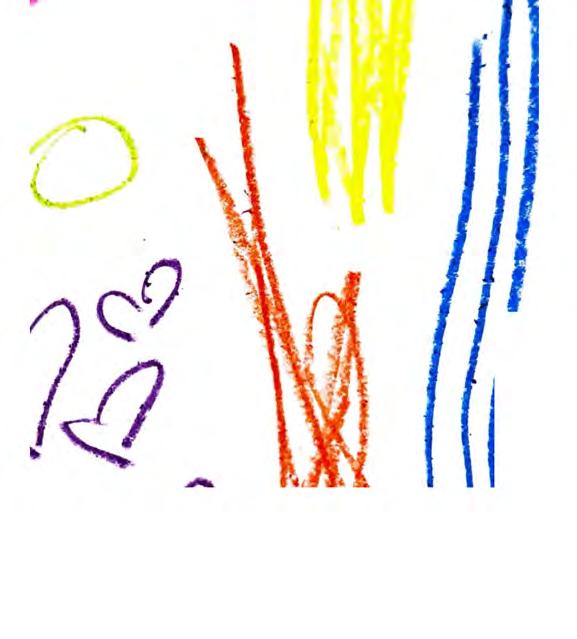

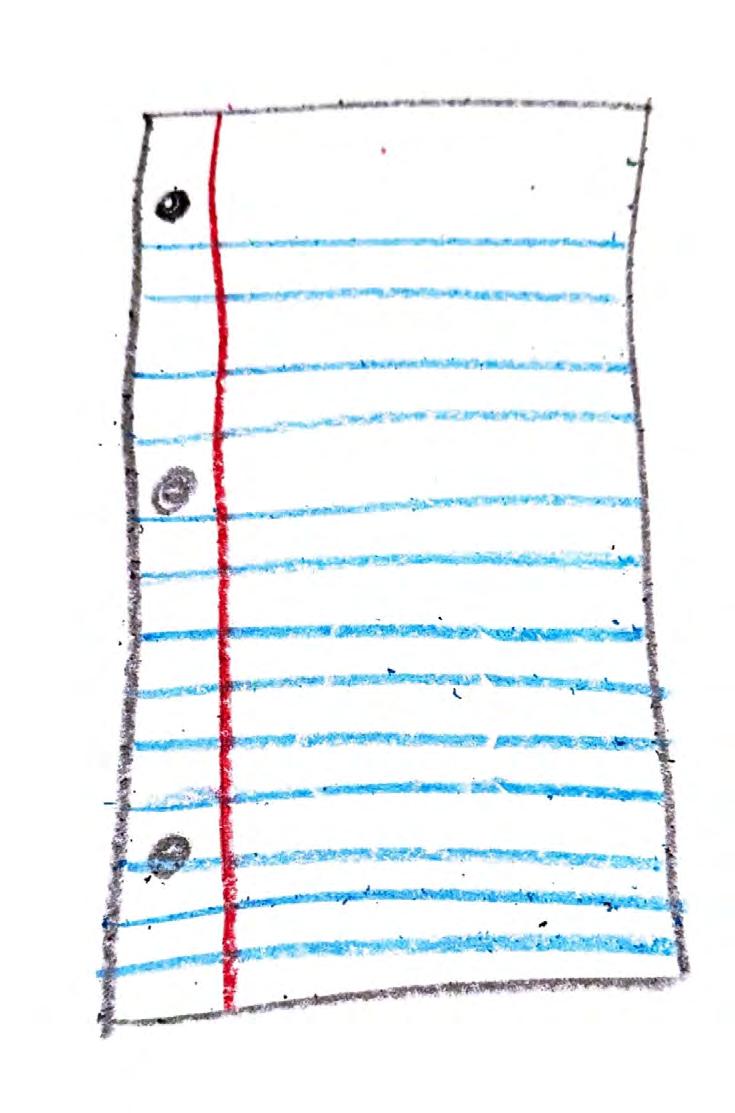
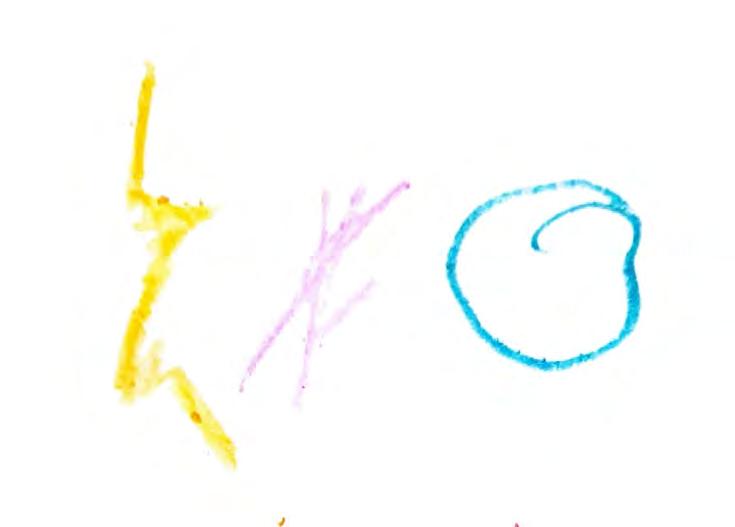
“I was pushed towards journalism by my dad’s friend who happened to be the news anchor in Bakersfield,” White says. “Ironically, he said I should get into sports journalism.”
At 18, deciding what you wish to pursue as a career for the rest of your life is almost impossible to do. According to the U.S. Department of Education, 33% of students pursuing bachelor’s degrees will change their major at least once. These career anxieties can continue even right before you graduate college.
Before Ella Katz, a social producer at ABC News graduated as a USC journalism major and entertainment industry minor in 2022, she says she had a “meltdown” and questioned her career goals. Even today, despite enjoying her job, she still has these anxieties, but she says prioritizing her mental health helps her stay productive.
“I really, really prioritize taking care of myself,” Katz says. “There’s a very fine balance between working hard, but remembering that, at the end of the day, your job doesn’t necessarily hug you back.”
Katz says the heart of post-graduation anxiety isn’t in the fear of failure, but in the fear of success.
“People actually have a fear of success: ‘If I do love this, how does that change my life?’” Katz says. “‘How does that change my identity?’ I think one of the most challenging parts of the identity crisis of graduating is realizing that it’s not an internship anymore, it’s not to get into the honors class, it’s not to impress your parents. It’s your life.”
Both White and Katz’s feelings aren’t a new phenomenon. According to Dr. Courtney White, an adjunct professor of cinema and media studies at USC, what made “The Graduate” both relevant and revolutionary to audiences at the time was how unconventional Braddock’s character was.
“Benjamin Braddock is a different kind of protagonist than has been seen in the movies before,” Dr. White — who’s unrelated to Justin White — says. “The first rule of writing a character in a screenplay is that the protagonist is supposed to be active and have a goal.
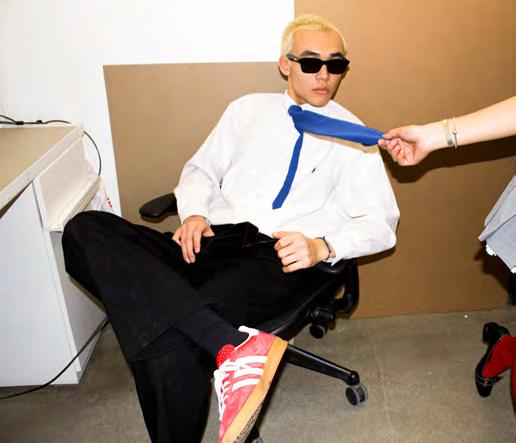
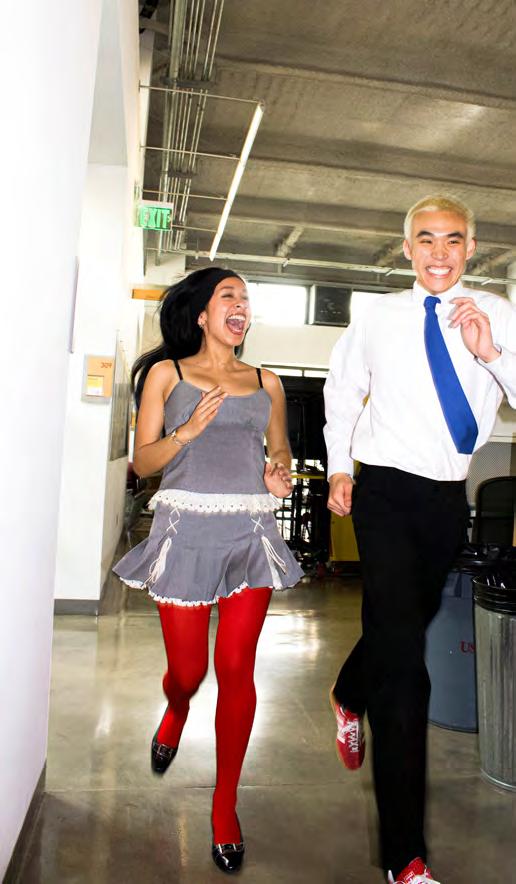
152




Model Kayla Suarez ‘24 is a business administration major from Orange County, CA. A fun fact about her is that she wants an orange cat.
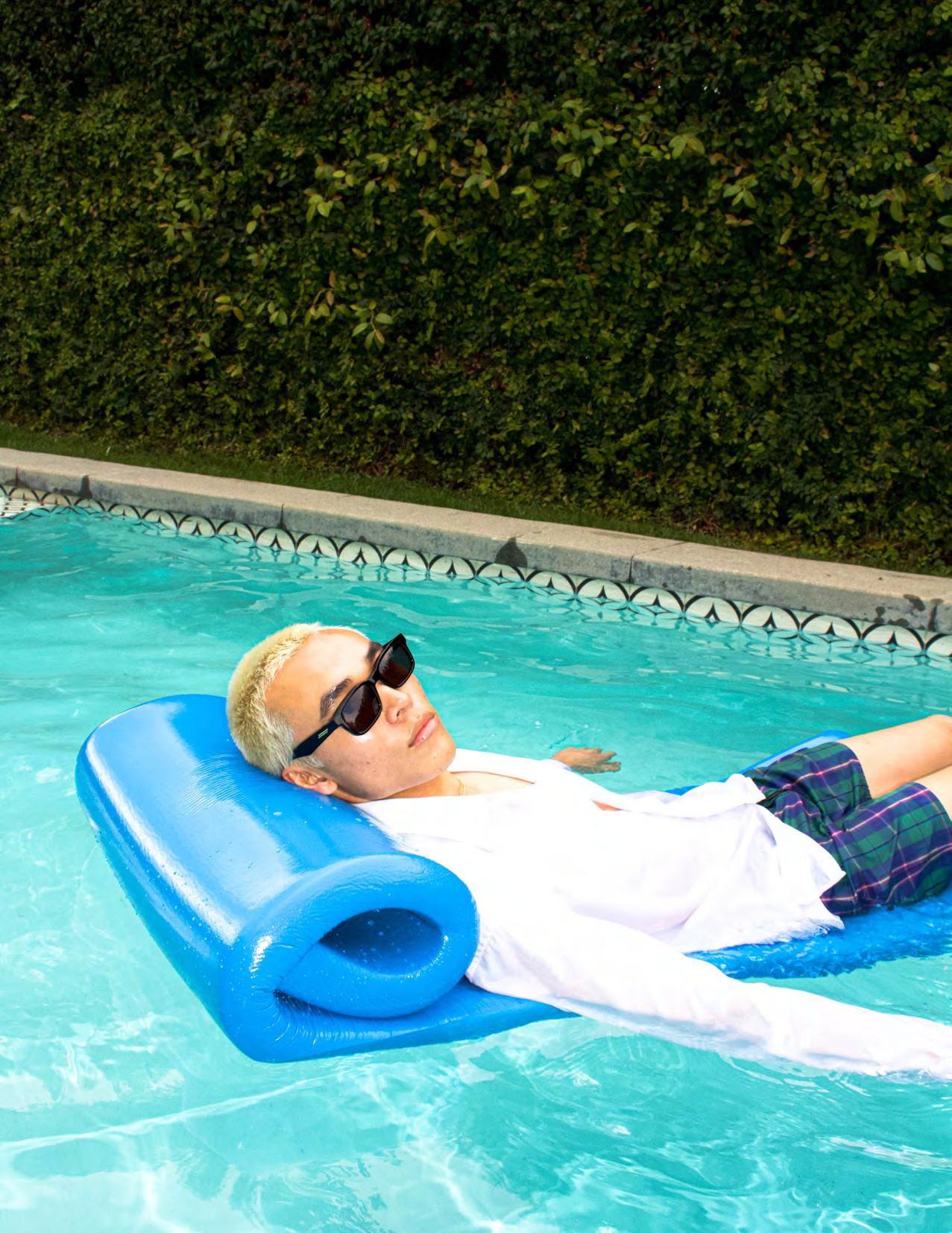
“Think about how you would want to be described in a eulogy about you,” Katz says. “How would you want to be described?”
Tran has a food blog on Instagram.
BECOMING “THE GRADUATE”| Curran Rastogi
Benjamin’s goal, throughout a lot of the film, or at least the beginning of the film, is just to have a goal. He’s just graduated. He doesn’t know what he’s going to do with his life. His parents want him to do something, but they’re kind of ineffectual in providing guidance.”
These anxieties are more than just Braddock’s problem of finding a purpose and working in the professional world. College provides students with some form of structure and acts as a bubble; when we graduate, that bubble bursts. Life on your own becomes a lot harder.
Fresh out of college, Katz says, “I think you kind of have a freshman year of life. I look back on it now, and I’m like ‘whoa, there were a lot of things that were teeter totter, figuring out. I’m uncomfortable. This is weird, this is new, this scary.’”
White’s anxieties about the logistics of the professional world manifest themselves in a different way. He worries about how much money he should make to sustain life after college.
part of the film is its ending. Braddock breaks up his lover Elaine’s wedding, and the two run off together jubilantly. As they drive away from the chapel, Simon and Garfunkel’s “The Sound of Silence” starts to swell, and the expressions on the pair’s faces begin to sour. The camera pans to the bus they are riding on, and the audience is left in ambiguity.
“Does Ben find some sort of purpose?” Dr. White asked. “Does he find a job? Does [Elaine] finish her degree? It’s almost like the equivalent of riding into the sunset at the end of a Western. You don’t really know what happens next.”
At a time where we all want our murky futures to become a little clearer, maybe it’s time to find some beauty in that uncertainty. Some truth lies in the saying the world is your oyster. For White, Katz and the rest of the Trojan Family, “The Graduate” serves as a reminder to focus on who you want to be, not what you want to do.
The heart of post-graduation anxiety isn’t in the fear of failure, but in the fear of success.
“I’ve never worked a job above minimum wage,” White says. “So, especially if I have to go to a place like L.A., and now jobs ask you all the time what your desired salary is. Am I undershooting it?”
Although post-grad anxiety is how “The Graduate” resonates with a youth audience, the most iconic
“Think about how you would want to be described in a eulogy about you,” Katz says. “How would you want to be described? That’s not going to be descriptors of what brands you wore or what companies you worked at. It’s going to be about how you made people feel, because that’s what they remember. If you can focus on being the best version of yourself, you will get all the external things you want. It’s just a fact.”

155
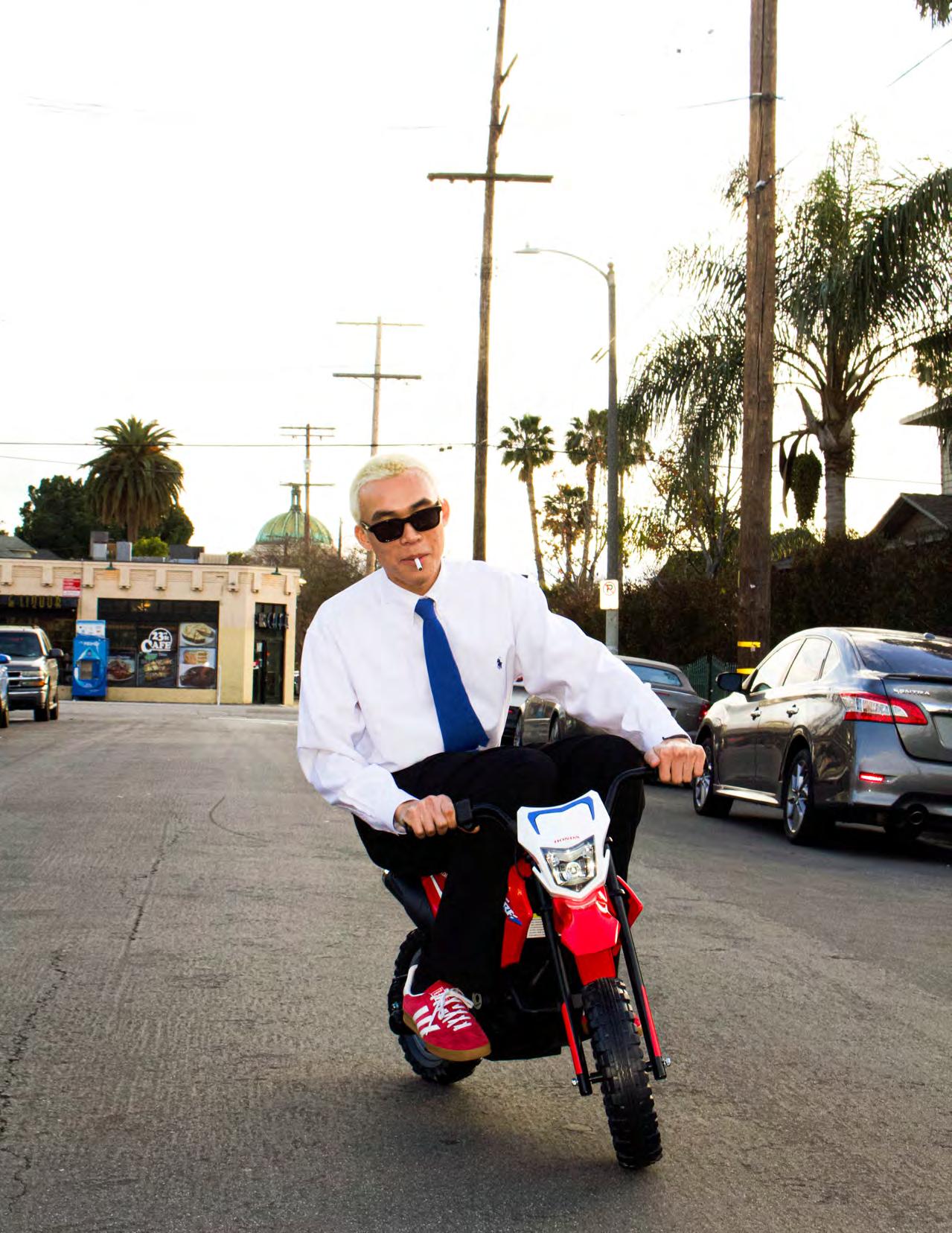 BECOMING “THE GRADUATE”| Curran Rastogi
BECOMING “THE GRADUATE”| Curran Rastogi
becoming “The Graduate” becoming “The Graduate” becoming “The Graduate” becoming “The Graduate” becoming “The Graduate” becoming “The Graduate” becoming “The Graduate” becoming “The Graduate” becoming “The Graduate” becoming “The Graduate”
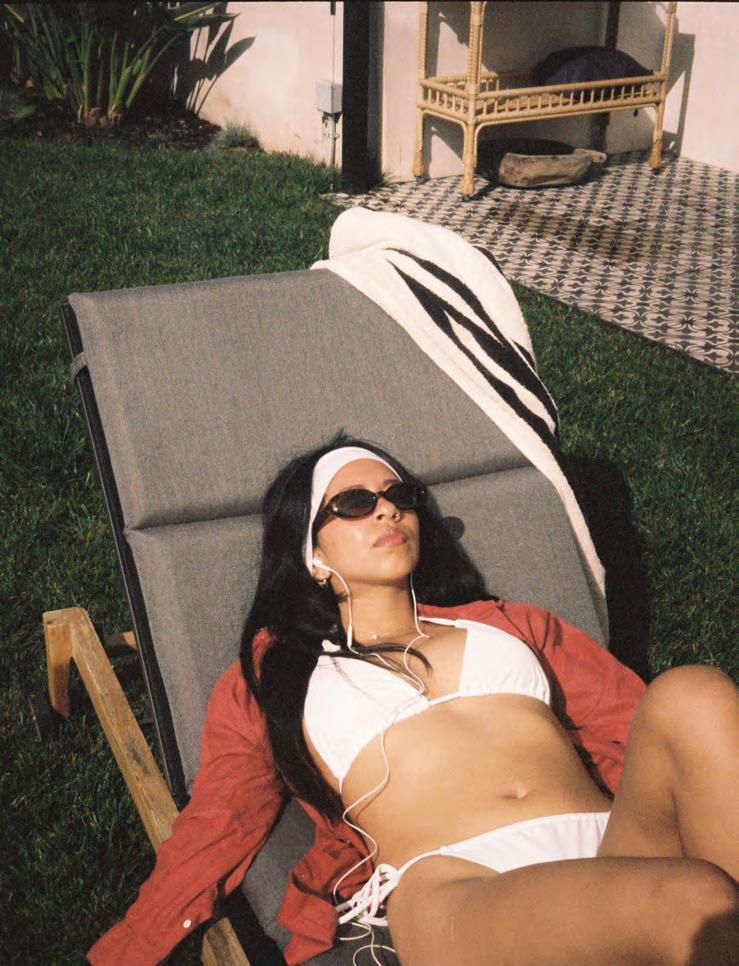
157

“... one of the most challenging parts of the identity crisis of graduating is realizing that it’s not an internship anymore, it’s not to get into the honors class, it’s not to impress your parents. It’s your life.”
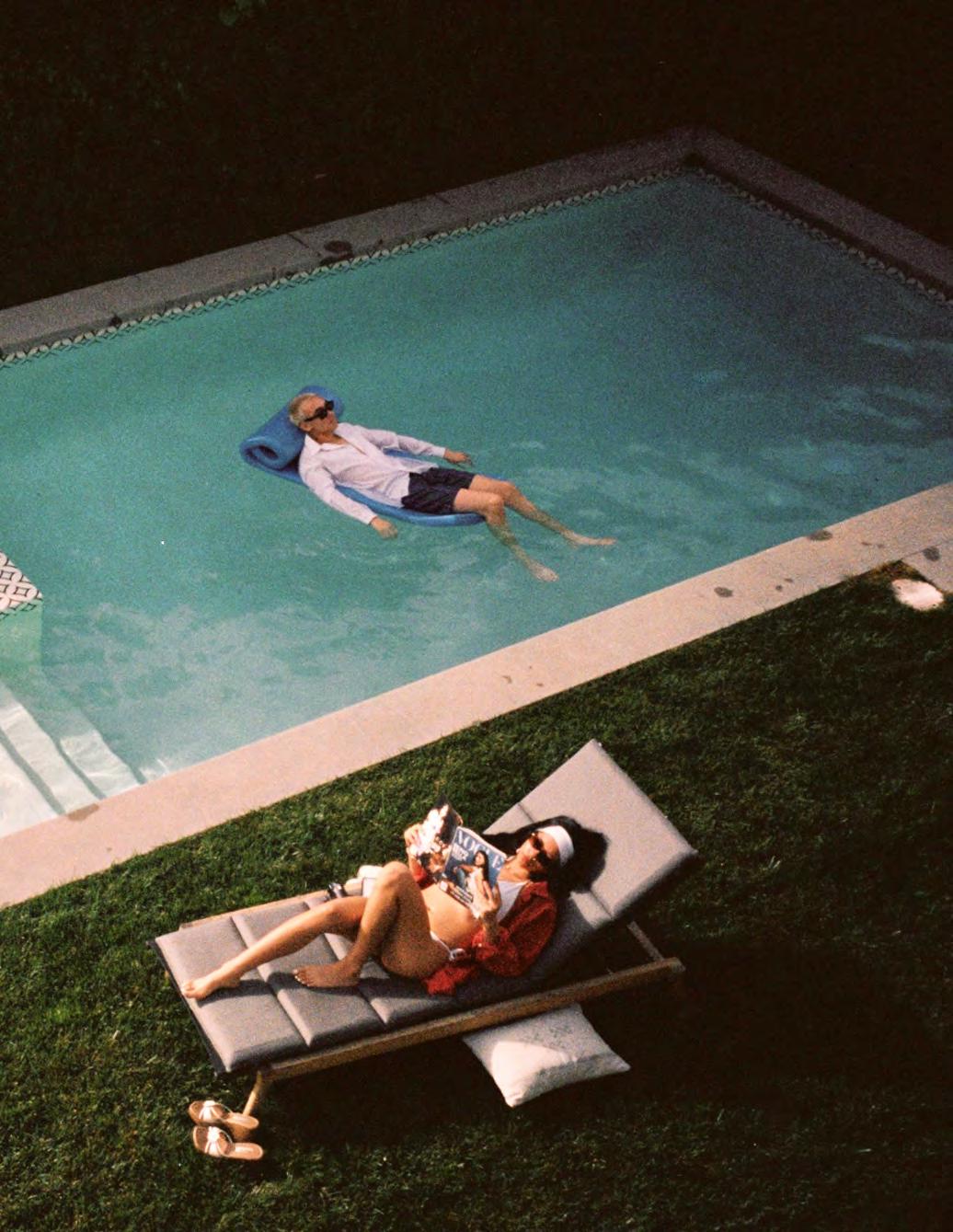
becoming “The Graduate”
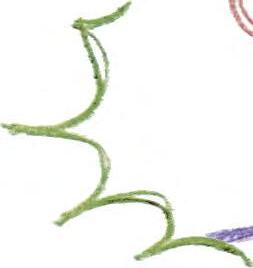

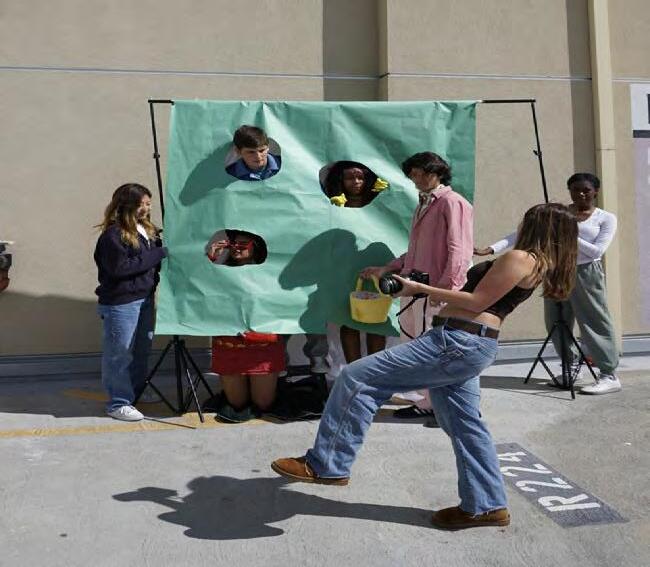

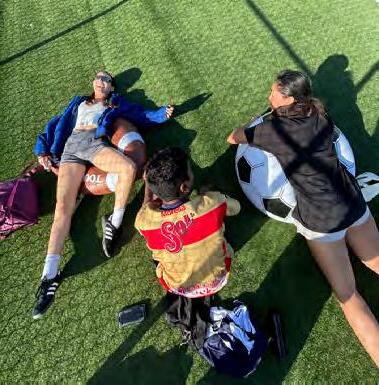

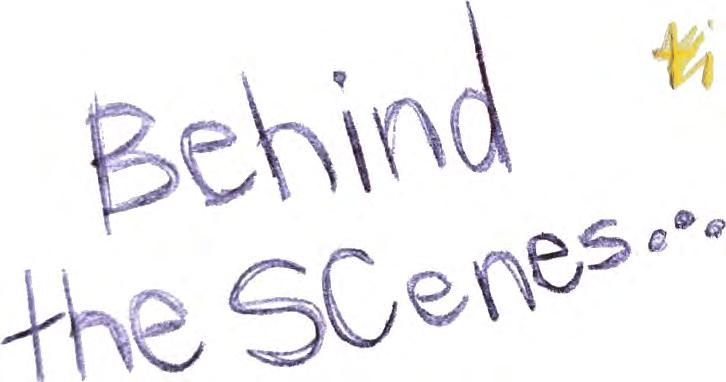


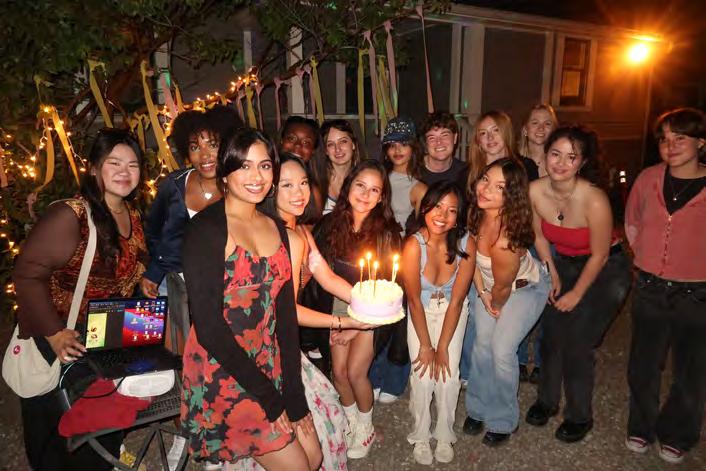
160
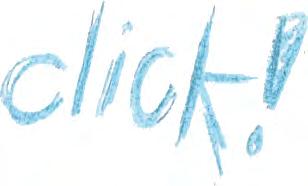

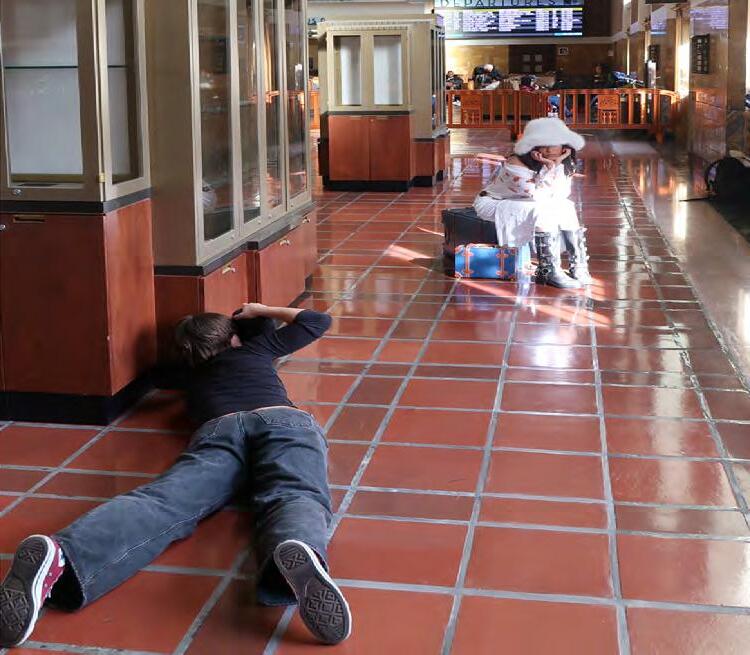



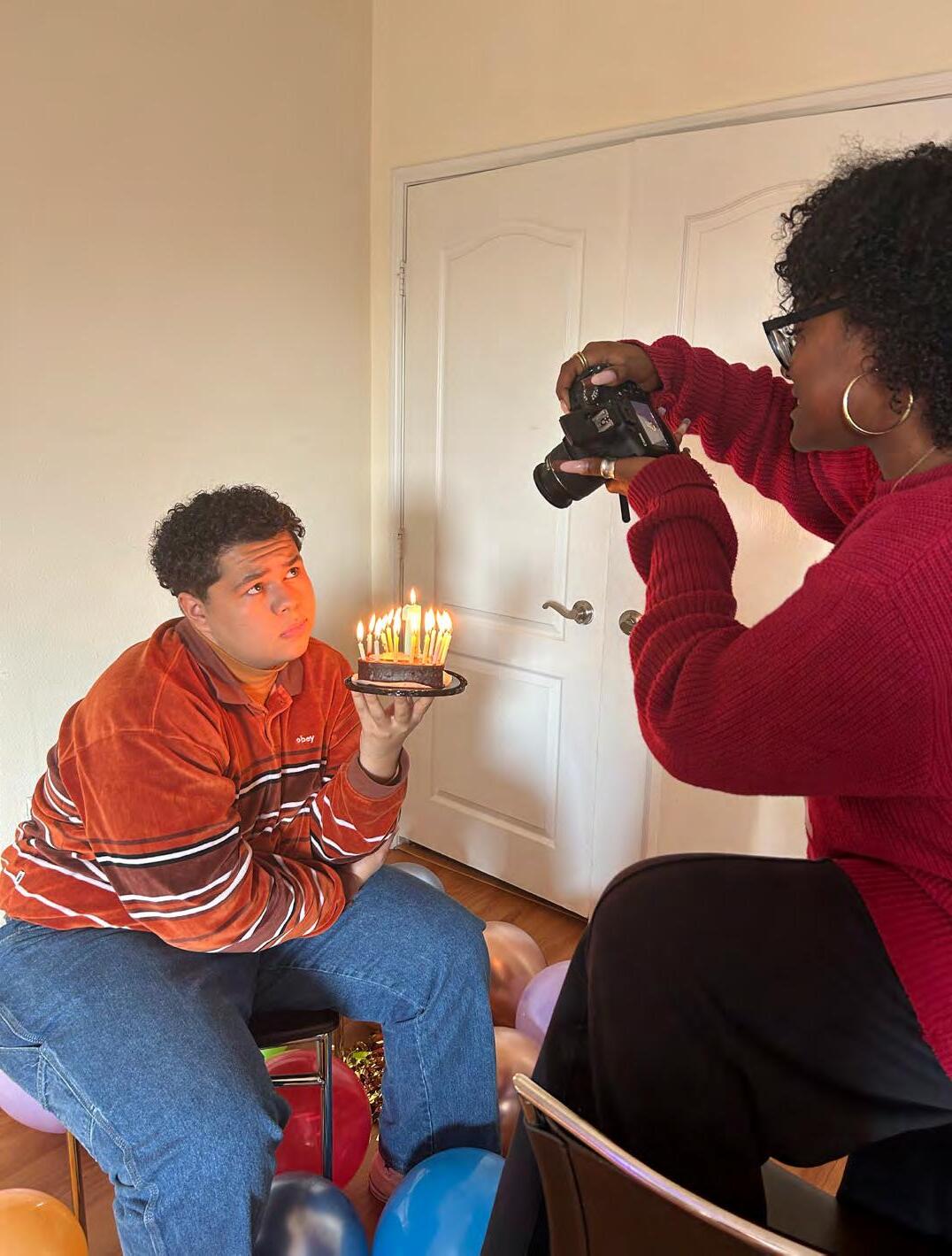





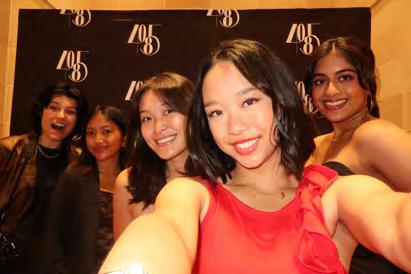

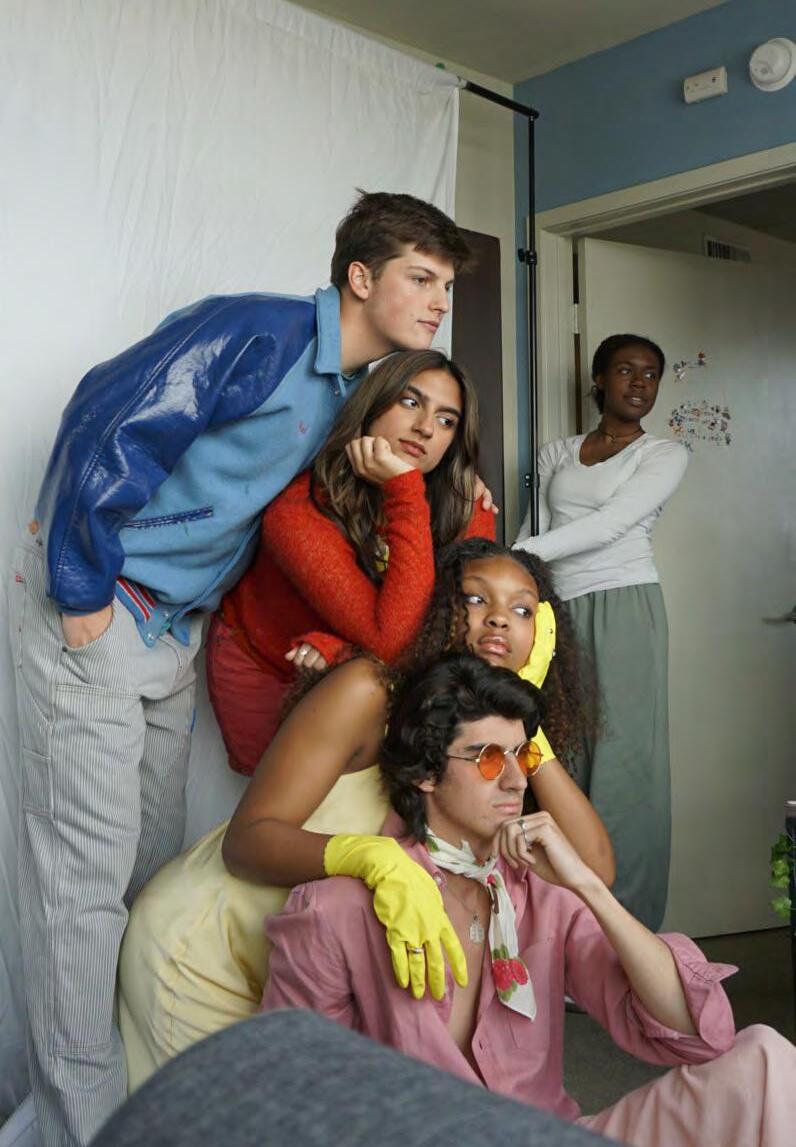

161
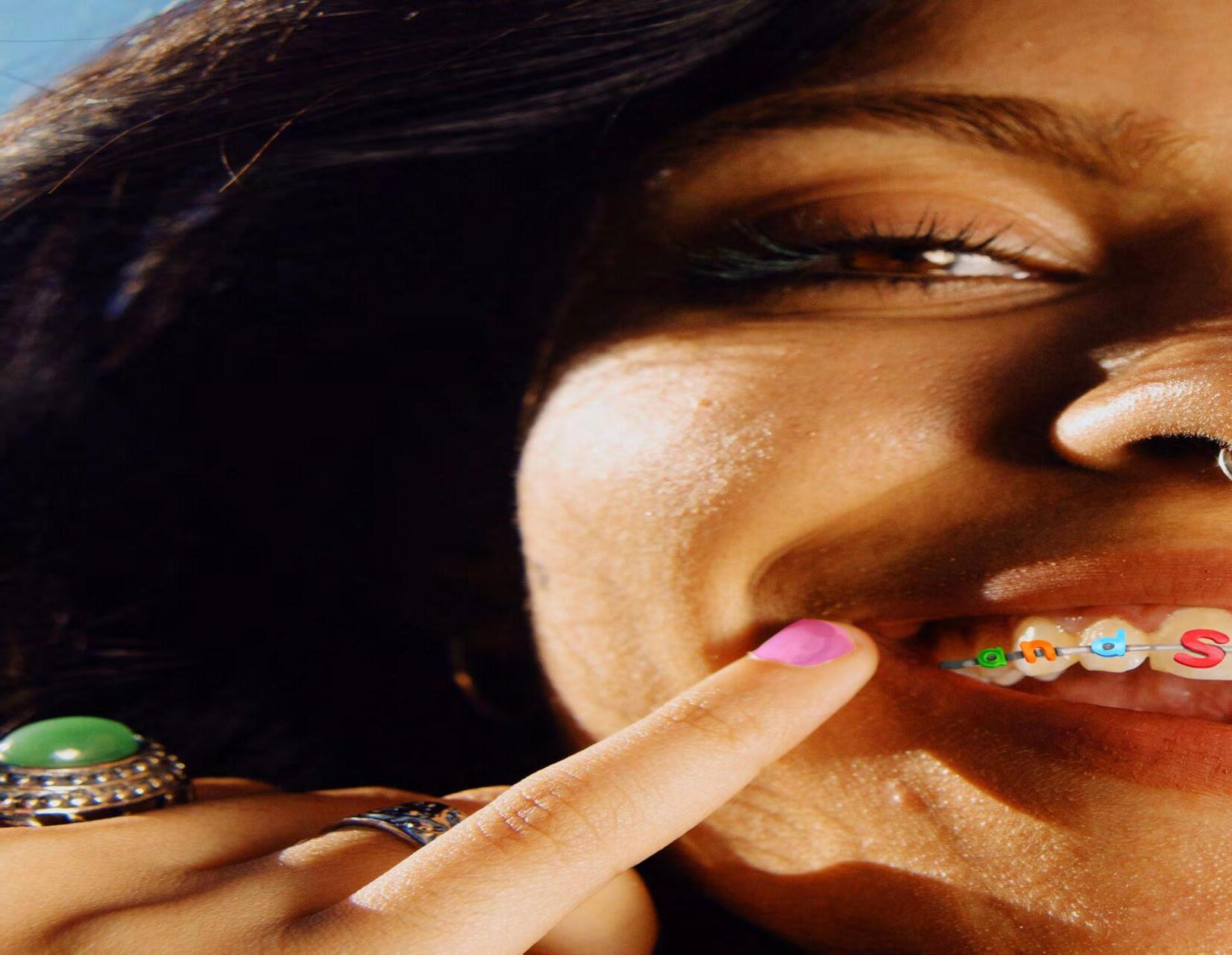
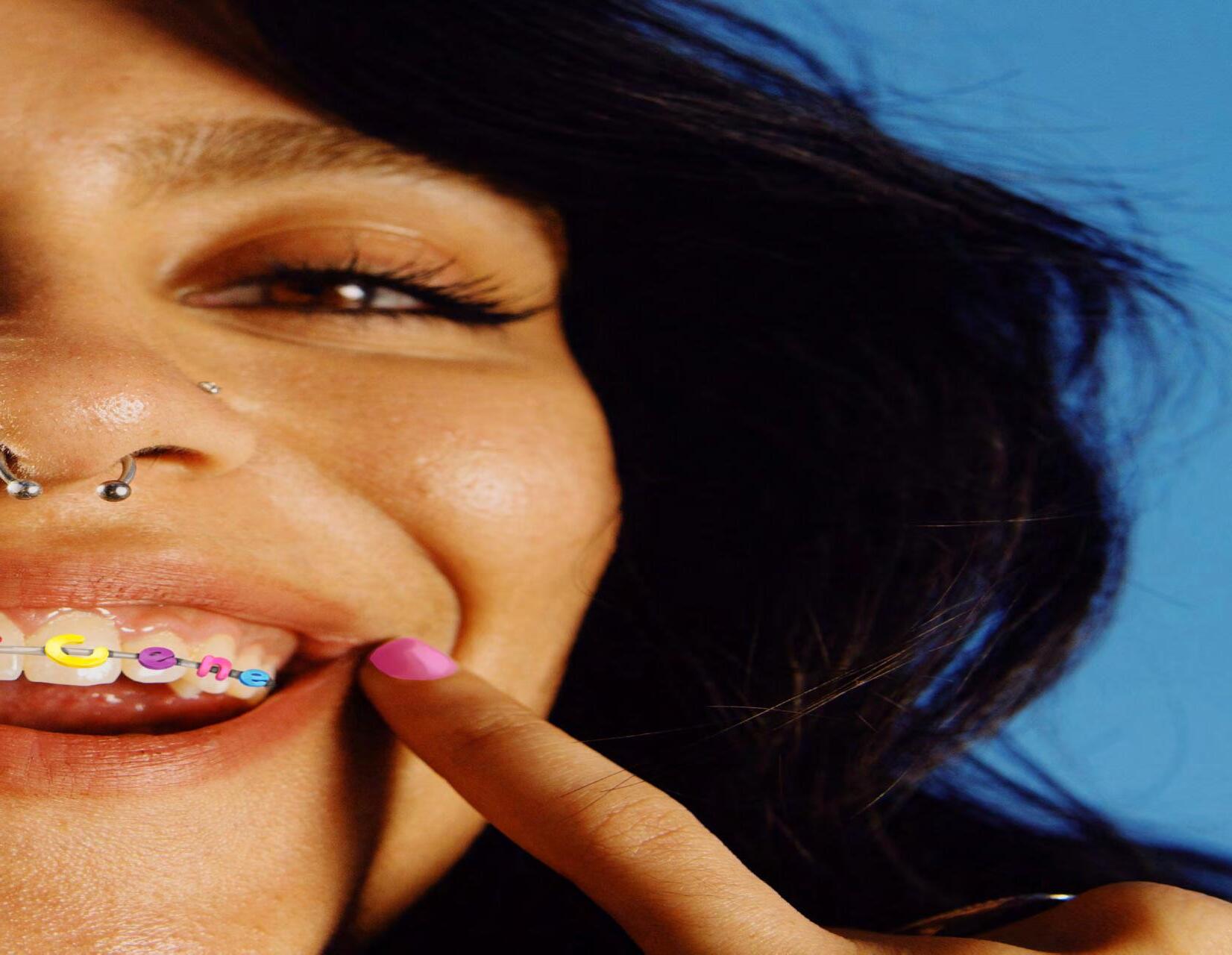 Model Rena Pau ‘26 is a cognitive science major from South Pasadena, CA. She is a dancer.
Model Rena Pau ‘26 is a cognitive science major from South Pasadena, CA. She is a dancer.
















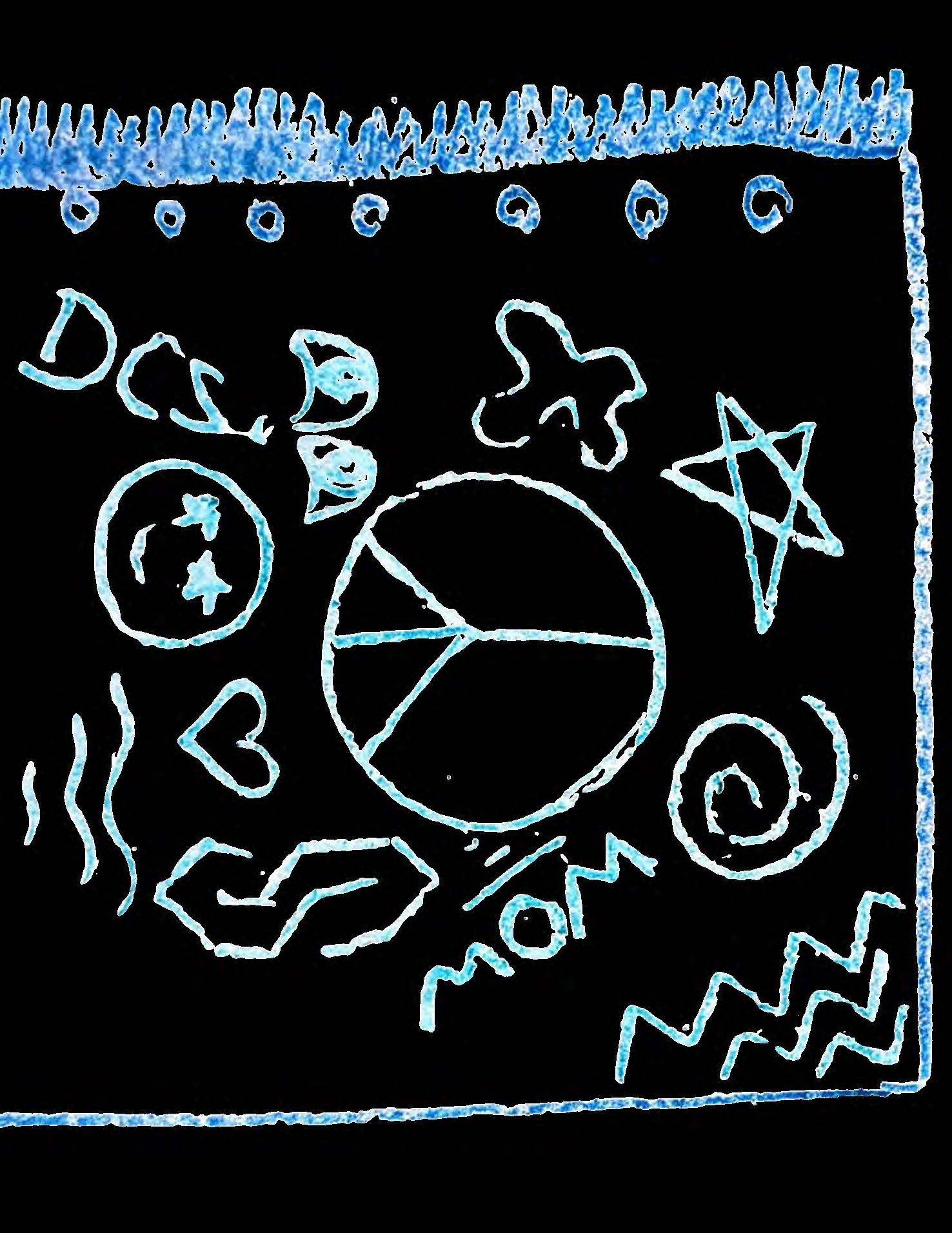





















ISSUE NO. 5 TEAM

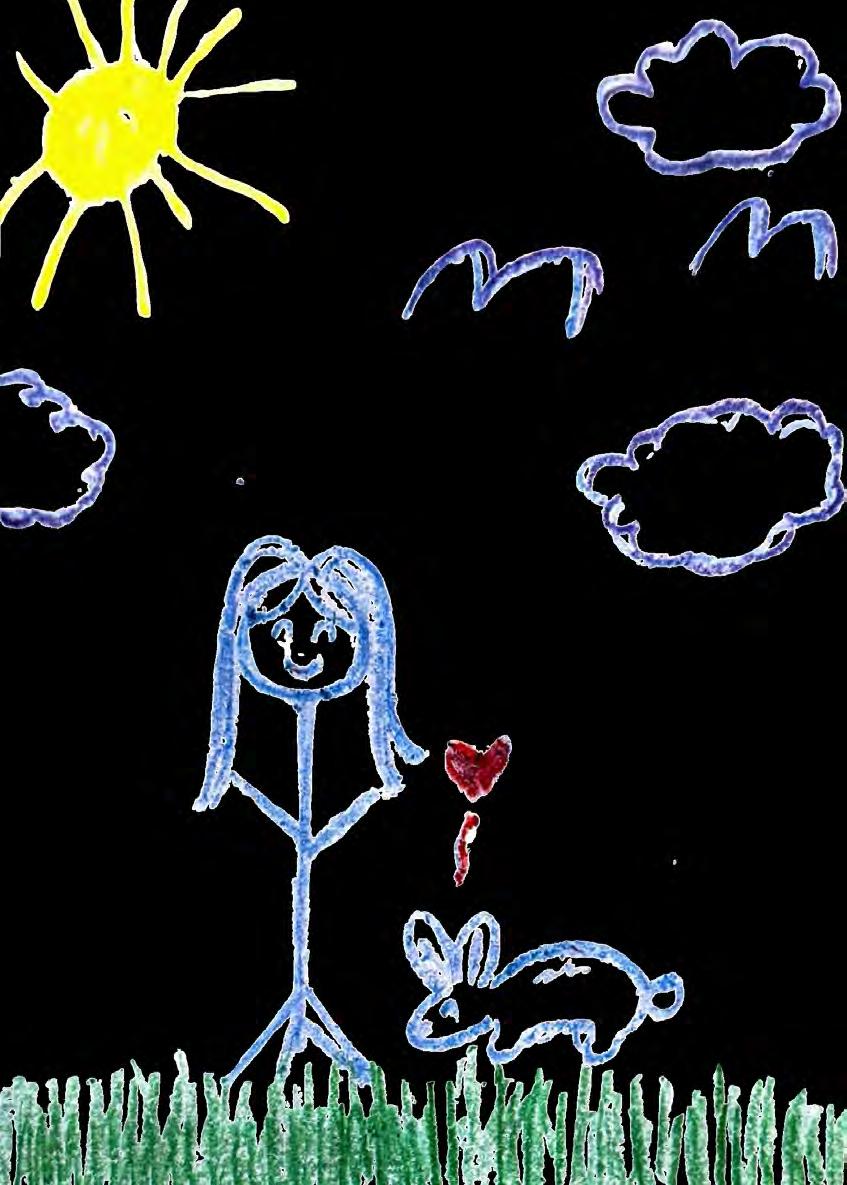

165
SPRING 2024
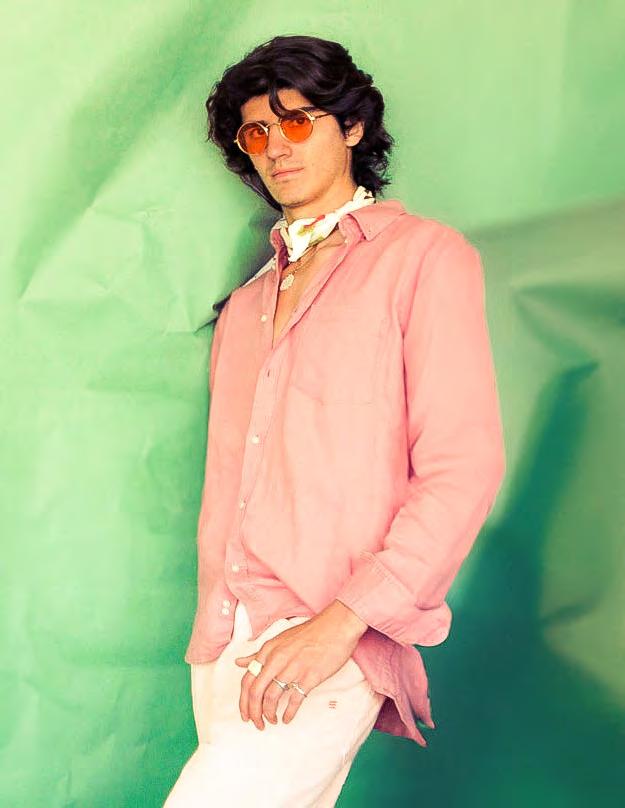

Follow us on Instagram @sceneusc U set the SCene. We tell your stories.



























 Writer
Marlboro,
Writer
Marlboro,

 HALF PAST FOUR| Kendall Bradwell
HALF PAST FOUR| Kendall Bradwell










 Model Luc Eldridge ‘27 is a composition major from Eastvale, CA. He loves NCT 127.
HALF PAST FOUR| Kendall Bradwell
Model Luc Eldridge ‘27 is a composition major from Eastvale, CA. He loves NCT 127.
HALF PAST FOUR| Kendall Bradwell
























 Model Thomazin Jury ‘25 is a theatre major from Iowa City, IA. She is an amateur chef who loves to cook and try out new recipes.
Model Thomazin Jury ‘25 is a theatre major from Iowa City, IA. She is an amateur chef who loves to cook and try out new recipes.








 Interviewee Justin Solomon ‘25 is a business administration major from Penfield, NY. He loves Star Wars.
THIS BOSS BABY SPILLS THE BEANS| Julia Zara
Interviewee Justin Solomon ‘25 is a business administration major from Penfield, NY. He loves Star Wars.
THIS BOSS BABY SPILLS THE BEANS| Julia Zara




















 WRITTEN
WRITTEN


 Model Darin Jawahar ‘26 is a cognitive science and data science major from Dover, DE. He is a hip-hop/ Bollywood fusion dancer who is also a DIAA high school tennis state champ.
Model Darin Jawahar ‘26 is a cognitive science and data science major from Dover, DE. He is a hip-hop/ Bollywood fusion dancer who is also a DIAA high school tennis state champ.




 Model Gaby Batista ‘25 is an architecture major from Atlanta, GA. She was a competitive cheerleader.
INSIDE THE GATES OF TROY| Maya Packer
Model Gaby Batista ‘25 is an architecture major from Atlanta, GA. She was a competitive cheerleader.
INSIDE THE GATES OF TROY| Maya Packer
































 written by SULLIVAN BARTHEL
designed by KATHRYN AURELIO
written by SULLIVAN BARTHEL
designed by KATHRYN AURELIO





 photos courtesy of JEAN-LUC HAYES & family !!!
photos courtesy of JEAN-LUC HAYES & family !!!














































































































































 Podcast host Daishalyn Satcher ‘25 is an architecture major from Atlanta, GA.
18 GOING ON 22| Daishalyn Satcher
Podcast host Daishalyn Satcher ‘25 is an architecture major from Atlanta, GA.
18 GOING ON 22| Daishalyn Satcher

 Interviewee Zafina Virani ‘26 is an international relations major with a theatre minor from Houston, TX. She wants to be an actress.
Interviewee Zafina Virani ‘26 is an international relations major with a theatre minor from Houston, TX. She wants to be an actress.



















 Writer and model
Benjamin Turnquest ‘25 is a production major from Flossmoor, IL.
Writer and model
Benjamin Turnquest ‘25 is a production major from Flossmoor, IL.


 Written by Benjamin Turnquest
Photographed by Rhian Jones DESIGNED BY CARLEE NIXON
Written by Benjamin Turnquest
Photographed by Rhian Jones DESIGNED BY CARLEE NIXON







































 written by andrea arcia
photographed by bella segalla
designed by sam natalya
written by andrea arcia
photographed by bella segalla
designed by sam natalya






 Writer Andrea Arcia ‘25
Writer Andrea Arcia ‘25

 Model Kiara Geolina ‘25 is musical theatre major from San Diego, CA. She loves possums.
PASS ME BY| Andrea Arcia
Model Kiara Geolina ‘25 is musical theatre major from San Diego, CA. She loves possums.
PASS ME BY| Andrea Arcia









 PASS ME BY| Andrea Arcia
PASS ME BY| Andrea Arcia



 Model Auburn D’Artell ‘27 is a theatre major from Seattle, WA. He has a siamese mix cat named Miss Bianca.
Model Luke Albert ‘26 is a computer science games major from Chicago, IL. He loves mythology and storytelling. He thinks telling and listening to stories is essential to the human experience.
Model Auburn D’Artell ‘27 is a theatre major from Seattle, WA. He has a siamese mix cat named Miss Bianca.
Model Luke Albert ‘26 is a computer science games major from Chicago, IL. He loves mythology and storytelling. He thinks telling and listening to stories is essential to the human experience.





 Model Xuanh-Anh Ly Biggs ‘27 is a screenwriting major from Riverside, CA. She likes to dumpster dive.
Model Xuanh-Anh Ly Biggs ‘27 is a screenwriting major from Riverside, CA. She likes to dumpster dive.





 Writer Mariam Bagdady
Writer Mariam Bagdady











































 Written By Laurie Carrillo
Photographed By Rhian Jones
Designed by Solana Espino
Written By Laurie Carrillo
Photographed By Rhian Jones
Designed by Solana Espino



















 Model Leeann Ross ‘25 is a dance major from Atlanta, GA.
Model Leeann Ross ‘25 is a dance major from Atlanta, GA.






































 THE GIRLS IN THE GREEN HOUSE| Kylee Warden
THE GIRLS IN THE GREEN HOUSE| Kylee Warden











 THE GIRLS IN THE GREEN HOUSE| Kylee Warden
THE GIRLS IN THE GREEN HOUSE| Kylee Warden















 written by Curran Rastogi
photographed by Thomas Pham
designed by Julia Zara
written by Curran Rastogi
photographed by Thomas Pham
designed by Julia Zara



 Writer Curran Rastogi
Writer Curran Rastogi




 Model Phillip Tran ‘25 is a real estate development major from Dallas, TX.
BECOMING “THE GRADUATE”| Curran Rastogi
Model Phillip Tran ‘25 is a real estate development major from Dallas, TX.
BECOMING “THE GRADUATE”| Curran Rastogi













 BECOMING “THE GRADUATE”| Curran Rastogi
BECOMING “THE GRADUATE”| Curran Rastogi






























 Model Rena Pau ‘26 is a cognitive science major from South Pasadena, CA. She is a dancer.
Model Rena Pau ‘26 is a cognitive science major from South Pasadena, CA. She is a dancer.










































